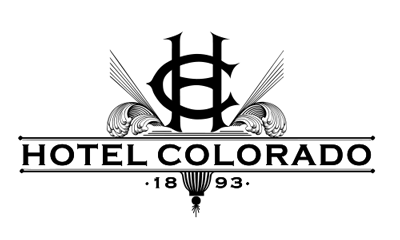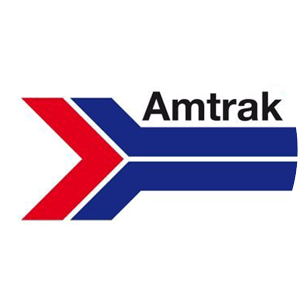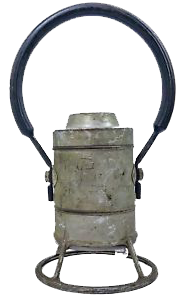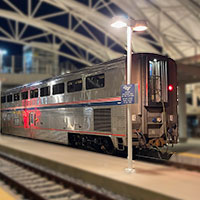 |
Amtrak's California Zephyr Central Route |
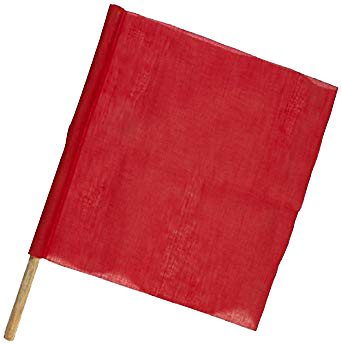
jump to a
flag stop
- Chicago
- Galesburg
- Burlington
- Omaha
- Denver
- Fraser -
Winter Park - Granby
- Glenwood Springs
- Grand Junction
- Salt Lake City
- Reno
- Sacramento
- Emeryville
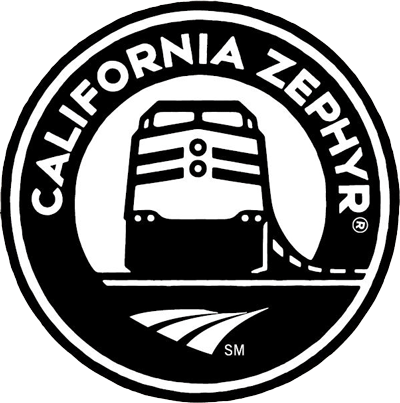
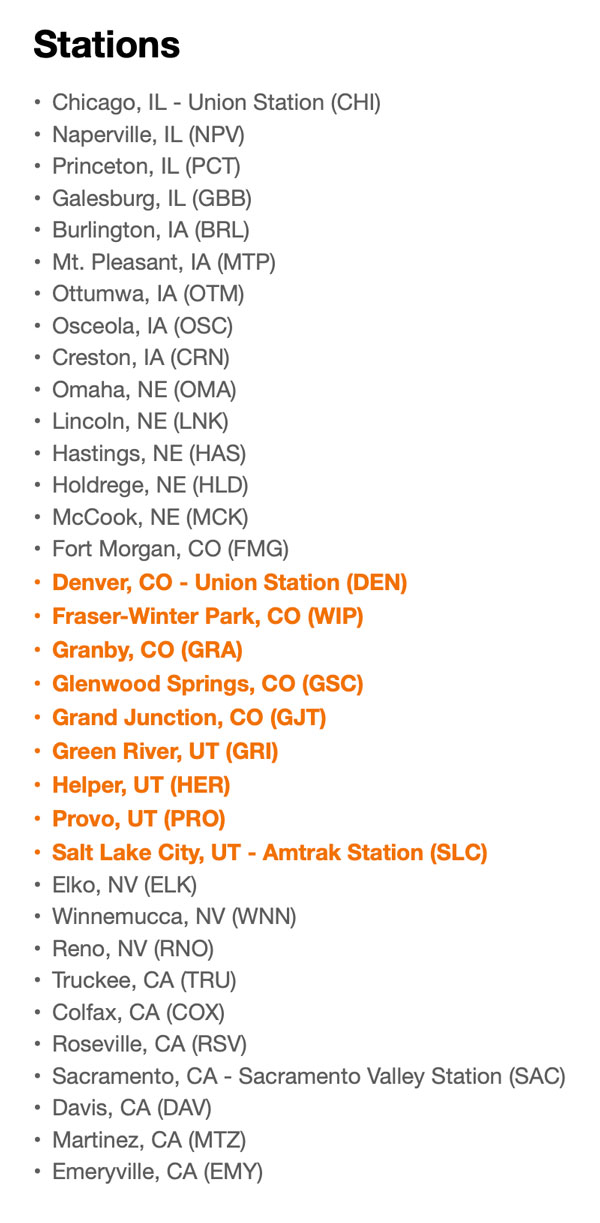
RWH
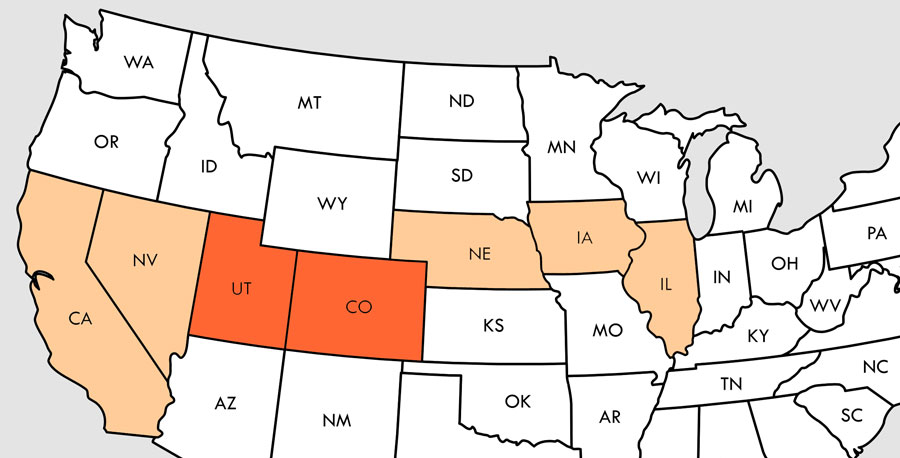
RWH

 perated by three contiguous railroads which shared the train's unified passenger equipment, the pre-Amtrak California Zephyr was handled between Denver, Colorado, and Salt Lake City, Utah, by the Denver, Rio Grande & Western Railroad. This central section of the train's daily journey covered 570 miles, or about 1/5 of the total route mileage. Shortest in miles among the partners, the Rio Grande's middle section nevertheless offered the most stunning scenery of the train's three-day excursion. To maximize exposure to the grandeur of the Rockies, the Zephyr's schedule was arranged in both directions to afford daytime running across the state of Colorado. From the east, CZ trains left Denver in the morning and climbed the Front Range into the heart of the Rockies. After Moffat Tunnel, the scenic route followed the winding Colorado River through winter ski country, Glenwood Canyon, and all the way west to Grand Junction, Colorado, at the state line, for a total 235 miles of riverside running. Rio Grande power carried the train as far was Salt Lake City, where Western Pacific took over the run.
perated by three contiguous railroads which shared the train's unified passenger equipment, the pre-Amtrak California Zephyr was handled between Denver, Colorado, and Salt Lake City, Utah, by the Denver, Rio Grande & Western Railroad. This central section of the train's daily journey covered 570 miles, or about 1/5 of the total route mileage. Shortest in miles among the partners, the Rio Grande's middle section nevertheless offered the most stunning scenery of the train's three-day excursion. To maximize exposure to the grandeur of the Rockies, the Zephyr's schedule was arranged in both directions to afford daytime running across the state of Colorado. From the east, CZ trains left Denver in the morning and climbed the Front Range into the heart of the Rockies. After Moffat Tunnel, the scenic route followed the winding Colorado River through winter ski country, Glenwood Canyon, and all the way west to Grand Junction, Colorado, at the state line, for a total 235 miles of riverside running. Rio Grande power carried the train as far was Salt Lake City, where Western Pacific took over the run.
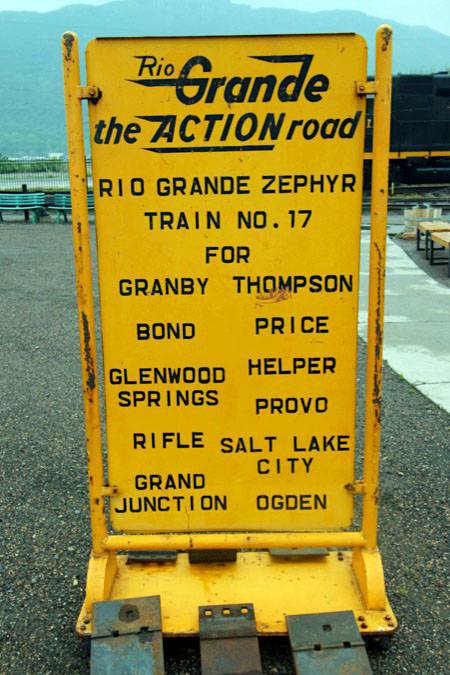 After 21 years of daily operations, the last original California Zephyr operated in March 1970. East of Salt Lake City the train was reduced to a tri-weekly schedule, operating as the California Service on the Burlington Northern and as the Rio Grande Zephyr on the Rio Grande. The Rio Grande portion of the train was extended beyond Salt Lake to Ogden, Utah, to allow Nevada and California passengers to connect to the Southern Pacific's train City of San Francisco. This modified arrangment continued until the creation of Amtrak on May 1, 1971. The new national carrier intended to revive the California Zephyr as part of its inaugural route network, using Burlington Northern east of Denver, the Rio Grande between Denver and Ogden, and the Southern Pacific west of Ogden, Utah. However, the Rio Grande opted out of Amtrak, fearing the new company's passenger trains would interfere with its profitable freight traffic. This development forced Amtrak to use the Union Pacific's northerly "Overland Route" through southern Wyoming instead of going across Colorado.
After 21 years of daily operations, the last original California Zephyr operated in March 1970. East of Salt Lake City the train was reduced to a tri-weekly schedule, operating as the California Service on the Burlington Northern and as the Rio Grande Zephyr on the Rio Grande. The Rio Grande portion of the train was extended beyond Salt Lake to Ogden, Utah, to allow Nevada and California passengers to connect to the Southern Pacific's train City of San Francisco. This modified arrangment continued until the creation of Amtrak on May 1, 1971. The new national carrier intended to revive the California Zephyr as part of its inaugural route network, using Burlington Northern east of Denver, the Rio Grande between Denver and Ogden, and the Southern Pacific west of Ogden, Utah. However, the Rio Grande opted out of Amtrak, fearing the new company's passenger trains would interfere with its profitable freight traffic. This development forced Amtrak to use the Union Pacific's northerly "Overland Route" through southern Wyoming instead of going across Colorado.
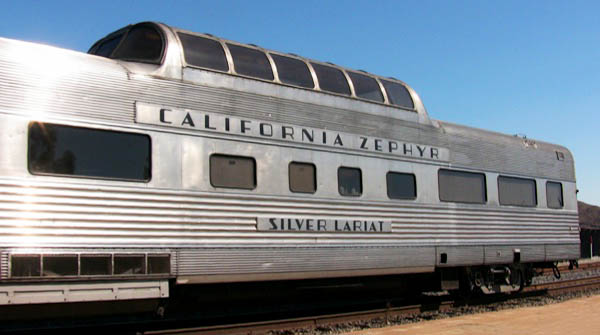 Between the spring of 1971 and the summer of 1972, passengers traveling between Chicago and Oakland had to travel on two different trains: the Denver Zephyr, which operated daily between Chicago and Denver, and the City of San Francisco, which operated three times a week between Denver and coastal California. Eventually Amtrak consolidated these two trains into its San Francisco Zephyr, in honor of the original CZ and the San Francisco Chief between Chicago and Oakland. Meanwhile, the Rio Grande continued to operate its Rio Grande Zephyr between Denver and Ogden using its own motive power and leftover silver CZ equipment.
Between the spring of 1971 and the summer of 1972, passengers traveling between Chicago and Oakland had to travel on two different trains: the Denver Zephyr, which operated daily between Chicago and Denver, and the City of San Francisco, which operated three times a week between Denver and coastal California. Eventually Amtrak consolidated these two trains into its San Francisco Zephyr, in honor of the original CZ and the San Francisco Chief between Chicago and Oakland. Meanwhile, the Rio Grande continued to operate its Rio Grande Zephyr between Denver and Ogden using its own motive power and leftover silver CZ equipment.
Citing increasing losses in its regional passenger operations, in 1983 the Rio Grande elected to join Amtrak. As such, Amtrak rerouted its San Francisco Zephyr over the D&RGW's "Moffat Subdivision" between Denver and Salt Lake City — its original preference from 1971. Today's California Zephyrs still use this route in both directions, including Moffat Tunnel, with trains 5 and 6 following a schedule quite similar to their silver namesakes before 1970. If schedules are on time, an eastbound and westbound CZ often meet somewhere in the Rockies, in this central region, midway through their 3-day runs. Today, Union Pacific hosts the entire central portion of the CZ routing.

1948 timetable / collection
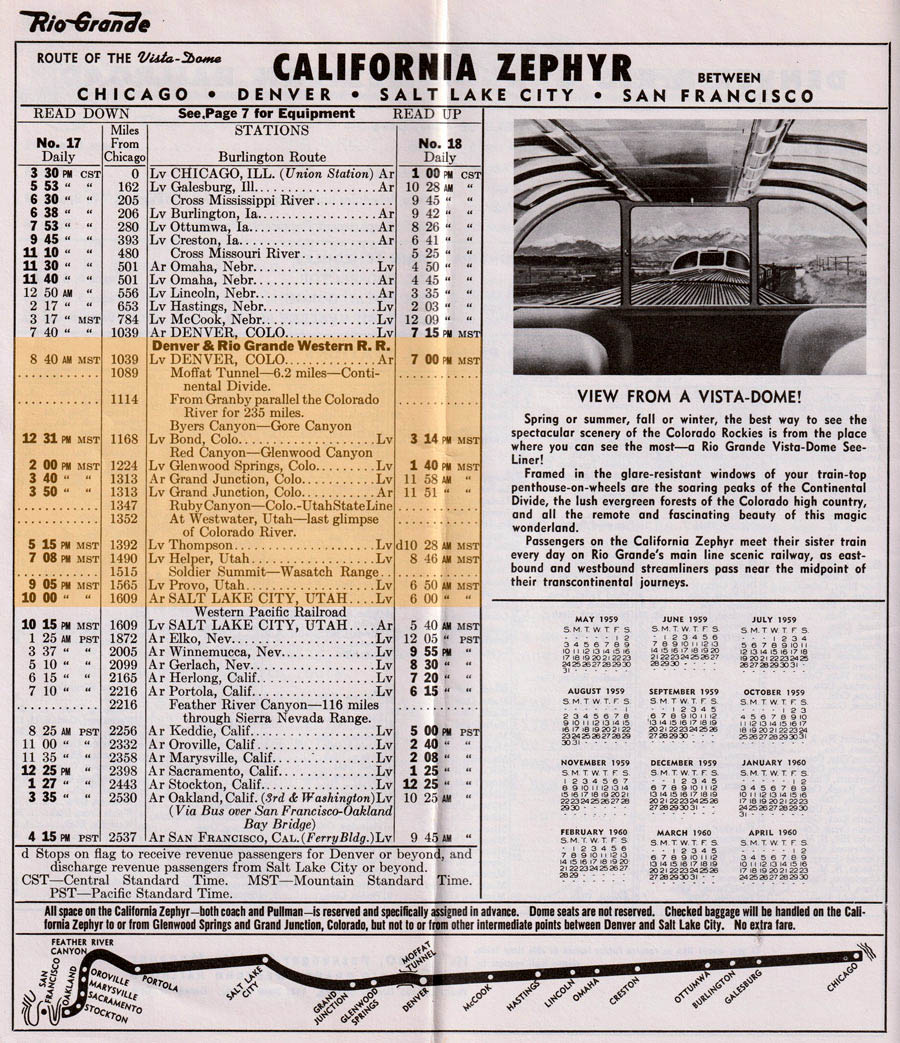
1959 timetable / collection
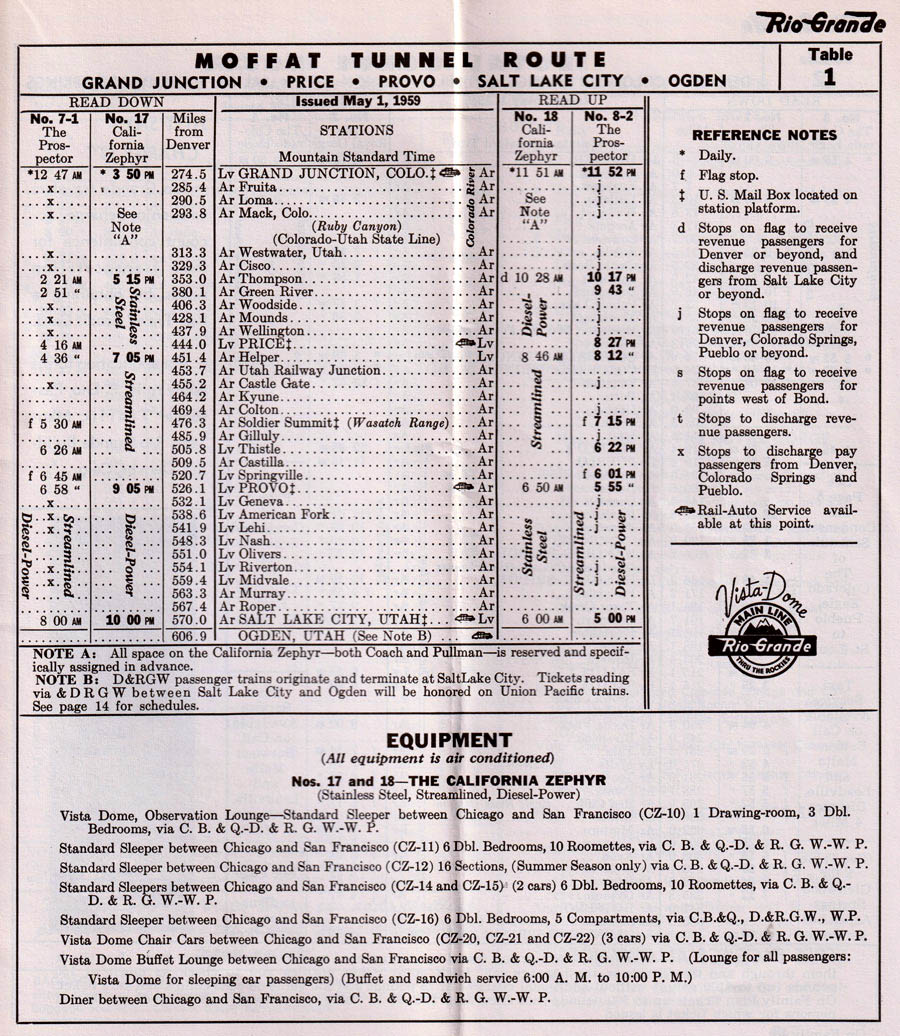
collection
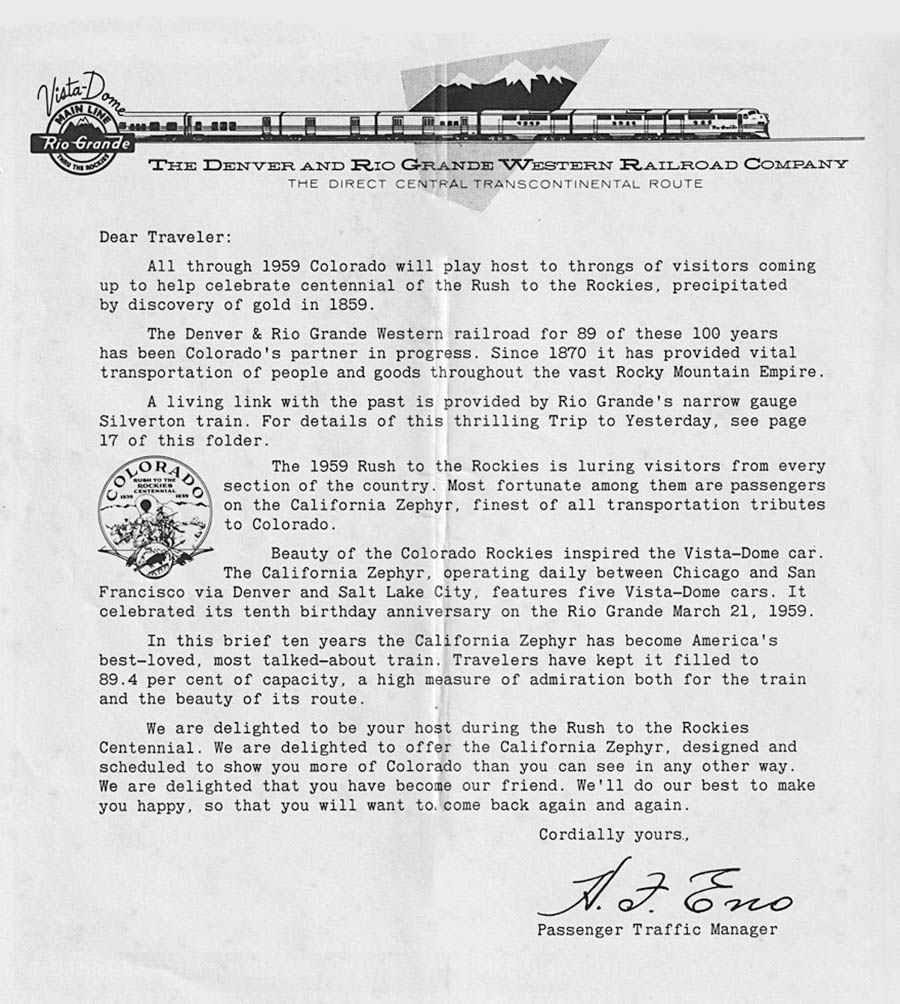
1959 timetable /
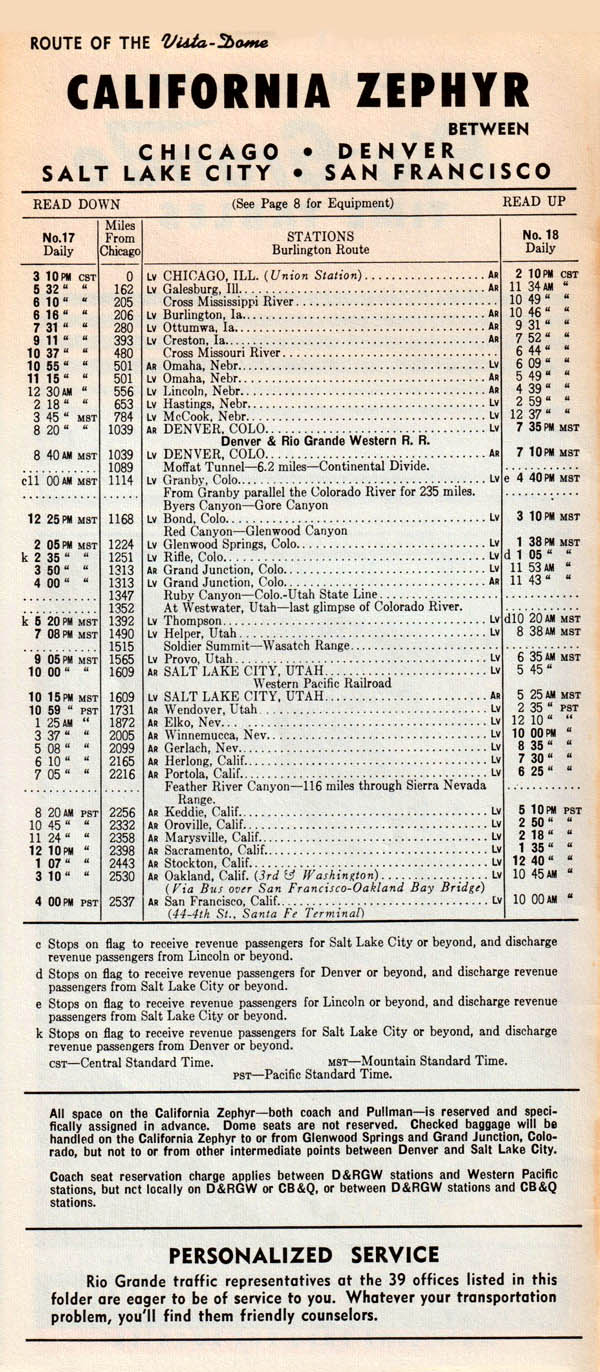
1966 timetable / collection
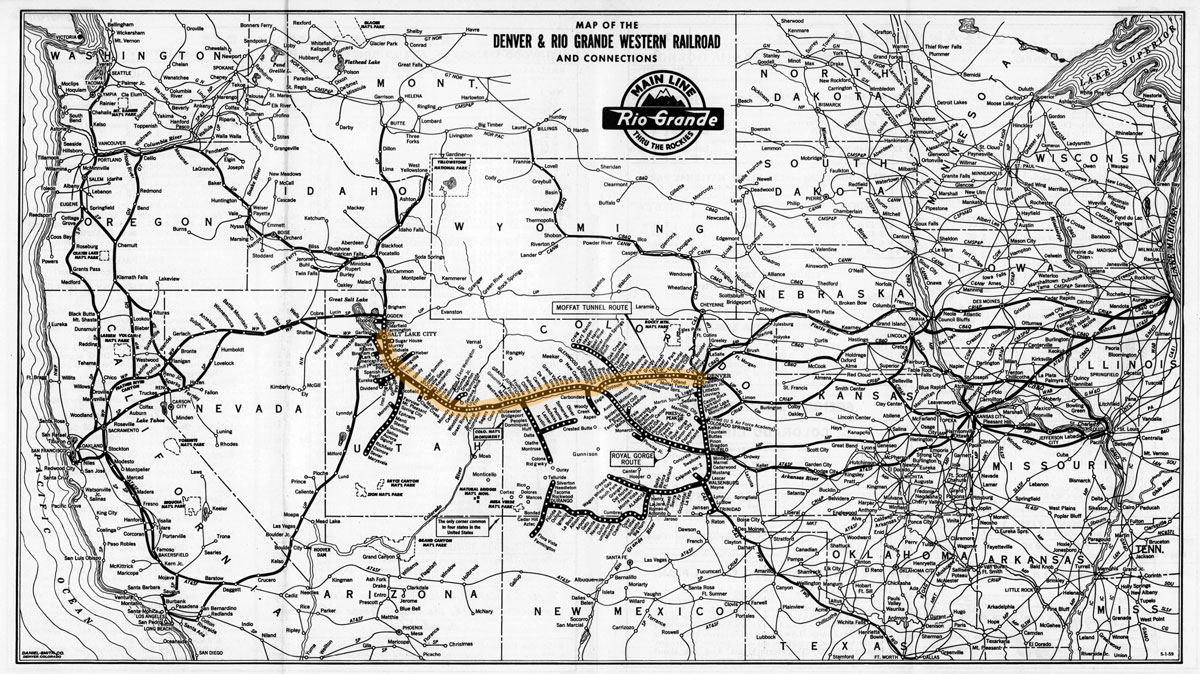
1959 timetable / collection
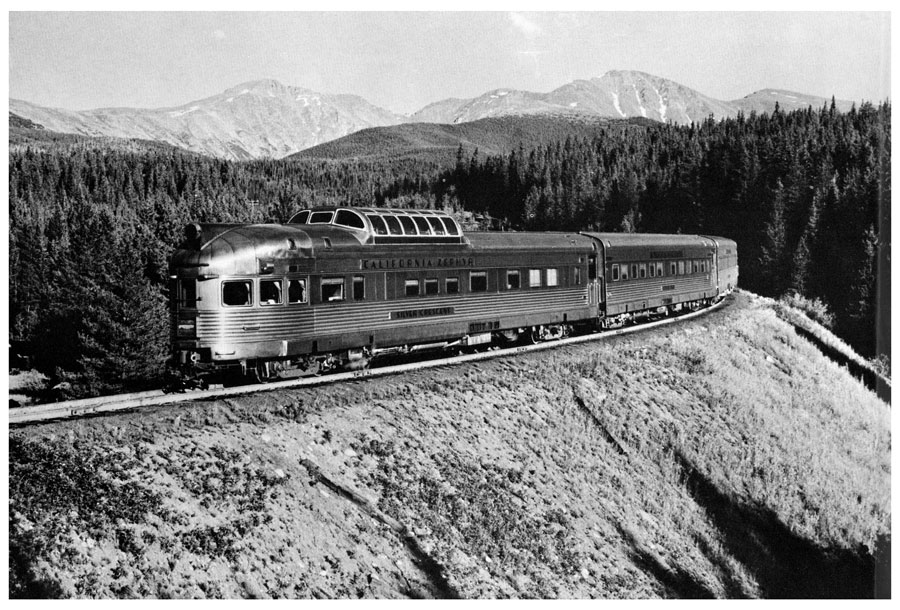
from The Story of the California Zephyr
by Karl Zimmermann / collection
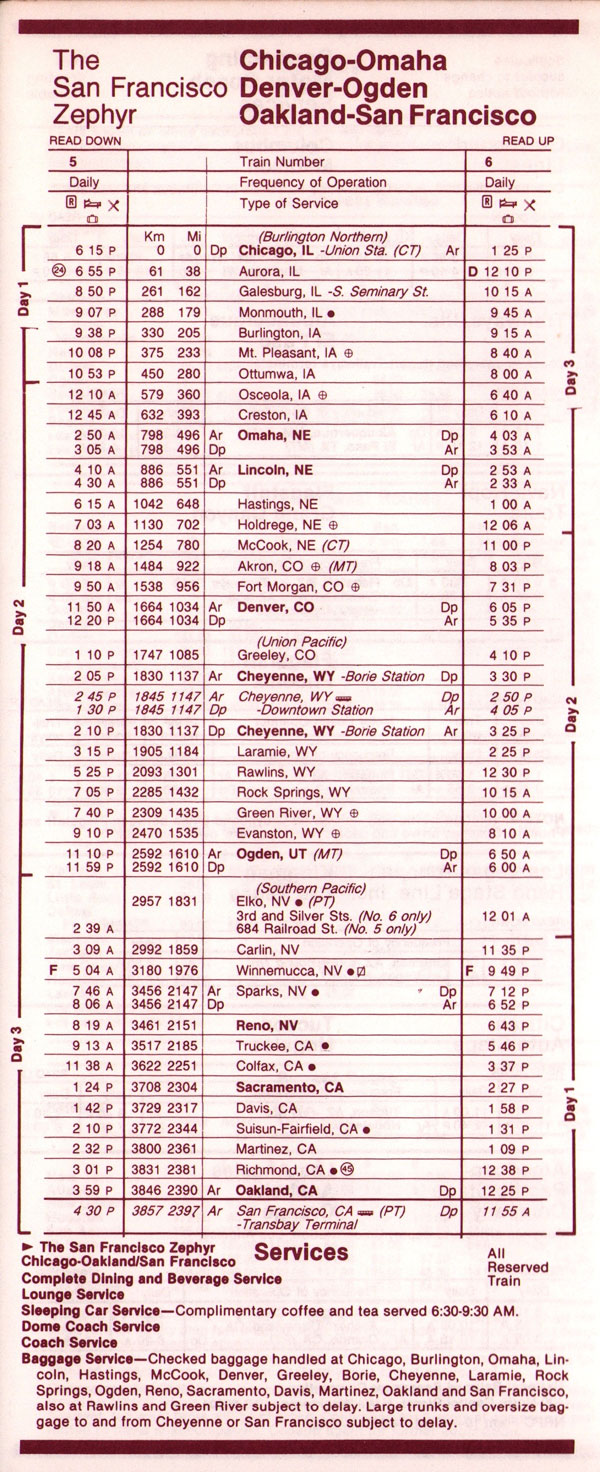
1980 timetable / collection
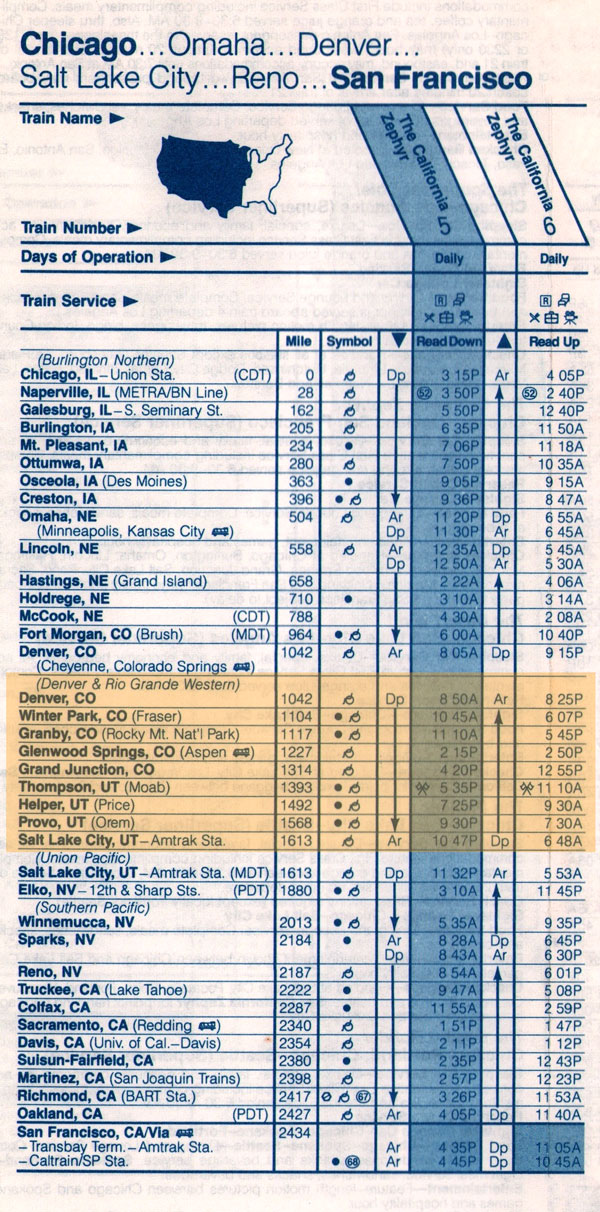
1987 timetable / collection
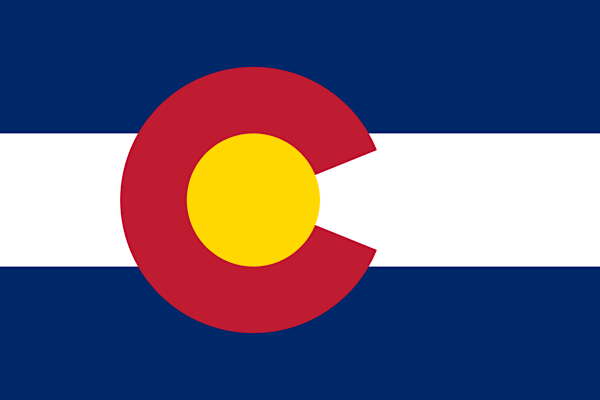 Colorado
Colorado
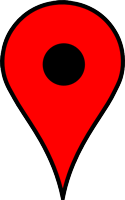 Denver, Co
Denver, Co
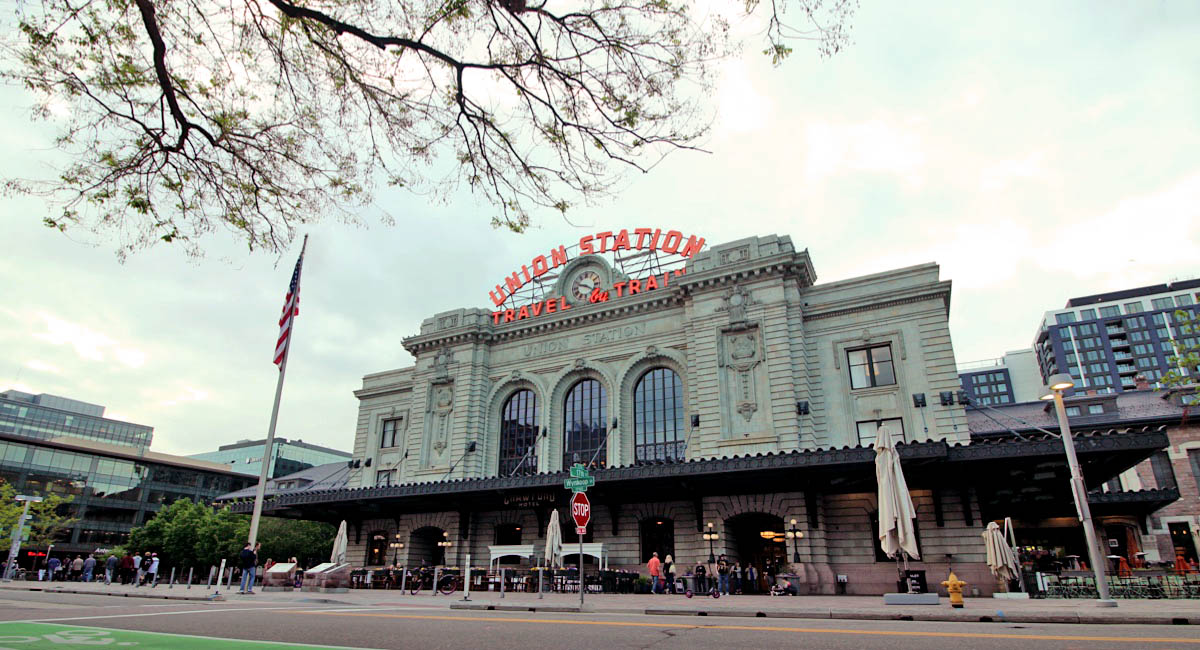
Denver Union Station
Denver, Co / May 2023 / RWH
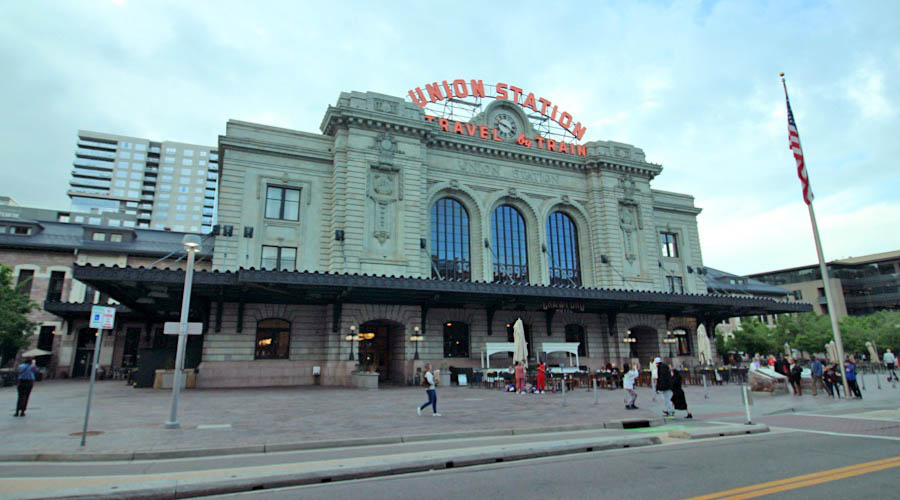
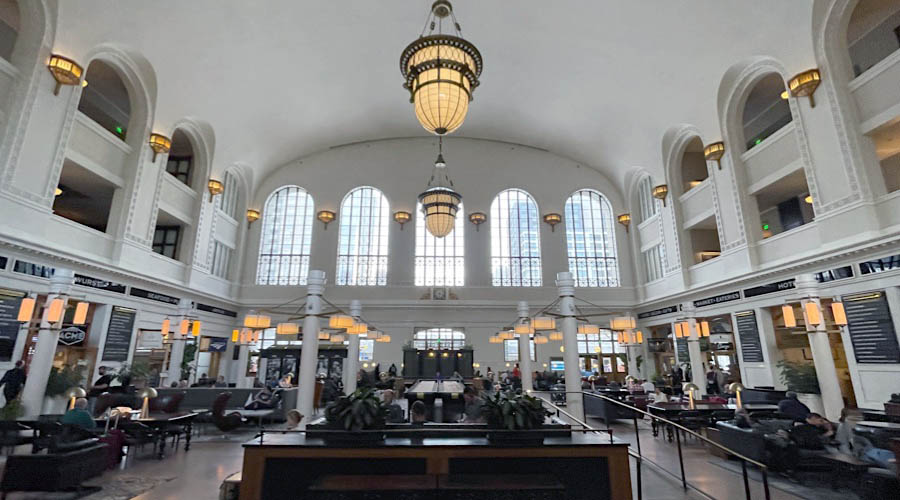
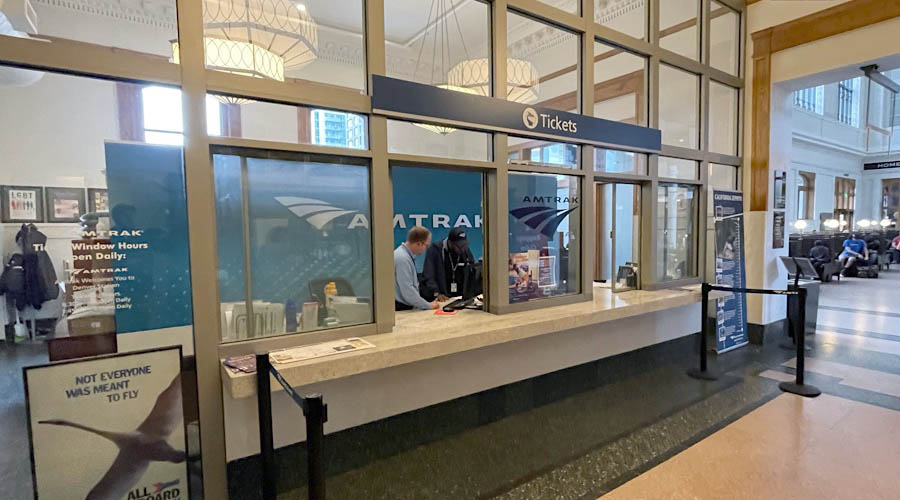
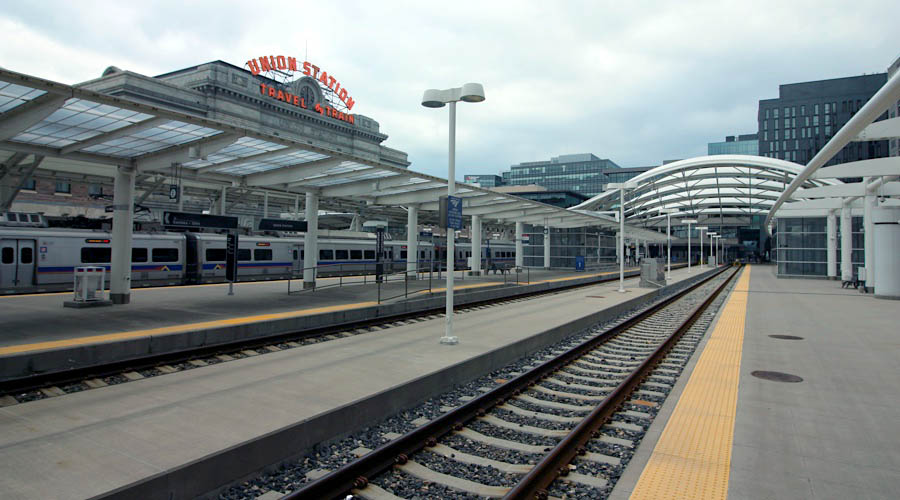
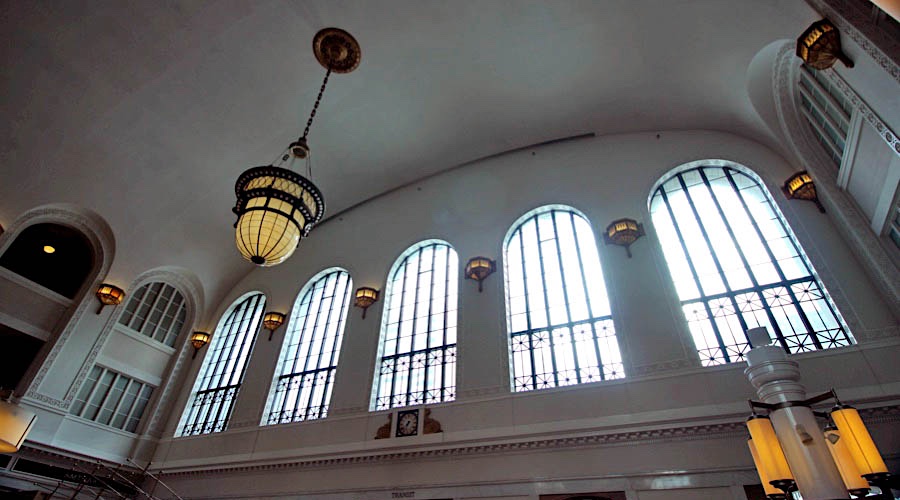

See our complete Denver Union Station scrapbook in Amtrak Great Stations
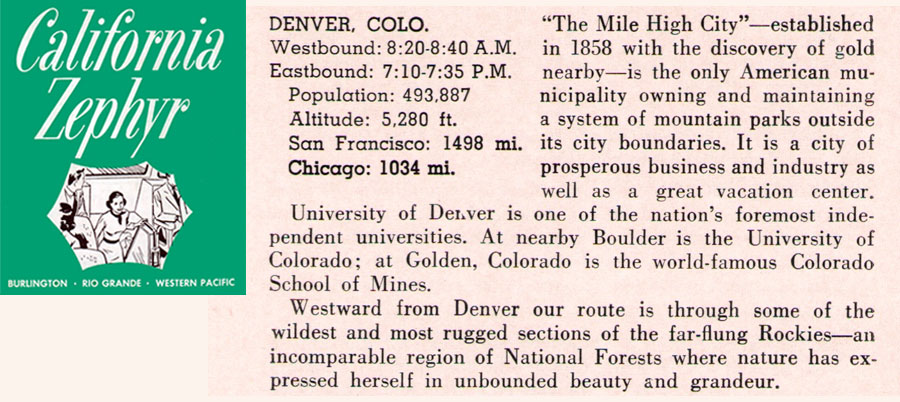
1967 brochure / collection

Denver, Co / Sep 2023 / RWH
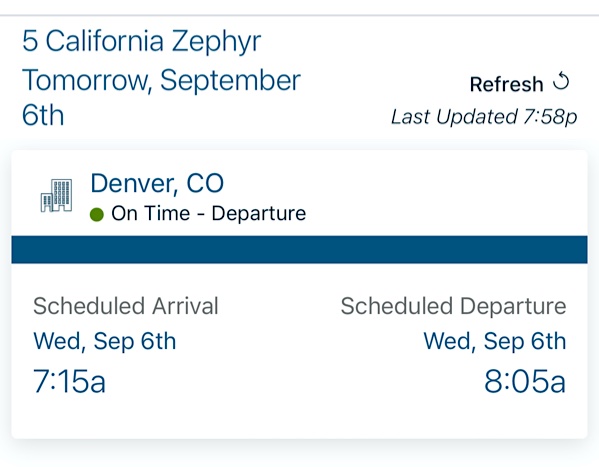
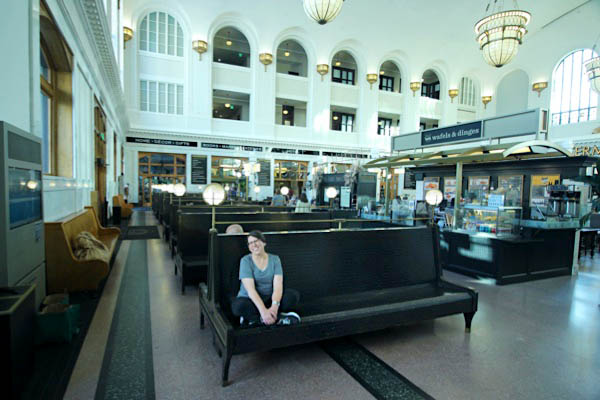
Denver, Co / Sep 2023 / RWH
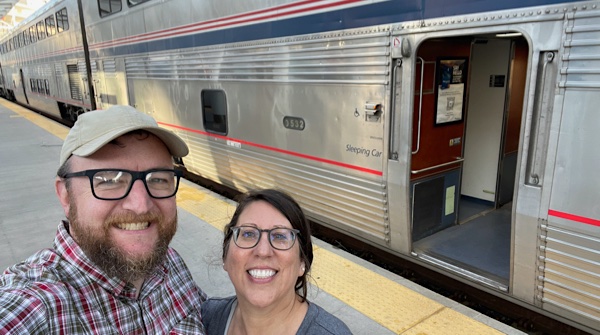
Denver, Co / Sep 2023 / RWH
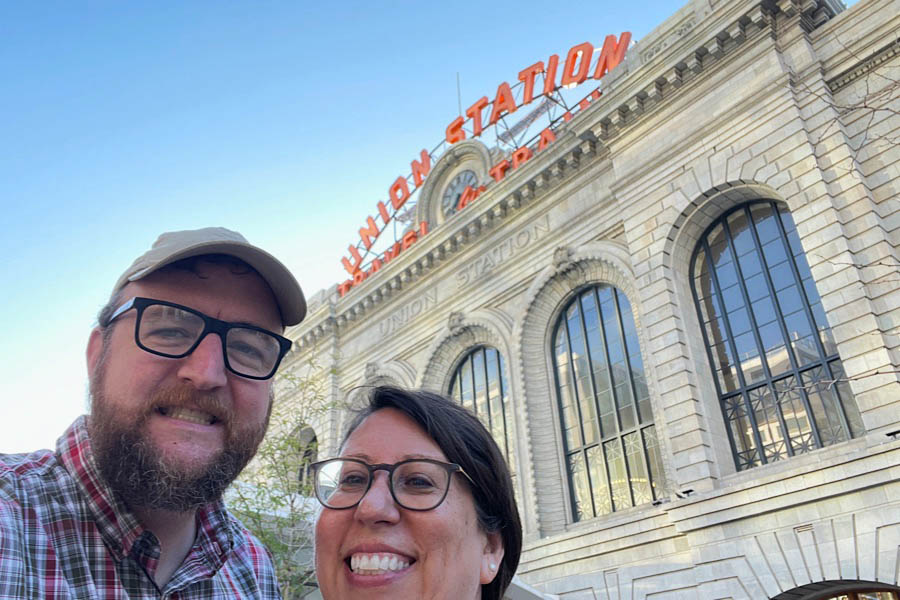
Denver, Co / Sep 2023 / RWH

Click to see Denver Union Station plotted on a Google Maps page

eastbound #6
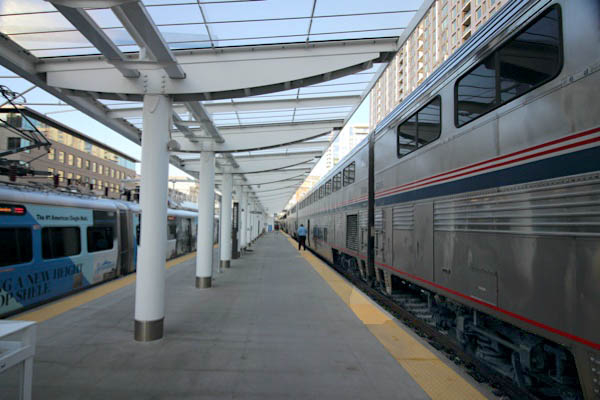
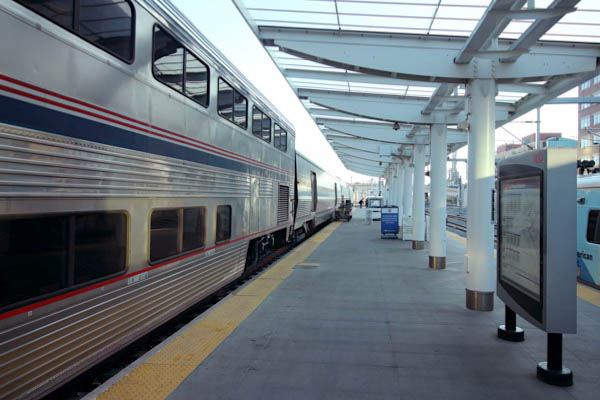
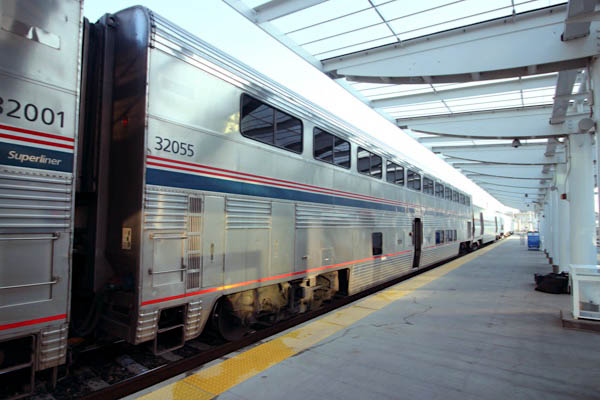
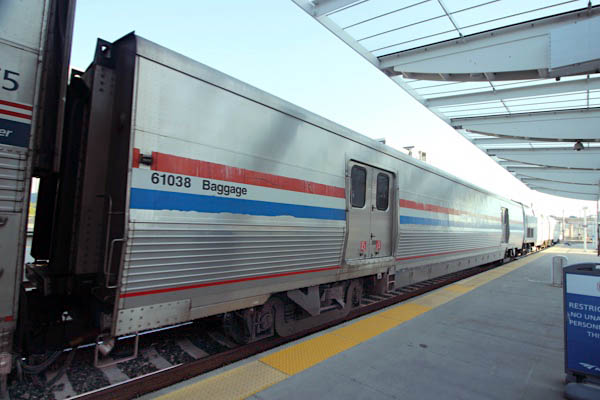
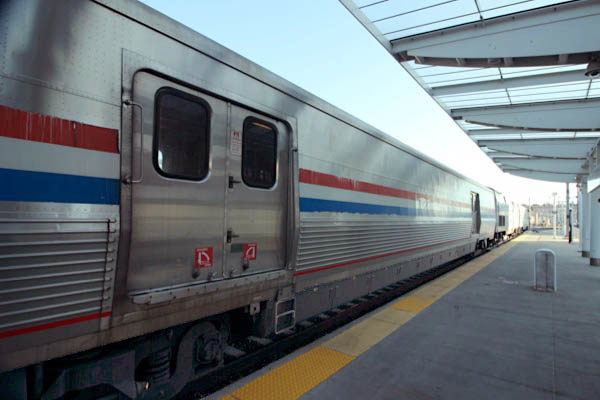
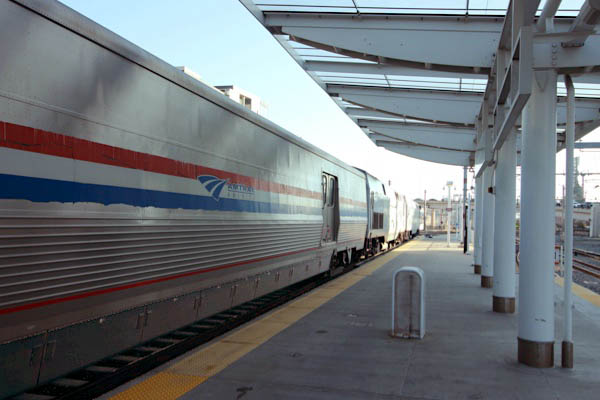
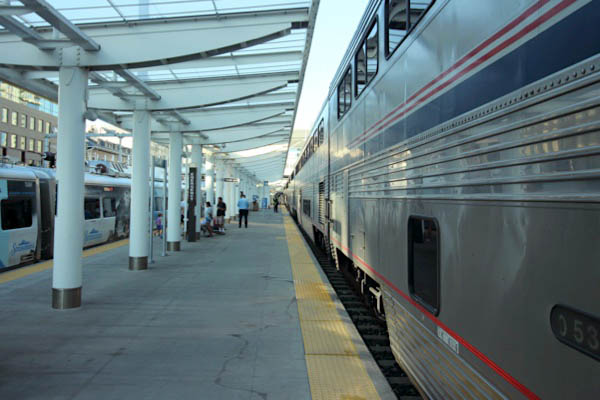
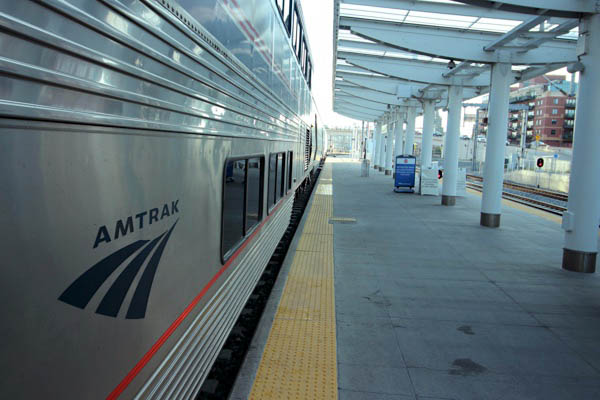
Denver, Co / Sep 2023 / RWH
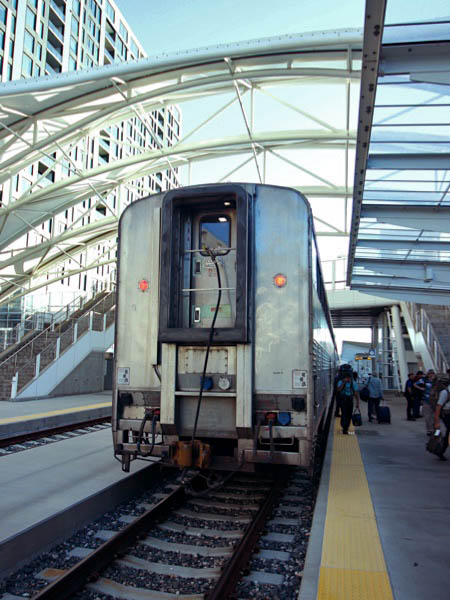
Sep 2023 / RWH
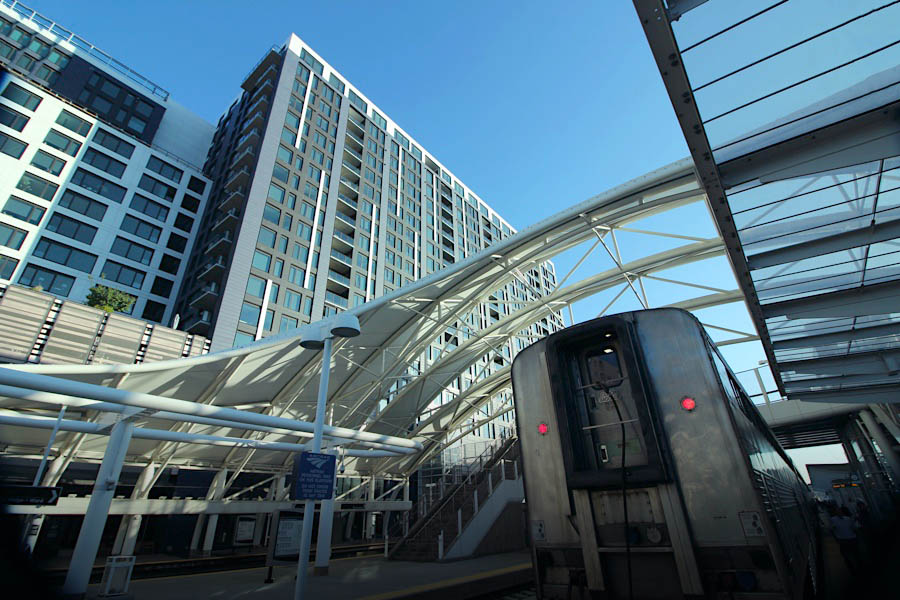
Denver, Co / Sep 2023 / RWH
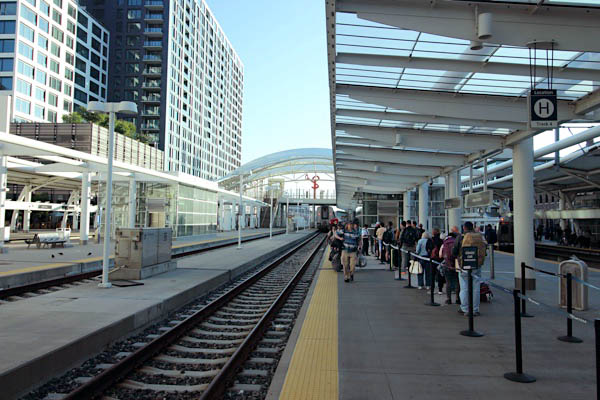
Denver, Co / Sep 2023 / RWH
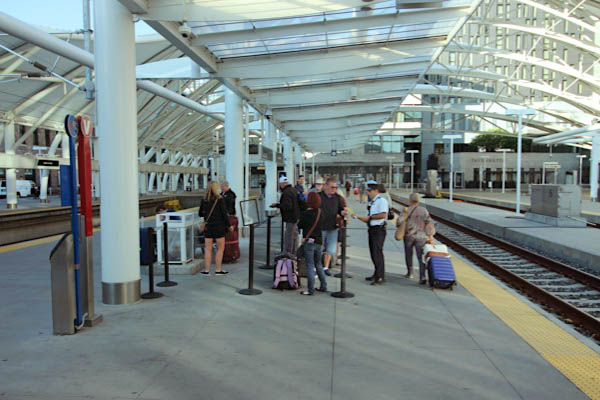
Denver, Co / Sep 2023 / RWH
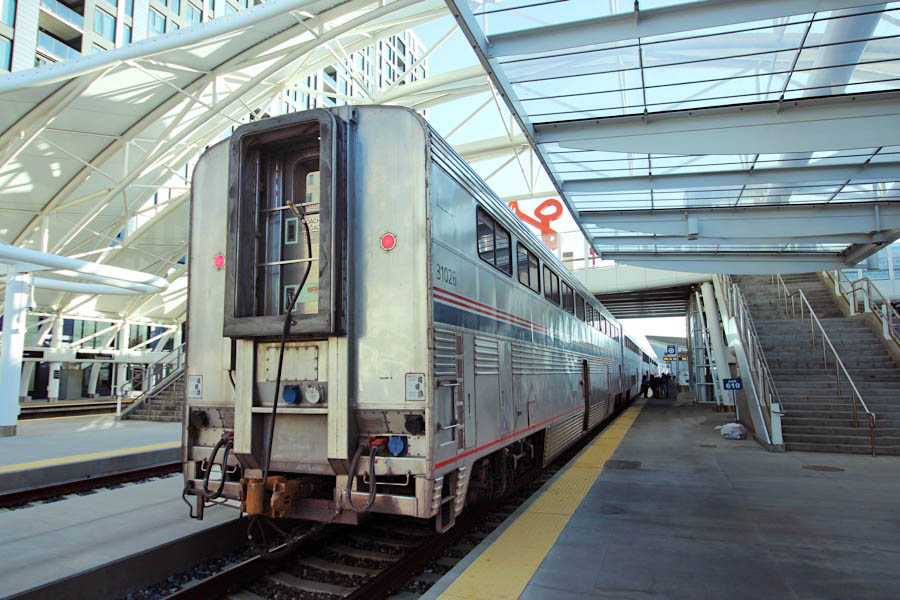
Denver, Co / Sep 2023 / RWH
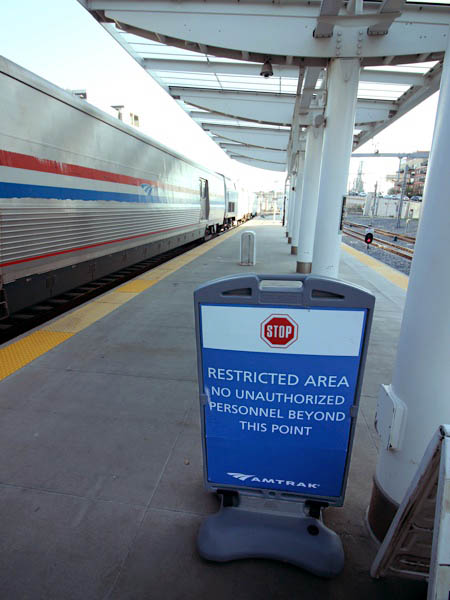
Sep 2023 / RWH
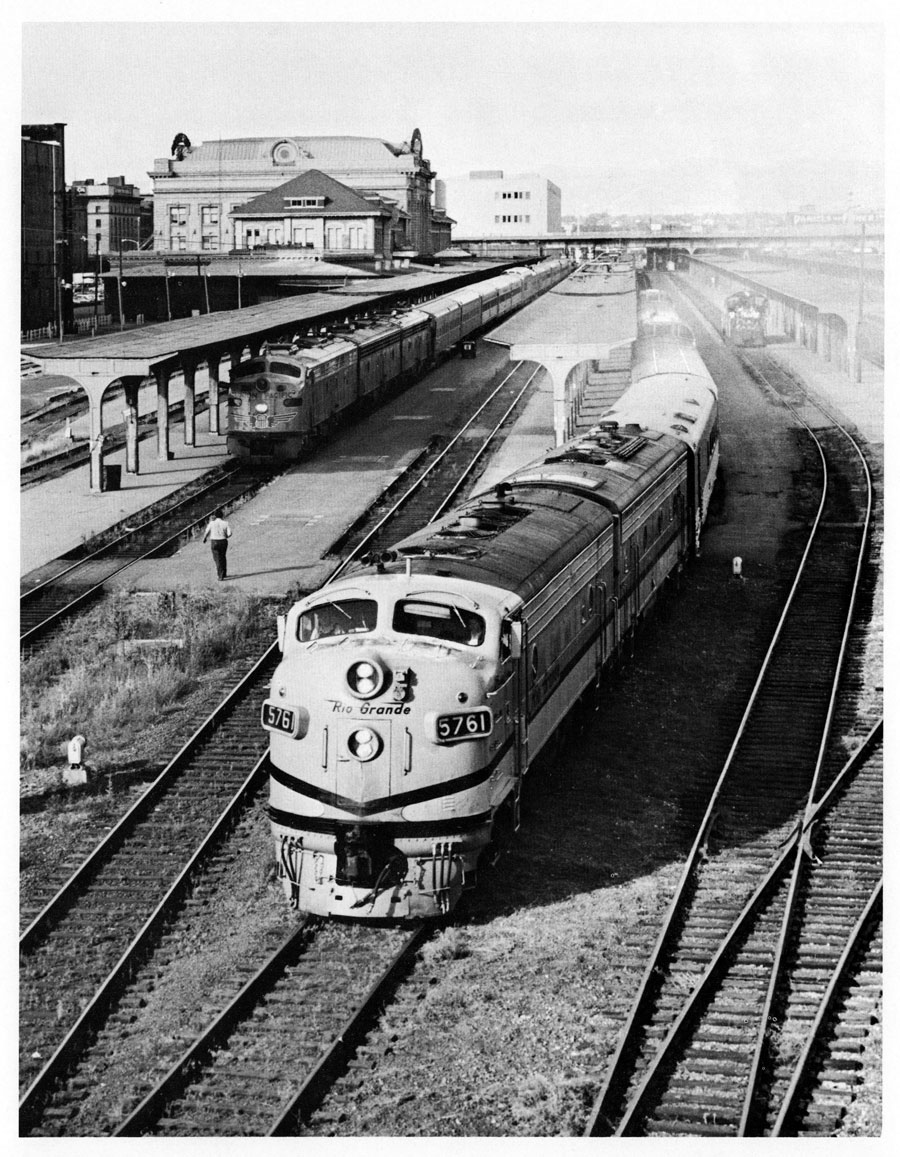
from The Story of the California Zephyr
by Karl Zimmermann / collection

westbound #5
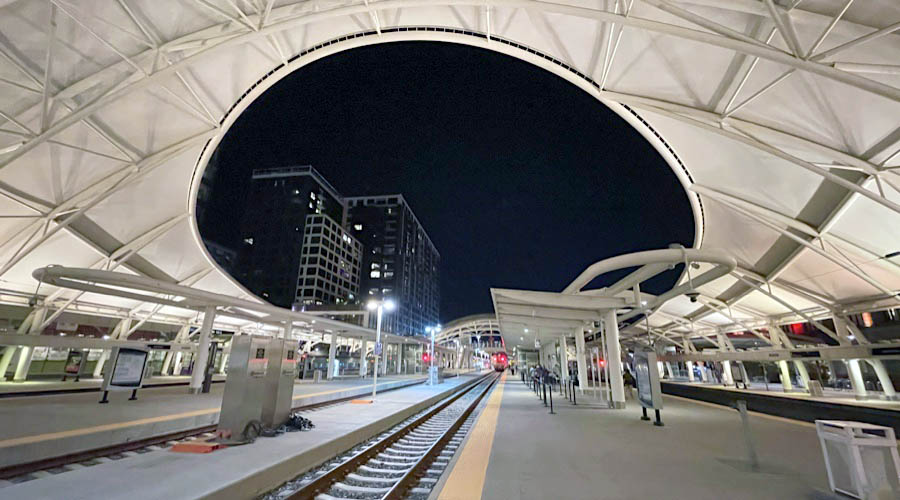
Denver, Co / Sep 2023 / RWH
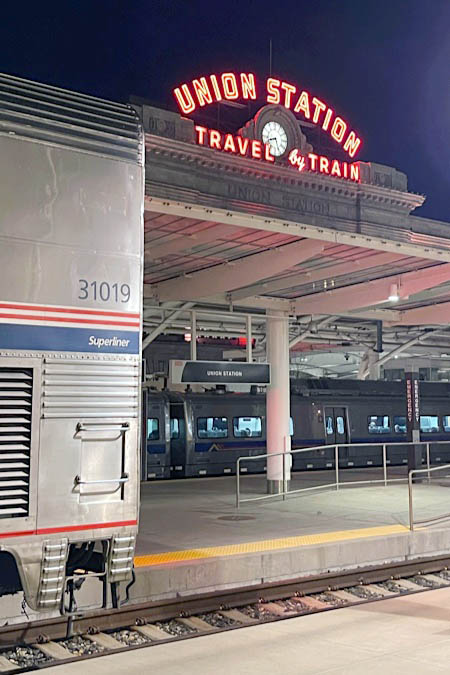
Sep 2023 / RWH

Denver, Co / Sep 2023 / RWH
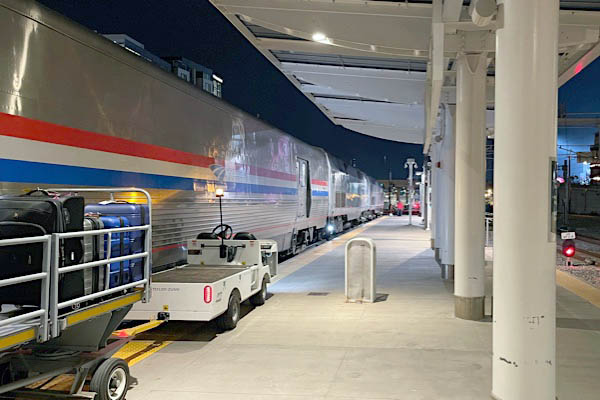
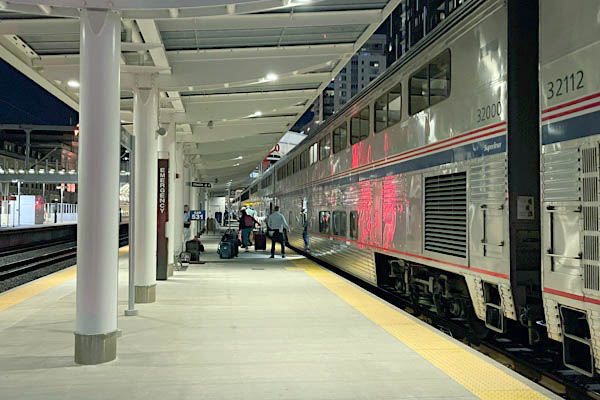
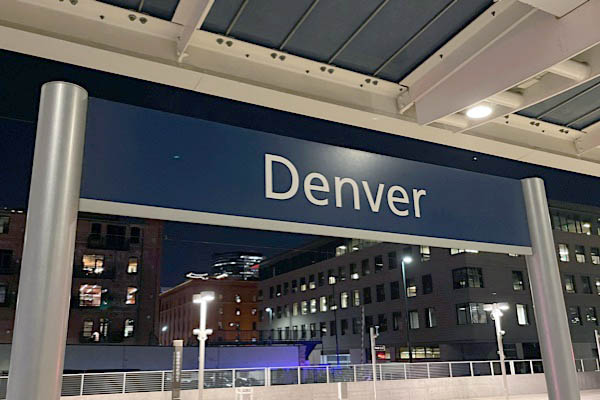
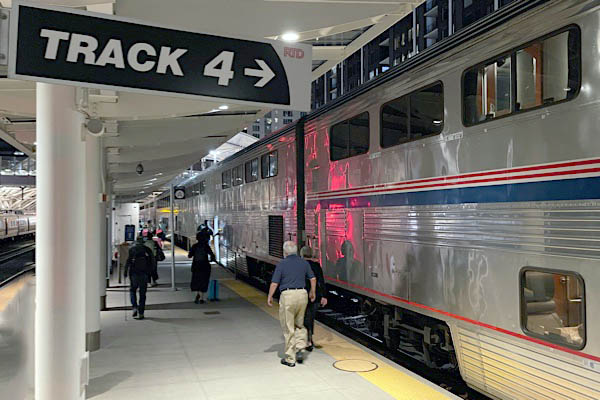
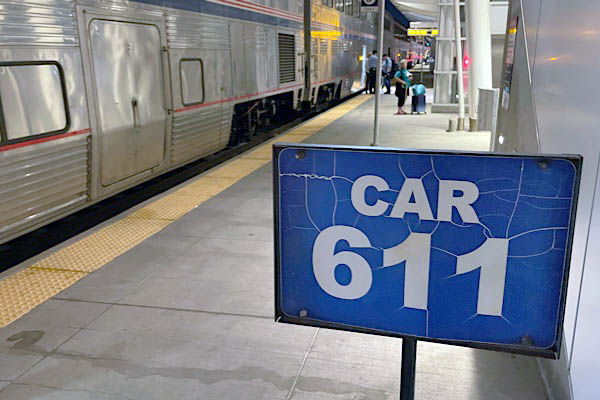
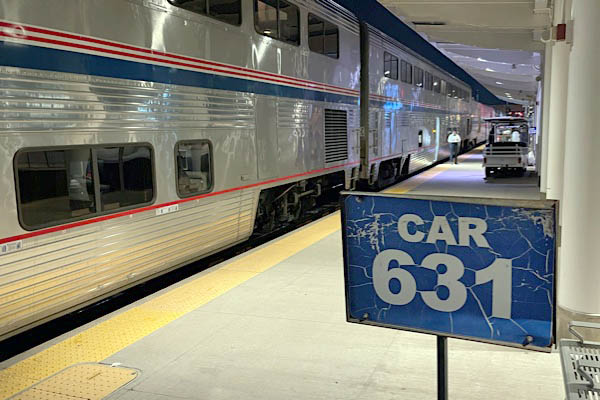
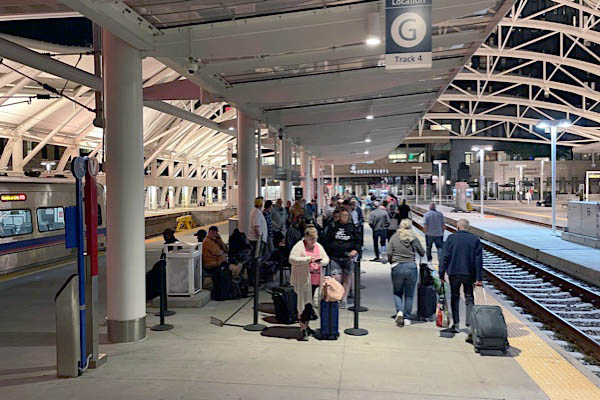
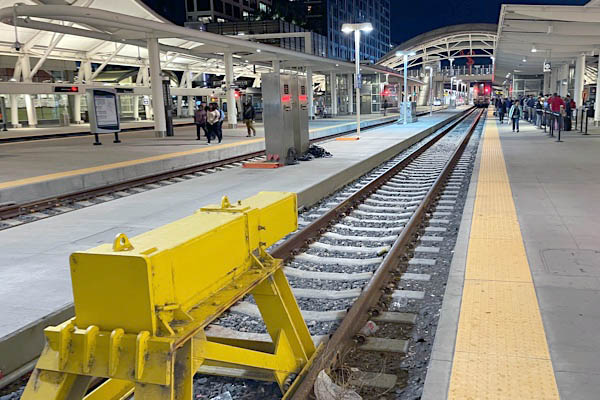
Denver, Co / Sep 2023 / RWH
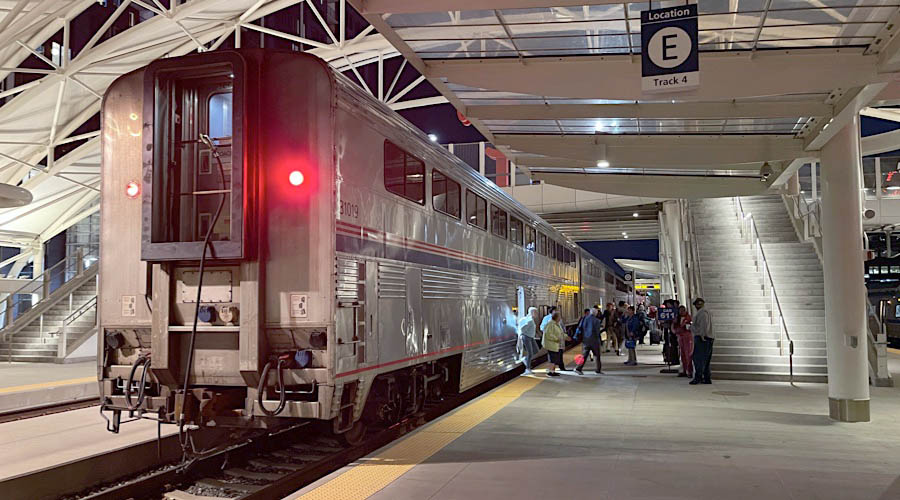
Denver, Co / Sep 2023 / RWH

Denver, Co / Sep 2023 / RWH

Sep 2023 / RWH
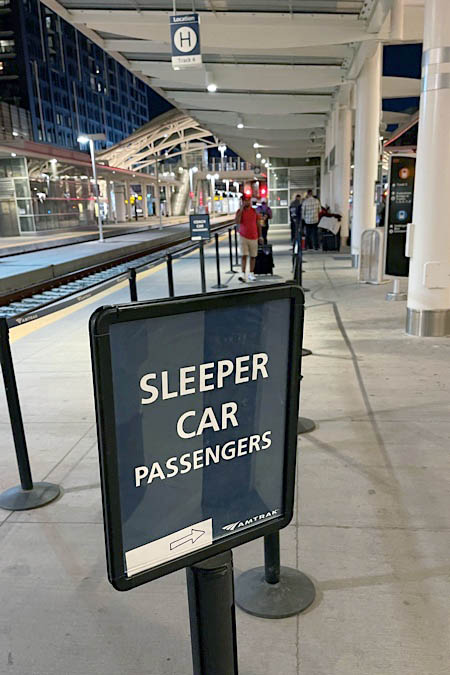
Sep 2023 / RWH
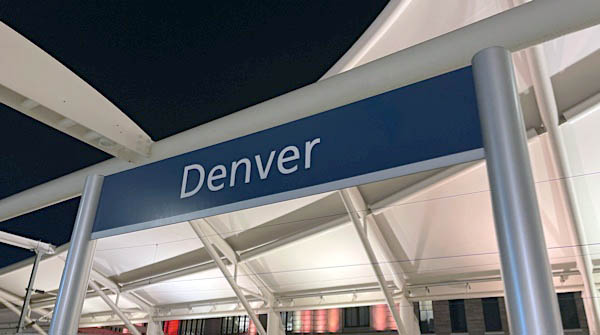
Sep 2023 / RWH
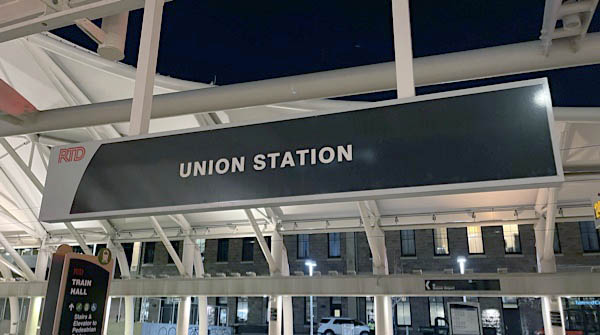
Sep 2023 / RWH
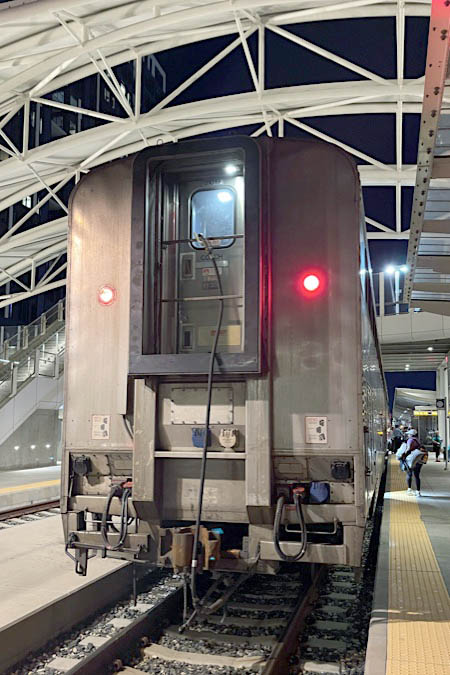
Sep 2023 / RWH
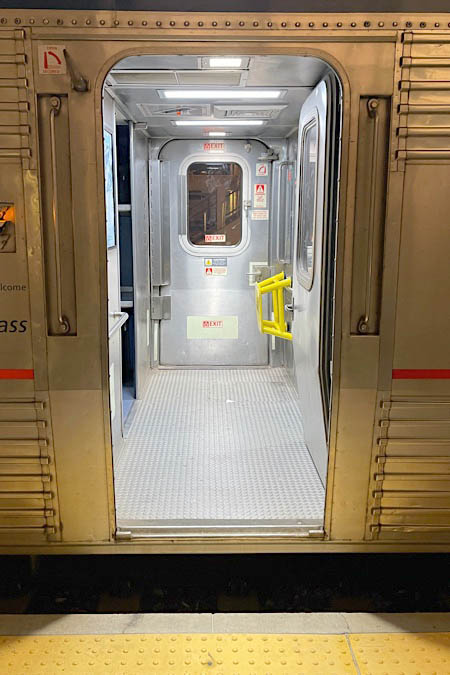
Sep 2023 / RWH
 Then and Now
Then and Now
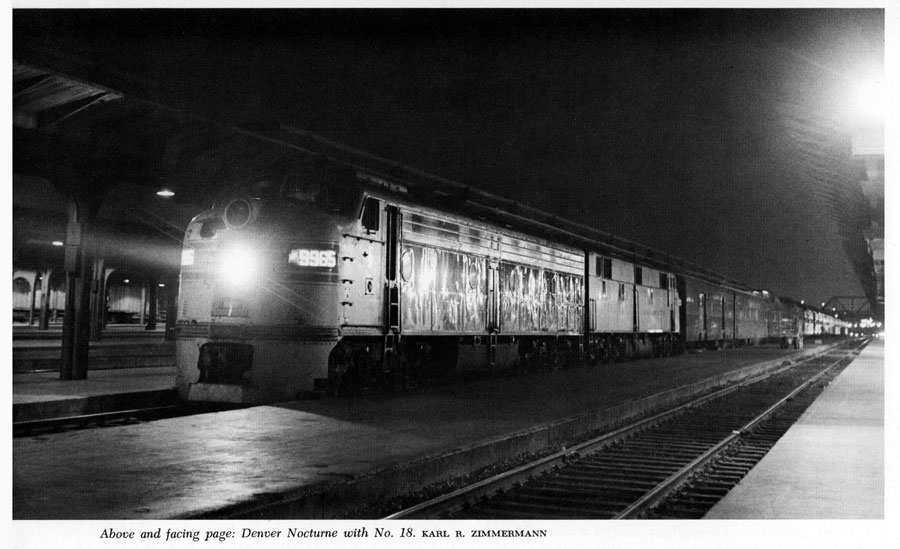
from The Story of the California Zephyr by Karl Zimmermann / collection
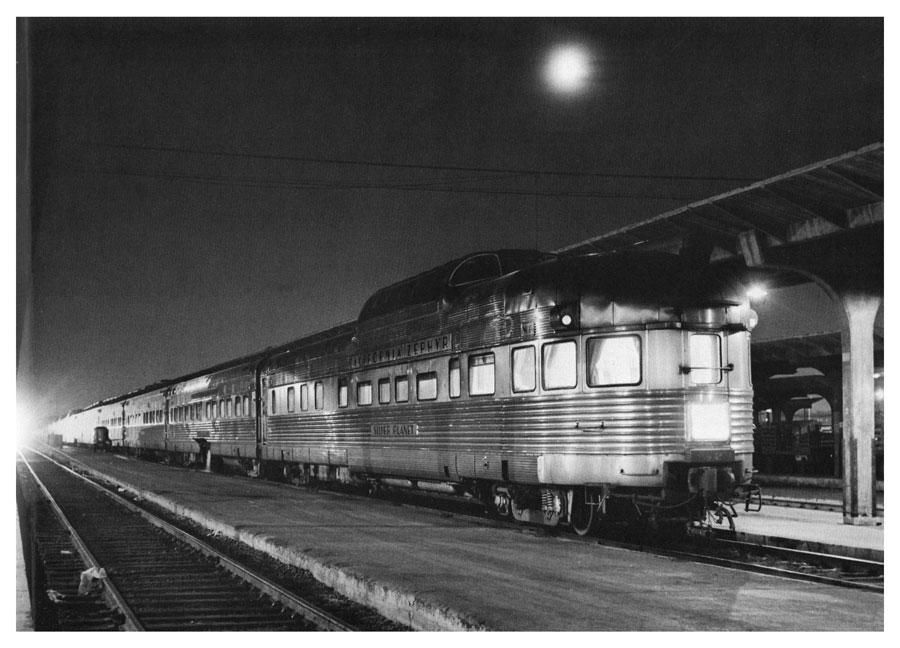
from The Story of the California Zephyr by Karl Zimmermann / collection
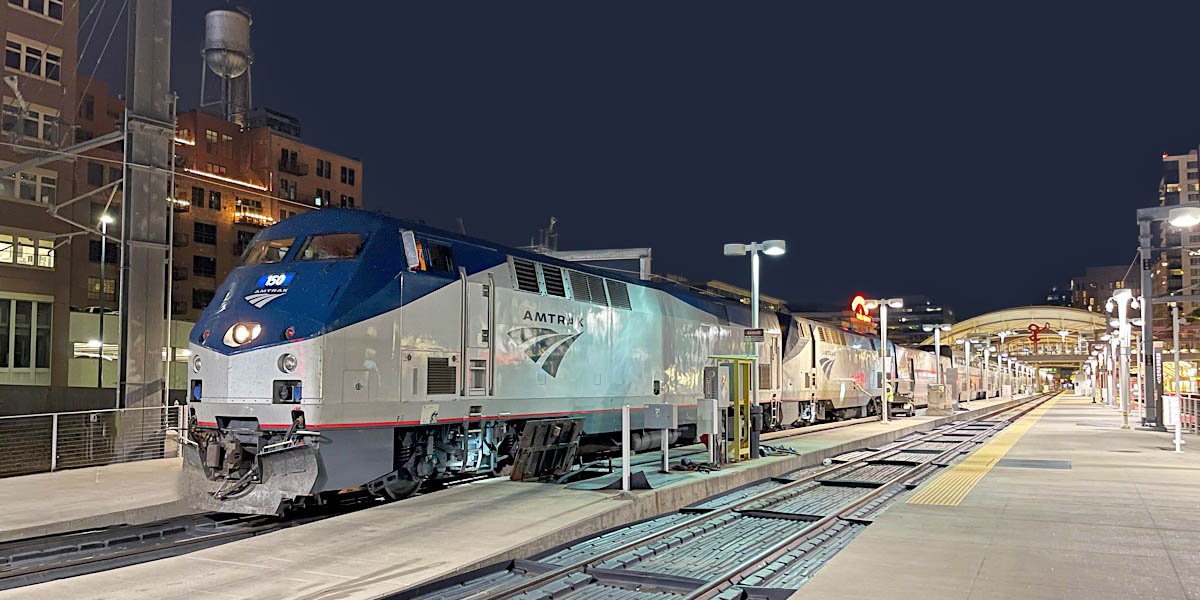
Denver, Co / Sep 2023 / RWH
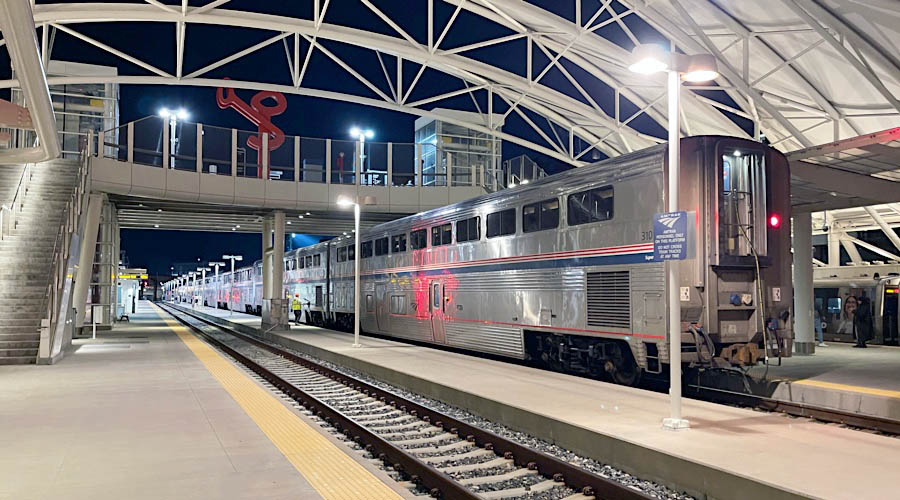
Denver, Co / Sep 2023 / RWH
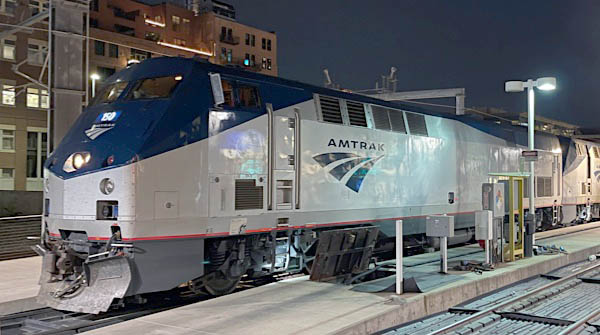
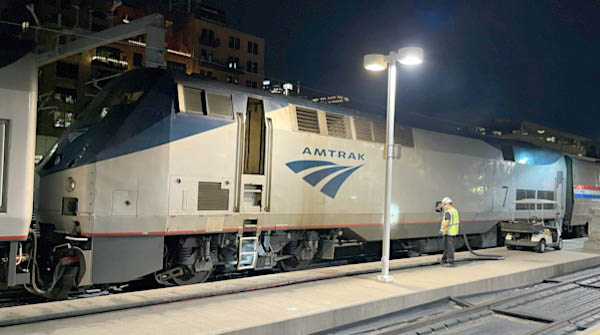
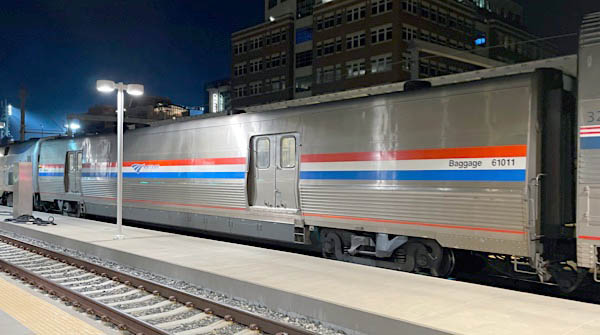
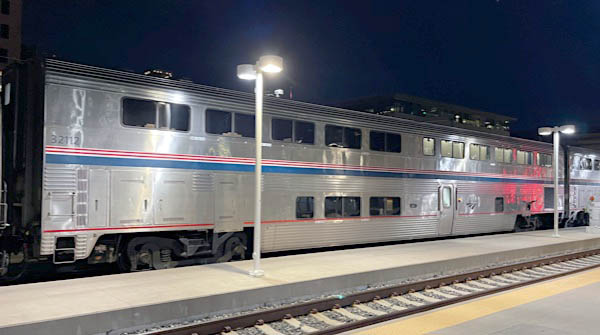
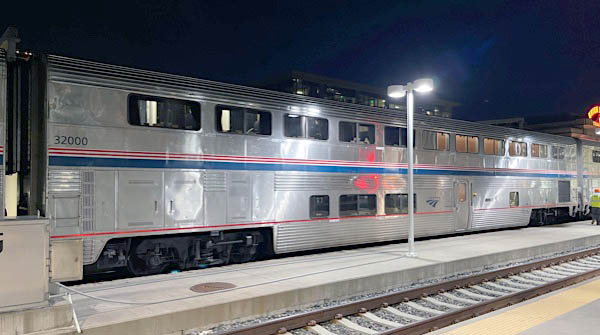
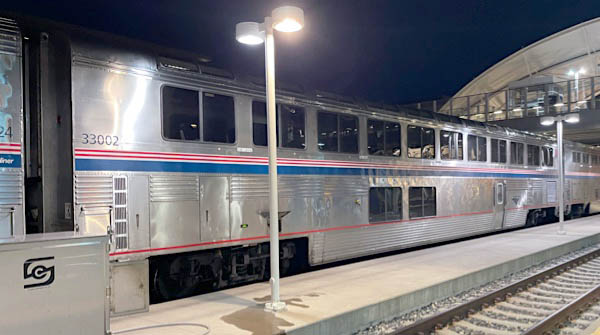
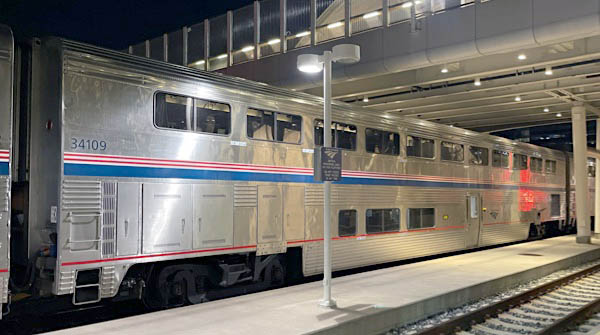
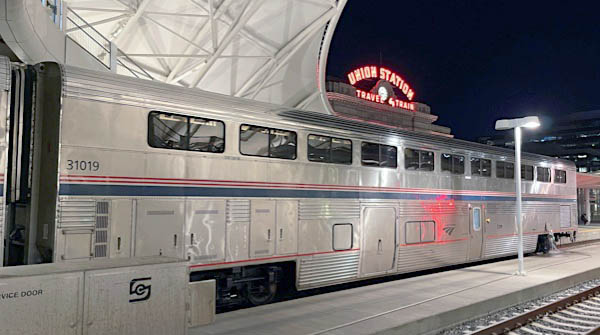
Denver, Co / Sep 2023 / RWH
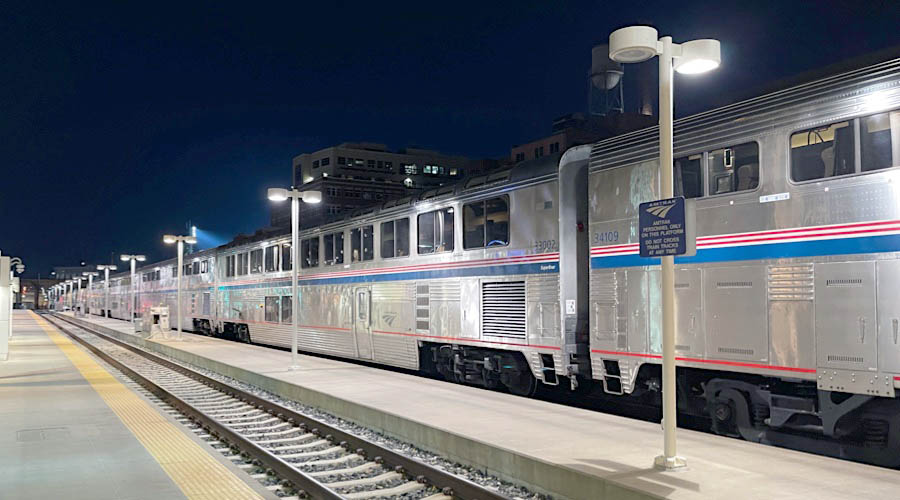
Denver, Co / Sep 2023 / RWH
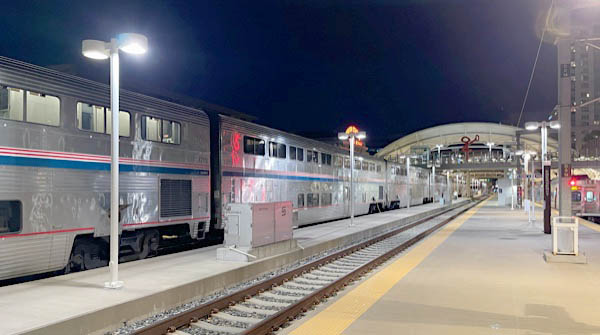
Denver, Co / Sep 2023 / RWH
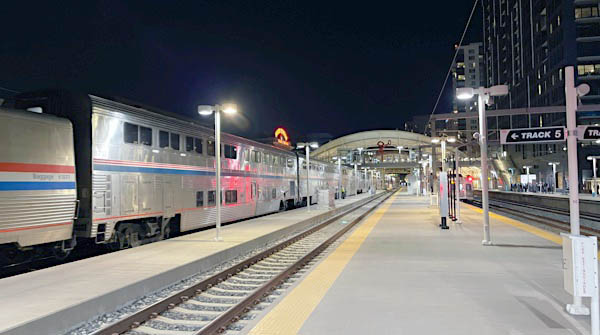
Denver, Co / Sep 2023 / RWH
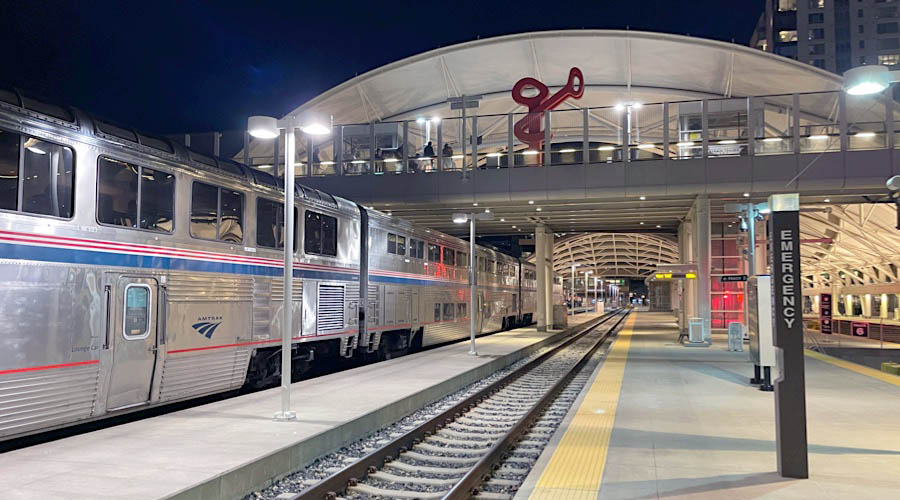
Denver, Co / Sep 2023 / RWH
 Front Range
Front Range
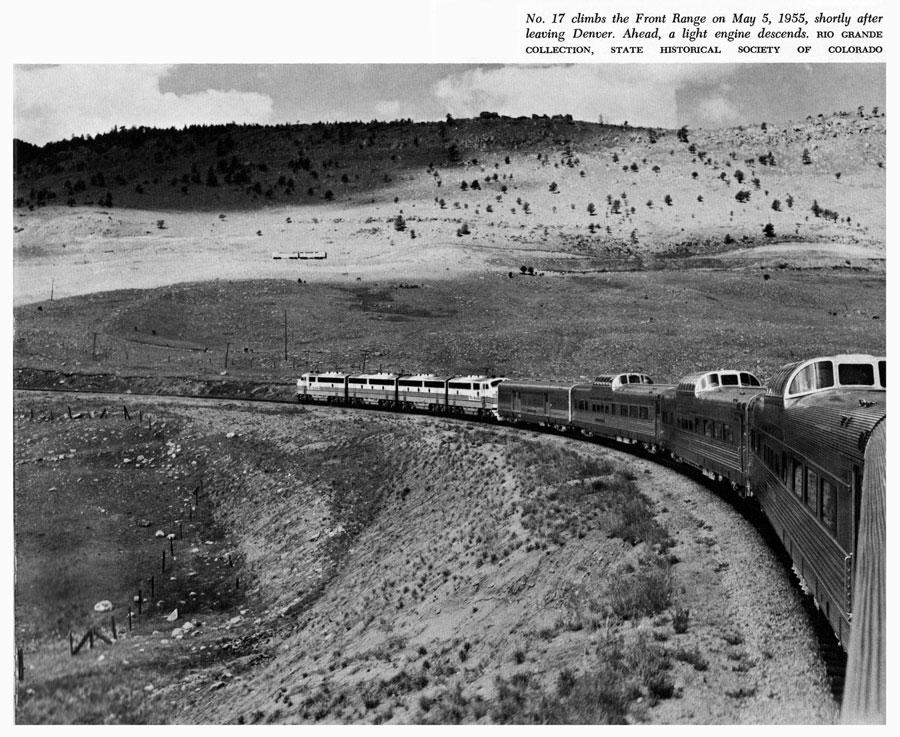
from The Story of the California Zephyr
by Karl Zimmermann / collection

eastbound #6
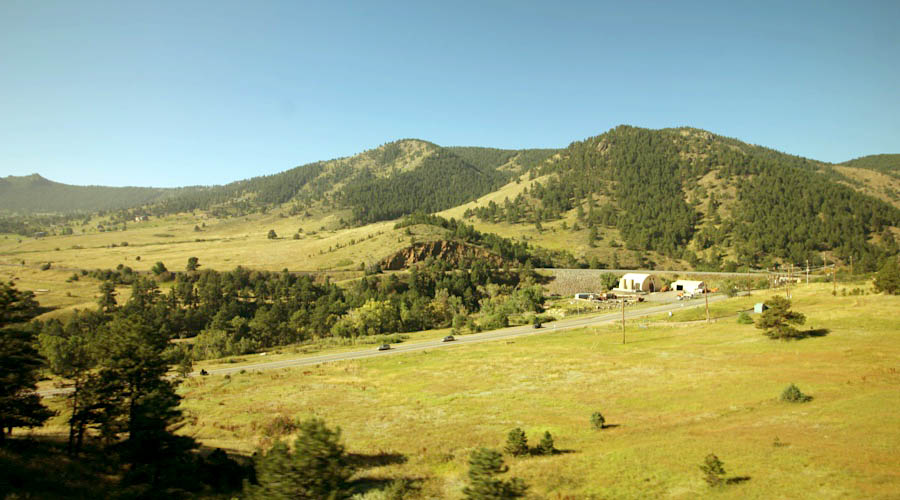
Leyden, Co / Sep 2023 / RWH
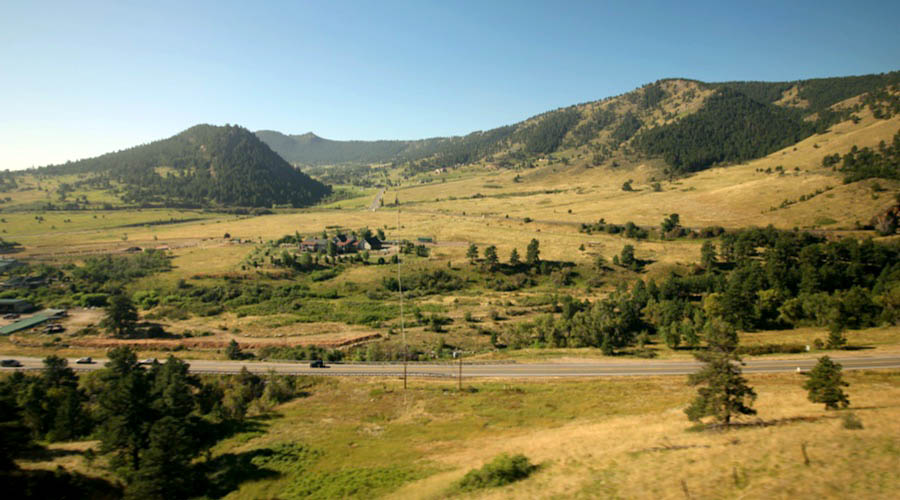
Leyden, Co / Sep 2023 / RWH
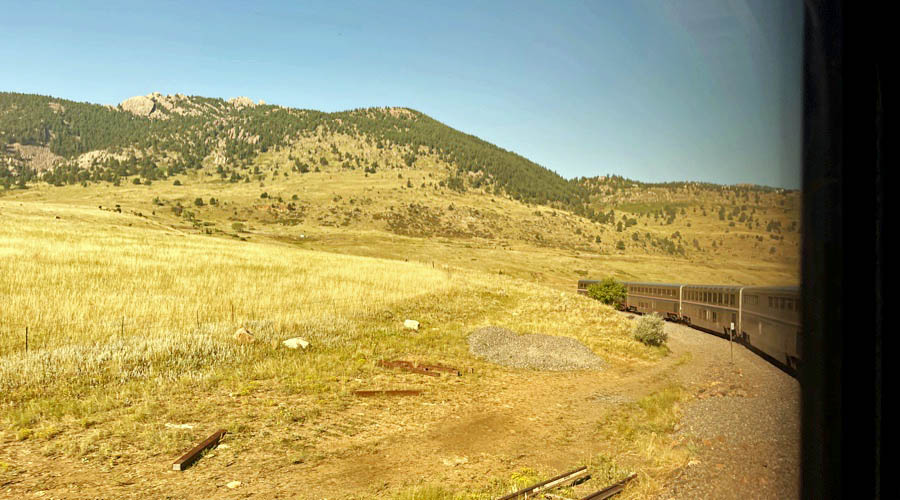
Leyden, Co / Sep 2023 / RWH
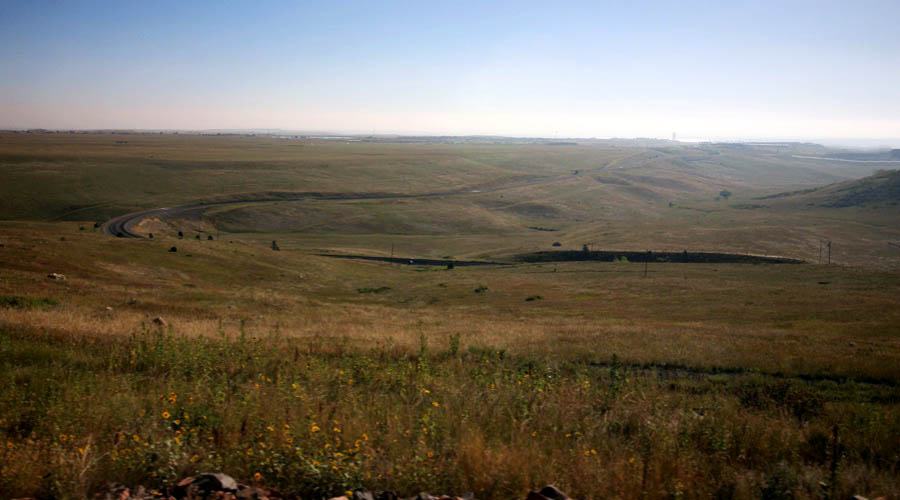
Arvada, Co / Sep 2023 / RWH

1967 brochure / collection
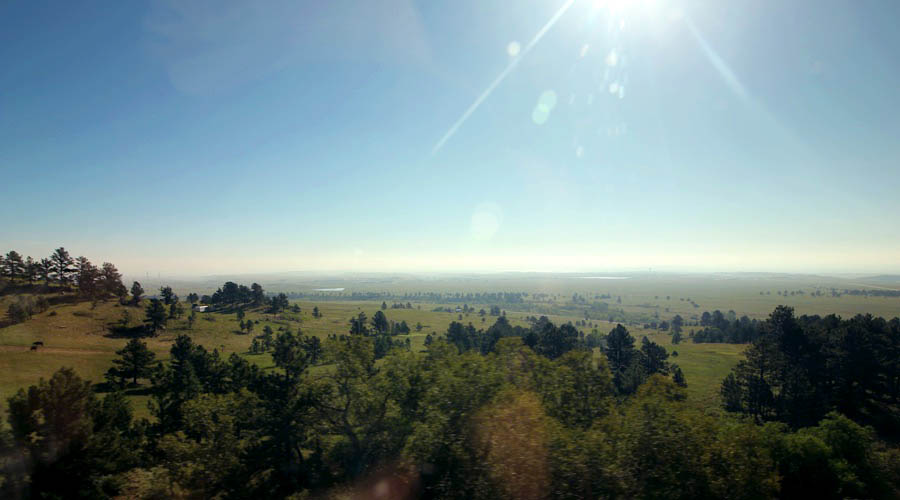
Plainview, Co / Sep 2023 / RWH
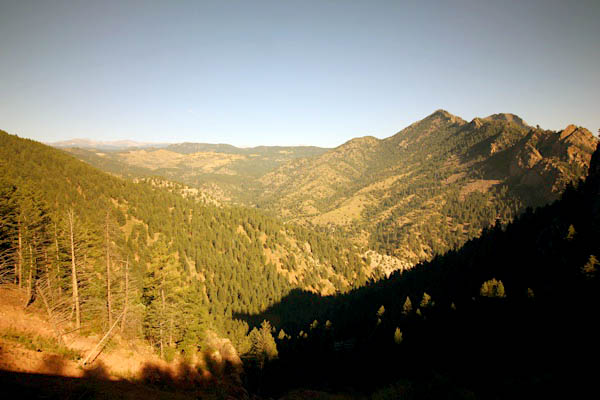
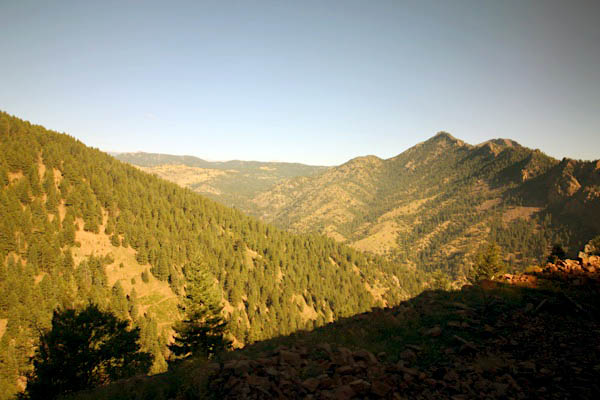
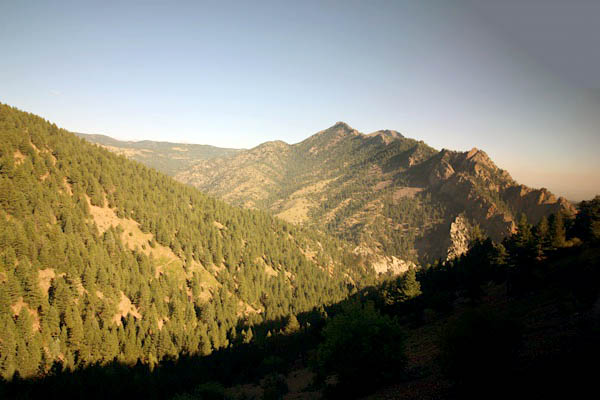
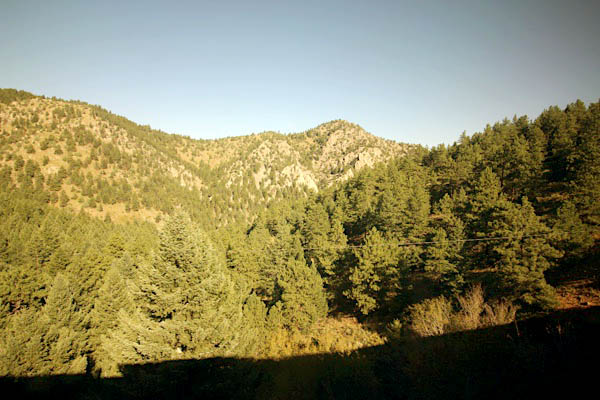
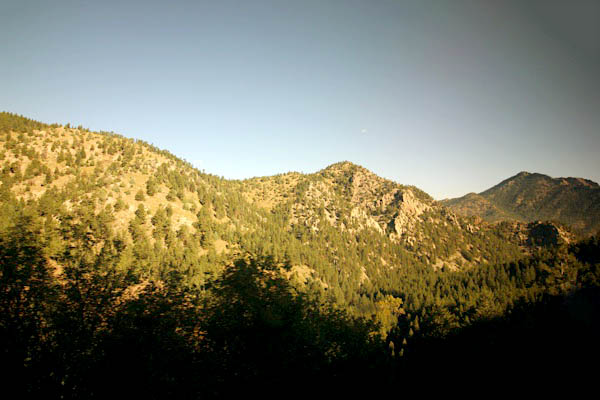
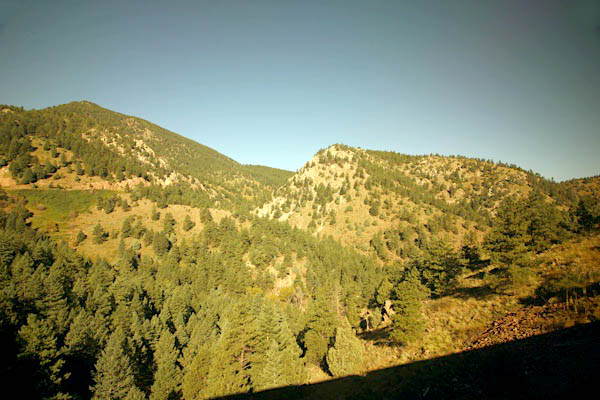
Plainview, Co / Sep 2023 / RWH
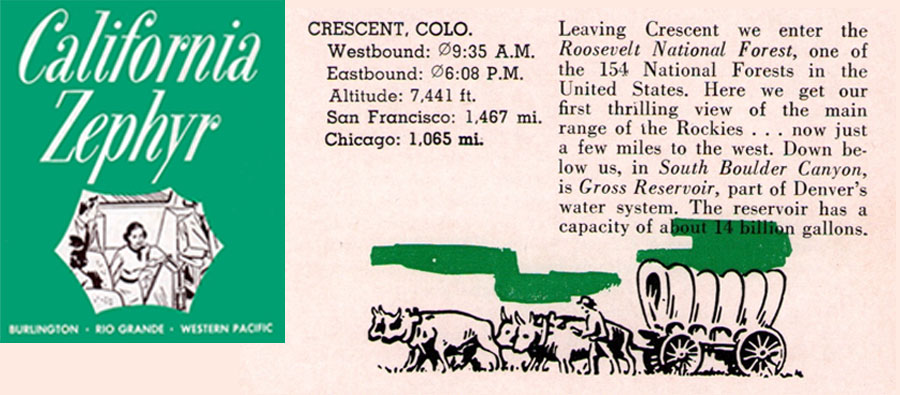
1967 brochure / collection
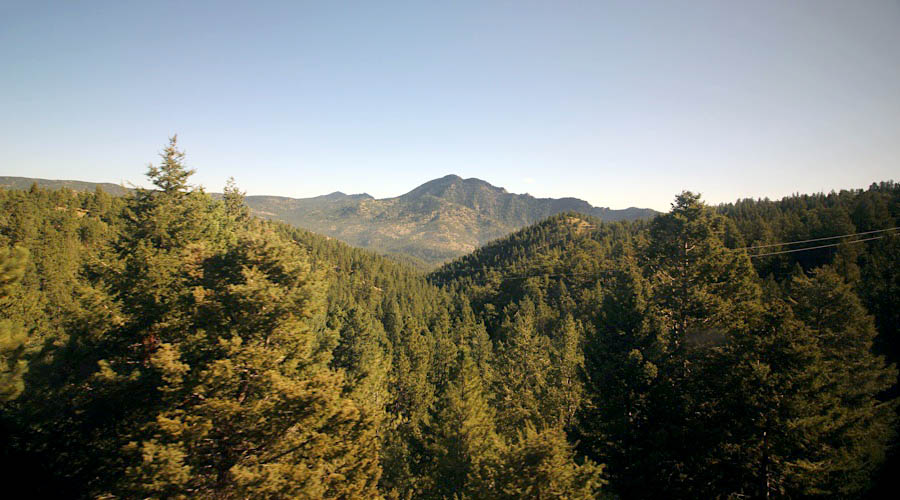
Crescent, Co / Sep 2023 / RWH
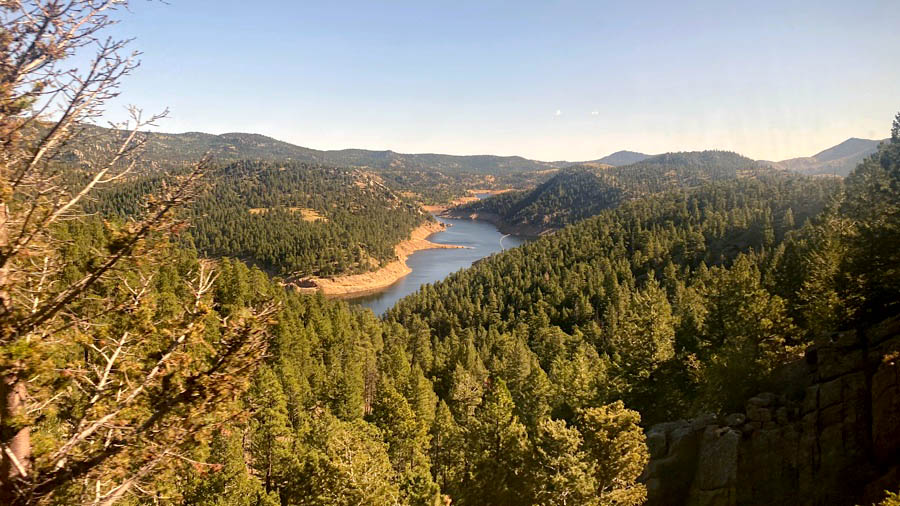
Miramonte, Co / Sep 2023 / RWH
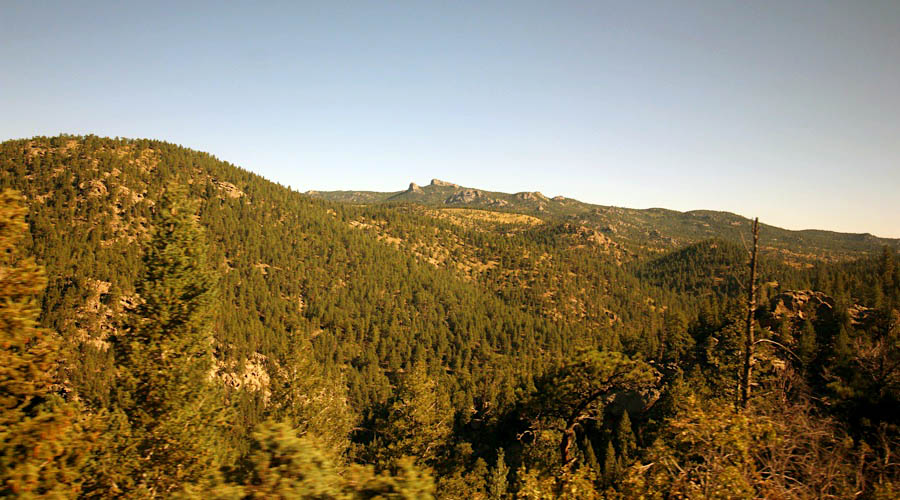
Pinecliffe, Co / Sep 2023 / RWH
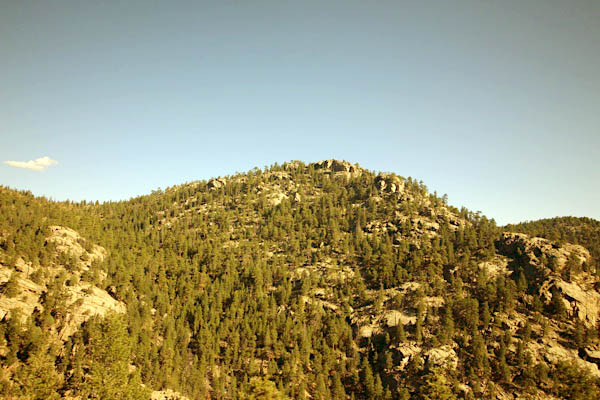
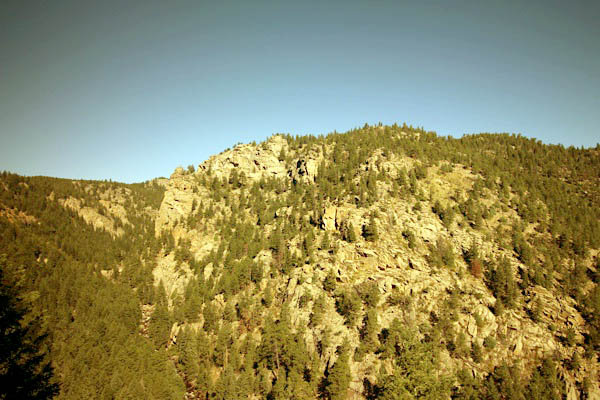
Pinecliffe, Co / Sep 2023 / RWH
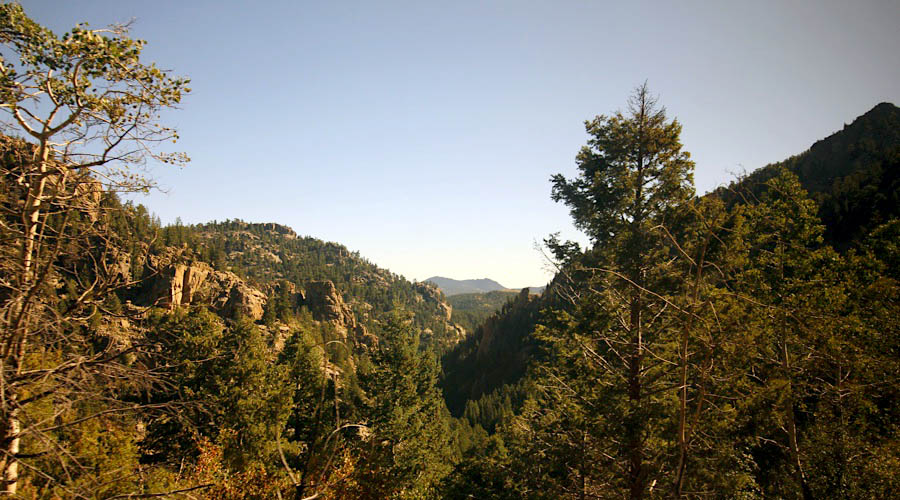
Pinecliffe, Co / Sep 2023 / RWH
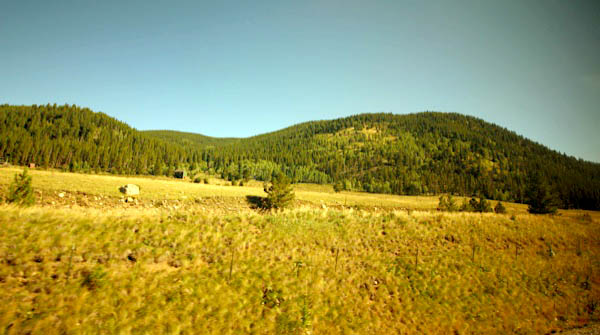
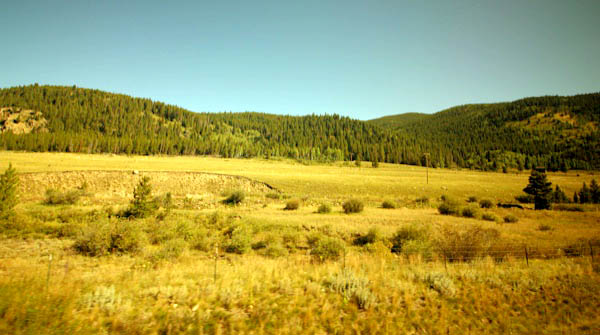
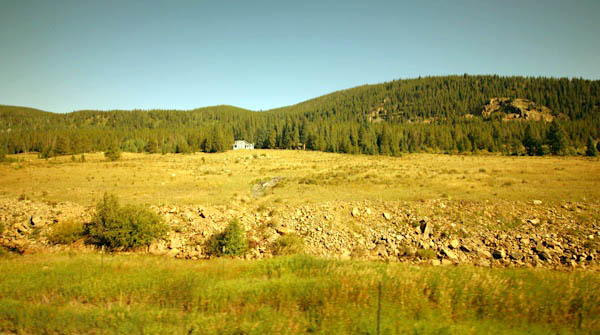
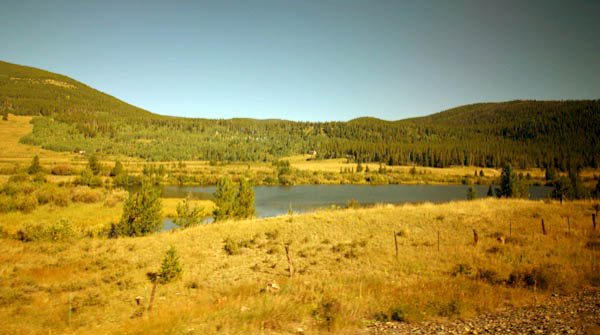
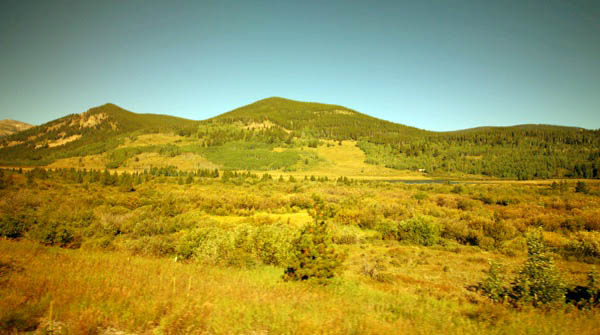
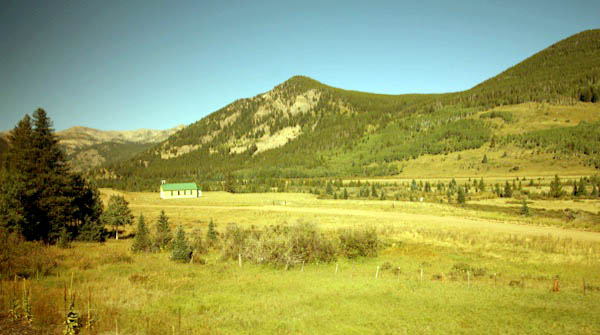
Tolland, Co / Sep 2023 / RWH
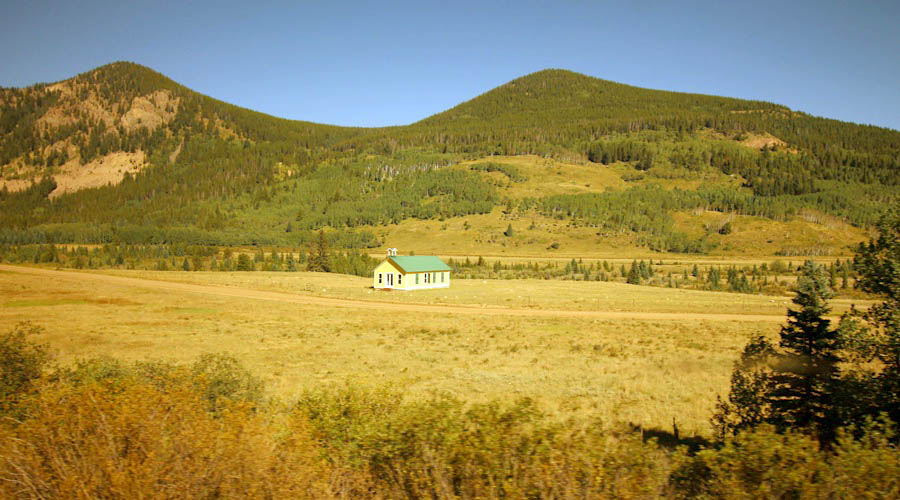
Tolland, Co / Sep 2023 / RWH
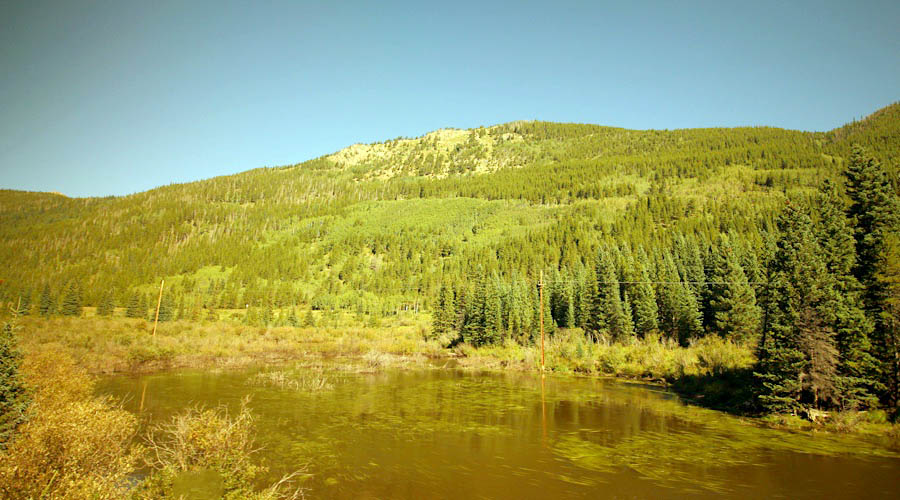
Tolland, Co / Sep 2023 / RWH
 Moffat Tunnel
Moffat Tunnel

1967 brochure / collection
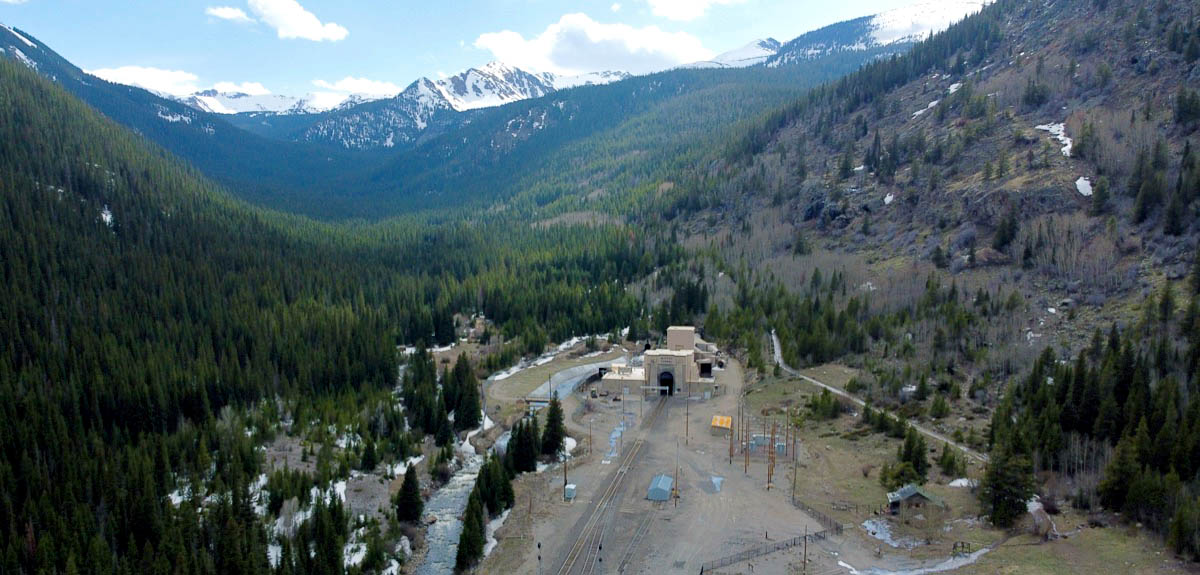
Tolland, Co / May 2023 / RWH
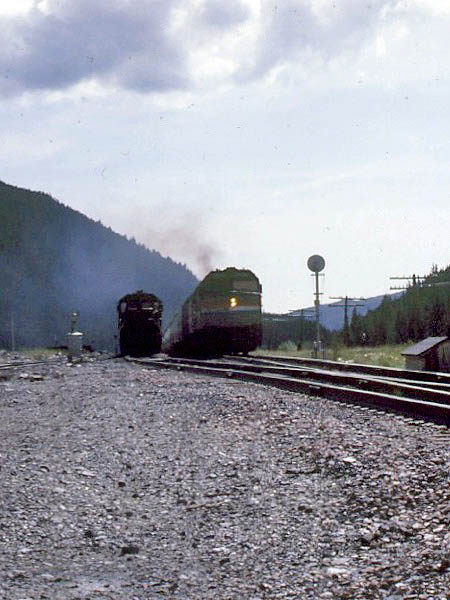
Sep 1984 / Mitch Cline
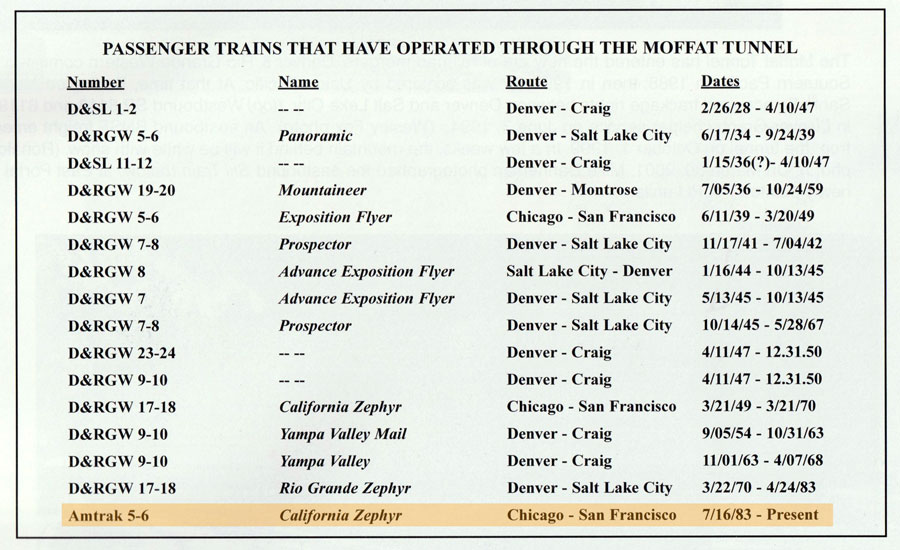
from The Moffat Tunnel: A Brief History - Albi and Forrest / collection
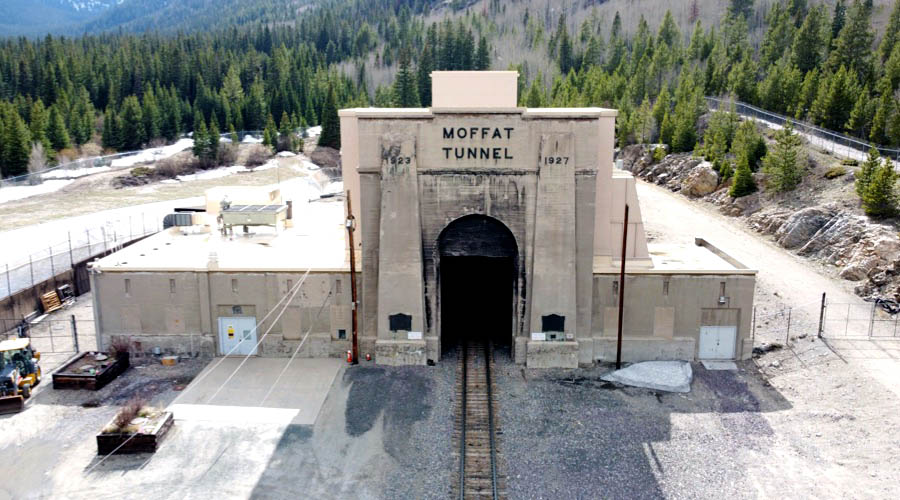
Tolland, Co / May 2023 / RWH

See also our complete Moffat Tunnel East Portal scrapbook in Preservation

eastbound
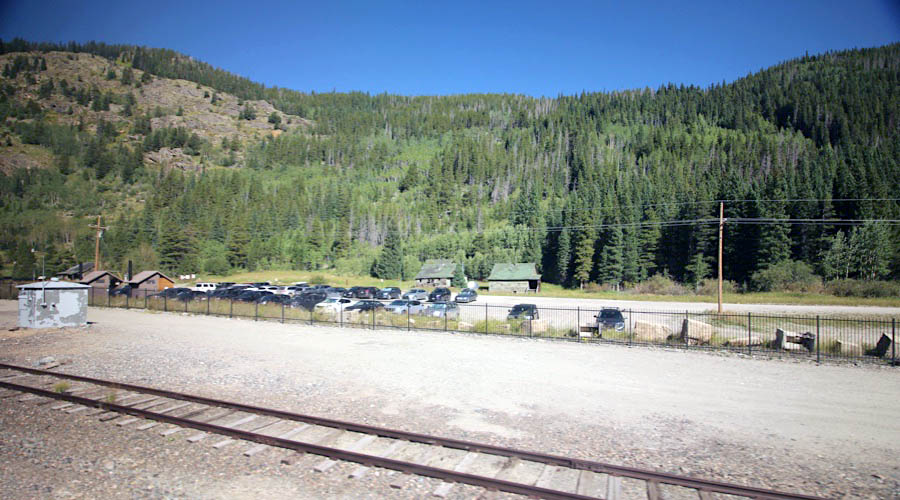
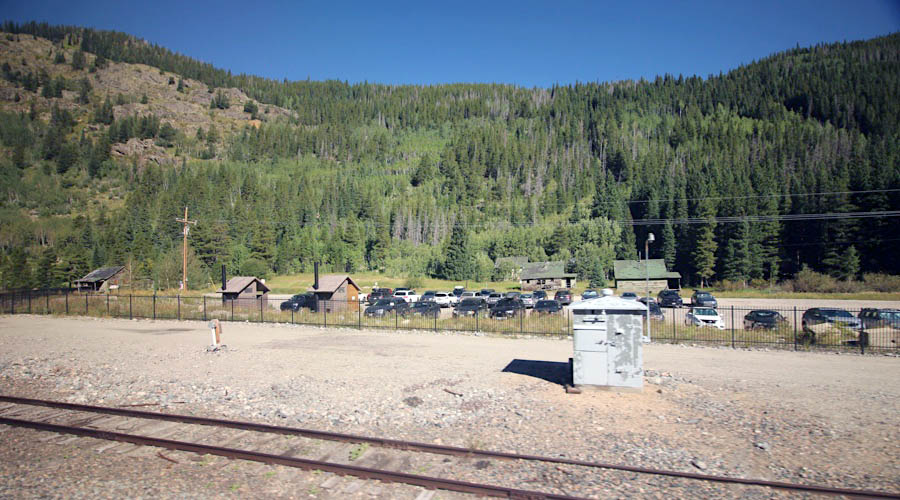
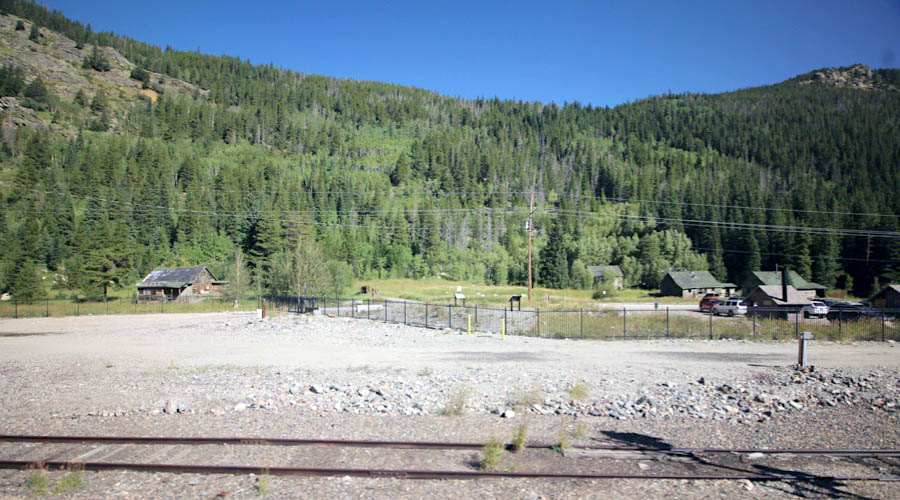
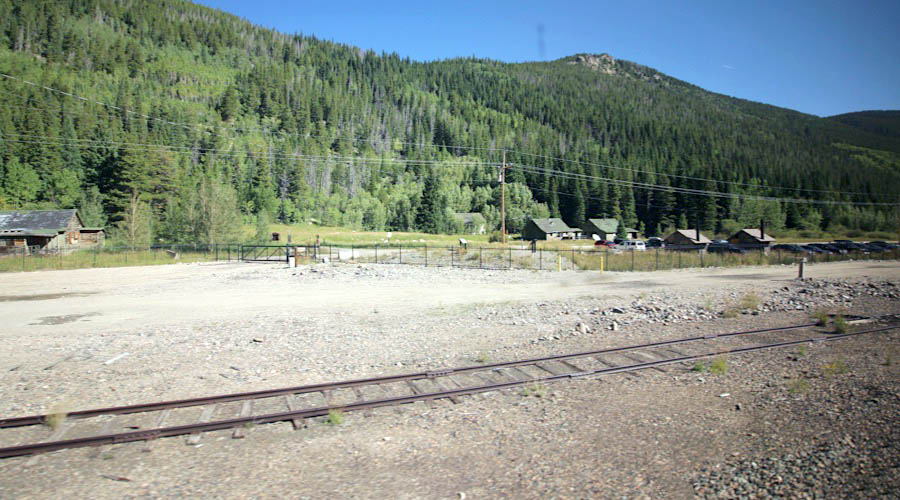
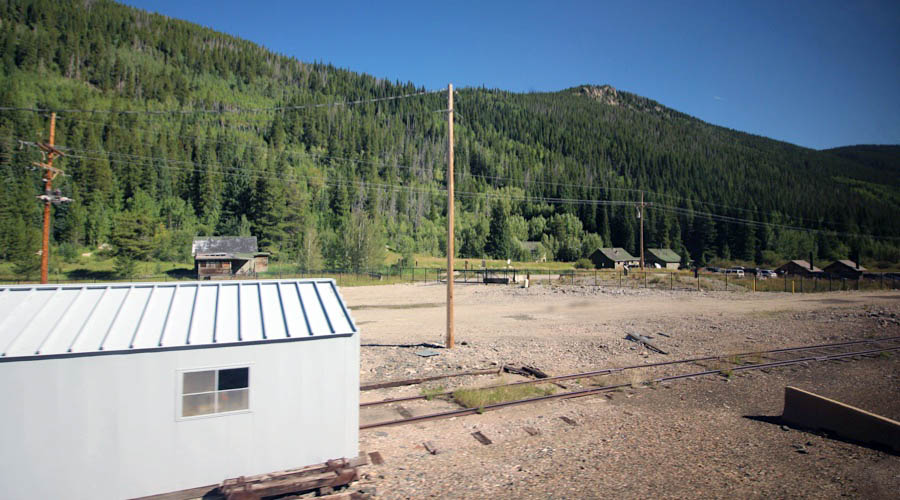
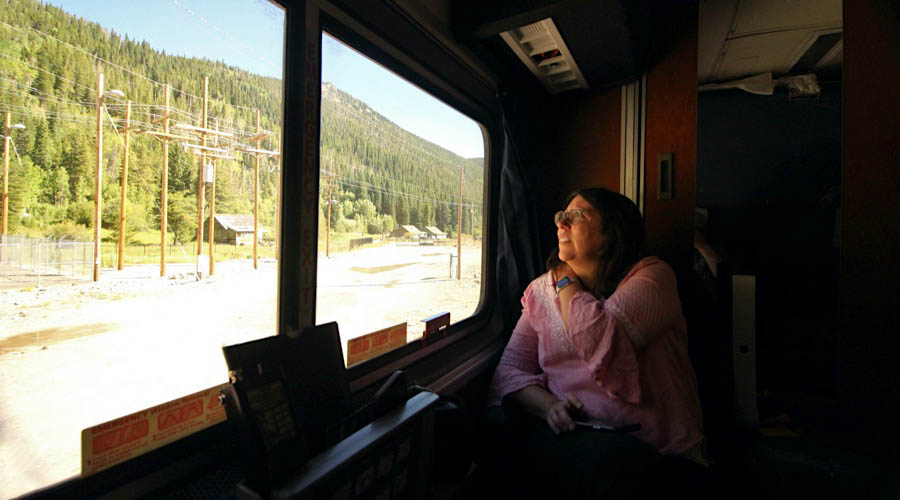
Tolland, Co / Sep 2023 / RWH
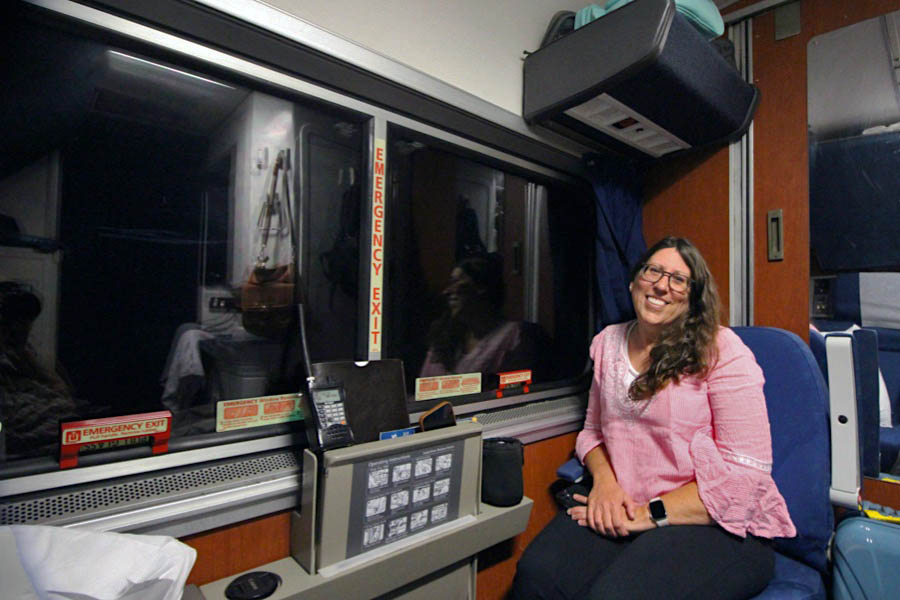
Tolland, Co / Sep 2023 / RWH
HawkinsRails thanks railfan photographer Derek Brown for sharing his beautiful photos

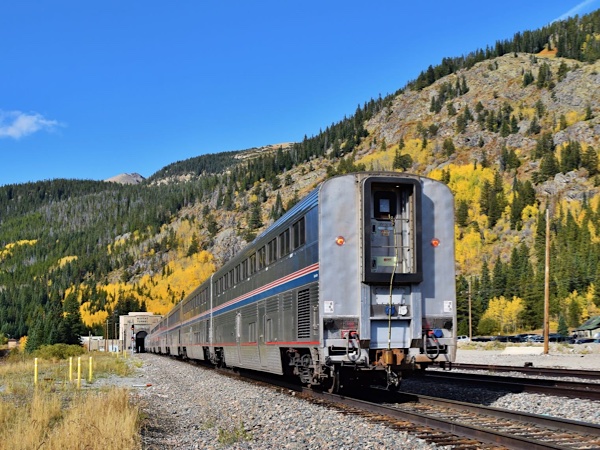
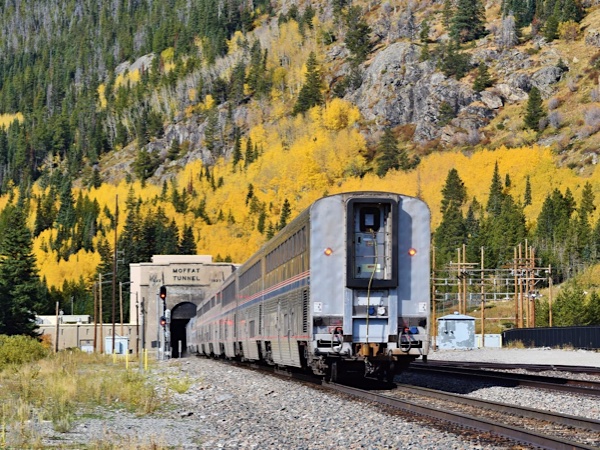
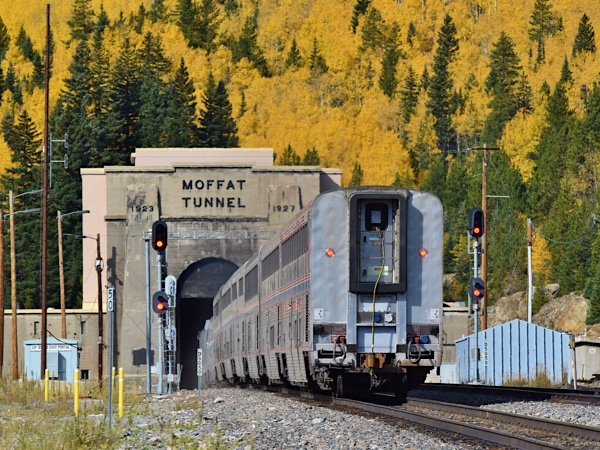
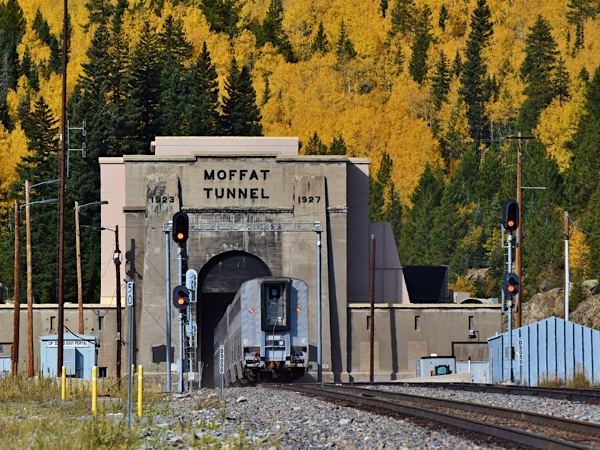
Tolland, Co / Sep 2023 / Derek Brown

Tolland, Co / Sep 2023 / Derek Brown

Winter Park, Co / Sep 2023 / RWH

Winter Park, Co / Sep 2023 / RWH
 Fraser / Winter Park, Co
Fraser / Winter Park, Co

1967 brochure / collection
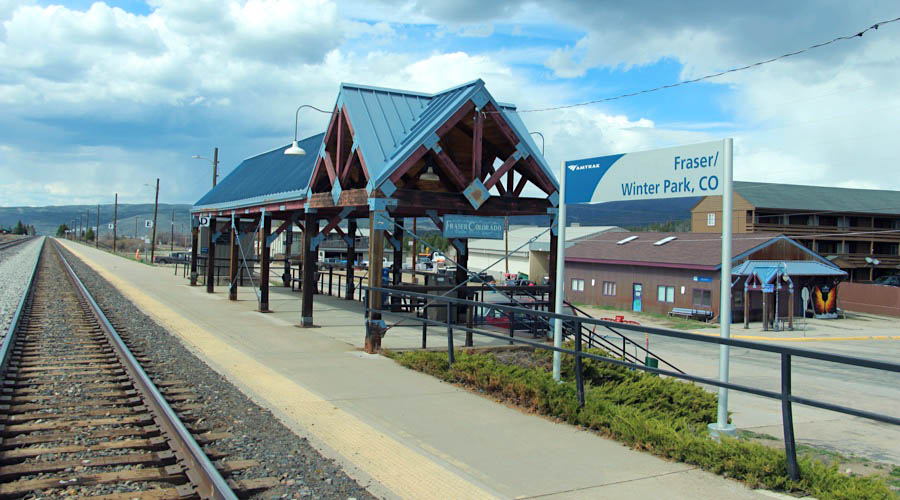
Fraser, Co / May 2023 / RWH

Click to see the Fraser / Winter Park depot area plotted on a Google Maps page
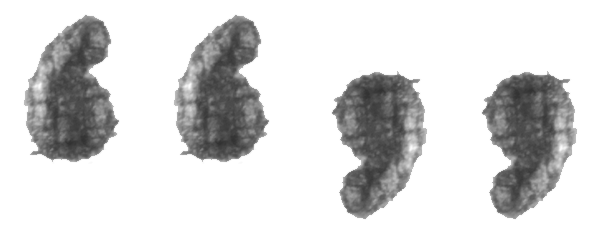
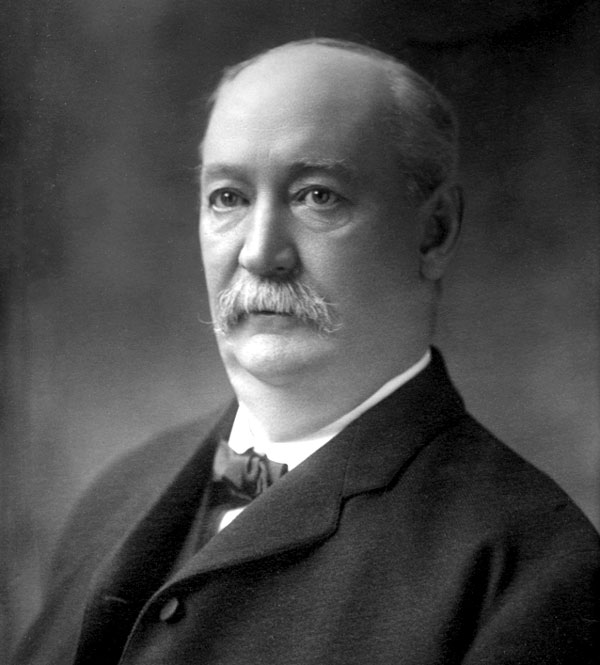 David Moffat was a wealthy Denver businessman who saw the need for a rail link between Denver and Salt Lake City. He funded the majority of the rail which went over the top of the Divide. This route over "The Top of The World" was an unbelievable feat for its day. It involved boring numerous tunnels through solid granite, as well as constructing precarious timbered trestles that bridged deep mountain gorges.
The remains of the roadbed comprise most of the popular summer driving route called the Moffat Road. The Needle's Eye tunnel, along the Moffat Road has collapsed; therefore, this route does not provide a vehicle connection to Rollinsville, Colorado. The Moffat Tunnel, a 6.2 mile long tunnel beneath the Continental Divide, made the link to Salt Lake City possible. Although Moffat died before the tunnel was complete, it was his effort to provide the link that made the tunnel completion a reality. The west portal of the Moffat Tunnel can be seen from the Winter Park Resort.
David Moffat was a wealthy Denver businessman who saw the need for a rail link between Denver and Salt Lake City. He funded the majority of the rail which went over the top of the Divide. This route over "The Top of The World" was an unbelievable feat for its day. It involved boring numerous tunnels through solid granite, as well as constructing precarious timbered trestles that bridged deep mountain gorges.
The remains of the roadbed comprise most of the popular summer driving route called the Moffat Road. The Needle's Eye tunnel, along the Moffat Road has collapsed; therefore, this route does not provide a vehicle connection to Rollinsville, Colorado. The Moffat Tunnel, a 6.2 mile long tunnel beneath the Continental Divide, made the link to Salt Lake City possible. Although Moffat died before the tunnel was complete, it was his effort to provide the link that made the tunnel completion a reality. The west portal of the Moffat Tunnel can be seen from the Winter Park Resort.
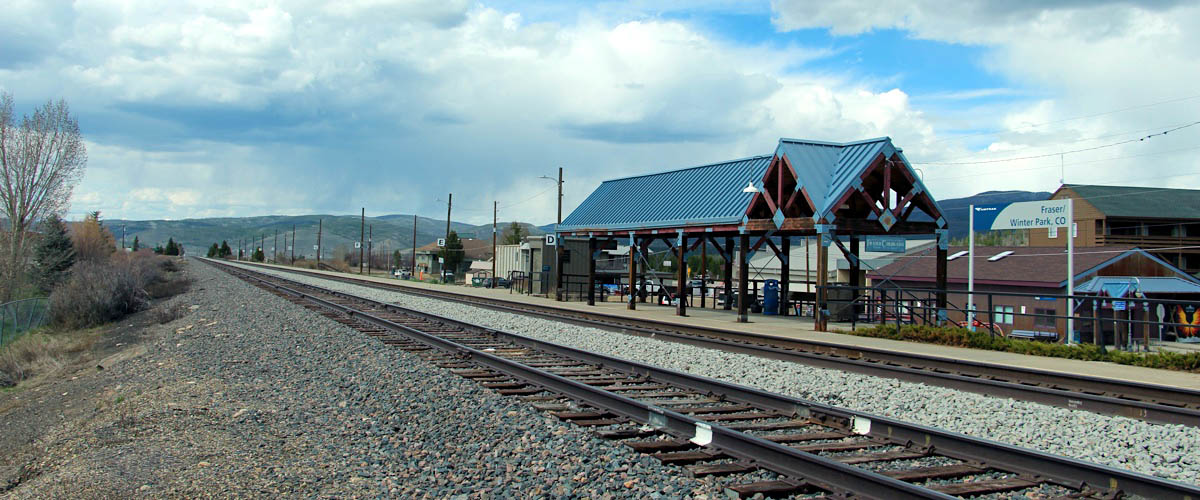
Fraser, Co / May 2023 / RWH
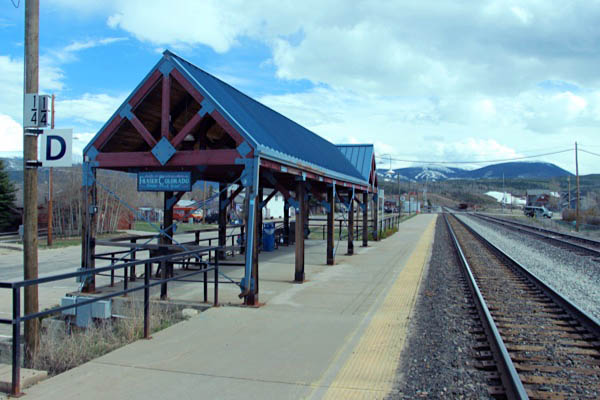
Fraser, Co / May 2023 / RWH
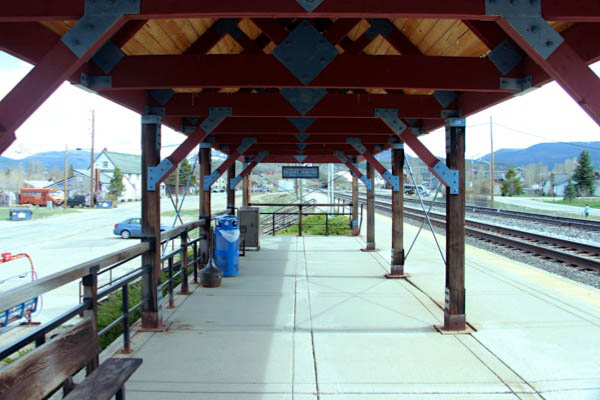
Fraser, Co / May 2023 / RWH
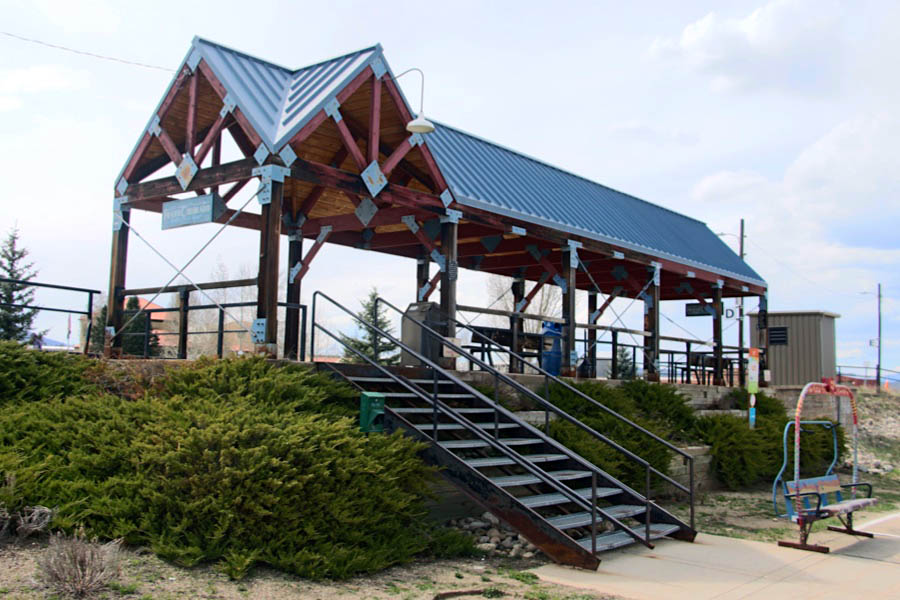
Fraser, Co / May 2023 / RWH
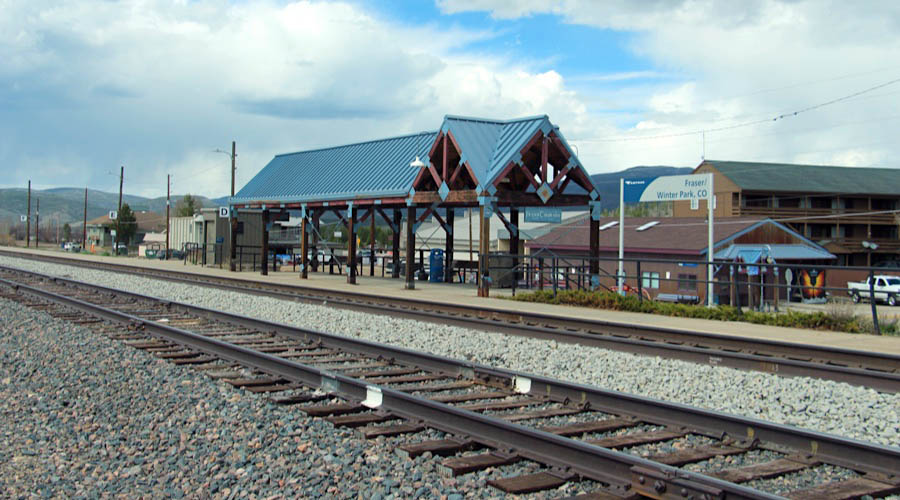
Fraser, Co / May 2023 / RWH
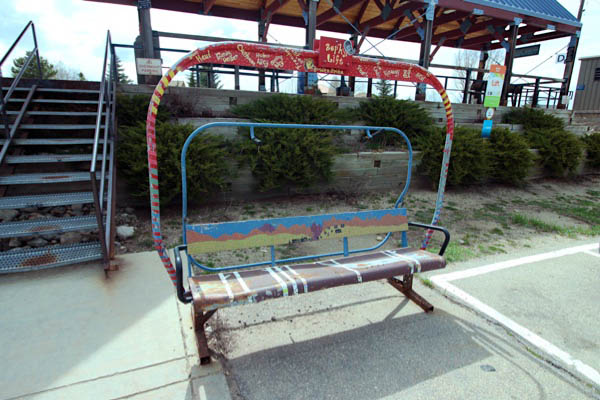
May 2023 / RWH
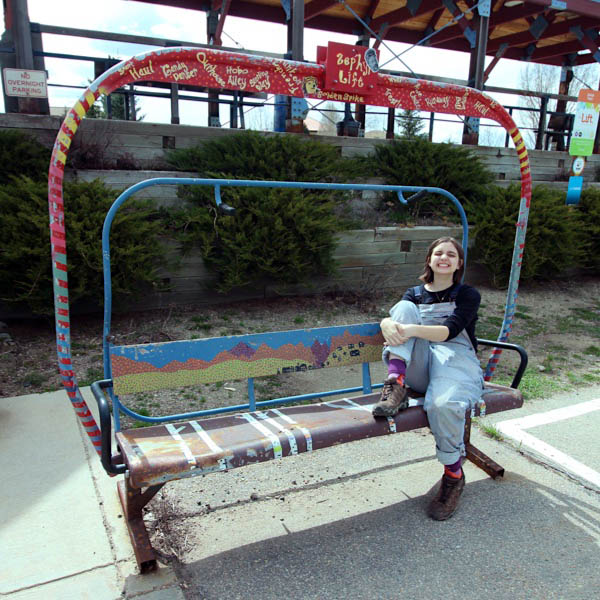
May 2023 / RWH
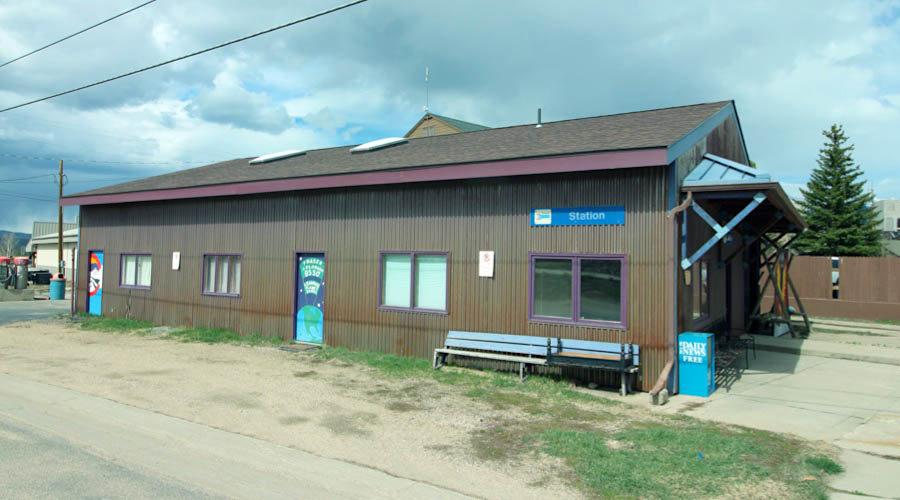
Fraser, Co / May 2023 / RWH
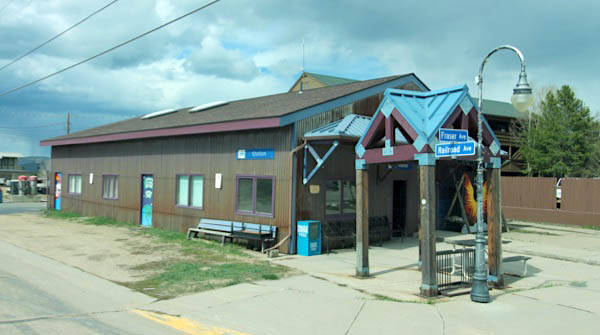
Fraser, Co / May 2023 / RWH
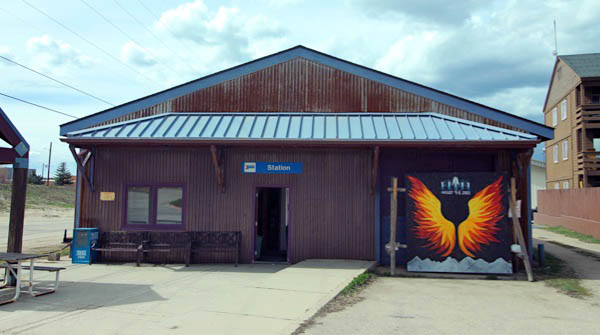
Fraser, Co / May 2023 / RWH
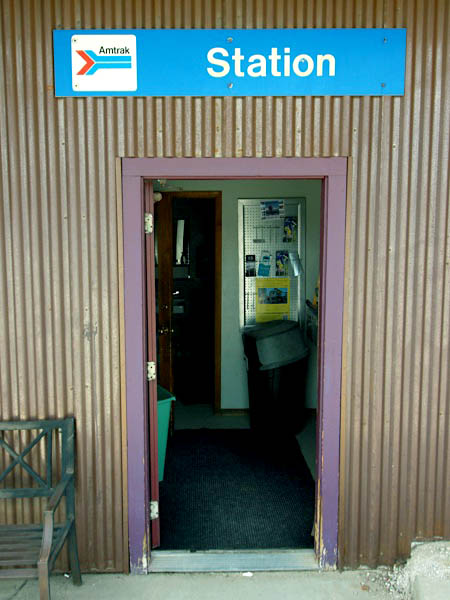
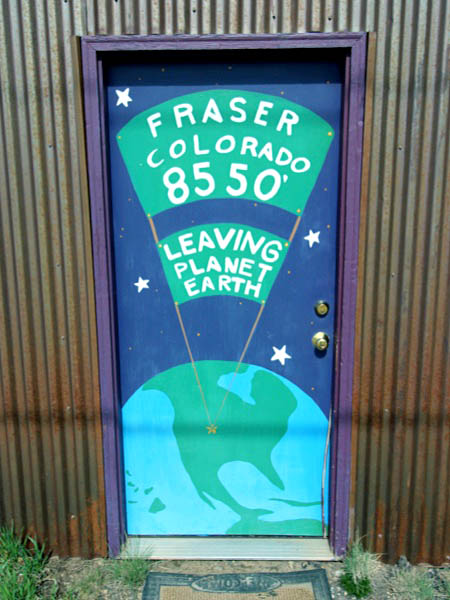
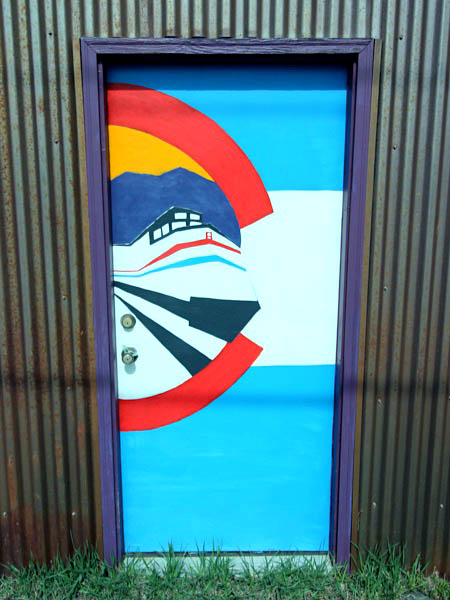
May 2023 / RWH
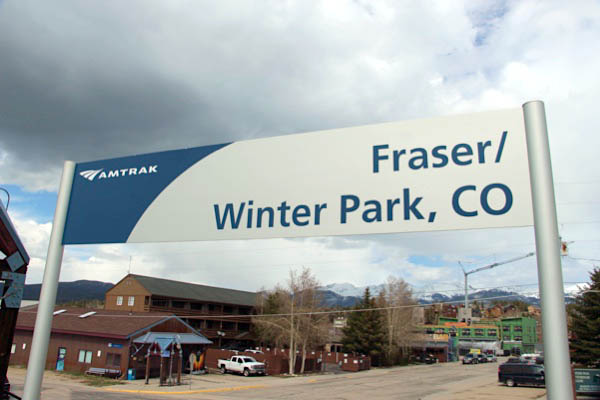
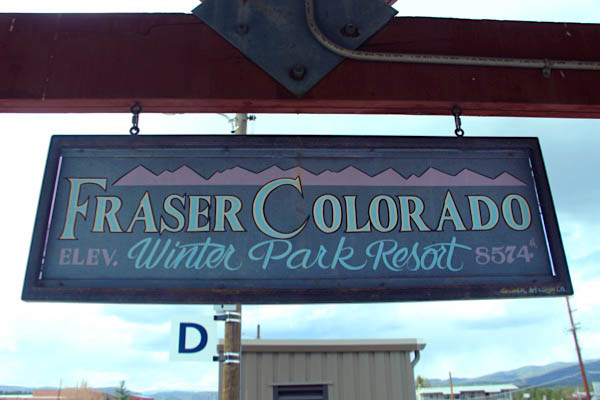
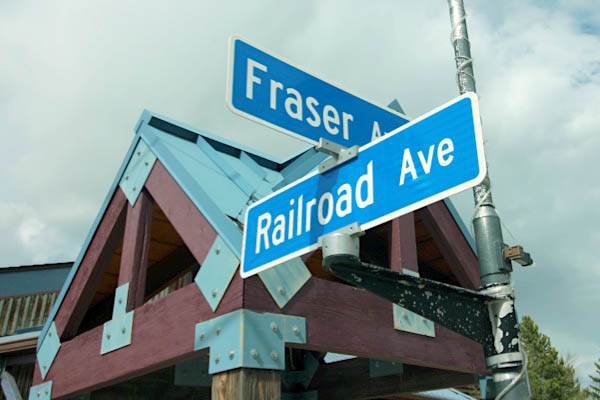
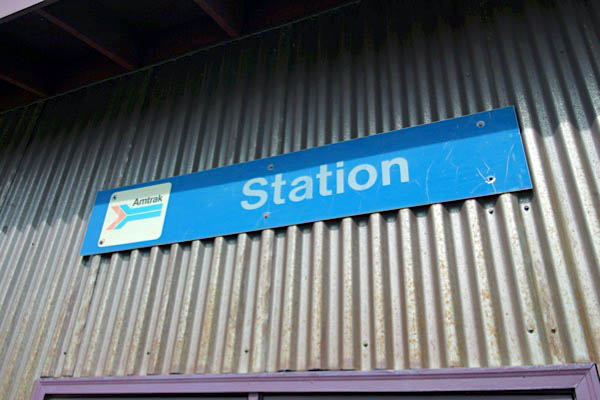
May 2023 / RWH
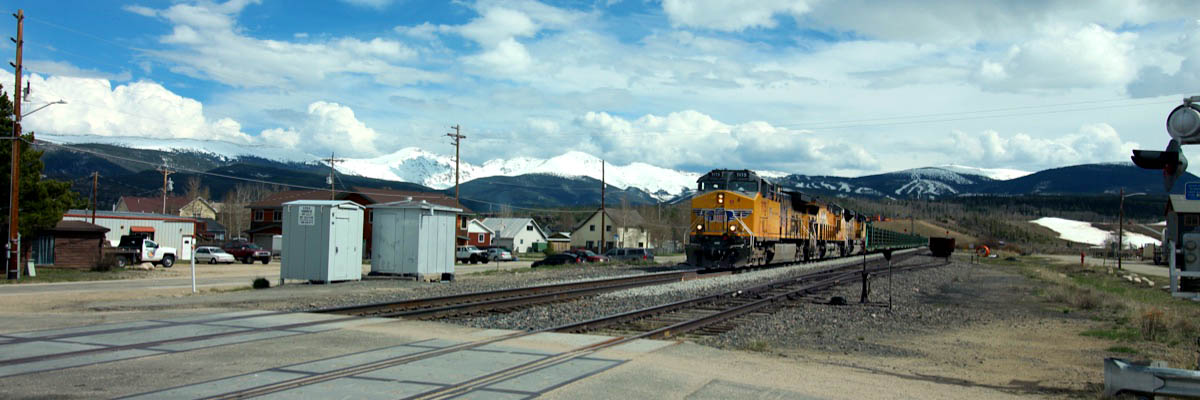
Fraser, Co / May 2023 / RWH

Click to see the Eisenhower Drive crossing plotted on a Google Maps page
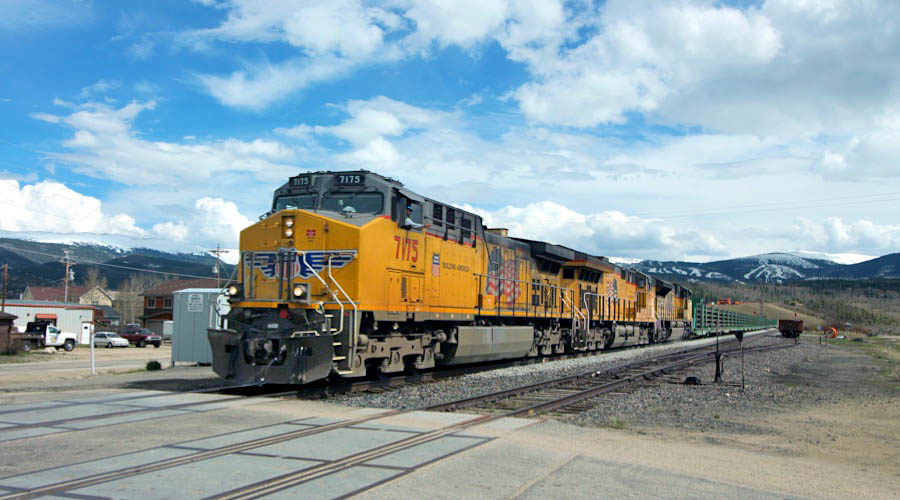
Fraser, Co / May 2023 / RWH
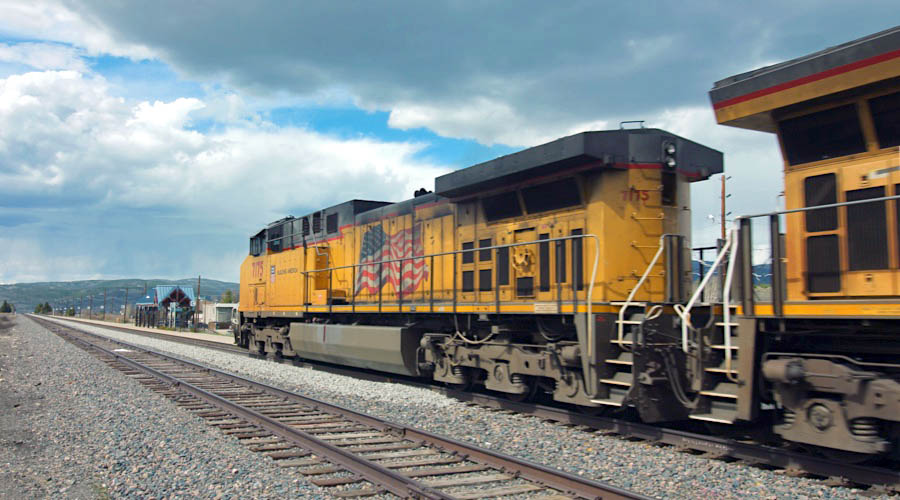
Fraser, Co / May 2023 / RWH
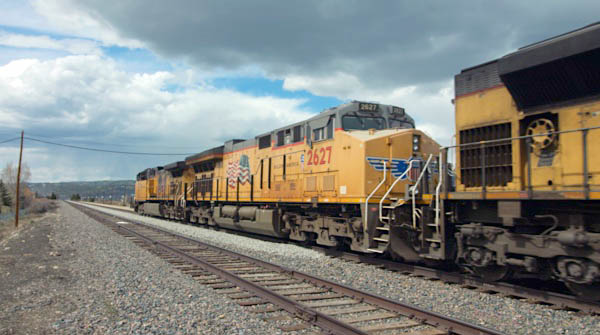
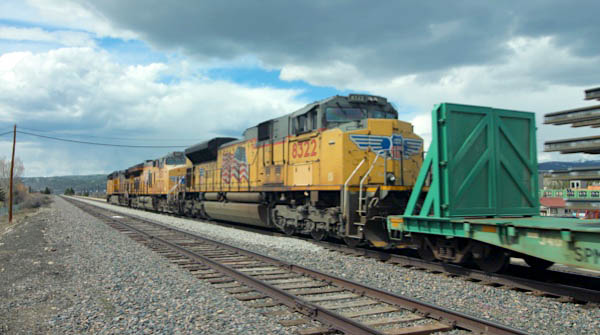
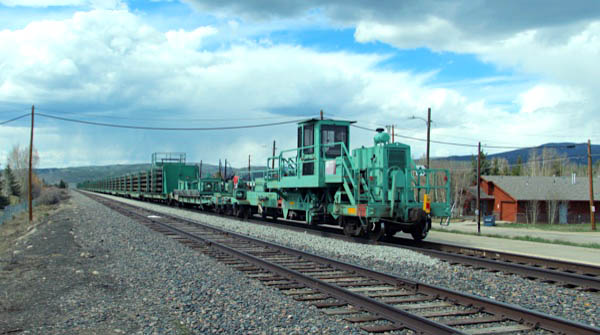
Fraser, Co / May 2023 / RWH

eastbound
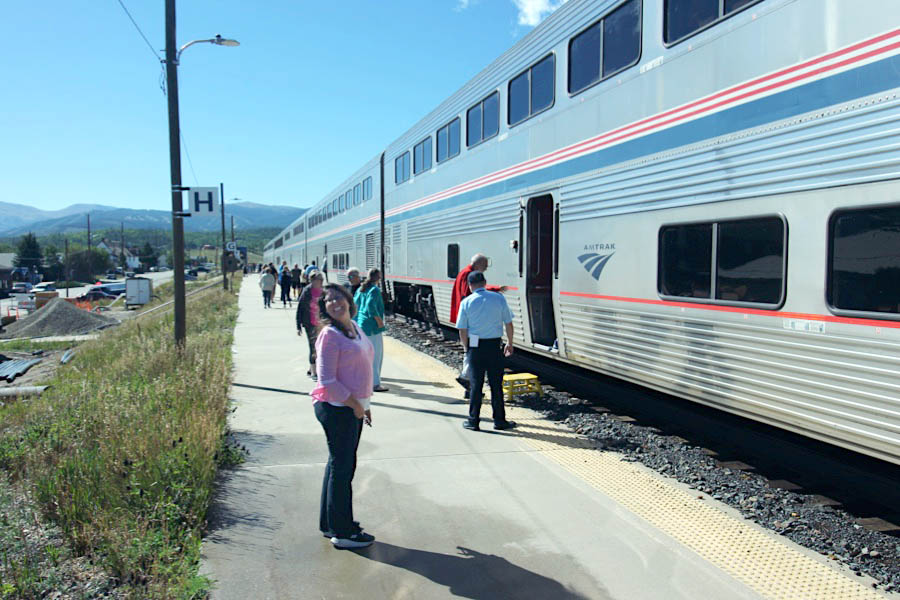
Fraser, Co / Sep 2023 / RWH
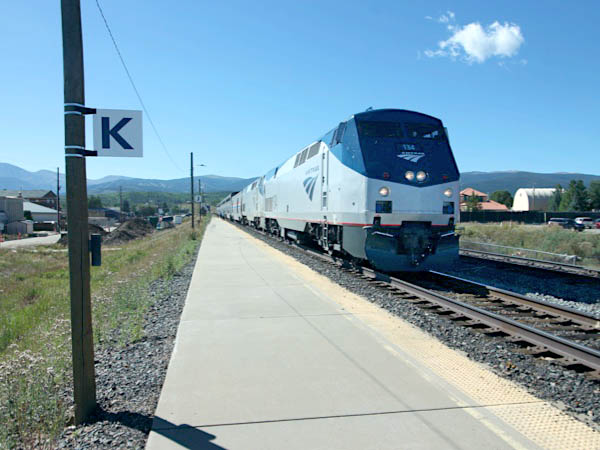
Fraser, Co / Sep 2023 / RWH
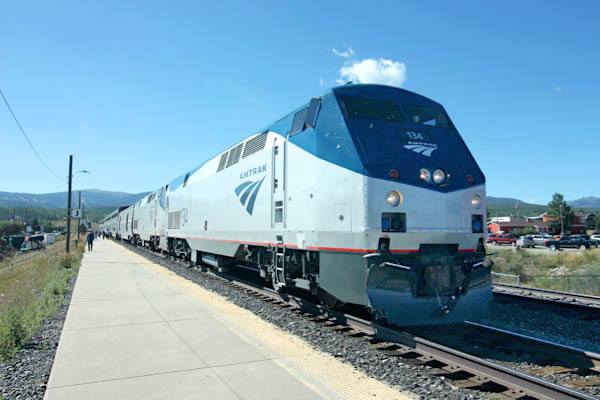
Fraser, Co / Sep 2023 / RWH
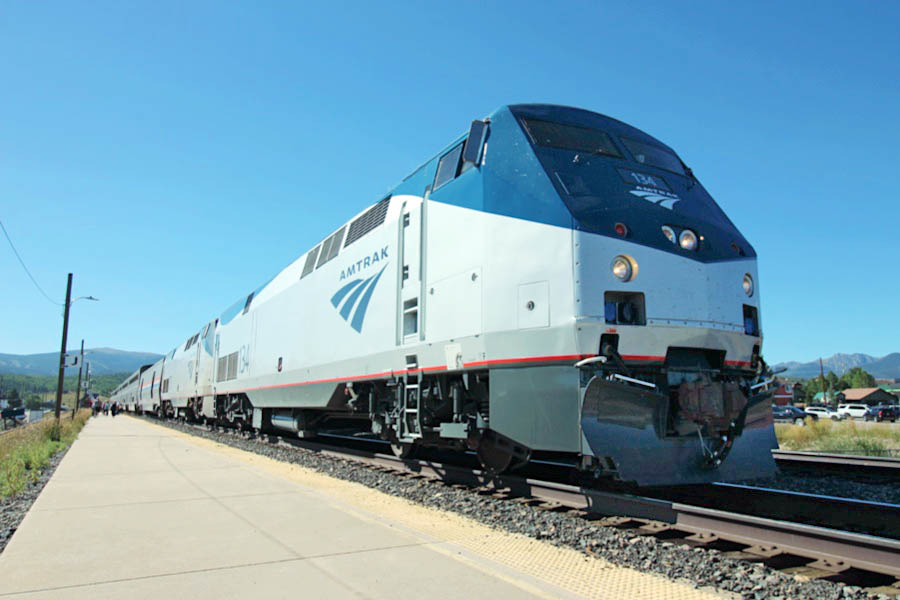
Fraser, Co / Sep 2023 / RWH
Amtrak #134
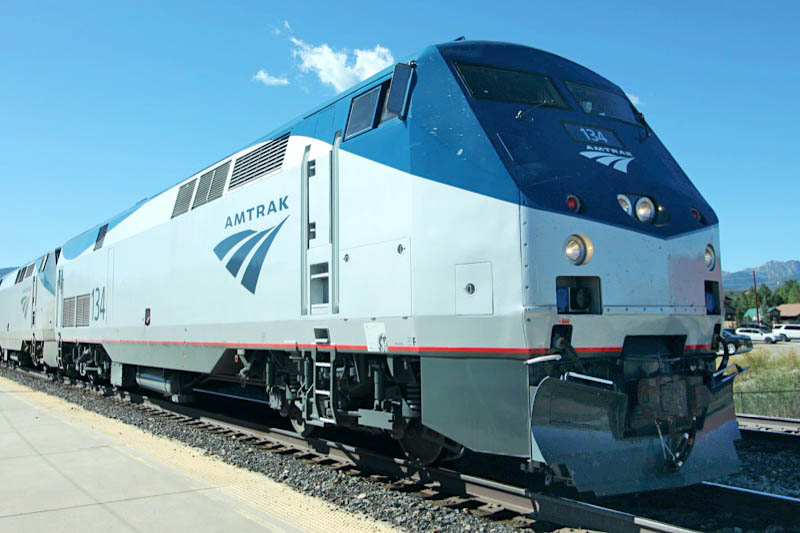
Amtrak #134
Fraser, Co / Sep 2023 / RWH


Amtrak #134
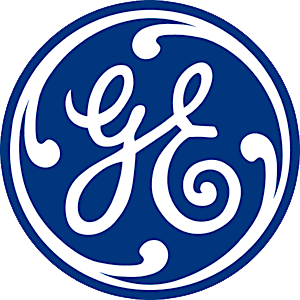
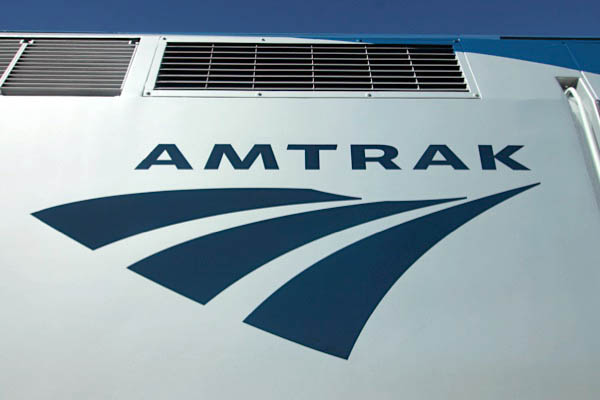
Sep 2023 / RWH
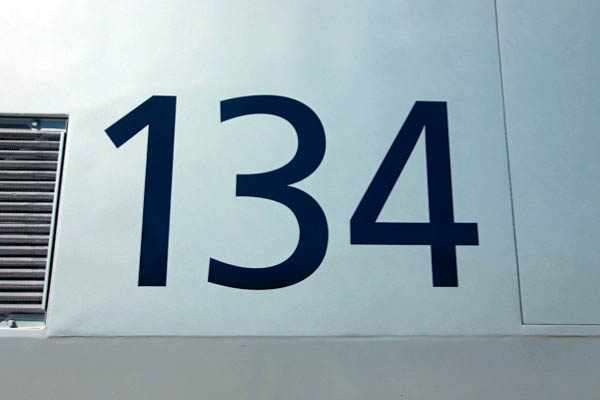
Sep 2023 / RWH
Amtrak #175
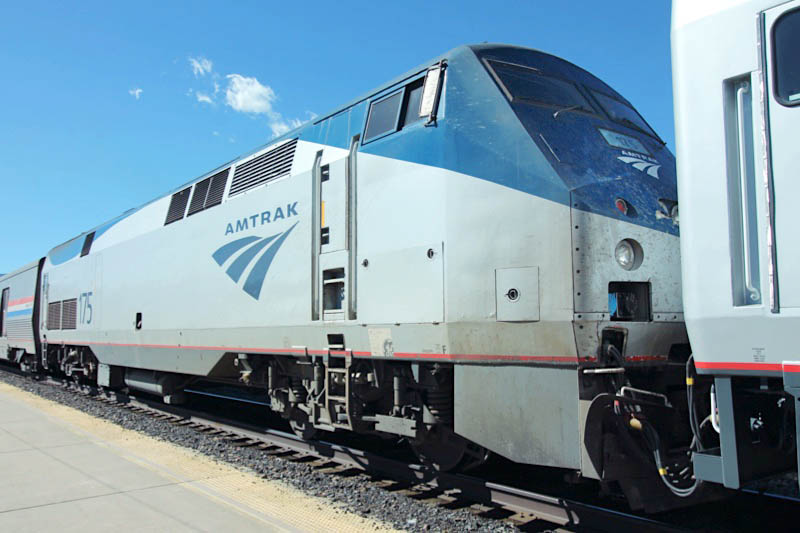
Amtrak #175
Fraser, Co / Sep 2023 / RWH


Amtrak #175

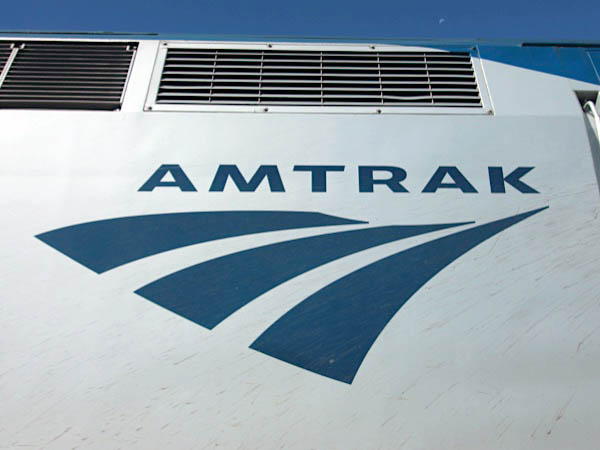
Sep 2023 / RWH
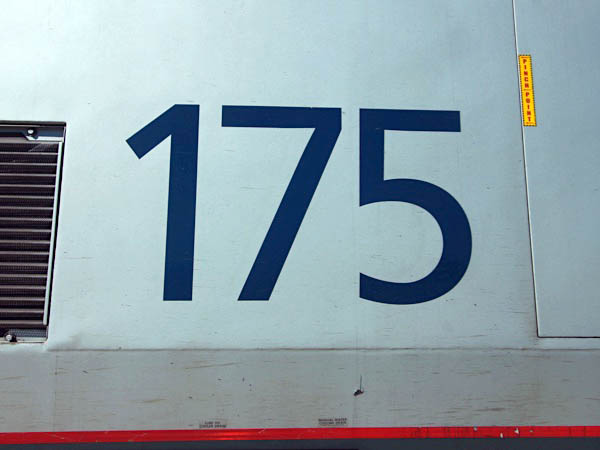
Sep 2023 / RWH
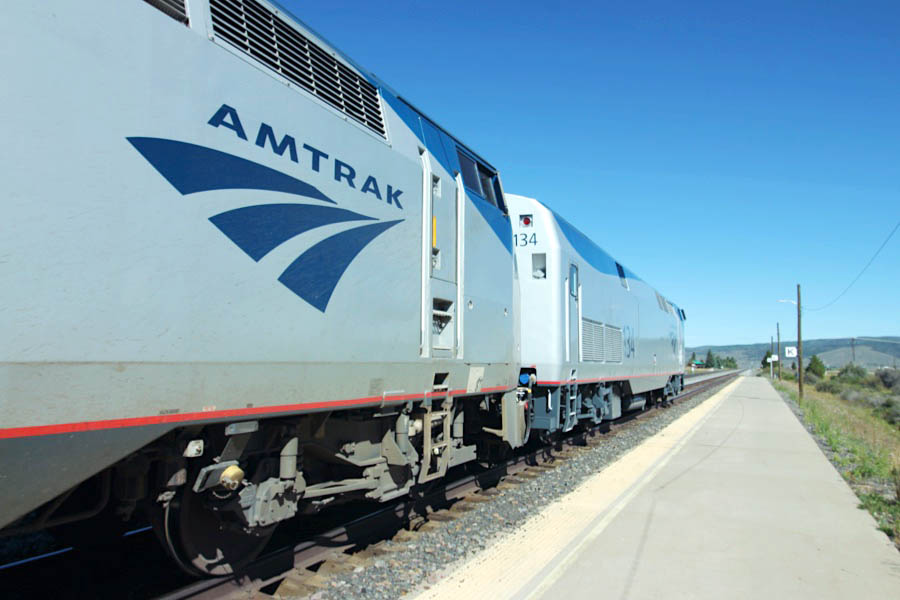
Fraser, Co / Sep 2023 / RWH
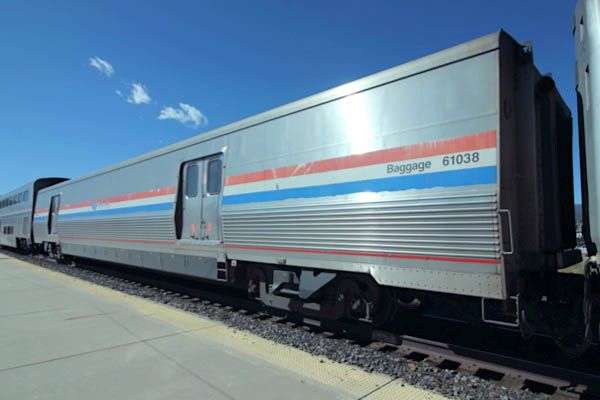
Fraser, Co / Sep 2023 / RWH
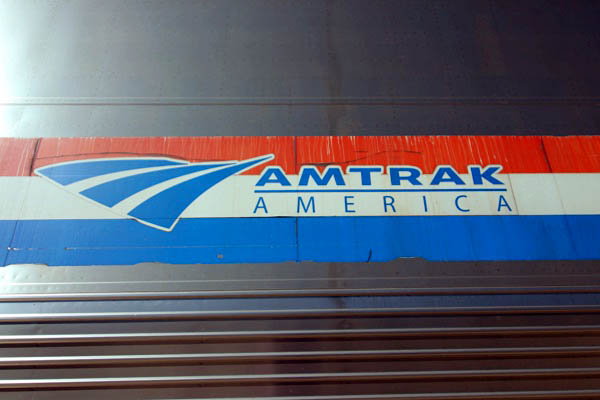
Sep 2023 / RWH
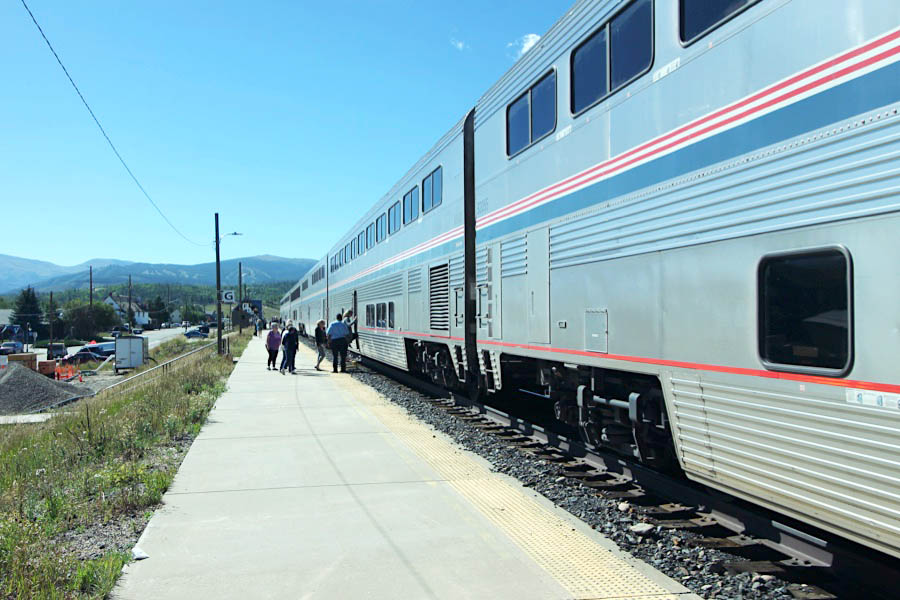
Fraser, Co / Sep 2023 / RWH

westbound #5
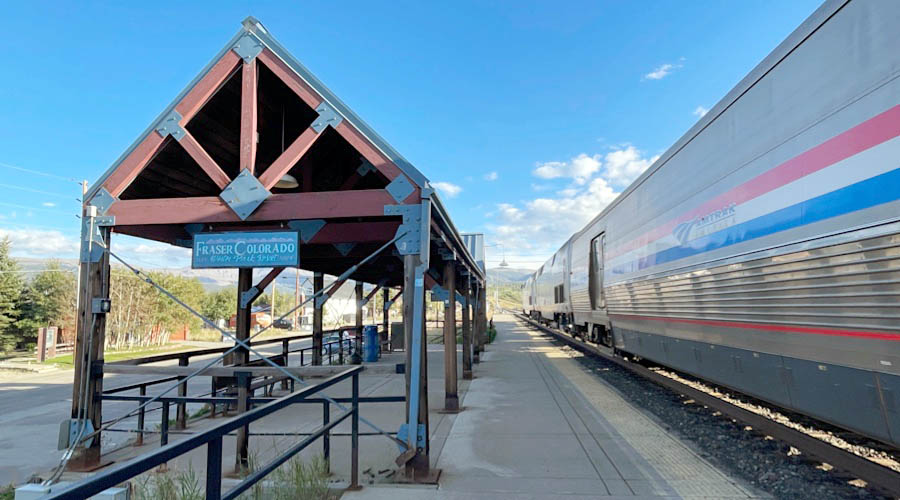
Fraser, Co / Sep 2023 / RWH
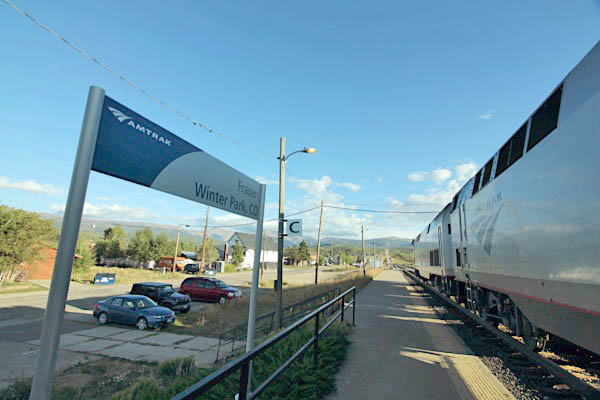
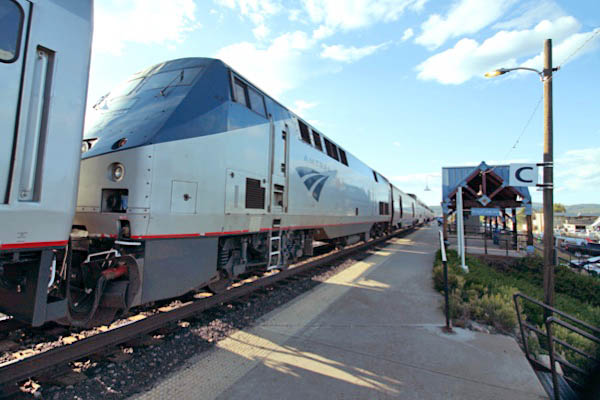
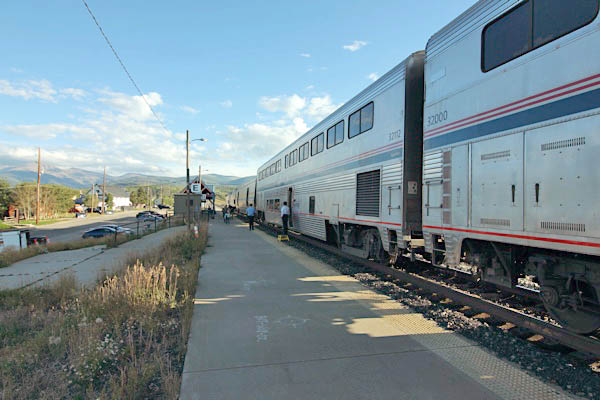
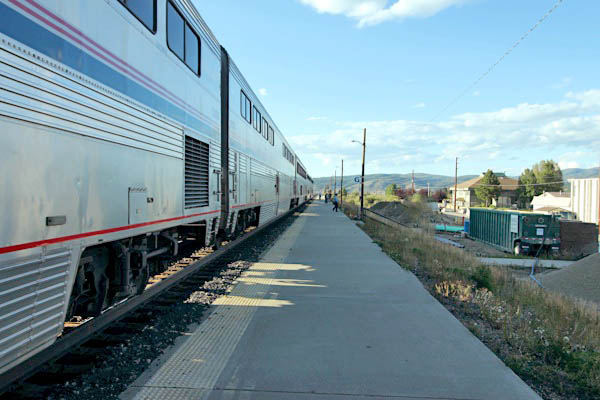
Fraser, Co / Sep 2023 / RWH
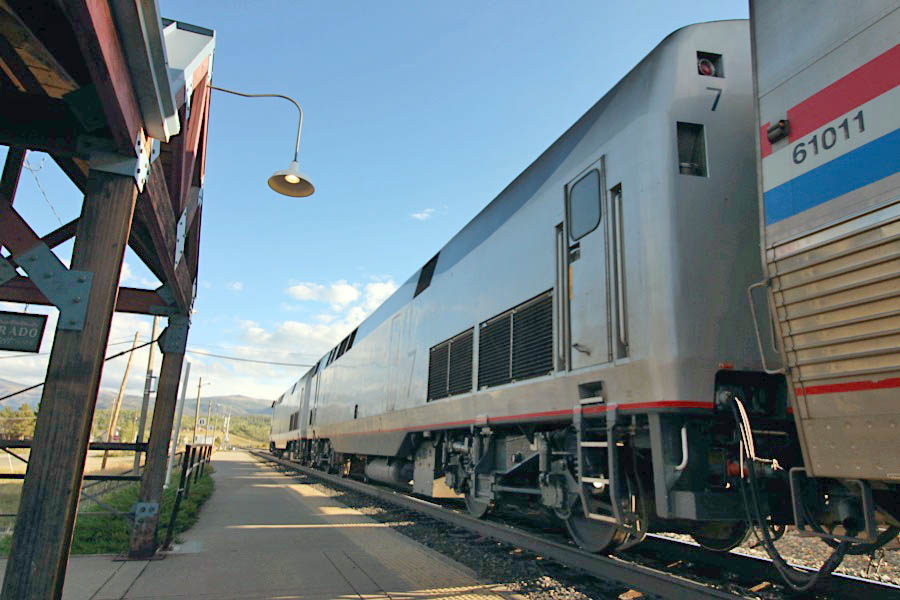
Fraser, Co / Sep 2023 / RWH
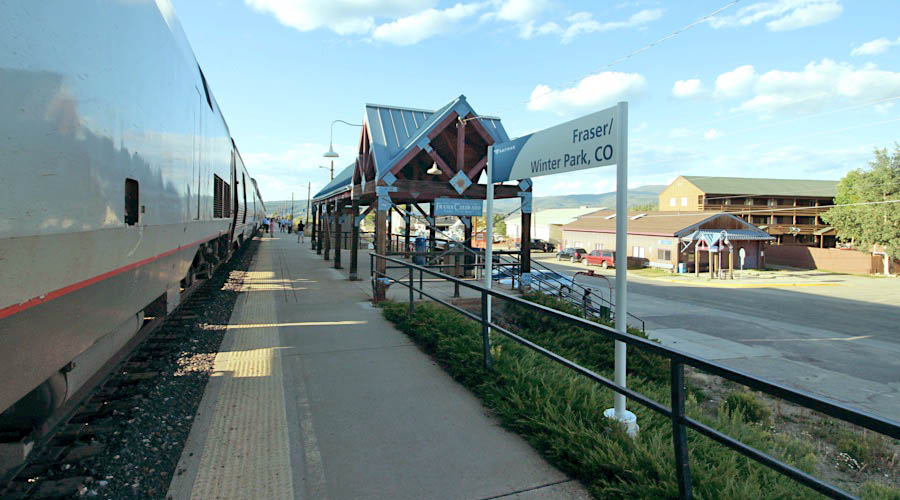
Fraser, Co / Sep 2023 / RWH
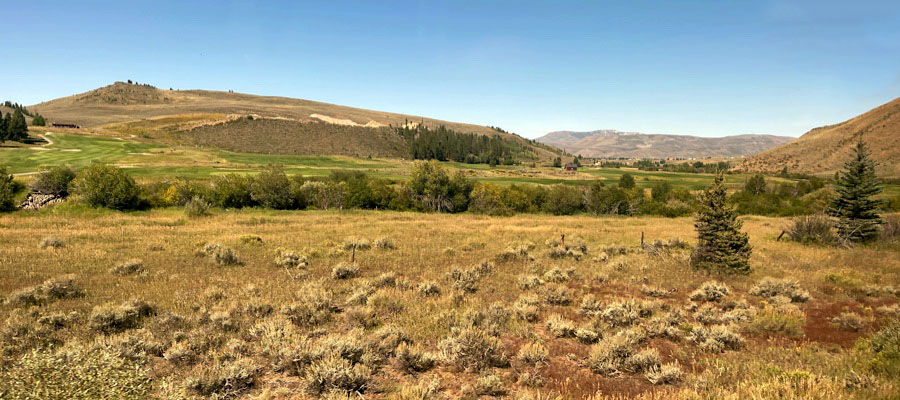
Tabernash, Co / Sep 2023 / RWH
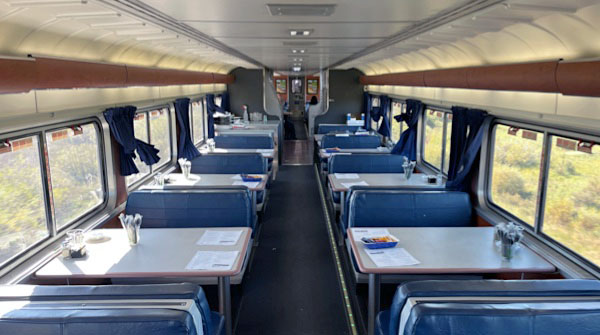
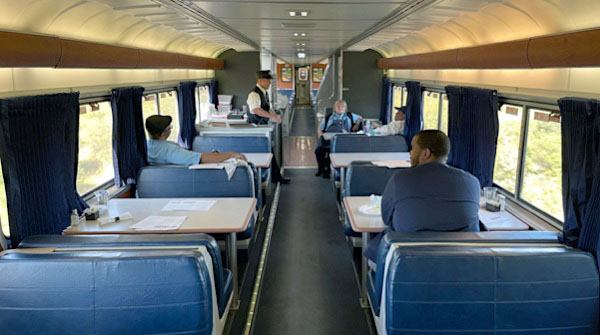
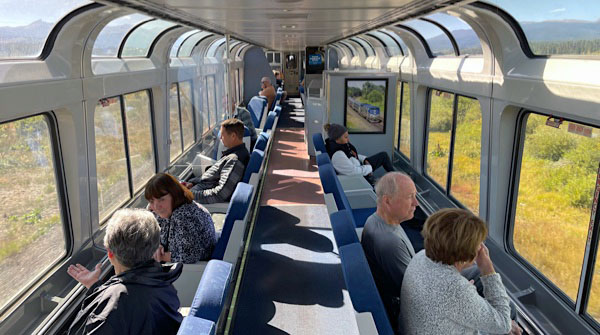
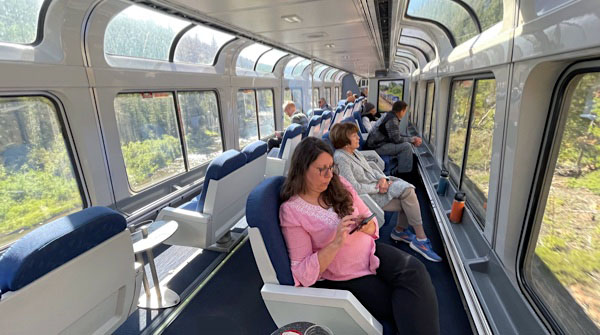
Tabernash, Co / Sep 2023 / RWH
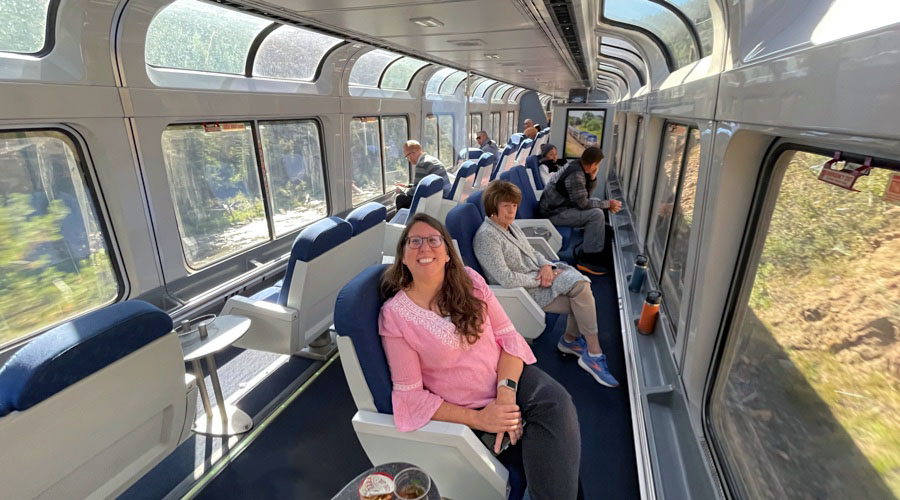
Tabernash, Co / Sep 2023 / RWH
 Granby, Co
Granby, Co

1967 brochure / collection
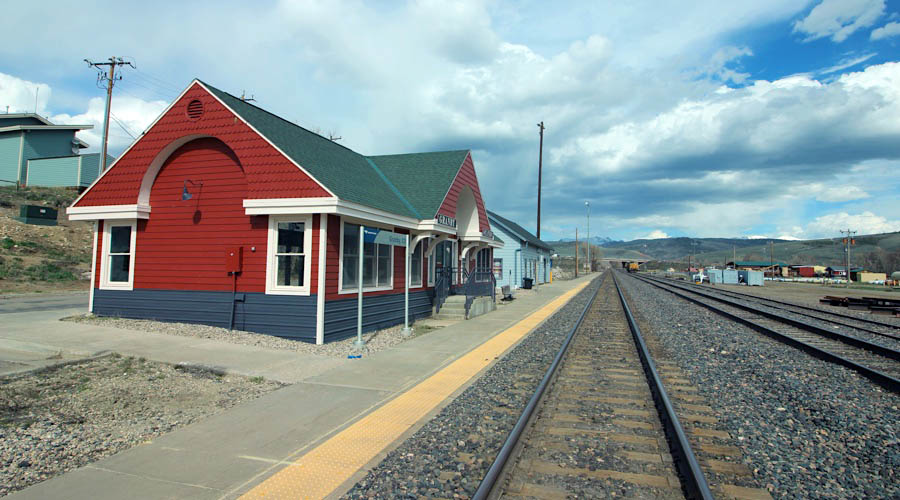
Granby, Co / May 2023 / RWH

Click to see the Granby depot area plotted on a Google Maps page
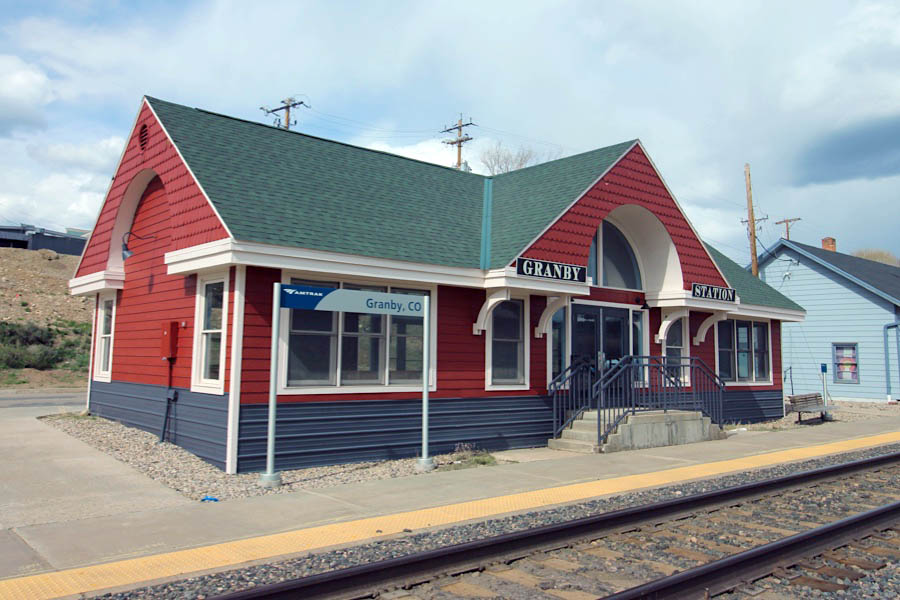
Granby, Co / May 2023 / RWH

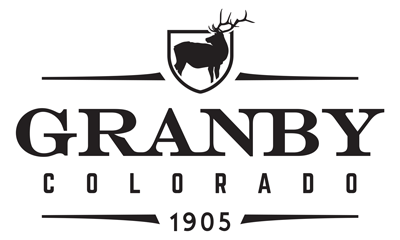
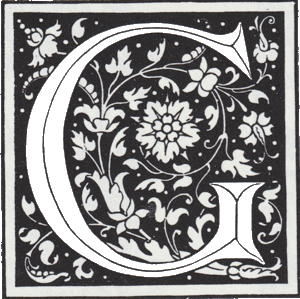 ranby is located in Grand County in Middle Park and is at an elevation of approximately 8,000 feet. The town is surrounded by spectacular mountain scenery and is a recreation paradise. The population is approximately 1864. Denver, Colorado is a mere 80 miles away. The town was incorporated in 1905, and a new town hall was finished in February 2007.
Our location is in the heart of the Rocky Mountains. It allows local residents and visitors to enjoy downhill skiing, cross-country skiing, snowshoeing, gold-medal river and lake fishing, hunting, camping, hiking, biking, golfing, rafting, horseback riding and an array of other exciting outdoor activities.
We invite you to come and share in our wonderful community!
ranby is located in Grand County in Middle Park and is at an elevation of approximately 8,000 feet. The town is surrounded by spectacular mountain scenery and is a recreation paradise. The population is approximately 1864. Denver, Colorado is a mere 80 miles away. The town was incorporated in 1905, and a new town hall was finished in February 2007.
Our location is in the heart of the Rocky Mountains. It allows local residents and visitors to enjoy downhill skiing, cross-country skiing, snowshoeing, gold-medal river and lake fishing, hunting, camping, hiking, biking, golfing, rafting, horseback riding and an array of other exciting outdoor activities.
We invite you to come and share in our wonderful community!
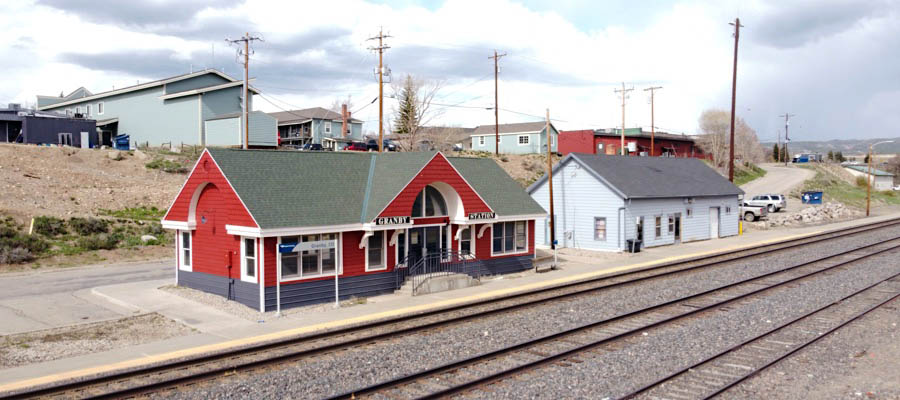
Granby, Co / May 2023 / RWH
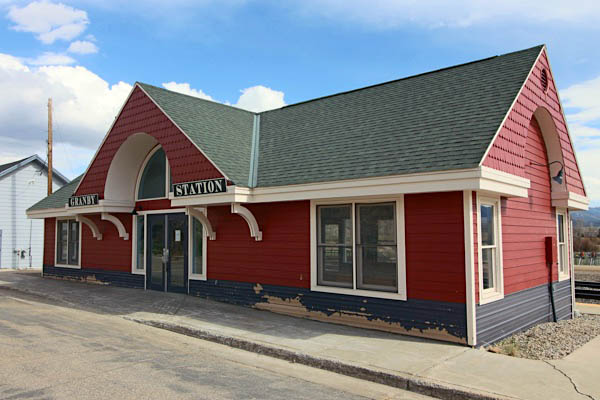
Granby, Co / May 2023 / RWH
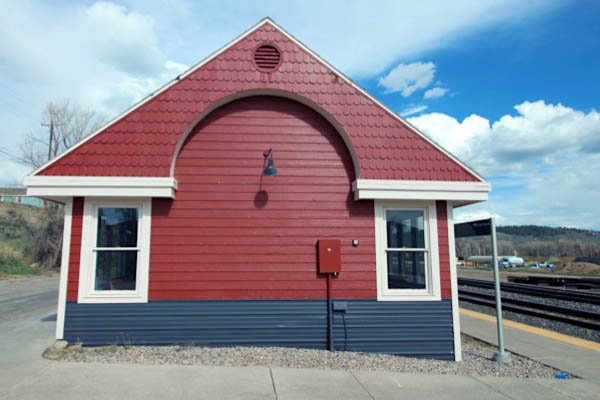
Granby, Co / May 2023 / RWH
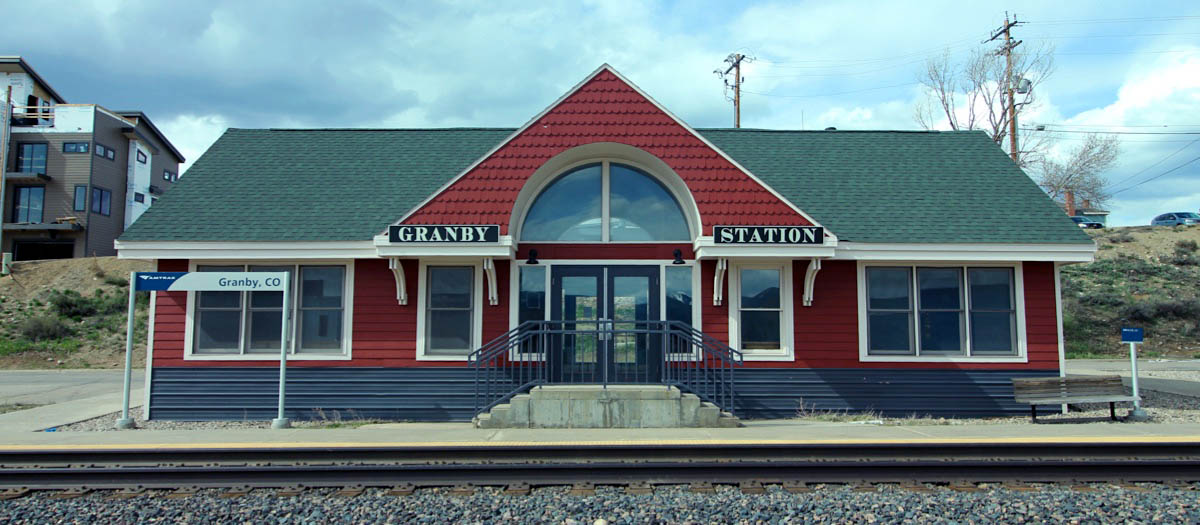
Granby, Co / May 2023 / RWH
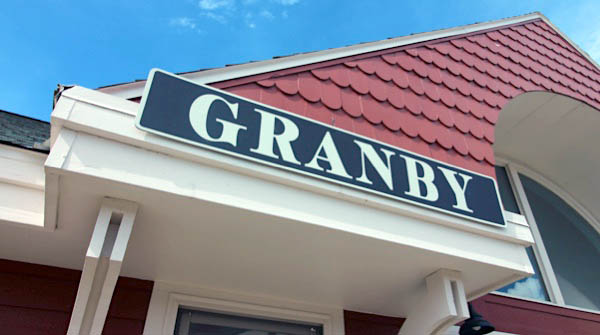
May 2023 / RWH
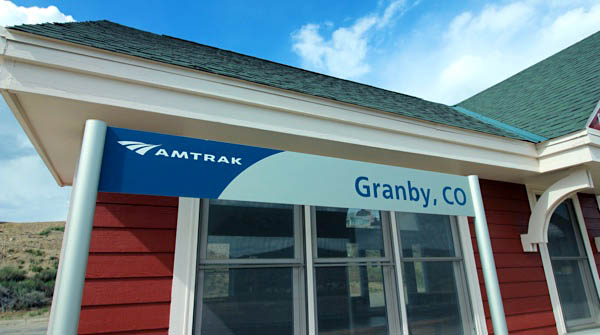
May 2023 / RWH
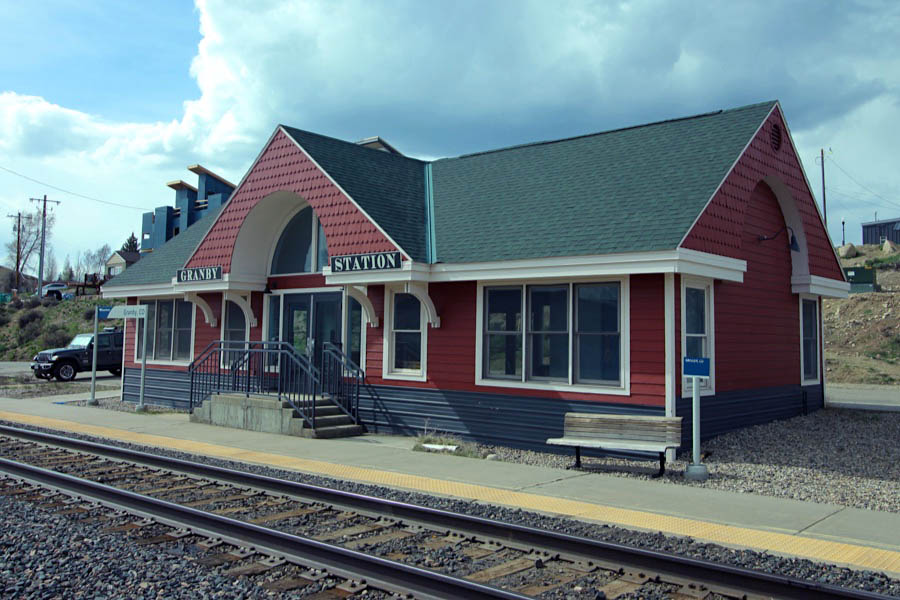
Granby, Co / May 2023 / RWH
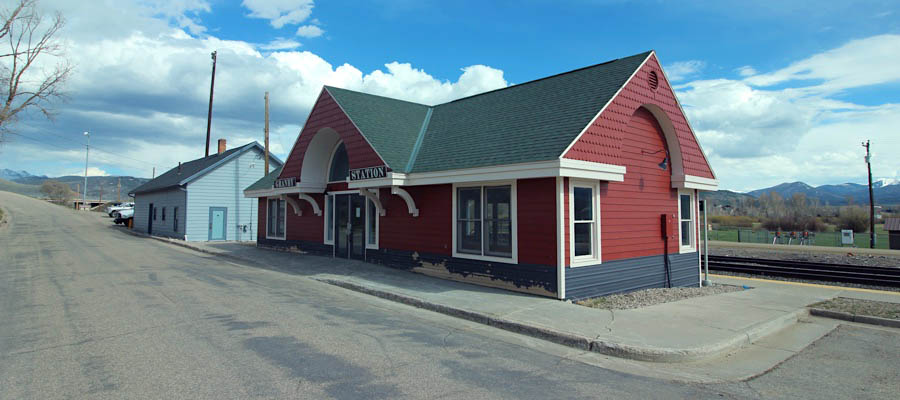
Granby, Co / May 2023 / RWH
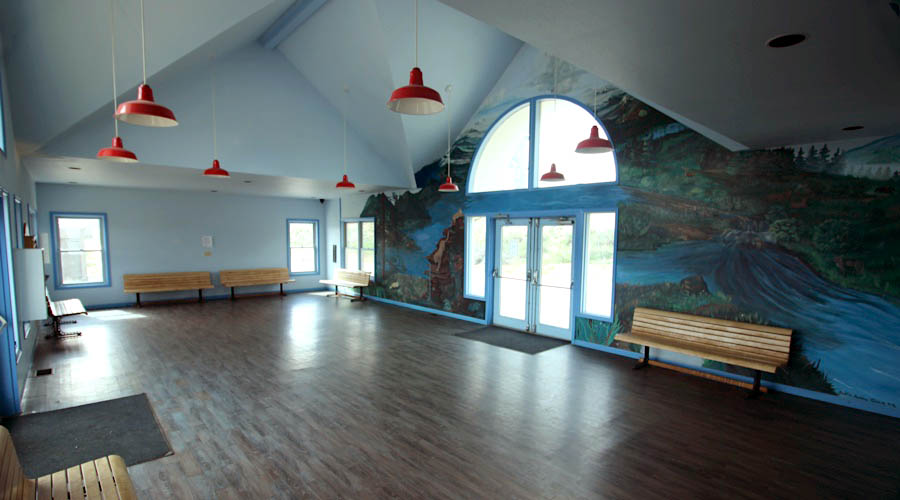
Granby, Co / May 2023 / RWH
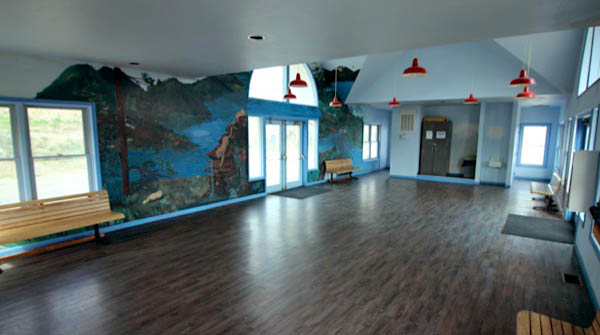
Granby, Co / May 2023 / RWH
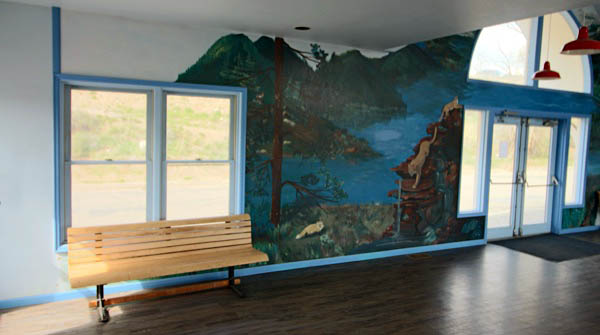
Granby, Co / May 2023 / RWH
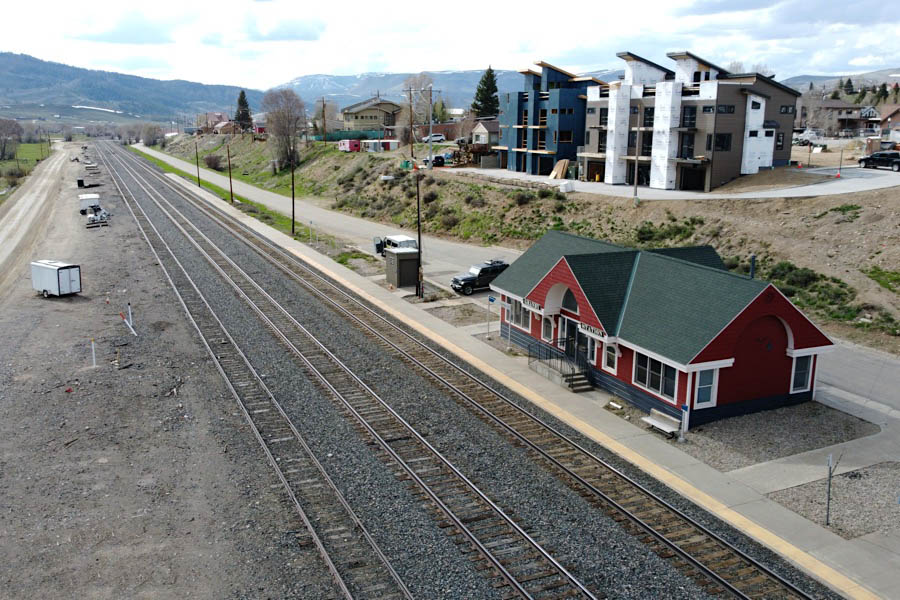
Granby, Co / May 2023 / RWH
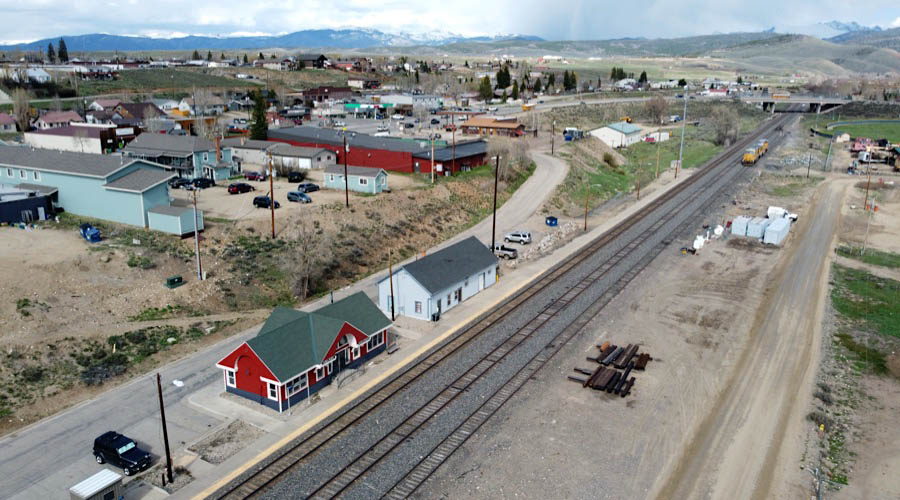
Granby, Co / May 2023 / RWH
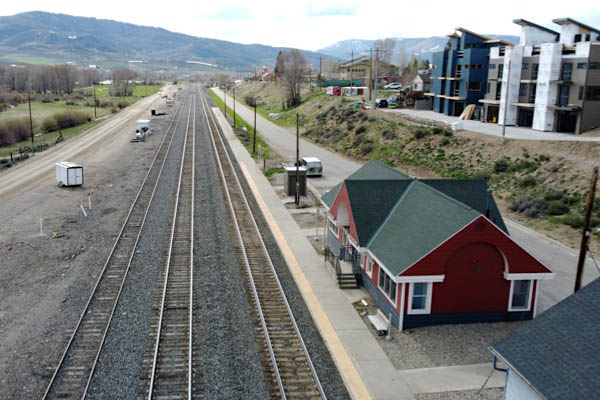
Granby, Co / May 2023 / RWH
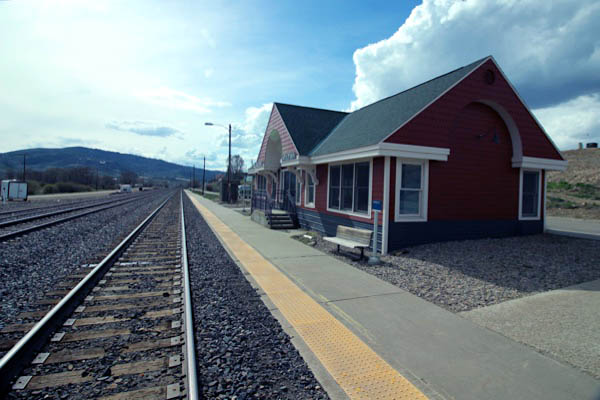
Granby, Co / May 2023 / RWH
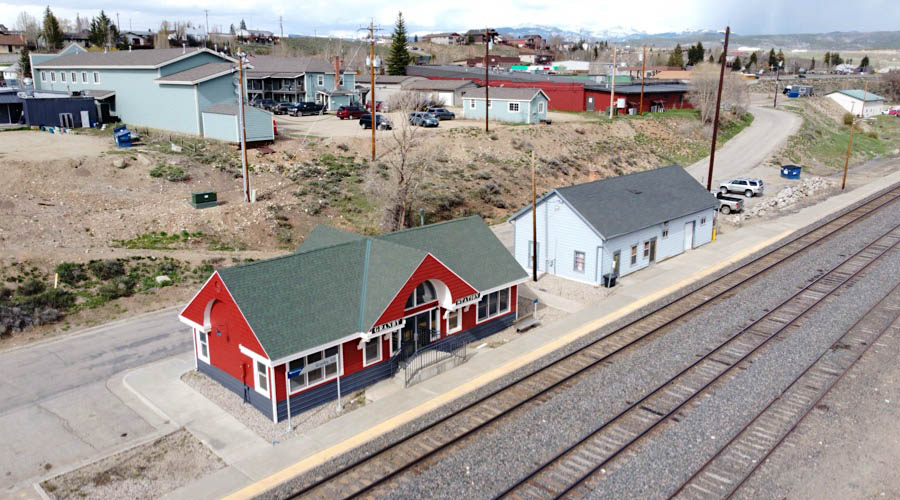
Granby, Co / May 2023 / RWH
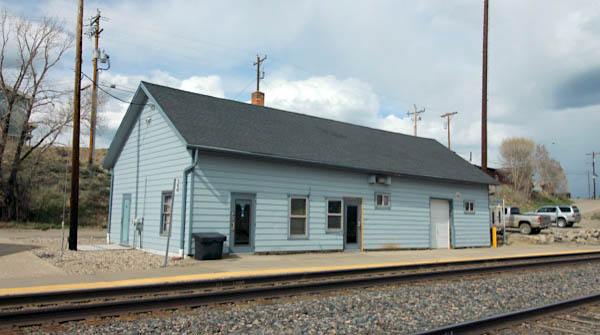
Granby, Co / May 2023 / RWH
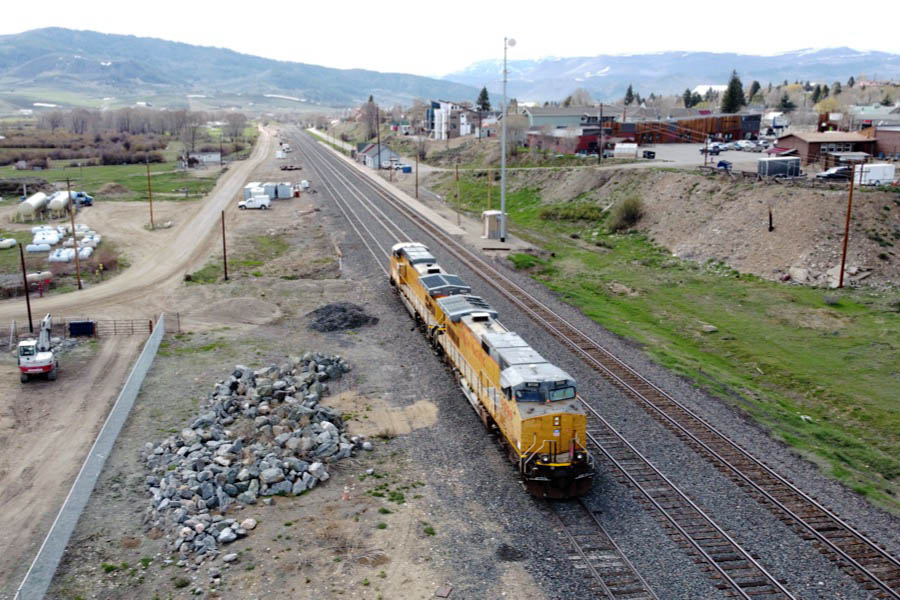
Granby, Co / May 2023 / RWH
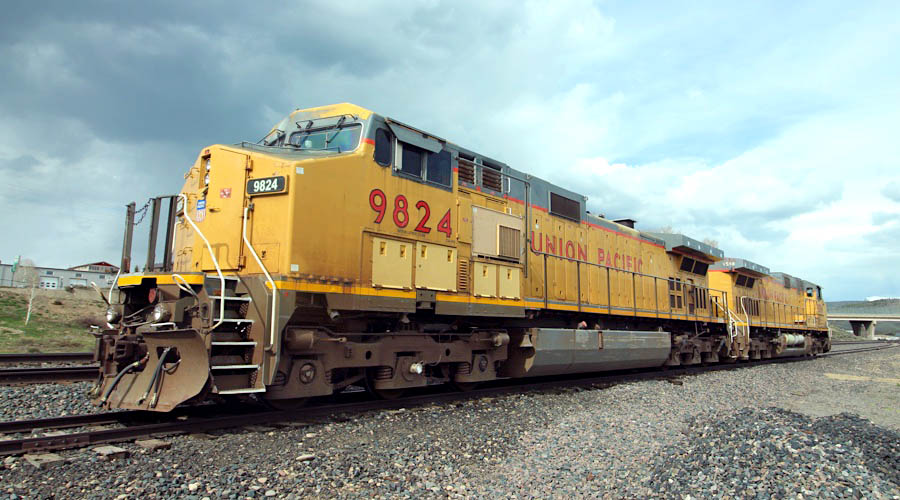
Granby, Co / May 2023 / RWH
Union Pacific #9824
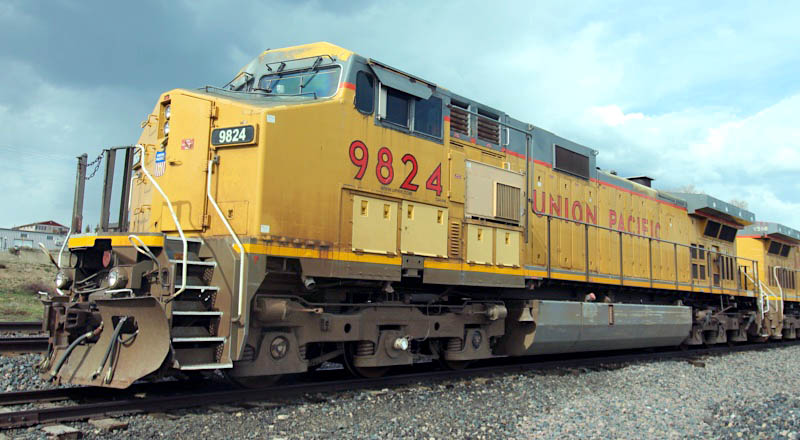
Union Pacific #9824
Granby, Co / May 2023 / RWH


Union Pacific #9824
1 of 130 produced in CNW order
to Union Pacific #9824

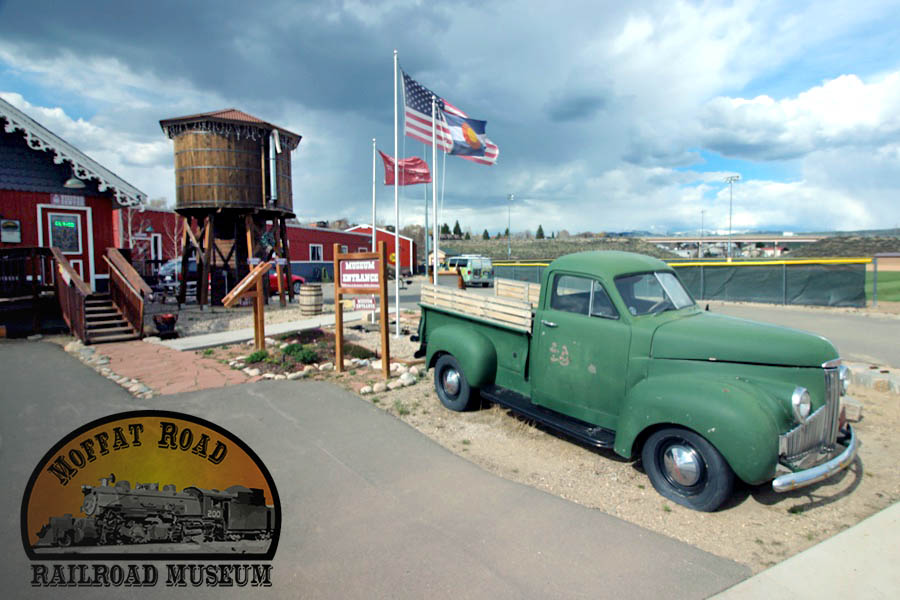
Granby, Co / May 2023 / RWH
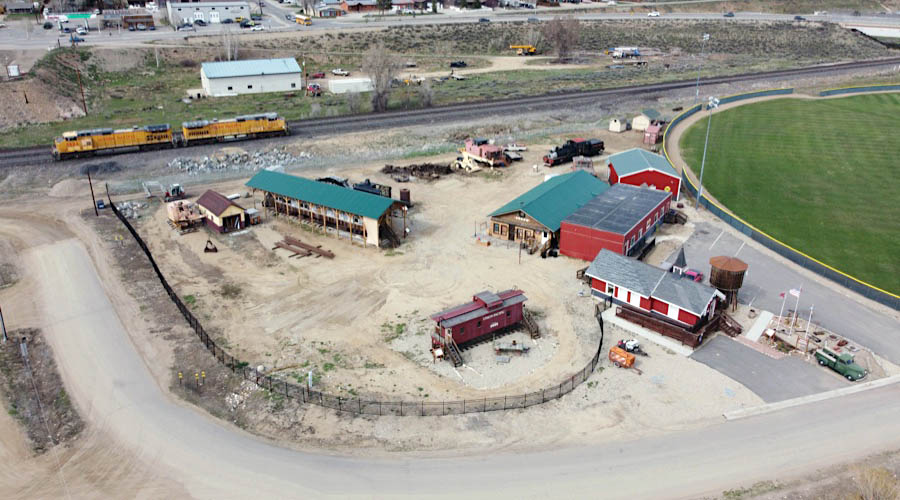
Granby, Co / May 2023 / RWH

See also our complete Moffat Road Railroad Museum scrapbook in Preservation

eastbound #5
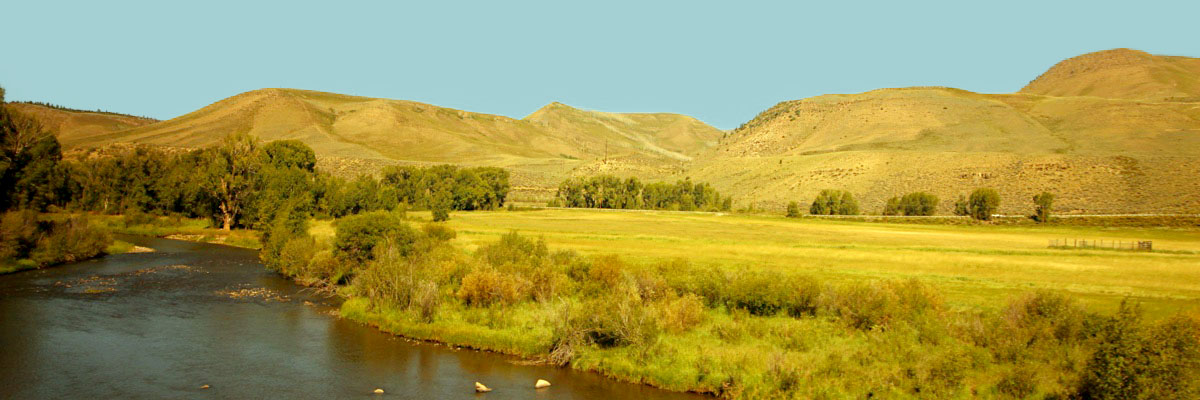
Hot Sulpher Springs, Co / Sep 2023 / RWH
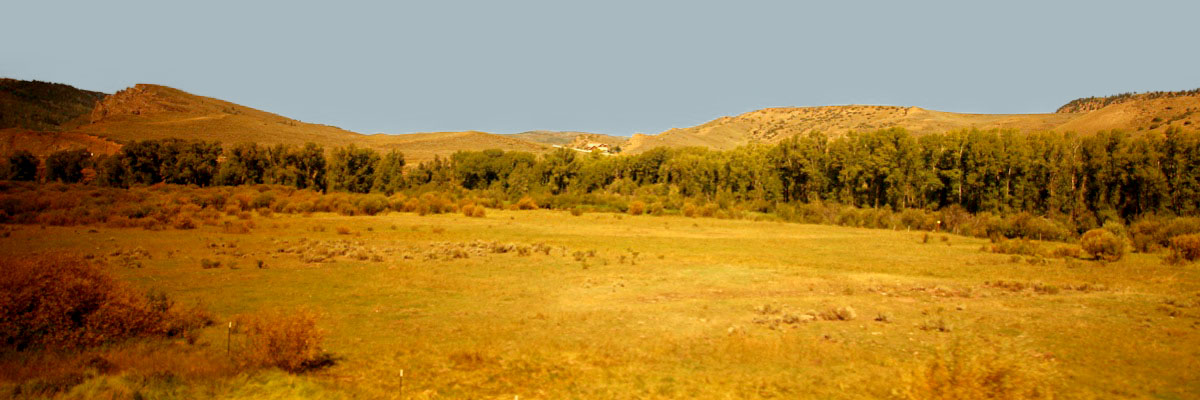
Hot Sulpher Springs, Co / Sep 2023 / RWH
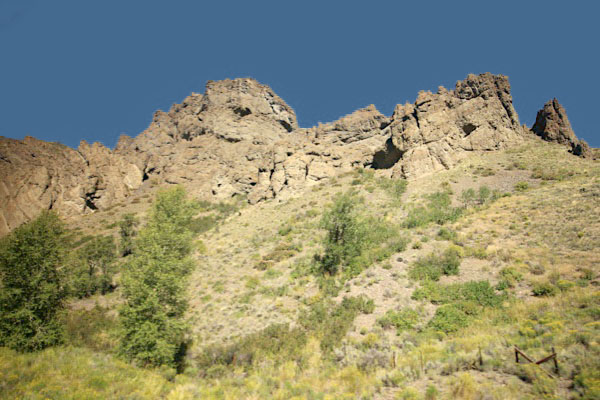
Hot Sulpher Springs, Co / Sep 2023 / RWH
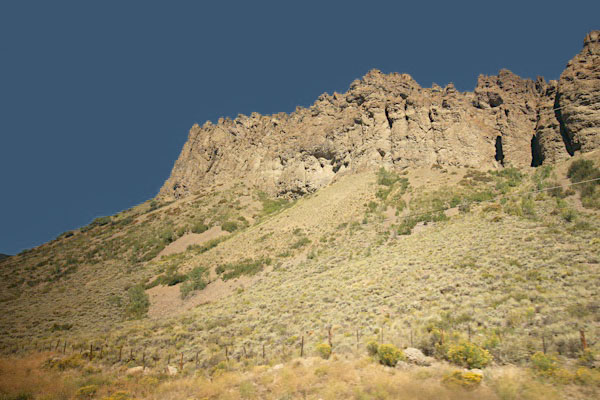
Hot Sulpher Springs, Co / Sep 2023 / RWH
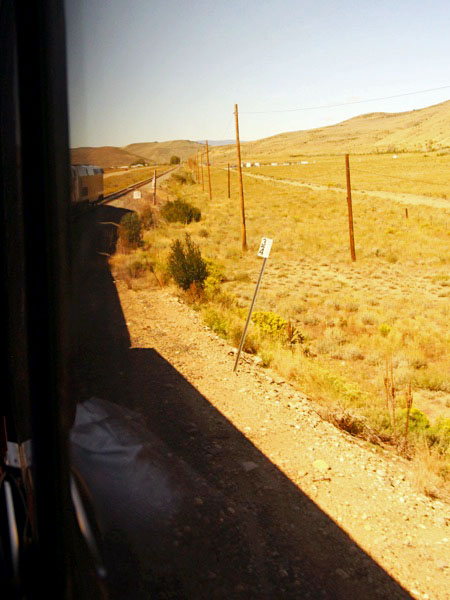
Sep 2023 / RWH
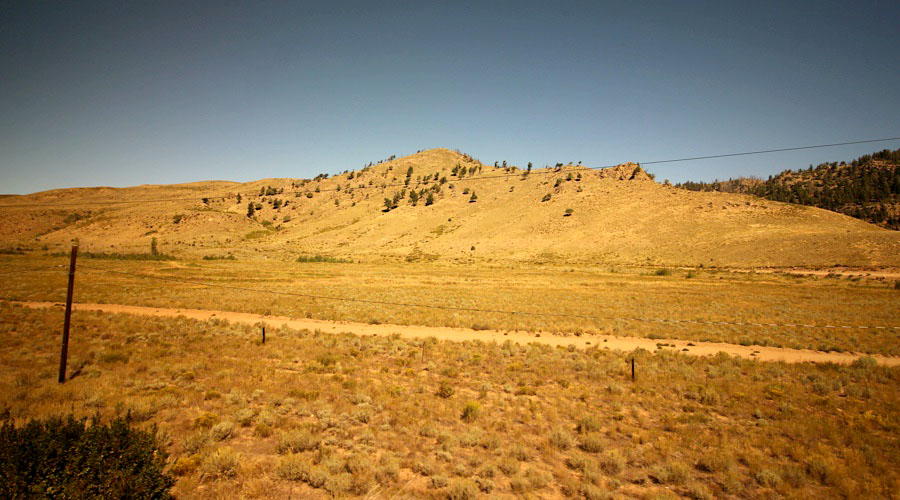
Parshall, Co / Sep 2023 / RWH
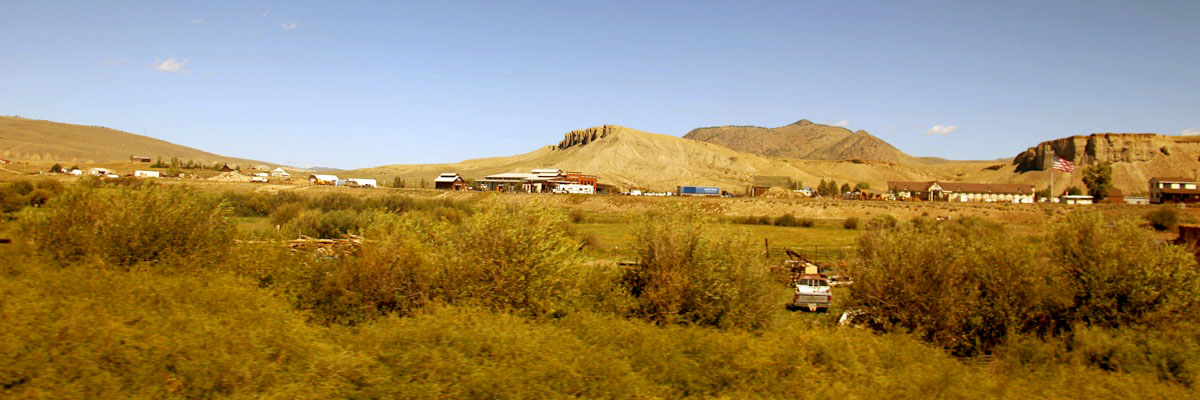
Kremmling, Co / Sep 2023 / RWH
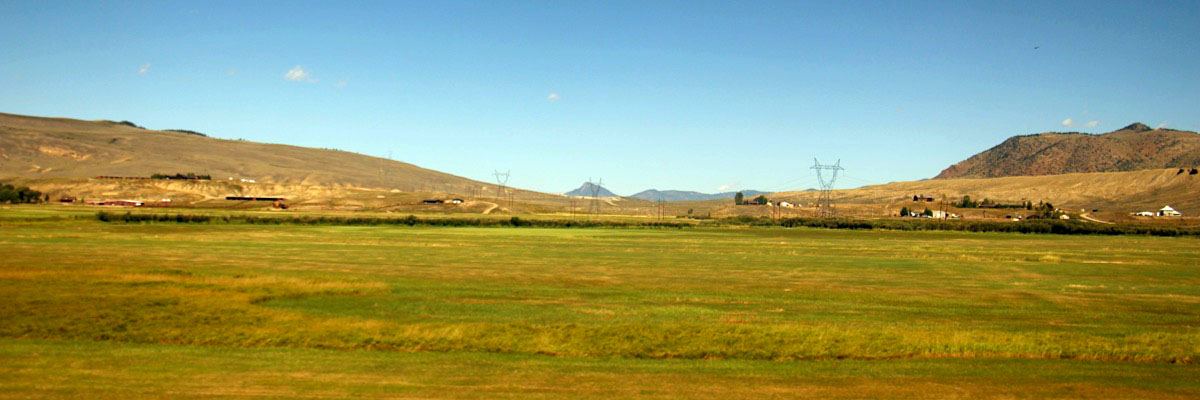
Kremmling, Co / Sep 2023 / RWH
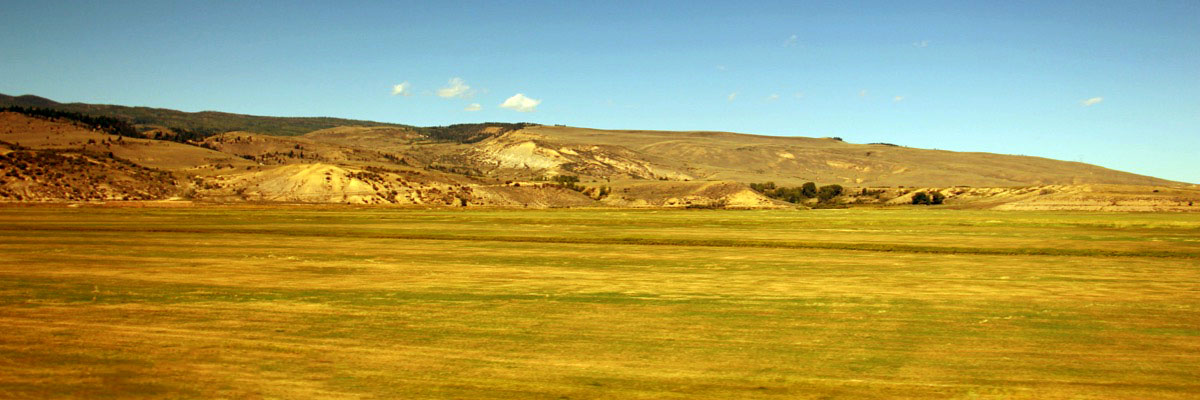
Kremmling, Co / Sep 2023 / RWH
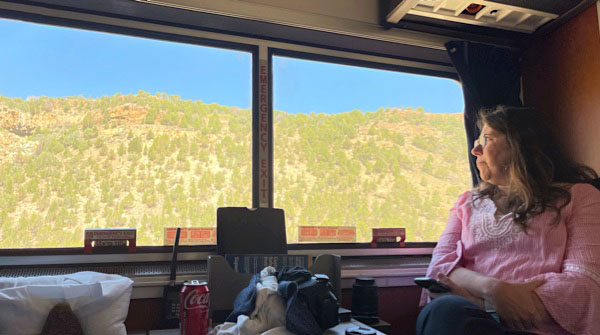
McCoy, Co / Sep 2023 / RWH
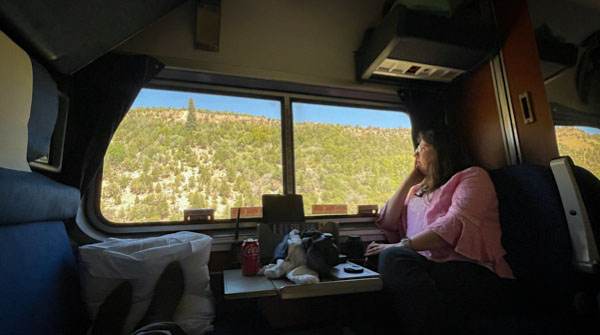
McCoy, Co / Sep 2023 / RWH
 Colorado River
Colorado River

eastbound #6
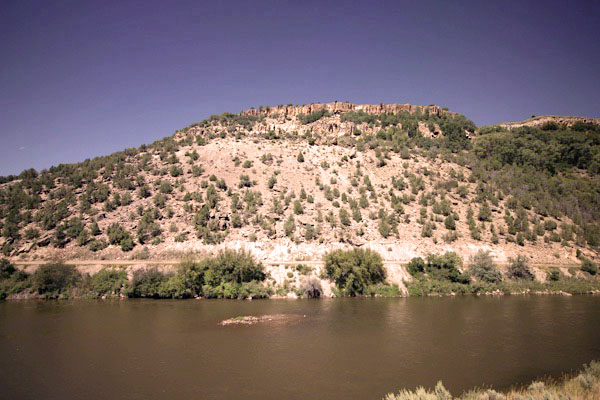

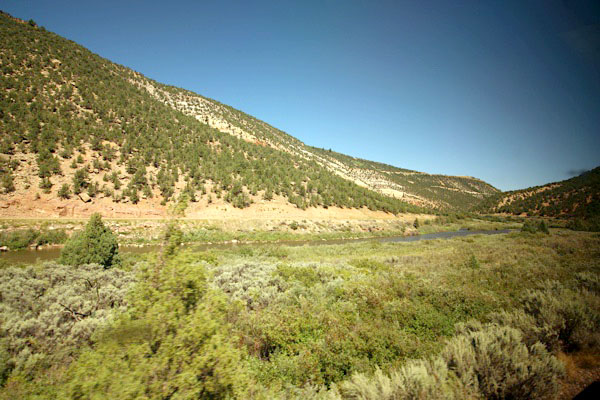
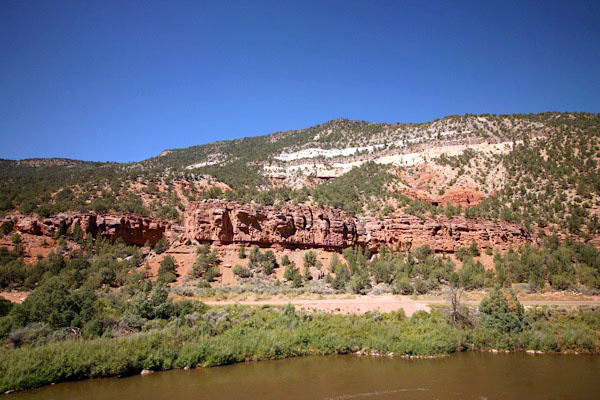
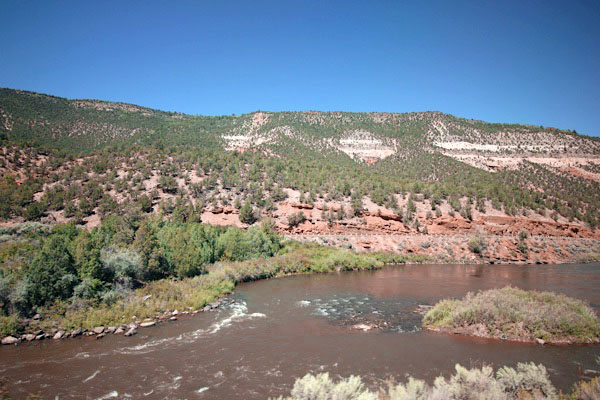
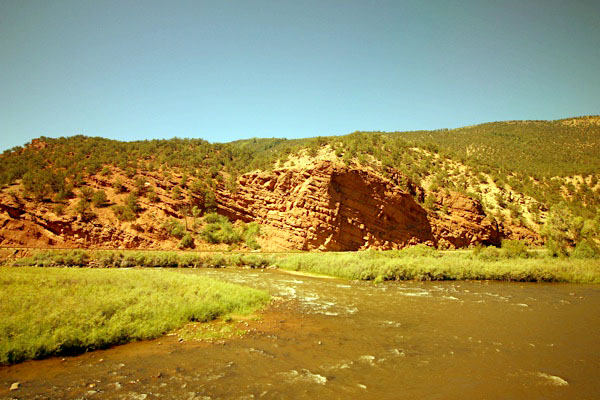
McCoy, Co / Sep 2023 / RWH
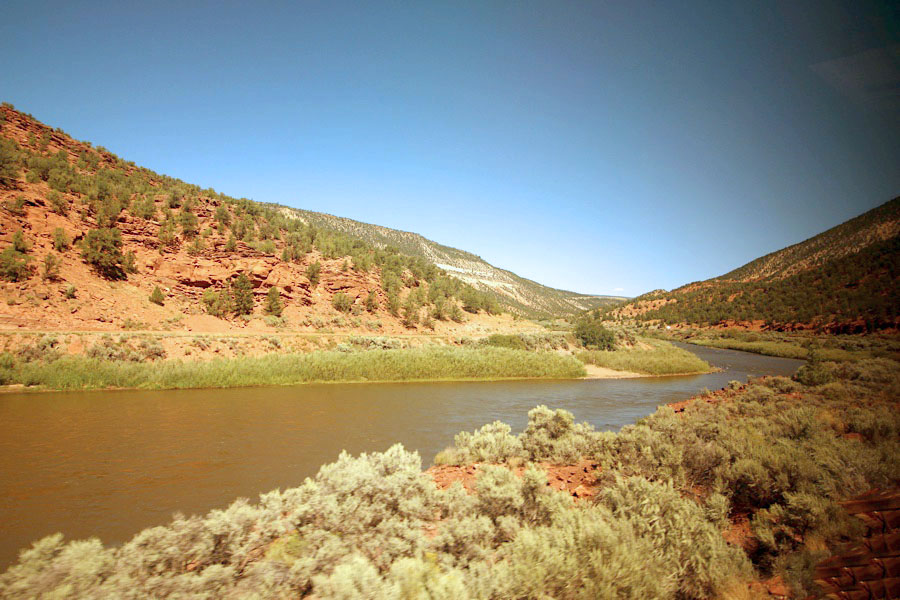
McCoy, Co / Sep 2023 / RWH
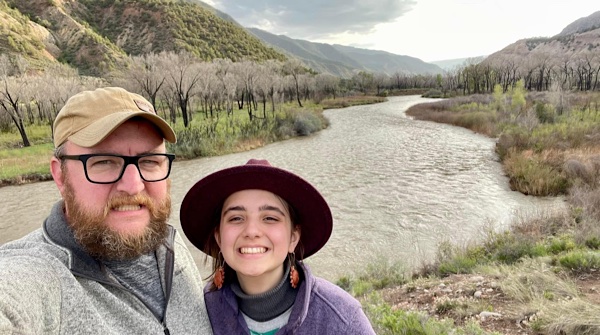 The Colorado River (Spanish: Río Colorado) is one of the principal rivers (along with the Rio Grande) in the Southwestern United States and in northern Mexico. The 1,450-mile-long river drains an expansive, arid watershed that encompasses parts of seven U.S. states and two Mexican states. The name Colorado derives from the Spanish language for "colored reddish" due to its heavy silt load. Starting in the central Rocky Mountains of Colorado, it flows generally southwest across the Colorado Plateau and through the Grand Canyon before reaching Lake Mead on the Arizona–Nevada border, where it turns south toward the international border. After entering Mexico, the Colorado approaches the mostly dry Colorado River Delta at the tip of the Gulf of California between Baja California and Sonora.
The Colorado River (Spanish: Río Colorado) is one of the principal rivers (along with the Rio Grande) in the Southwestern United States and in northern Mexico. The 1,450-mile-long river drains an expansive, arid watershed that encompasses parts of seven U.S. states and two Mexican states. The name Colorado derives from the Spanish language for "colored reddish" due to its heavy silt load. Starting in the central Rocky Mountains of Colorado, it flows generally southwest across the Colorado Plateau and through the Grand Canyon before reaching Lake Mead on the Arizona–Nevada border, where it turns south toward the international border. After entering Mexico, the Colorado approaches the mostly dry Colorado River Delta at the tip of the Gulf of California between Baja California and Sonora.
Known for its dramatic canyons, whitewater rapids, and eleven U.S. National Parks, the Colorado River and its tributaries are a vital source of water for 40 million people. An extensive system of dams, reservoirs, and aqueducts divert almost its entire flow for agricultural irrigation and urban water supply. Its large flow and steep gradient are used to generate hydroelectricity, meeting peaking power demands in much of the Intermountain West.
Wikipedia / image May 2023 RWH
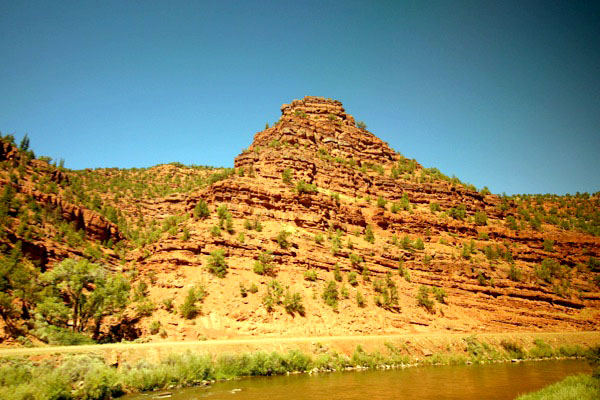
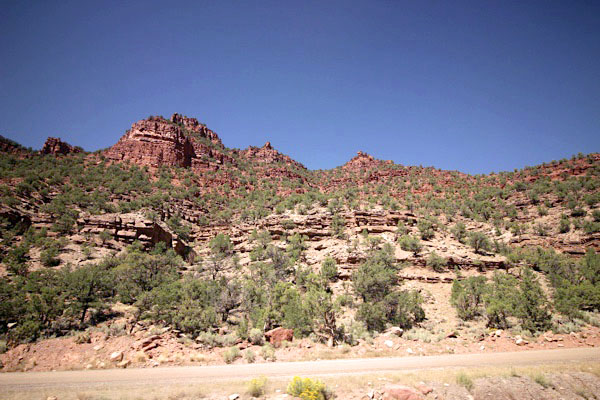
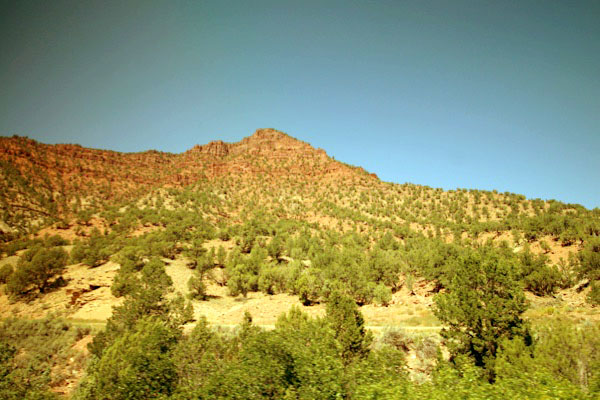
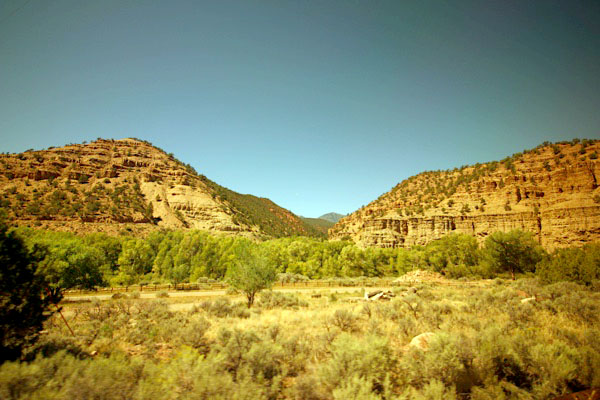
McCoy, Co / Sep 2023 / RWH
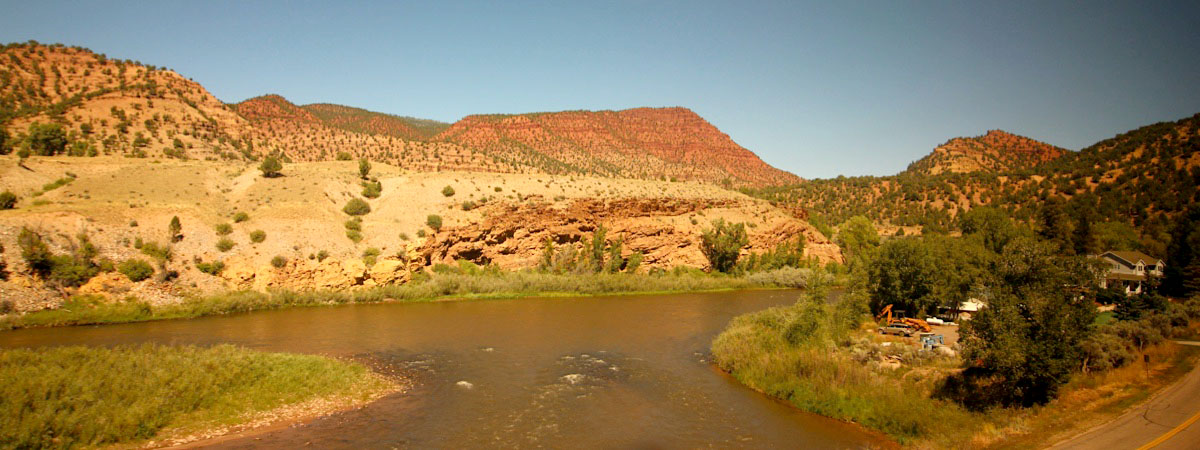
McCoy, Co / Sep 2023 / RWH
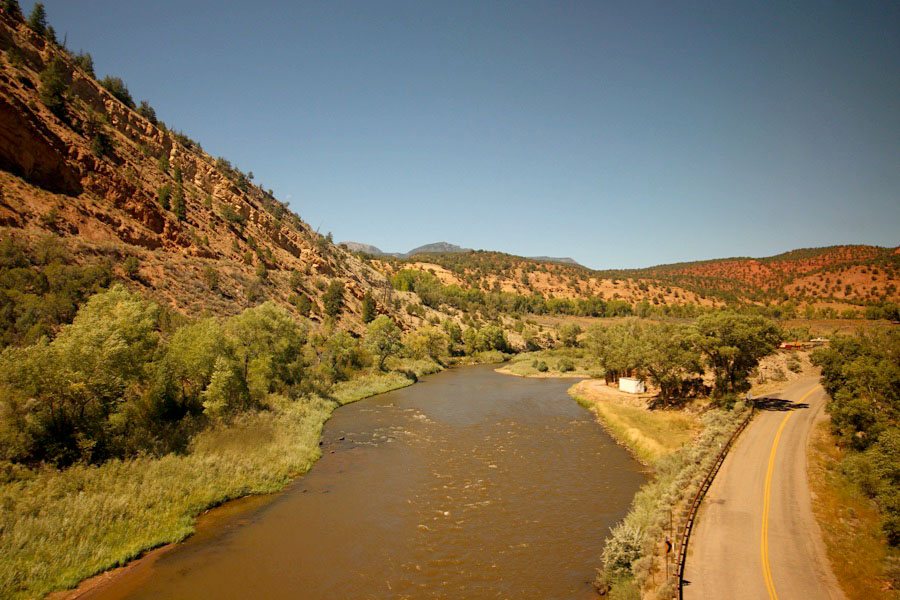
McCoy, Co / Sep 2023 / RWH
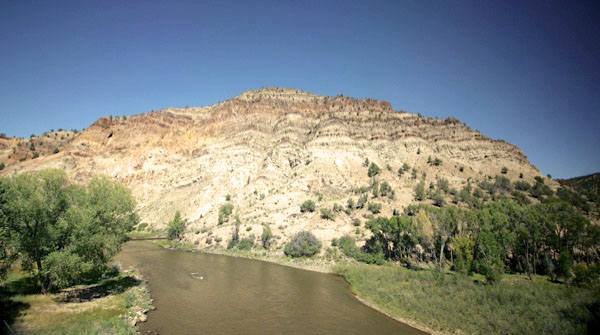
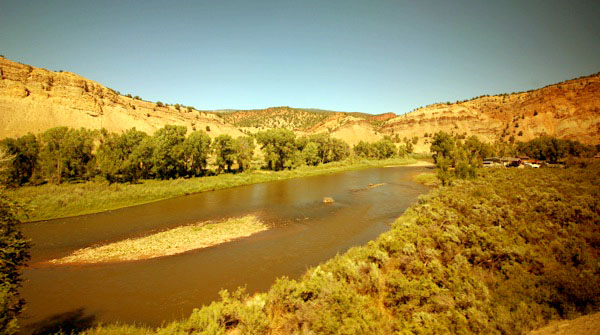
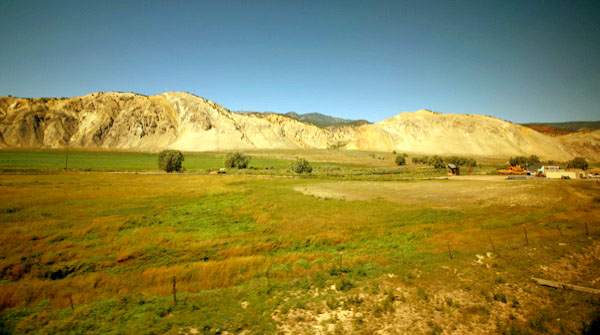
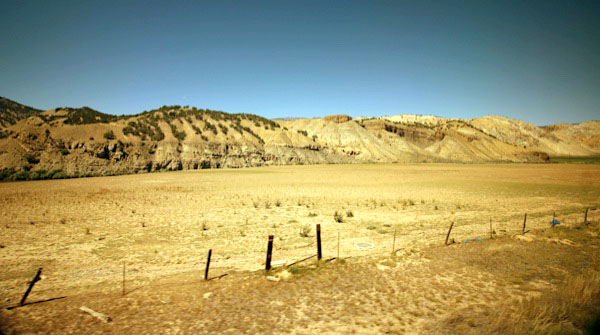
McCoy, Co / Sep 2023 / RWH
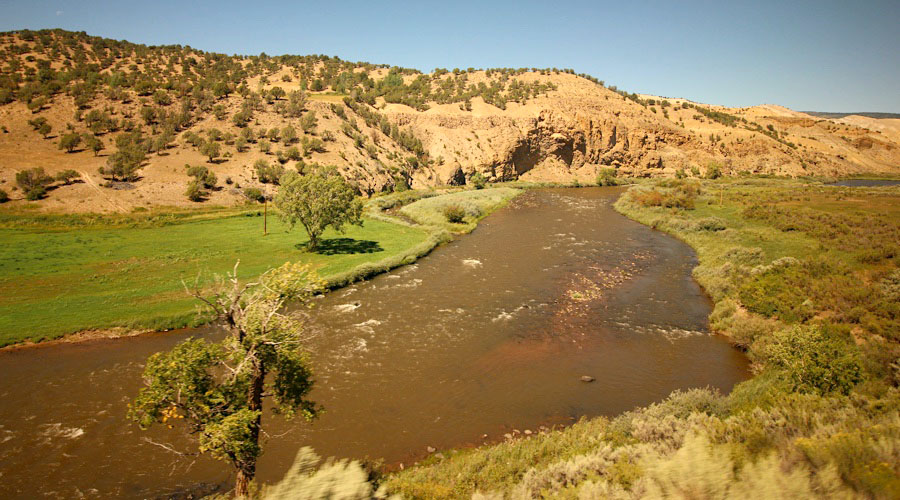
McCoy, Co / Sep 2023 / RWH
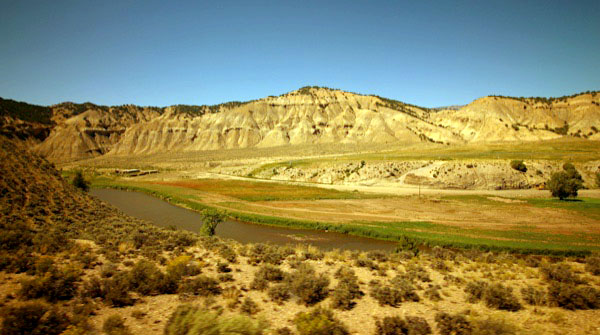
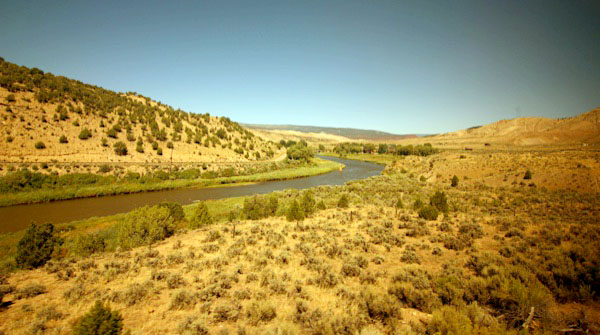
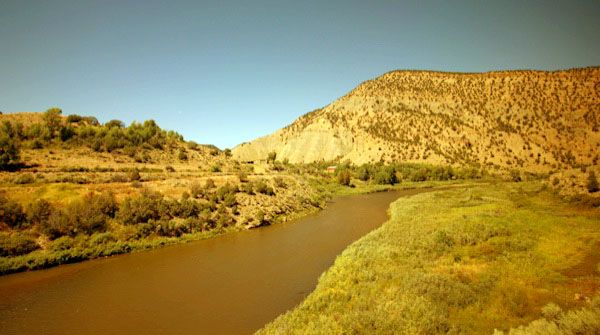
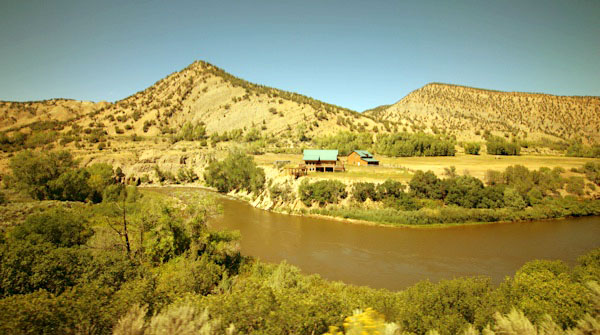
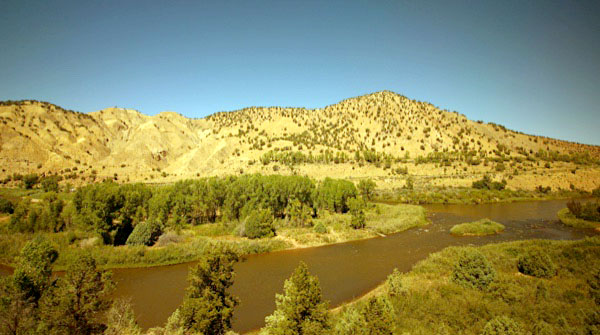
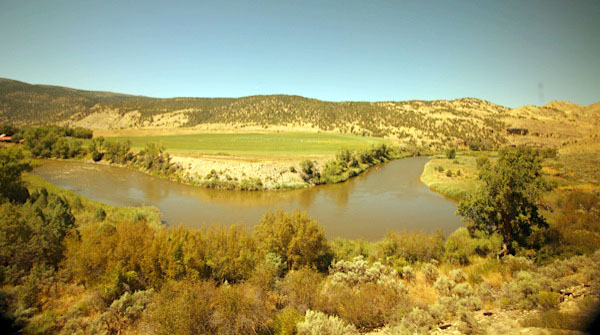
McCoy, Co / Sep 2023 / RWH
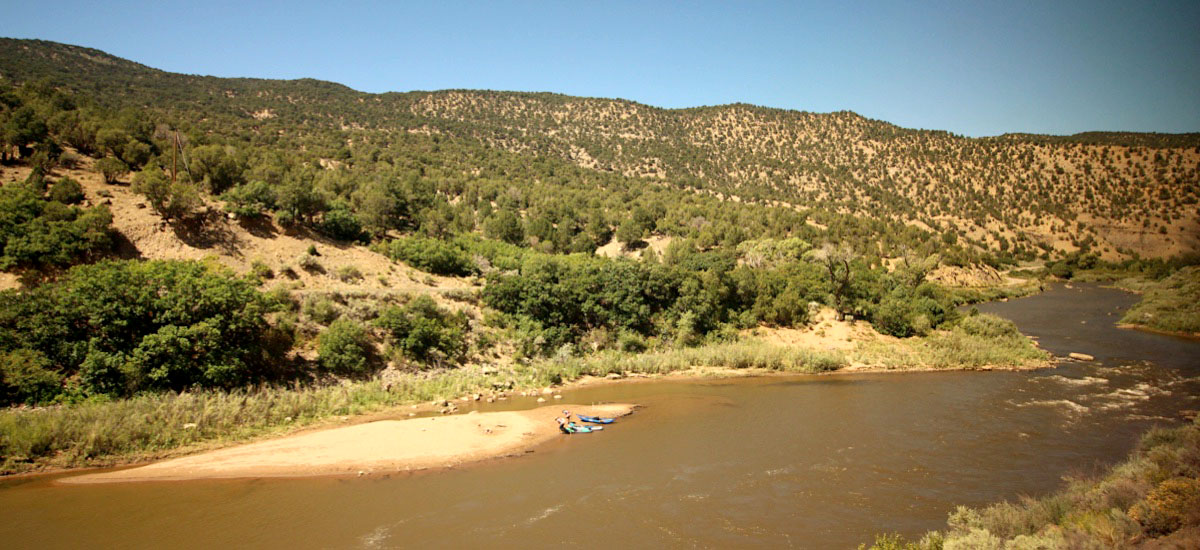
McCoy, Co / Sep 2023 / RWH
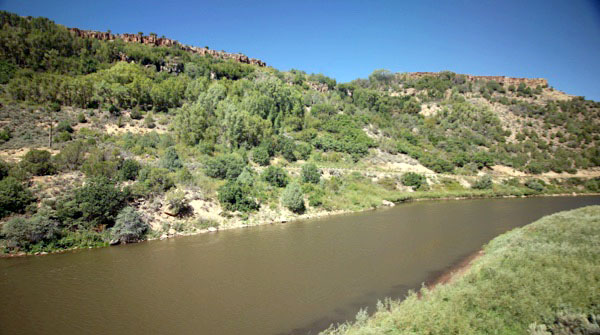
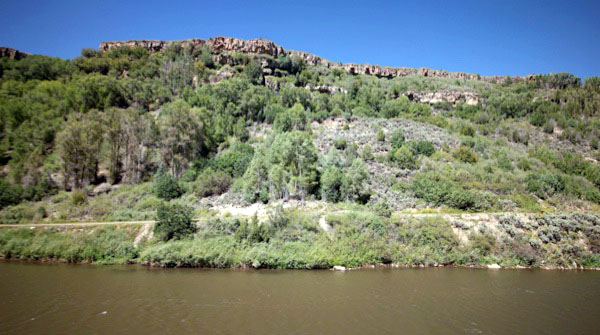
McCoy, Co / Sep 2023 / RWH

westbound #5
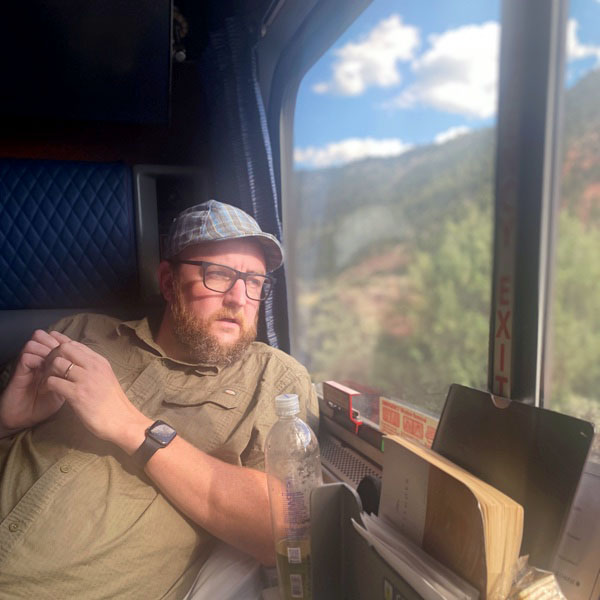
Sep 2023 / RWH
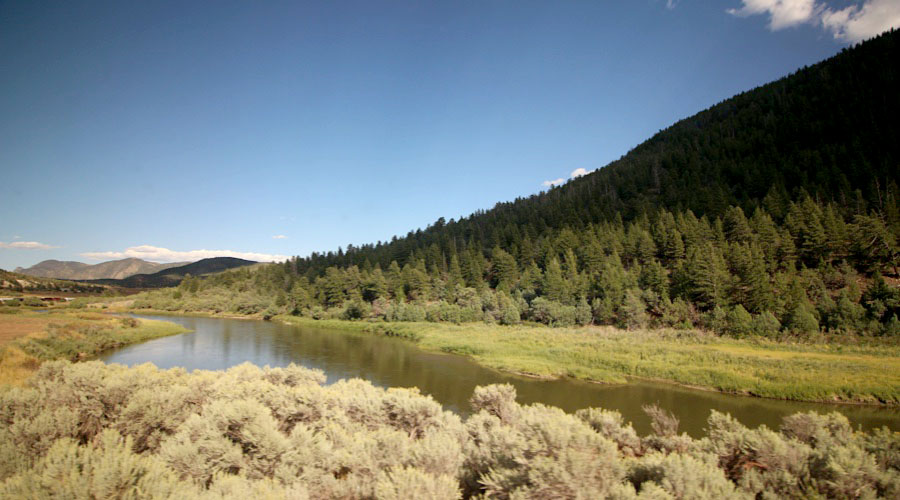
Kremmling, Co / Sep 2023 / RWH
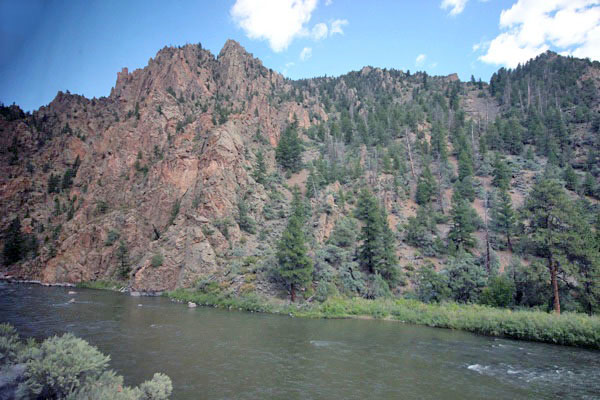
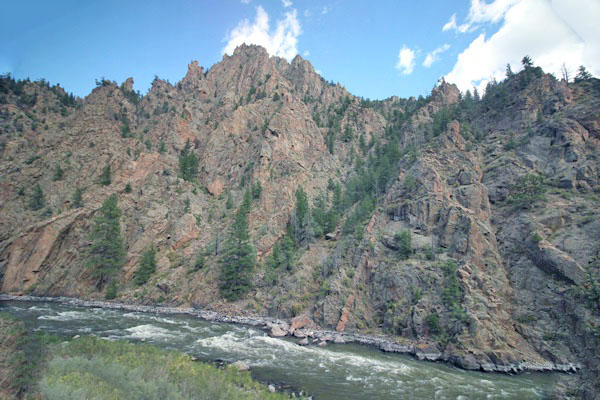
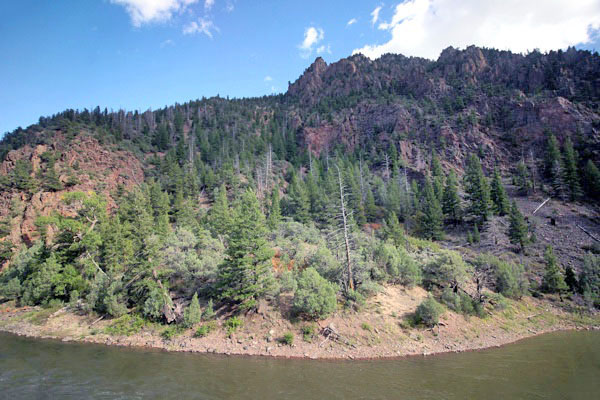
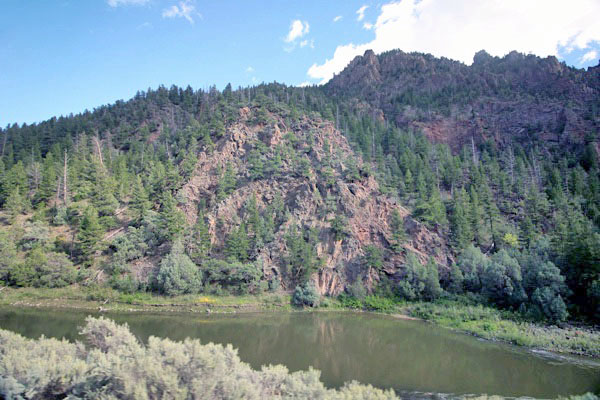
Kremmling, Co / Sep 2023 / RWH
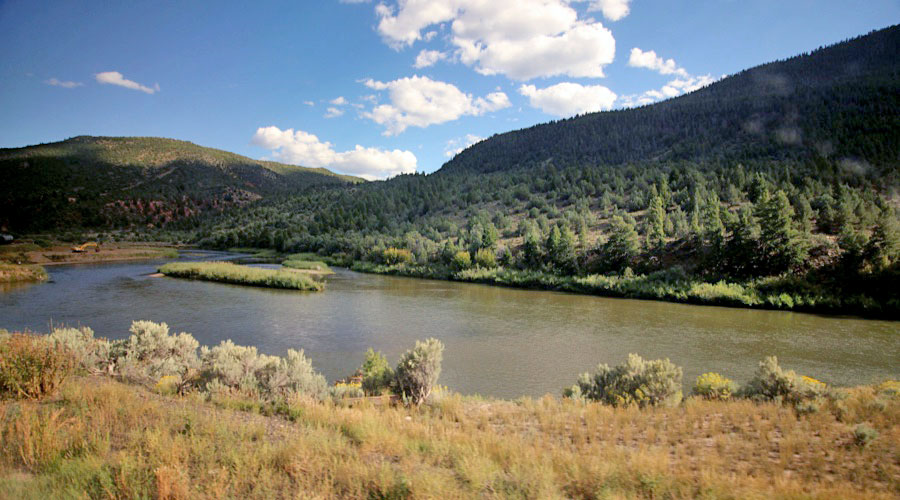
Kremmling, Co / Sep 2023 / RWH
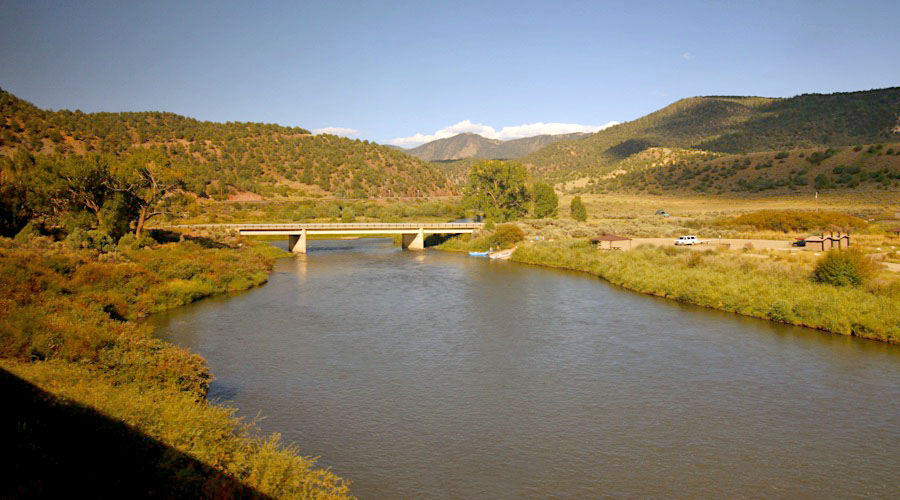
Kremmling, Co / Sep 2023 / RWH
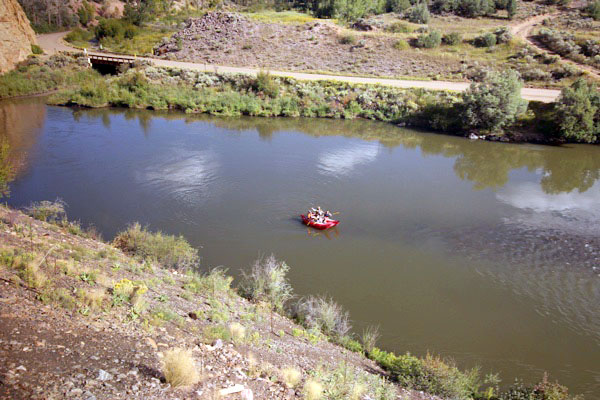
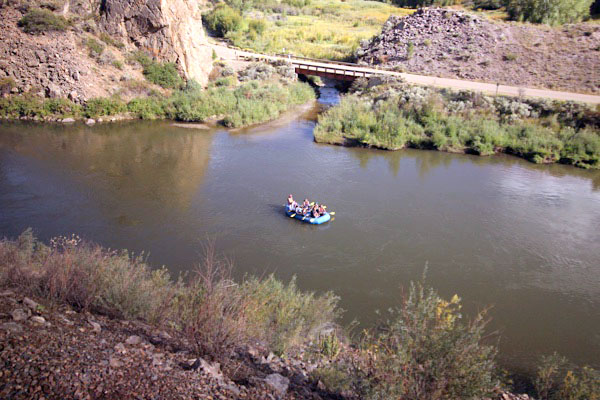
Kremmling, Co / Sep 2023 / RWH
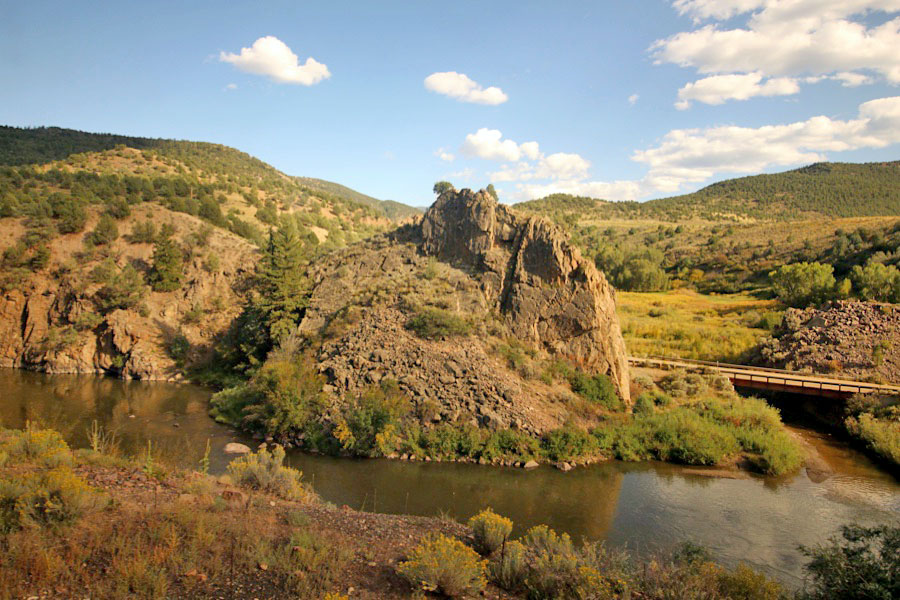
Kremmling, Co / Sep 2023 / RWH
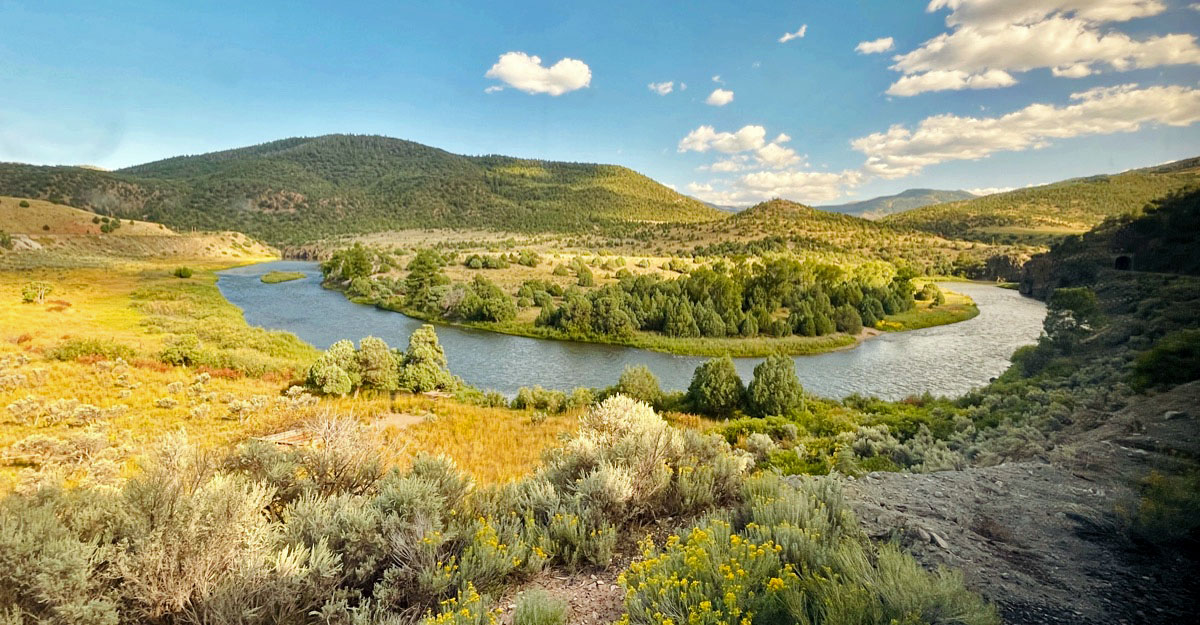
Kremmling, Co / Sep 2023 / RWH
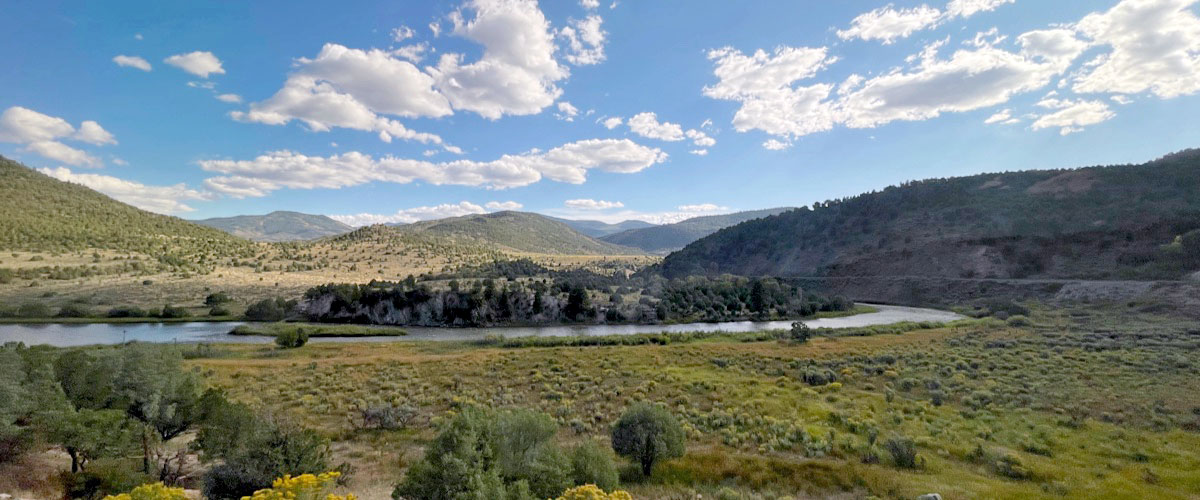
Kremmling, Co / Sep 2023 / RWH
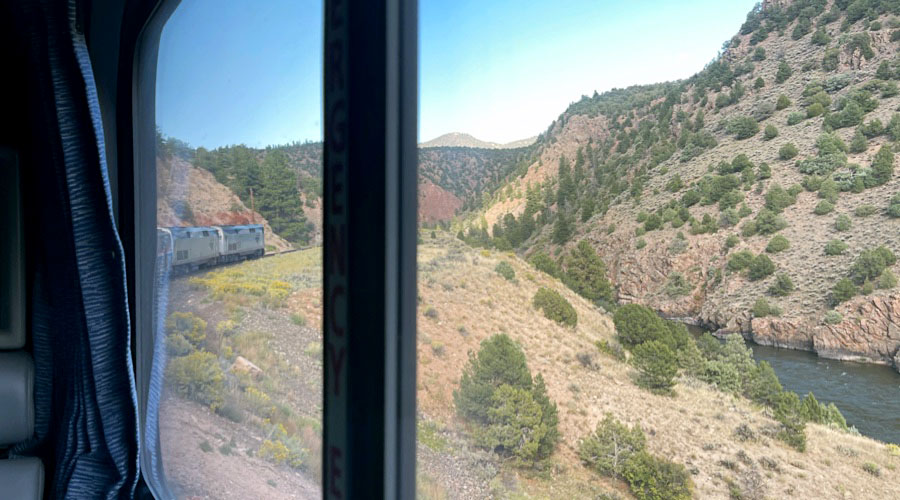
Kremmling, Co / Sep 2023 / RWH
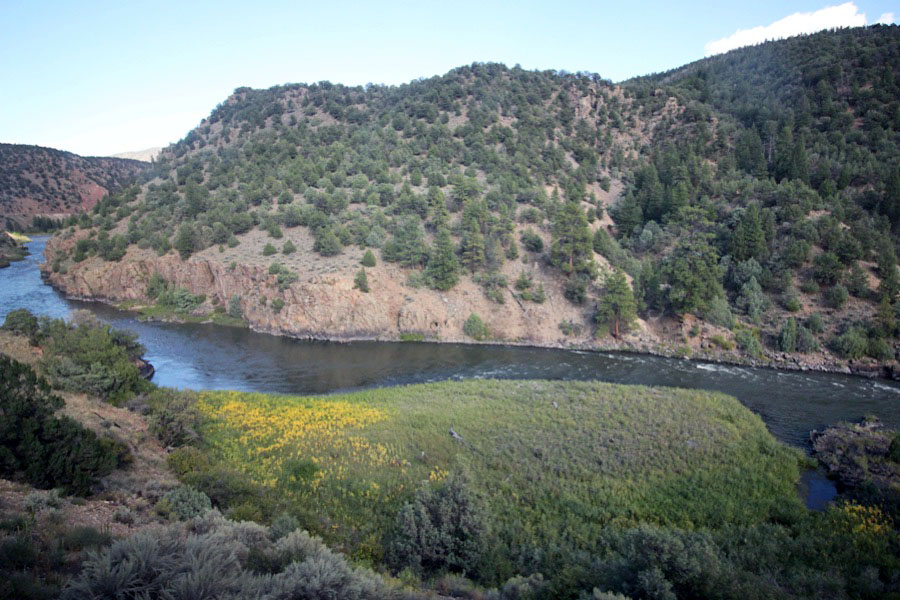
Kremmling, Co / Sep 2023 / RWH
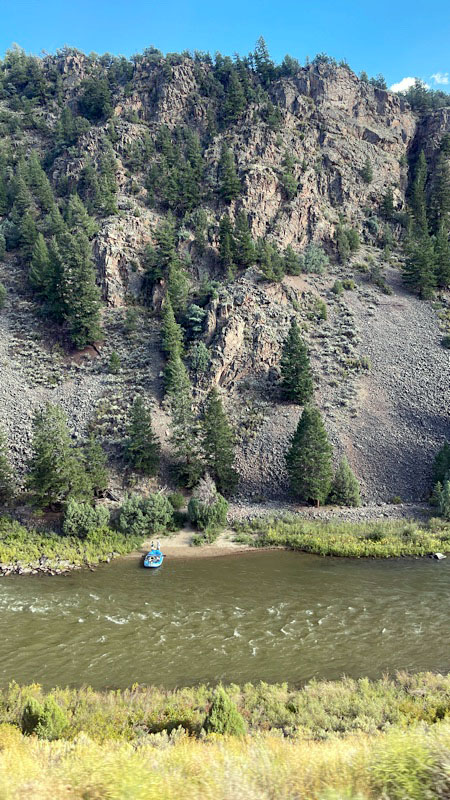
Sep 2023 / RWH
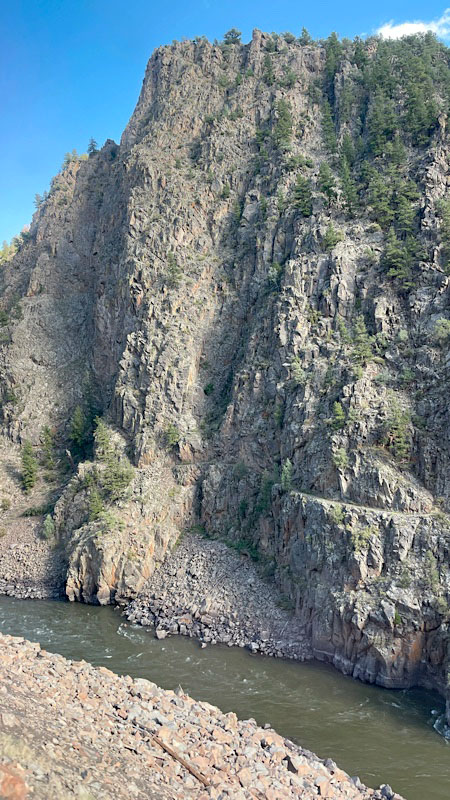
Sep 2023 / RWH
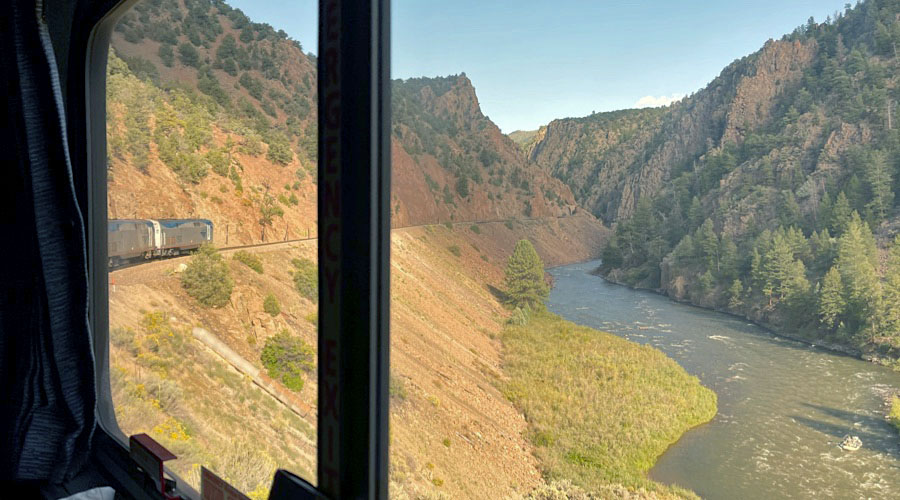
Kremmling, Co / Sep 2023 / RWH
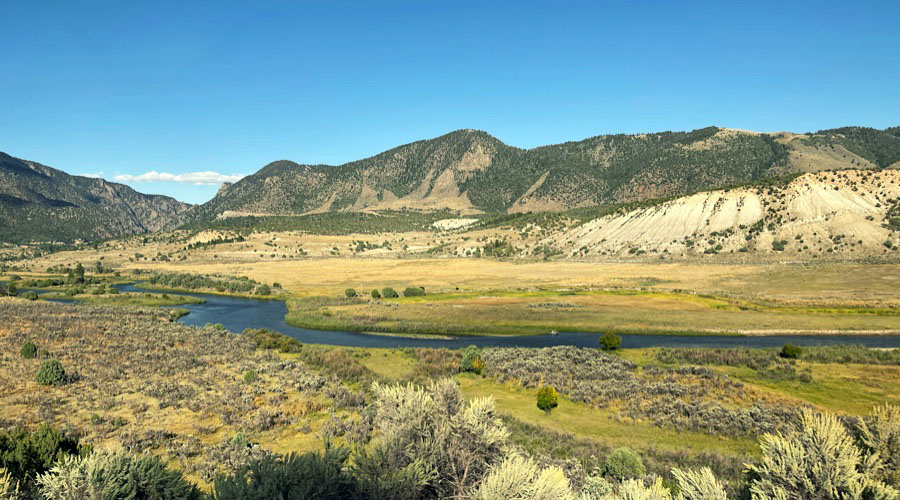
Kremmling, Co / Sep 2023 / RWH
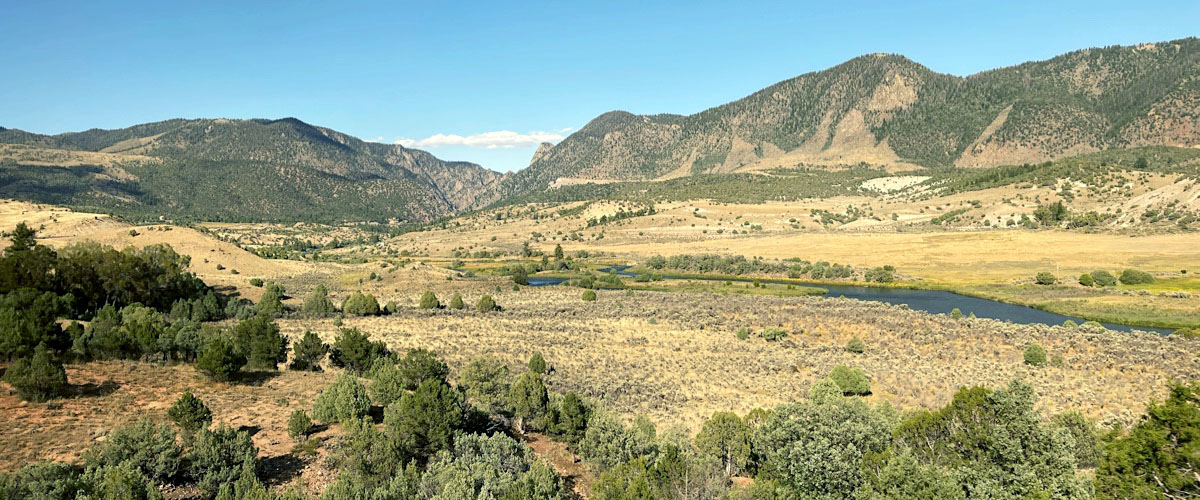
Kremmling, Co / Sep 2023 / RWH
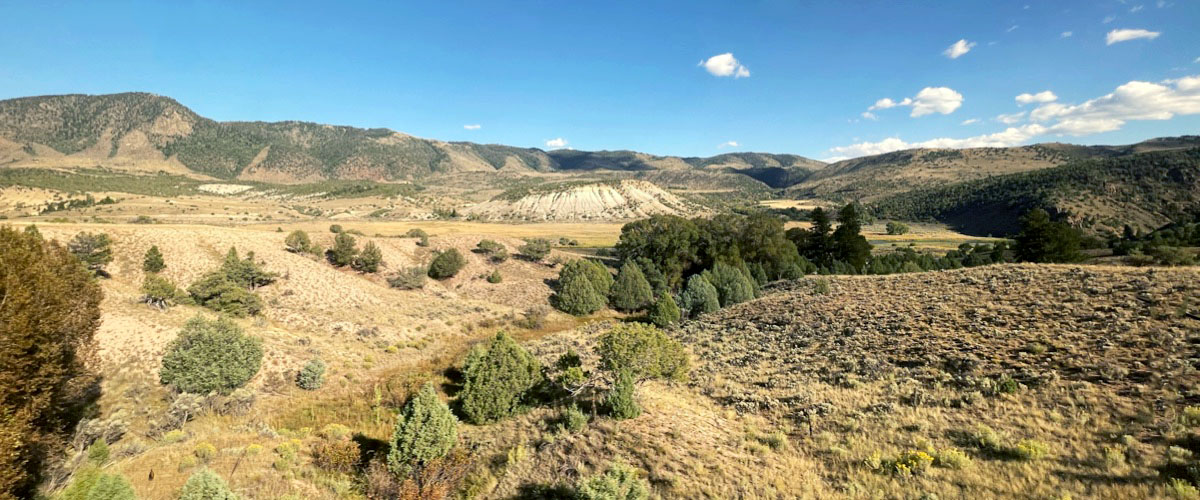
Kremmling, Co / Sep 2023 / RWH
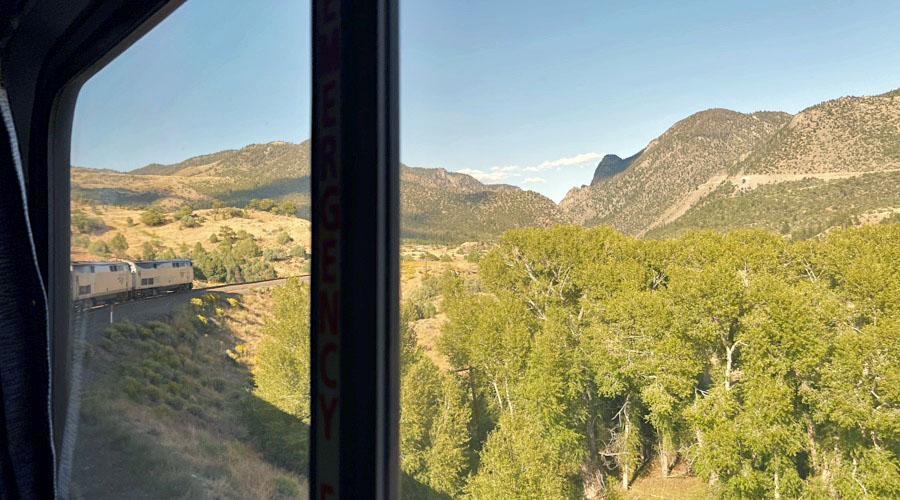
Kremmling, Co / Sep 2023 / RWH
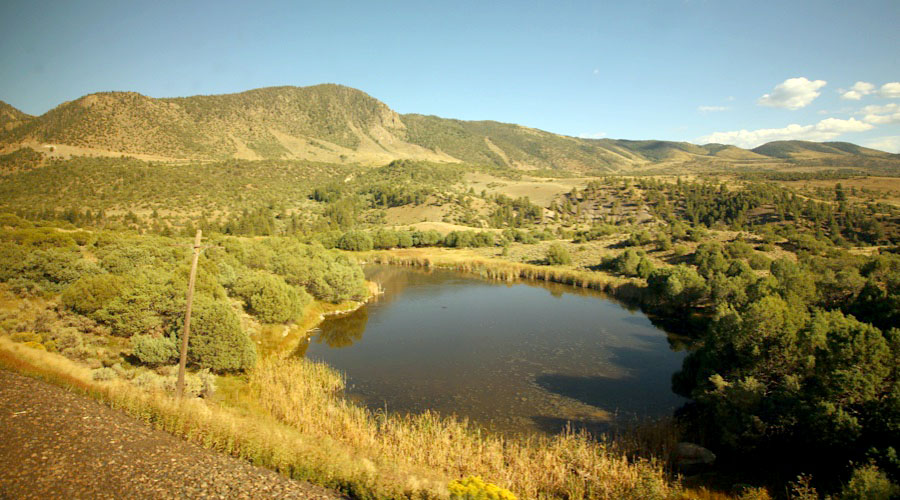
Kremmling, Co / Sep 2023 / RWH
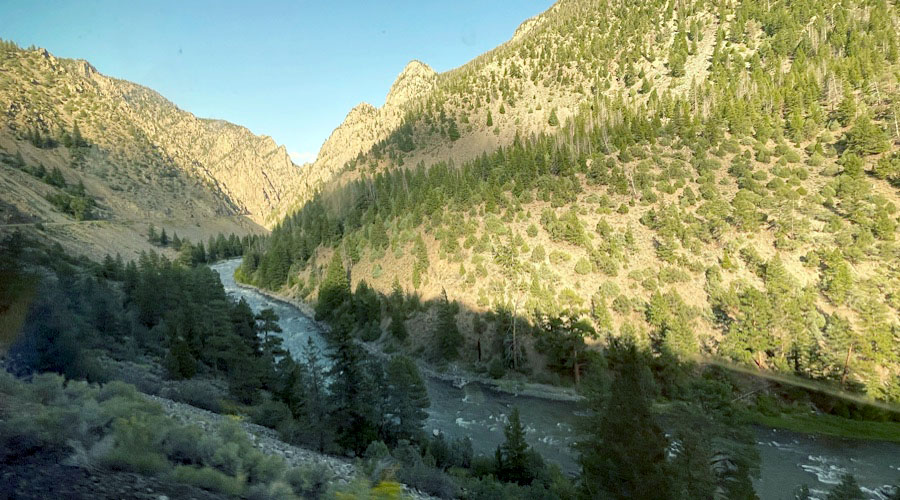
Kremmling, Co / Sep 2023 / RWH
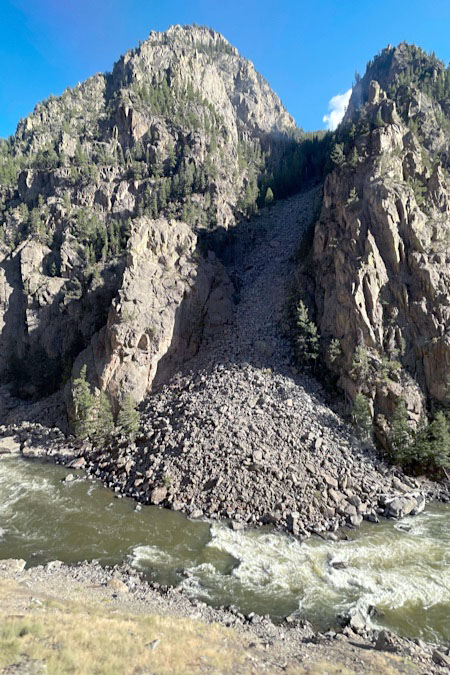
Sep 2023 / RWH
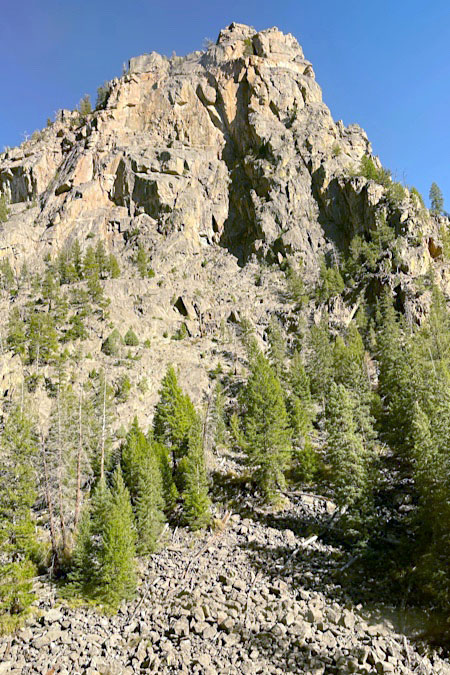
Sep 2023 / RWH
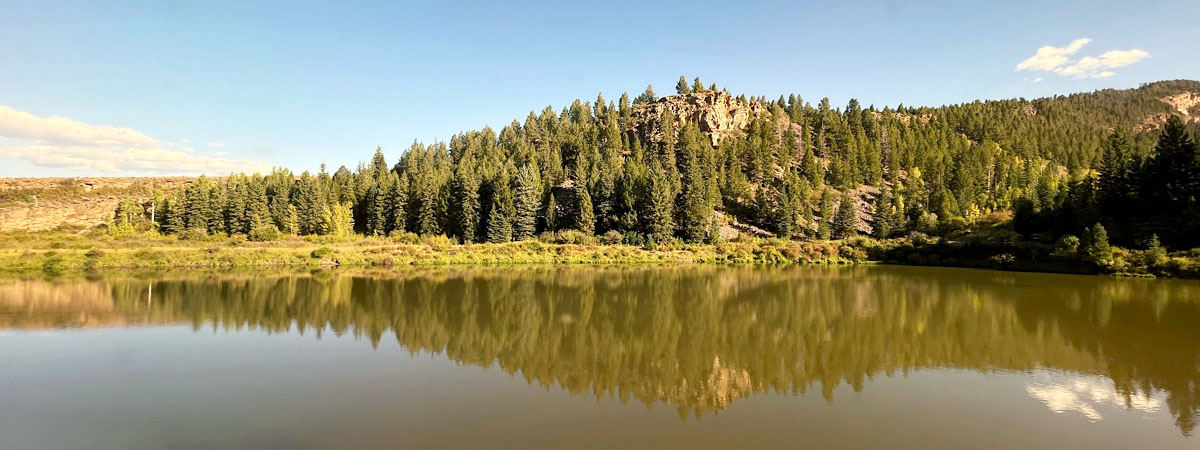
Kremmling, Co / Sep 2023 / RWH
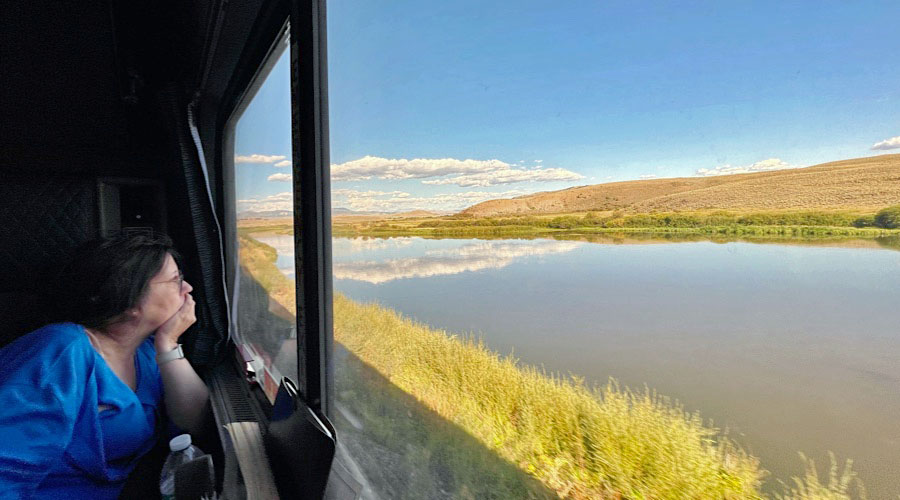
Kremmling, Co / Sep 2023 / RWH

Kremmling, Co / Sep 2023 / RWH
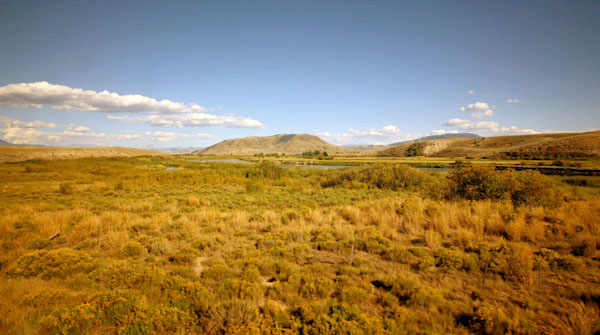
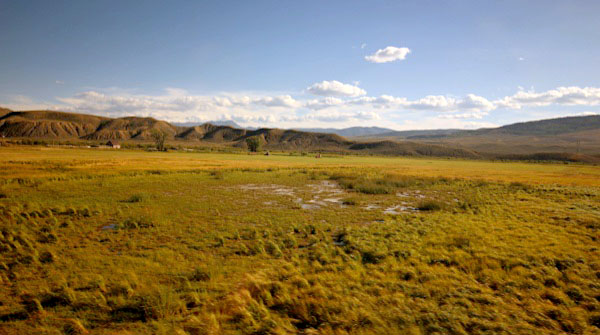
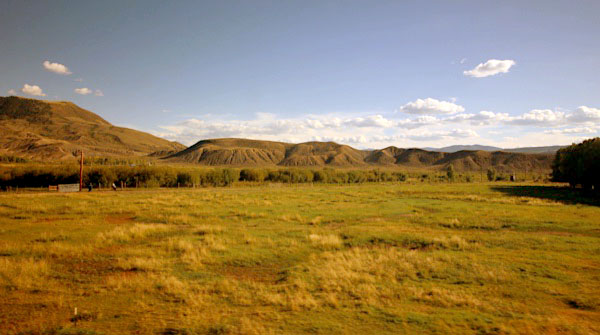
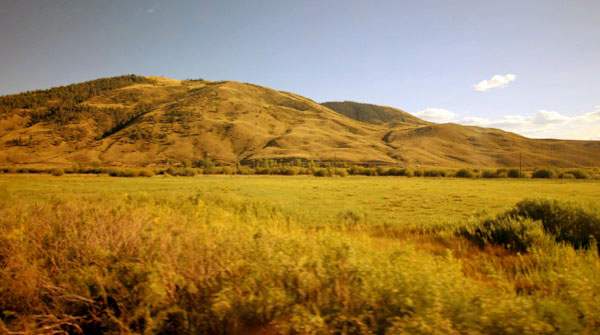
Kremmling, Co / Sep 2023 / RWH
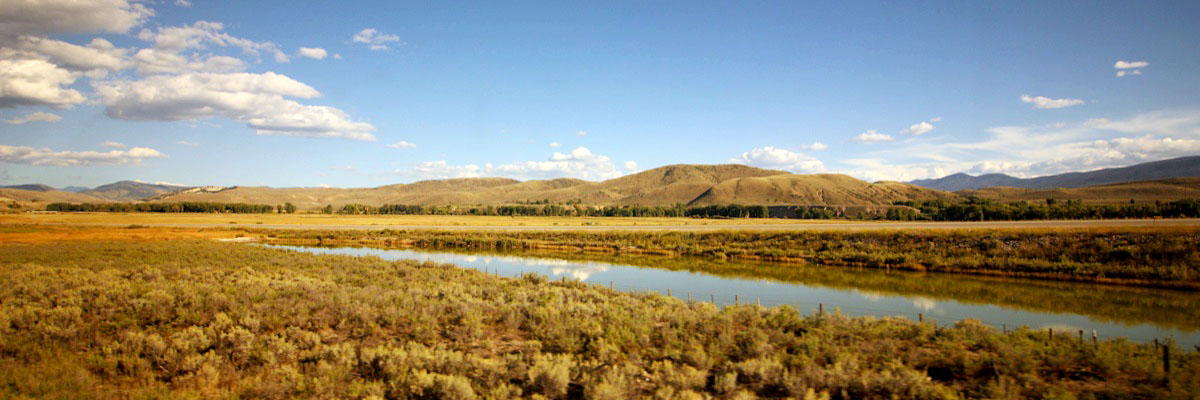
Kremmling, Co / Sep 2023 / RWH
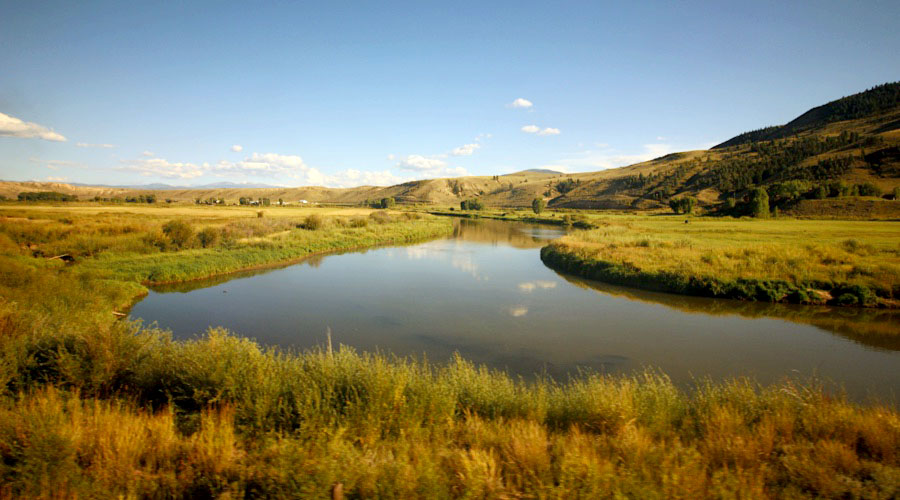
Kremmling, Co / Sep 2023 / RWH
 Vista Domes
Vista Domes
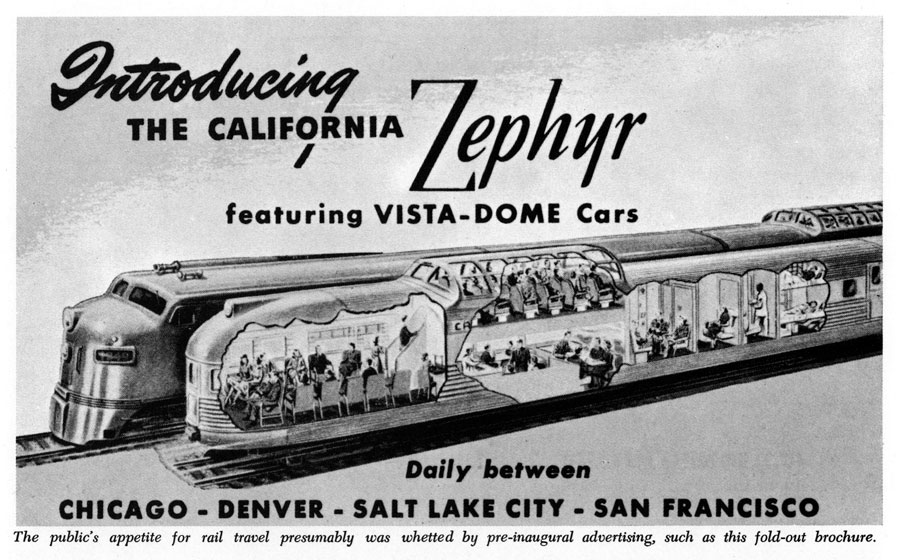
collection

collection
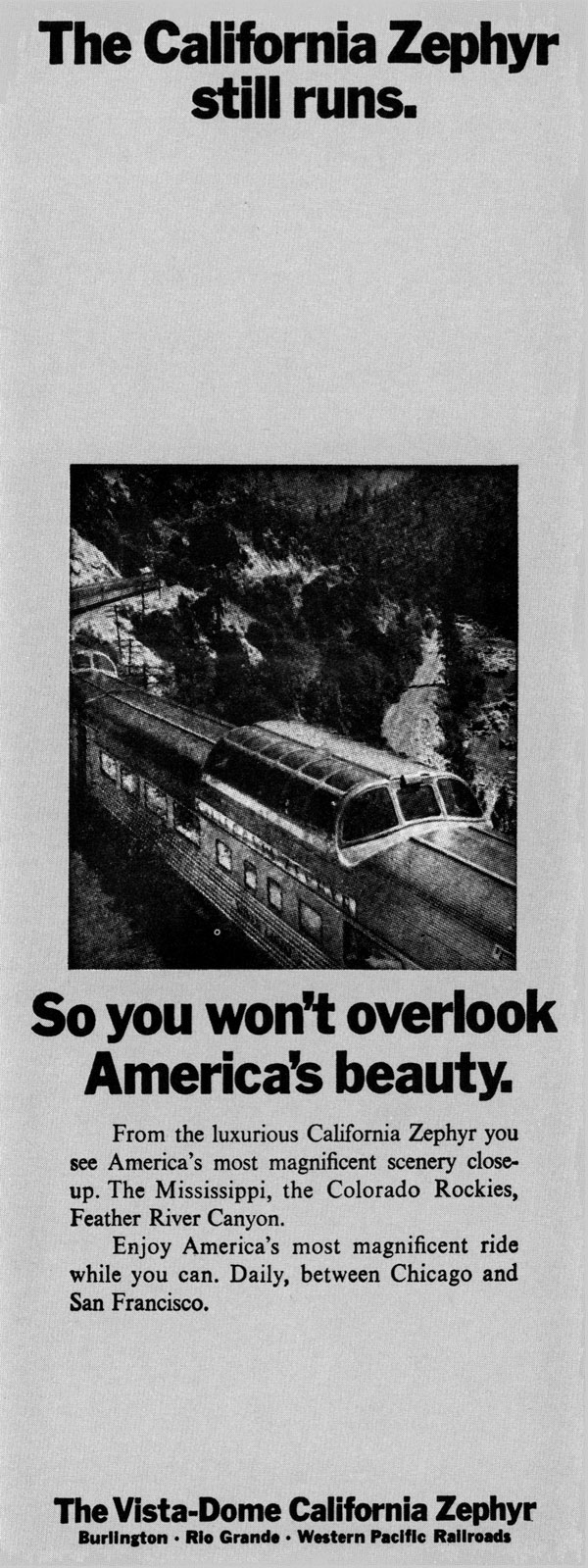
collection
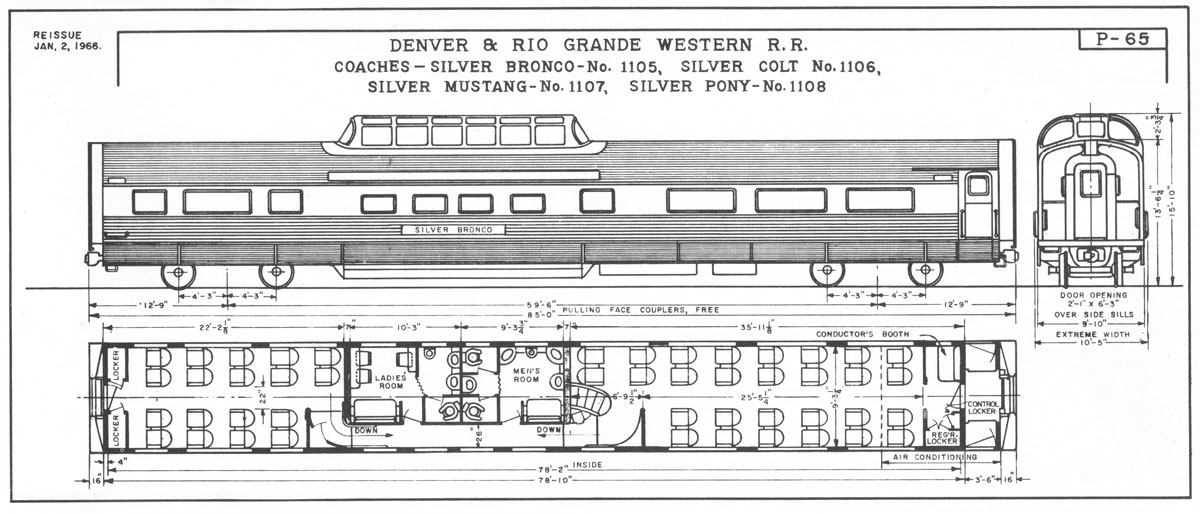
from The Story of the California Zephyr
by Karl R. Zimmermann / collection

In the winter of 1968, my parents took a trip aboard the westbound California Zephyr. They departed in a Pullman sleeper from Chicago on the 9th of February, going as far west as Sacramento ... less than 100 miles from the end of the route in Oakland. En route, especially in the Rockies, dad obviously pulled out his Twin Reflex 120 film camera, as the photos below show some terrific scenes snapped from several of the Vista Dome coaches in the upstairs seating area. A variety of motive power consists can be seen on the point along the way, including an impressive 6-unit lashup in one photo. One image seems to show a sister Cali Zephyr in the other direction, having just passed their train in a meet.
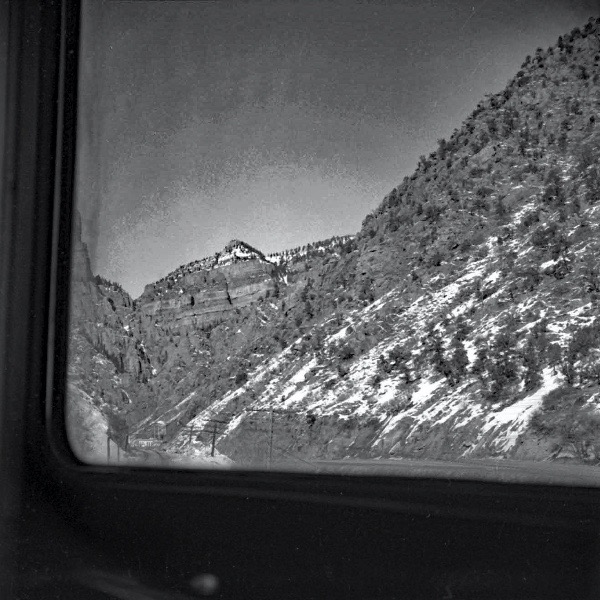
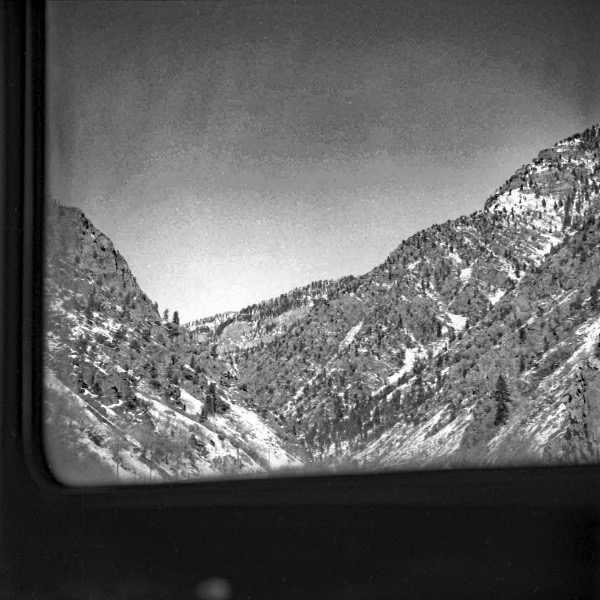
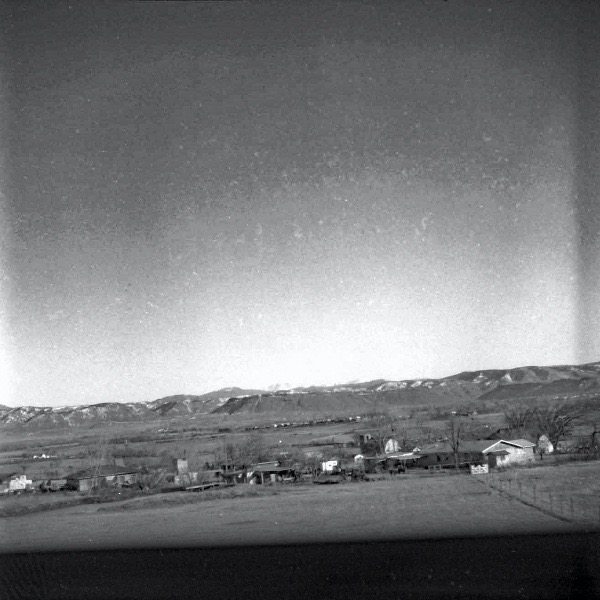
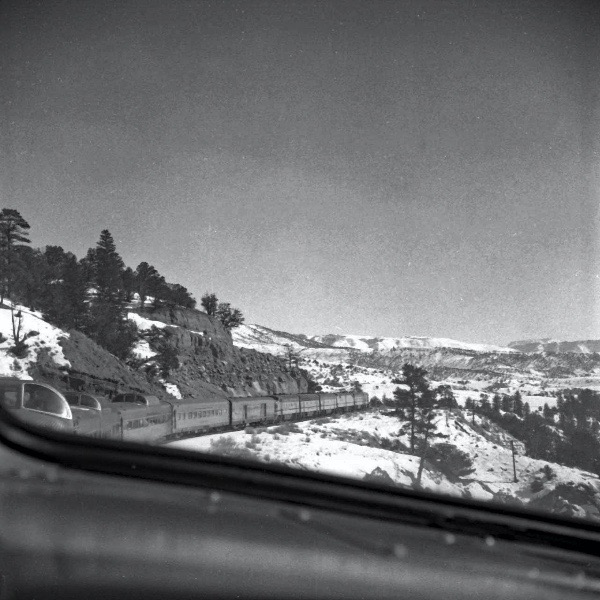
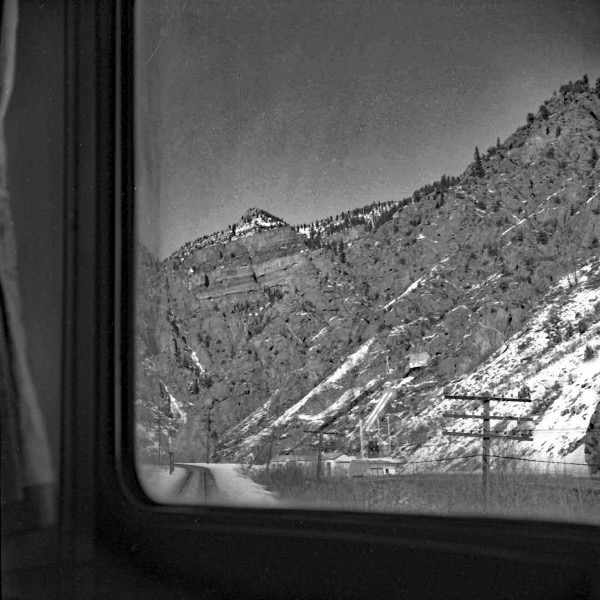
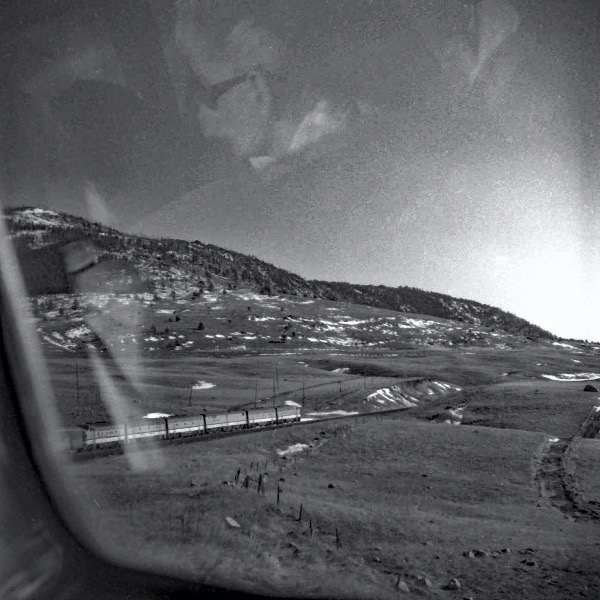
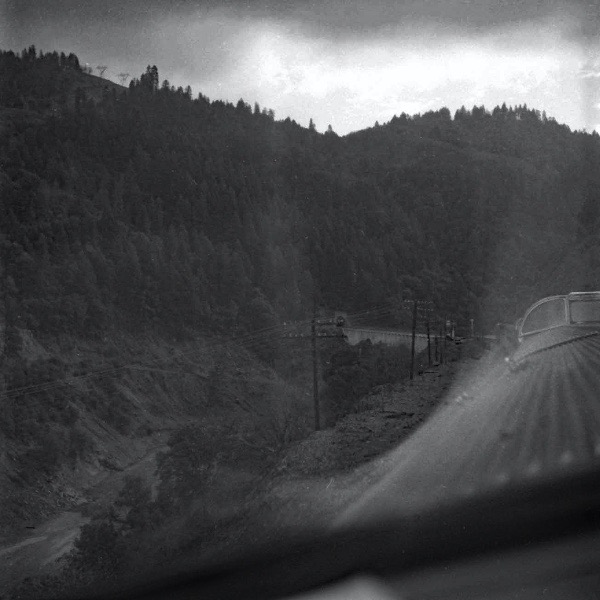
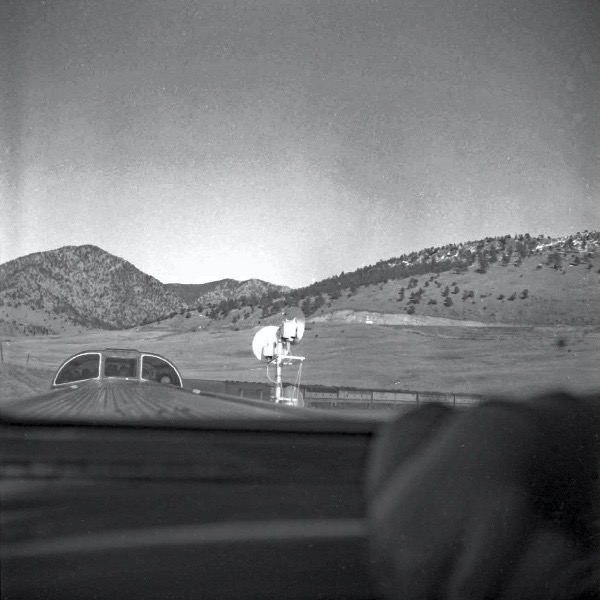
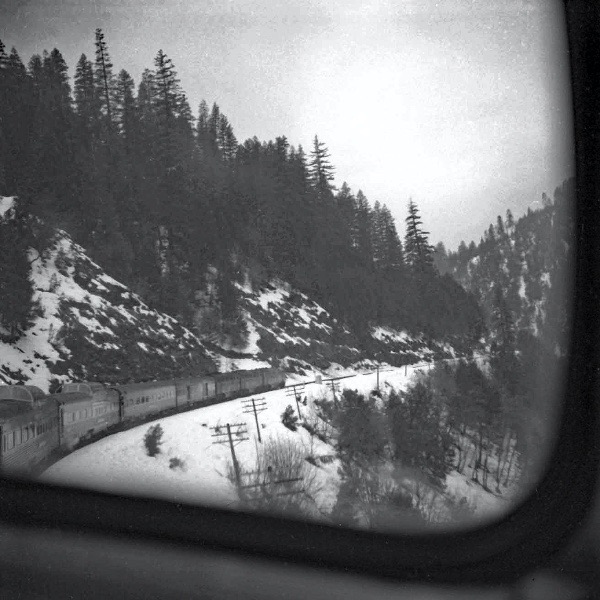
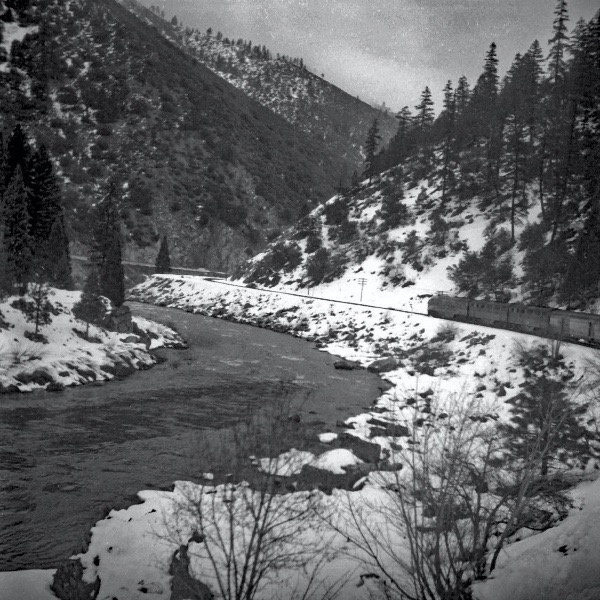
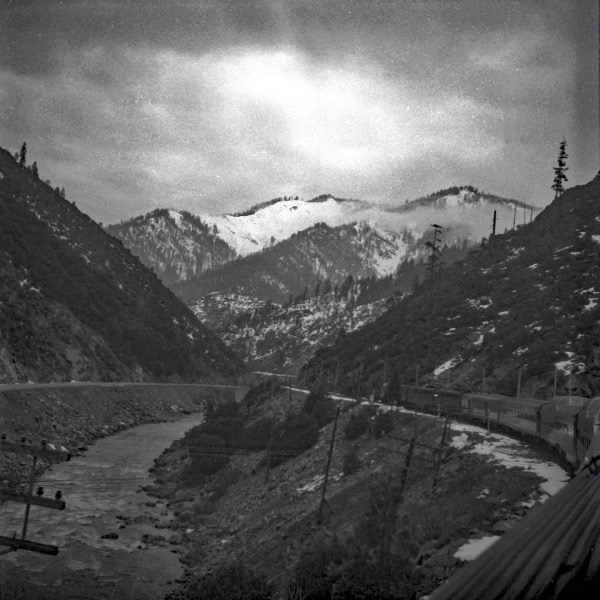
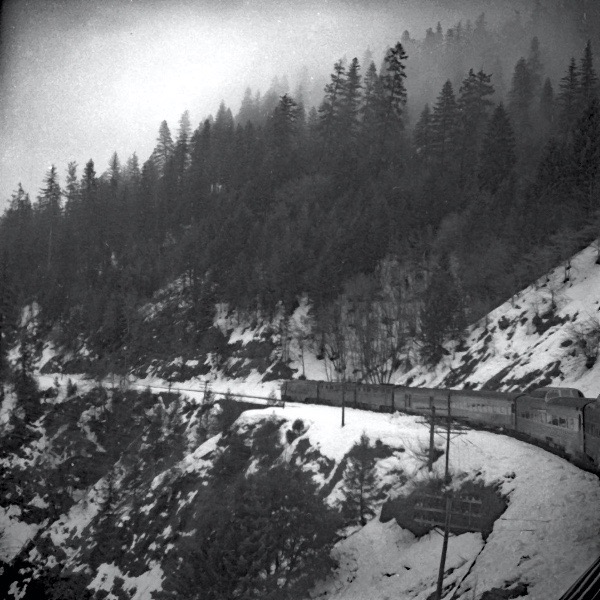
Feb 1968 / JCH

 "A vice-president of the Electro-Motive Division of General Motors was riding in the cab of a Rio Grande diesel through this canyon in 1944," she explained.
"The majestic scenery inspired him and challenged his inventive nature to provide for passengers the same unobstructed view he enjoyed from the locomotive cab." Cyrus R. Osborn, this man with a revolutionary idea, is said to have remarked at the time to the engineer that "a lot of people would pay five hundred dollars for the fireman's seat from Chicago to San Francisco if they knew what they could see from it." Accordingly, when Mr. Osborn arrived at his destination and was comfortably settled in Salt Lake's Hotel Utah, he sketched first drafts of upper-deck observa-tories. Thus the Vista-Dome was conceived. General Motors was enthusiastic about the idea and made it a part of their Train of Tomorrow, which toured the country in the late 1940's. The Burlington shared GM's excitement and built the Silver Dome in 1945. Within three months it was decided that the CZ, then in planning, would have domes.
"A vice-president of the Electro-Motive Division of General Motors was riding in the cab of a Rio Grande diesel through this canyon in 1944," she explained.
"The majestic scenery inspired him and challenged his inventive nature to provide for passengers the same unobstructed view he enjoyed from the locomotive cab." Cyrus R. Osborn, this man with a revolutionary idea, is said to have remarked at the time to the engineer that "a lot of people would pay five hundred dollars for the fireman's seat from Chicago to San Francisco if they knew what they could see from it." Accordingly, when Mr. Osborn arrived at his destination and was comfortably settled in Salt Lake's Hotel Utah, he sketched first drafts of upper-deck observa-tories. Thus the Vista-Dome was conceived. General Motors was enthusiastic about the idea and made it a part of their Train of Tomorrow, which toured the country in the late 1940's. The Burlington shared GM's excitement and built the Silver Dome in 1945. Within three months it was decided that the CZ, then in planning, would have domes.
Karl R. Zimmerman / The Story of the California Zephyr
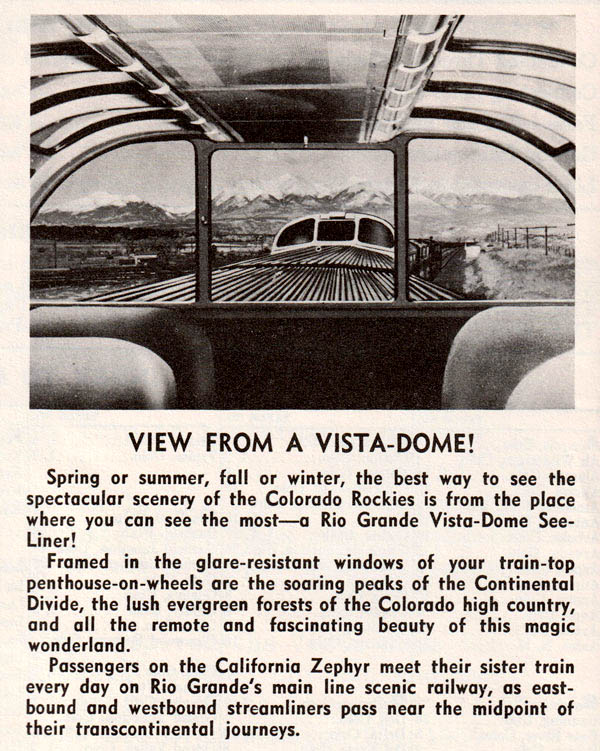
collection
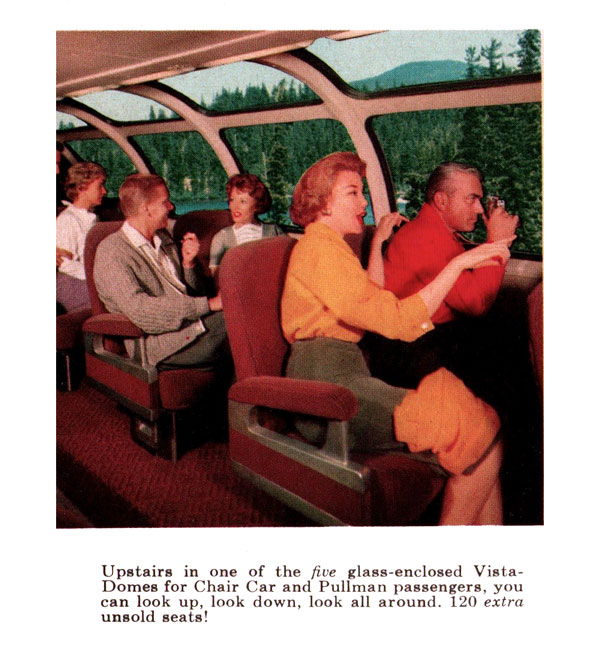
collection
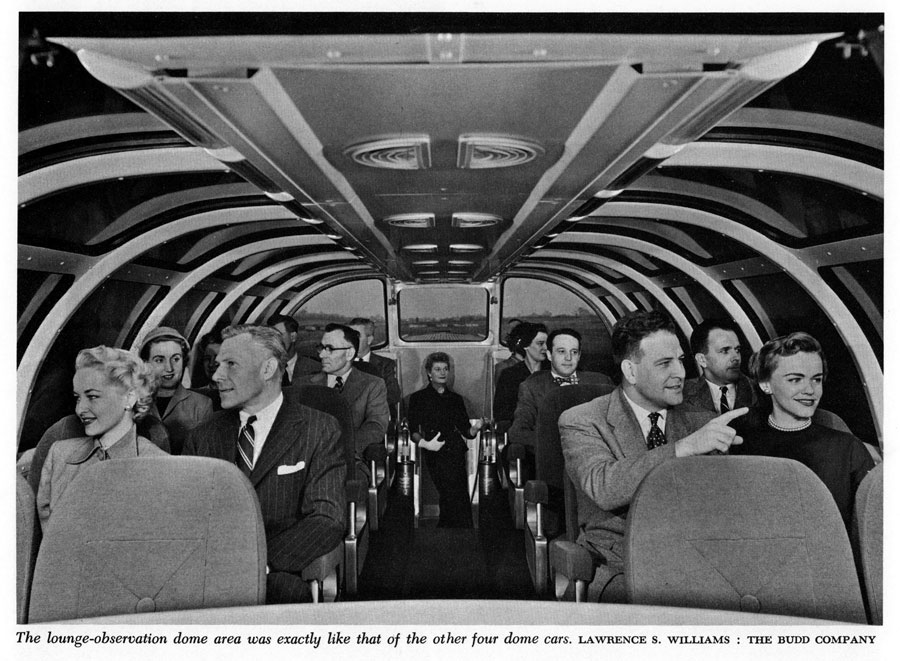
from The Story of the California Zephyr by Karl Zimmermann / collection
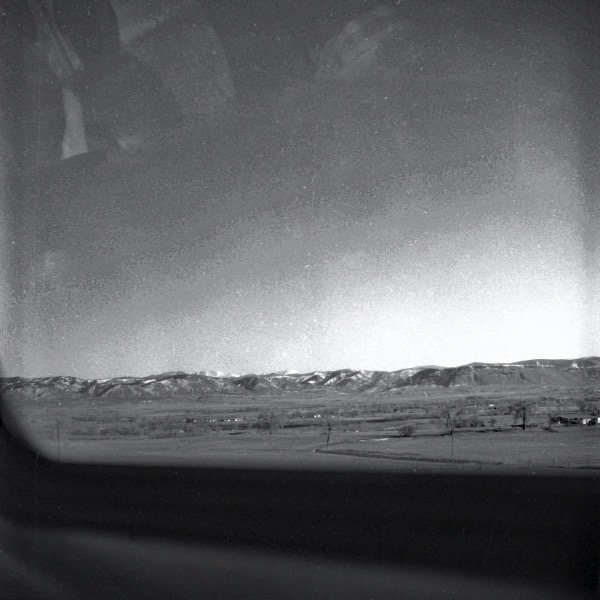
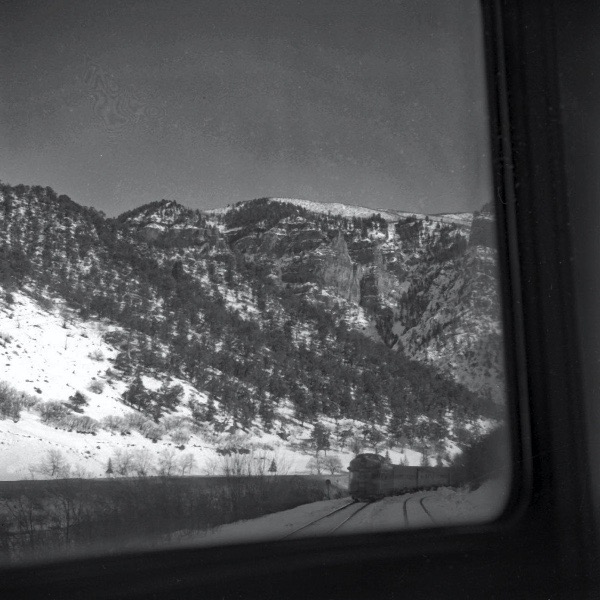
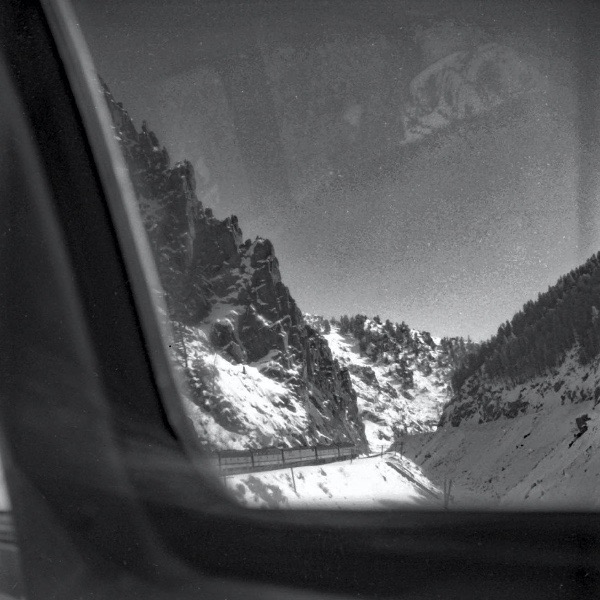
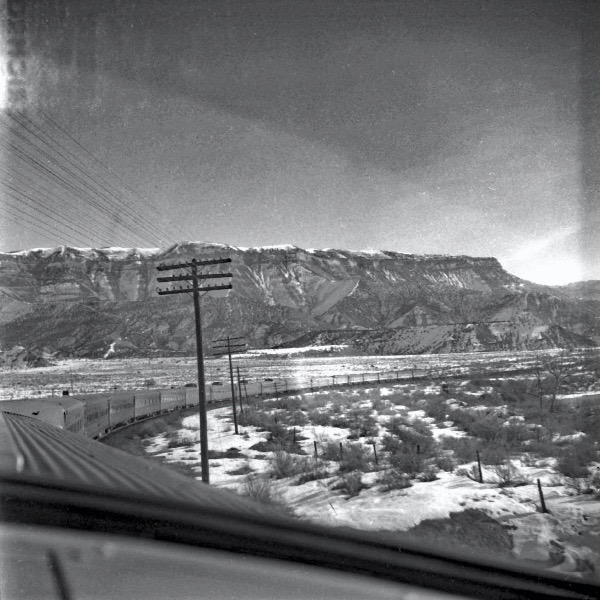
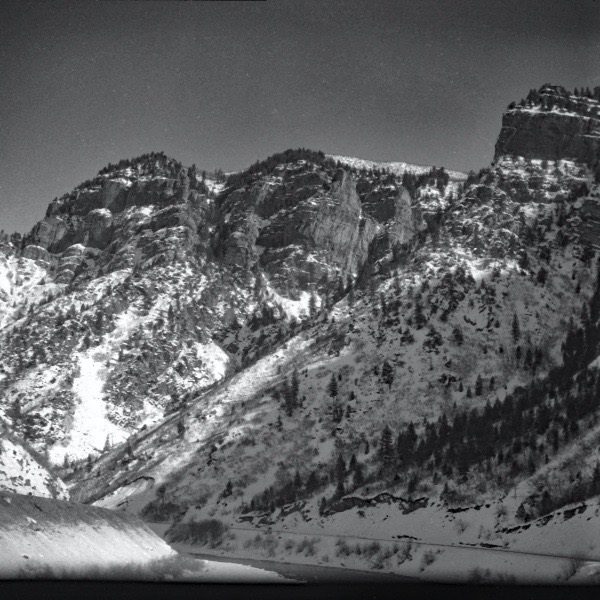
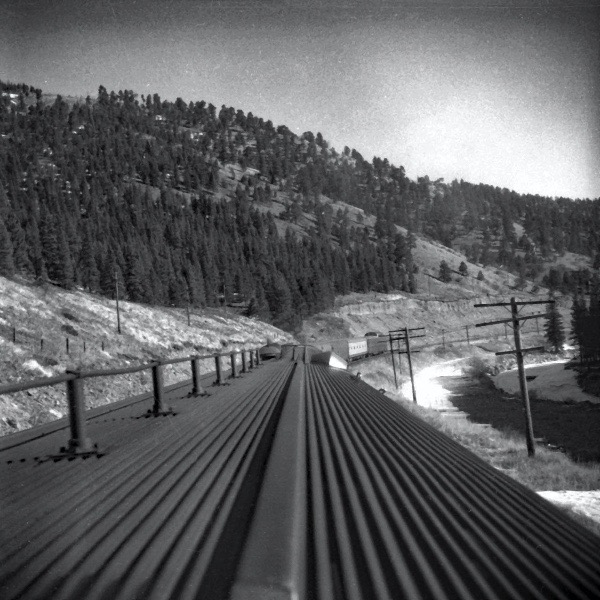
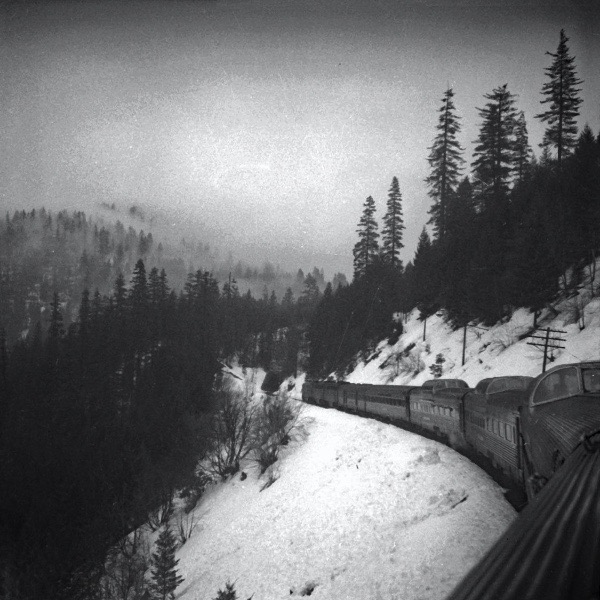
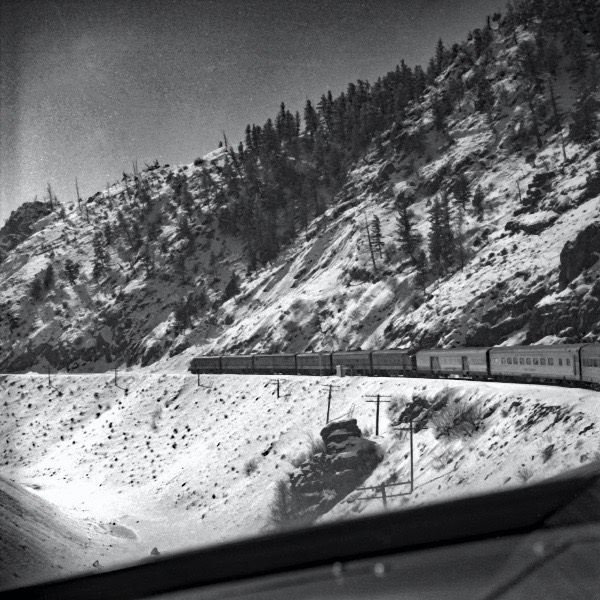
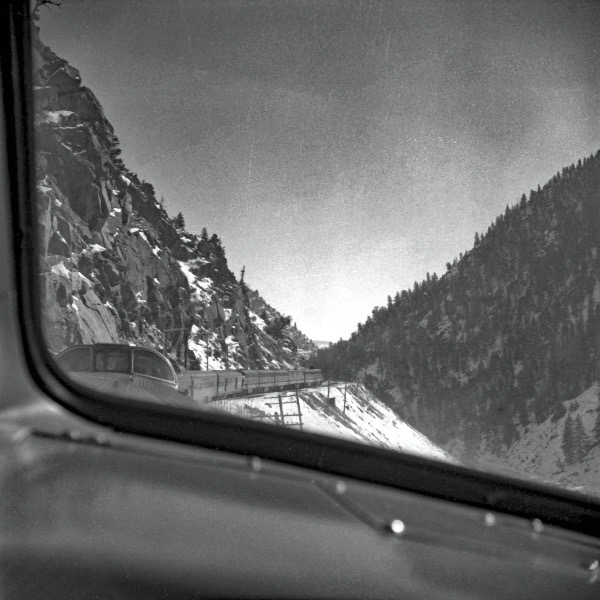
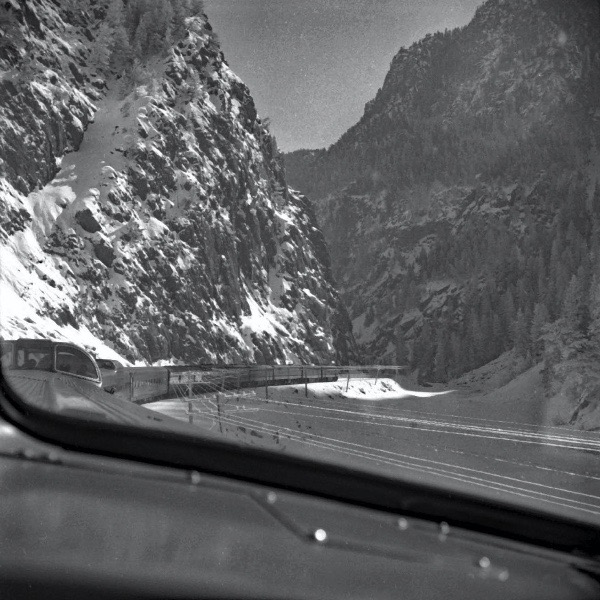
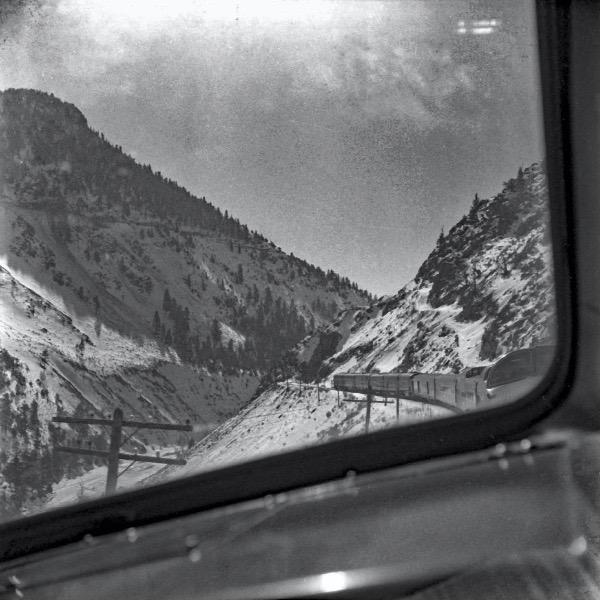
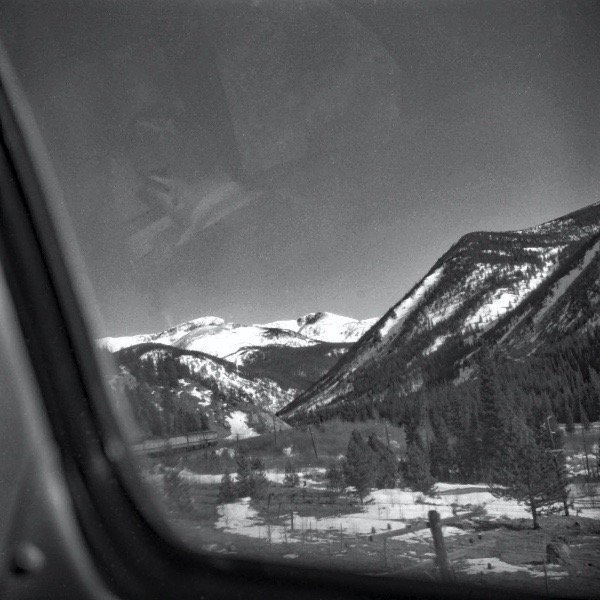
Feb 1968 / JCH
 Monument to an Idea
Monument to an Idea
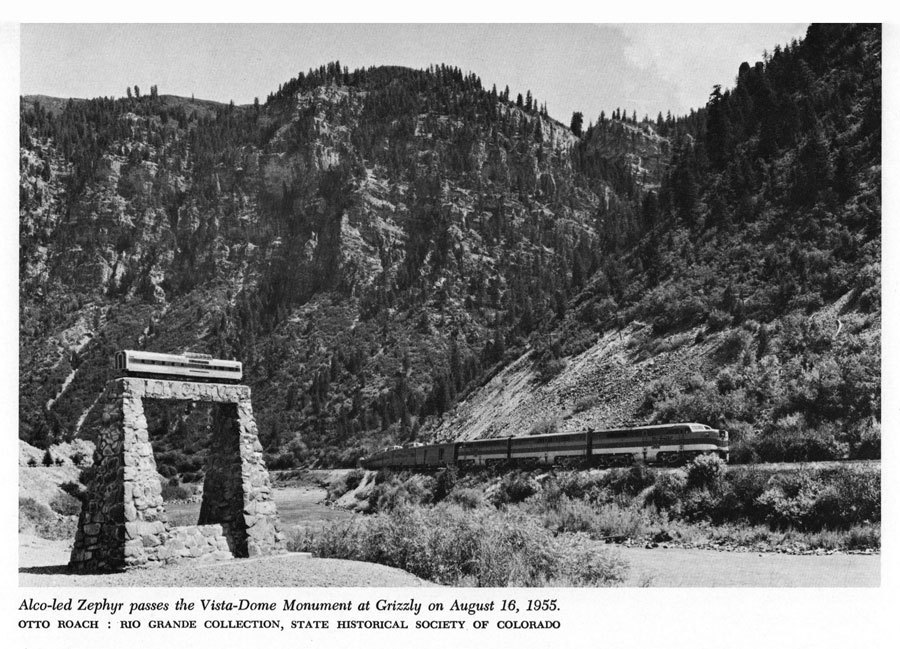
from The Story of the California Zephyr
by Karl Zimmermann / collection

 n September 21, 1950, where Grizzly Creek adds its small flow to the mighty Colorado River, a "Monument to an Idea" was dedicated, with Wilson McCarthy and Cyrus Osborn the principal speakers — indicative of the joint aegis of General Motors and the Rio Grande over the project. The arch of native granite should support the 9-foot-long, 500-pound replica for some time to come; already it has outlived the California Zephyr, the train that made the Vista-Dome famous.
n September 21, 1950, where Grizzly Creek adds its small flow to the mighty Colorado River, a "Monument to an Idea" was dedicated, with Wilson McCarthy and Cyrus Osborn the principal speakers — indicative of the joint aegis of General Motors and the Rio Grande over the project. The arch of native granite should support the 9-foot-long, 500-pound replica for some time to come; already it has outlived the California Zephyr, the train that made the Vista-Dome famous.
Karl R. Zimmerman / The Story of the California Zephyr
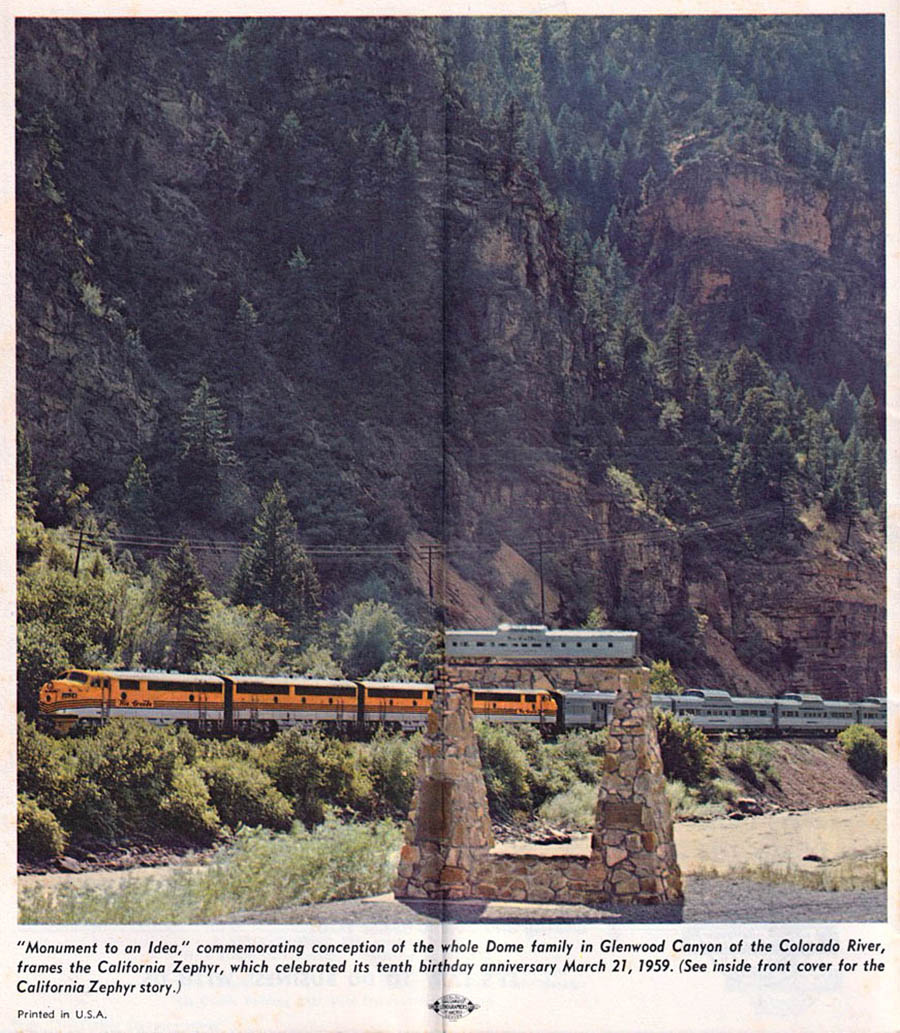
1959 timetable / collection
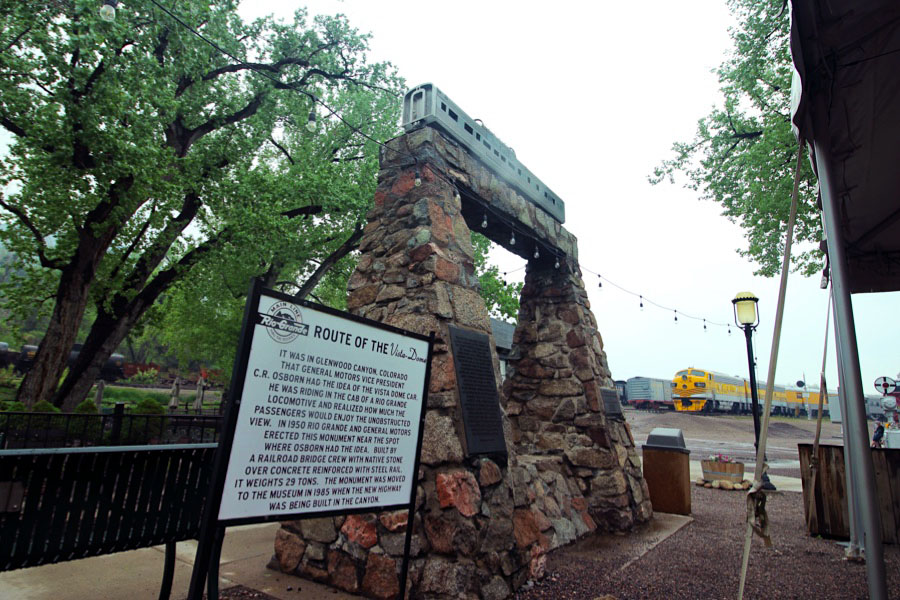
Golden, Co / May 2023 / RWH
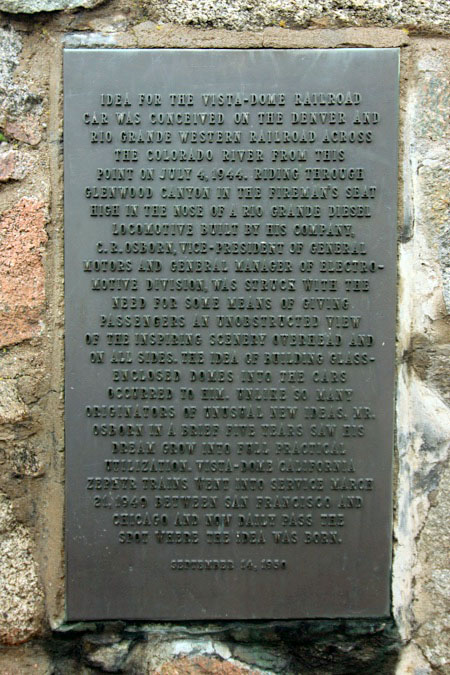
May 2023 / RWH
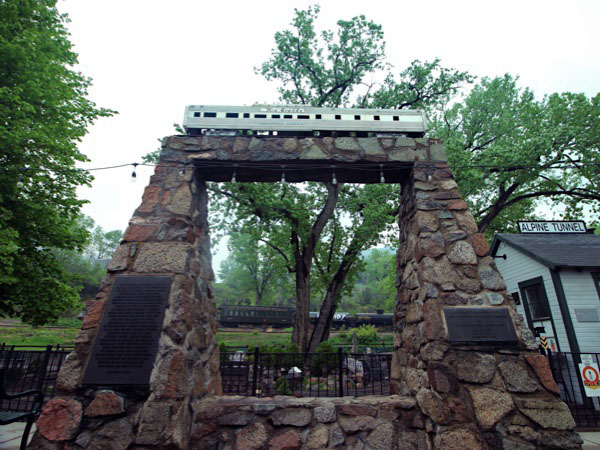
Golden, Co / May 2023 / RWH
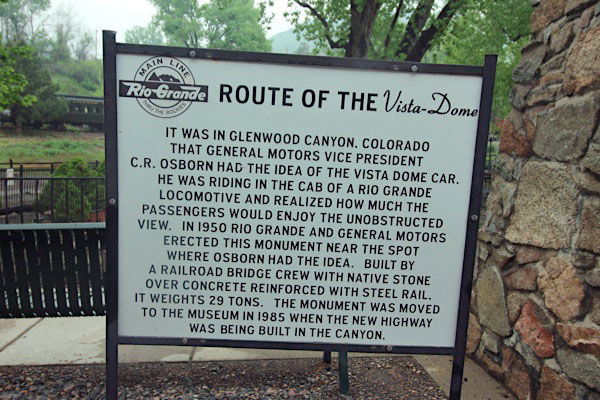
May 2023 / RWH
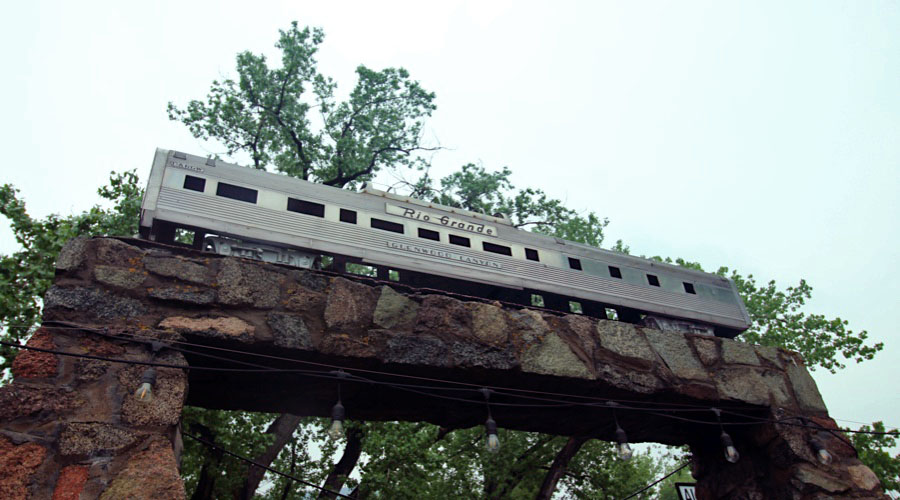
Golden, Co / May 2023 / RWH
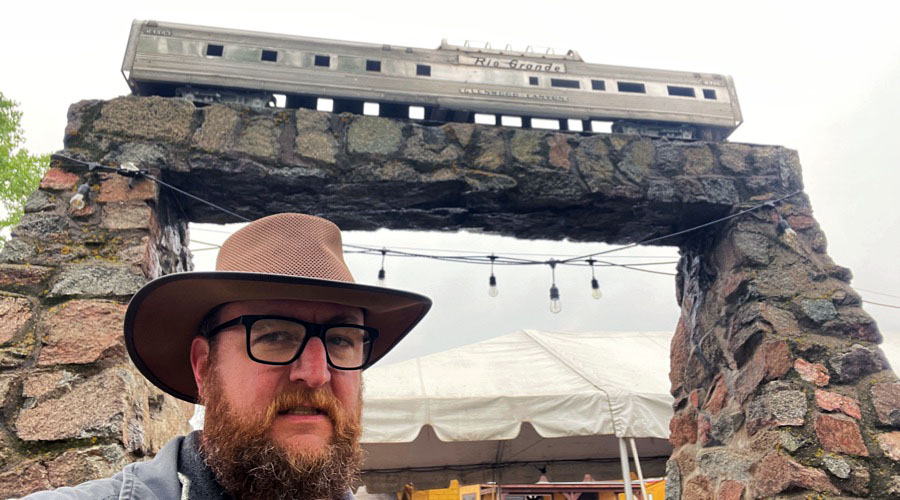
Golden, Co / May 2023 / RWH
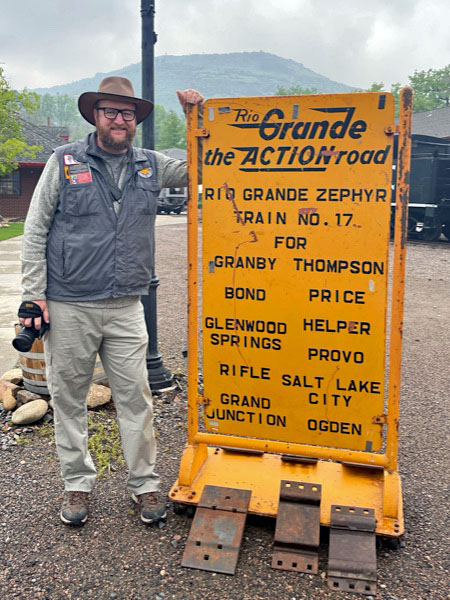
May 2023 / ETH

See also our complete Colorado Railroad Museum scrapbook in Preservation
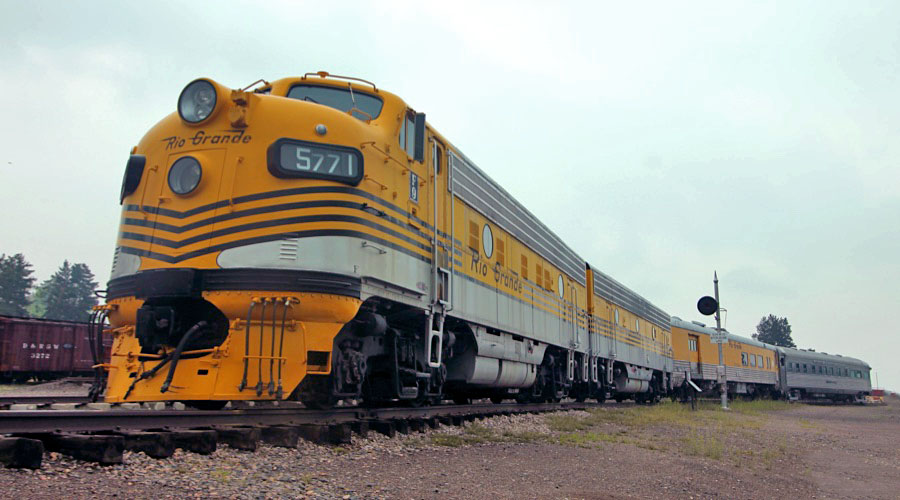
Golden, Co / May 2023 / RWH
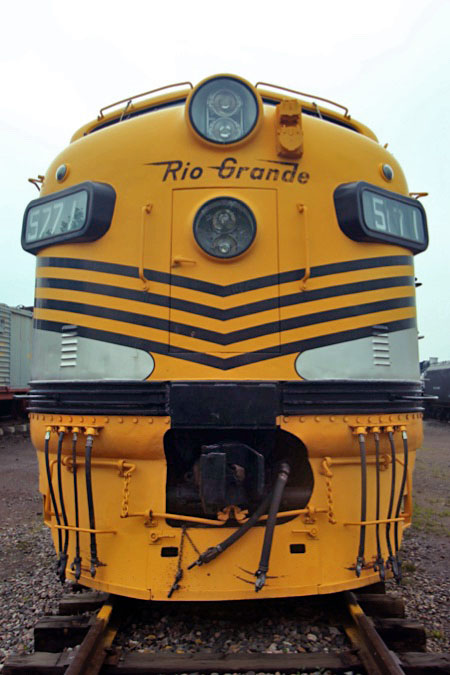
May 2023 / RWH
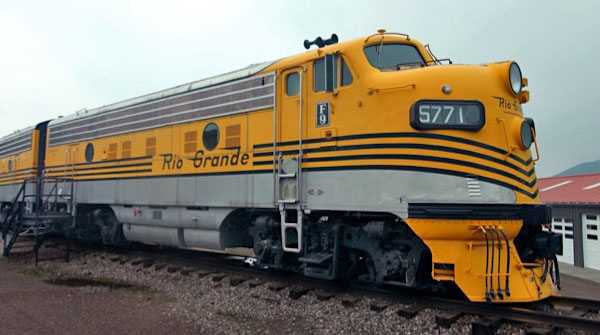
Golden, Co / May 2023 / RWH
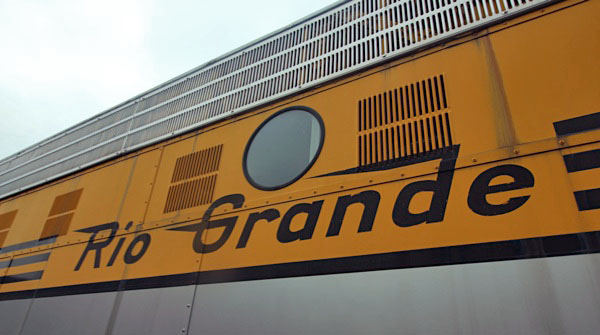
May 2023 / RWH
 Glenwood Springs, Co
Glenwood Springs, Co

1967 brochure / collection
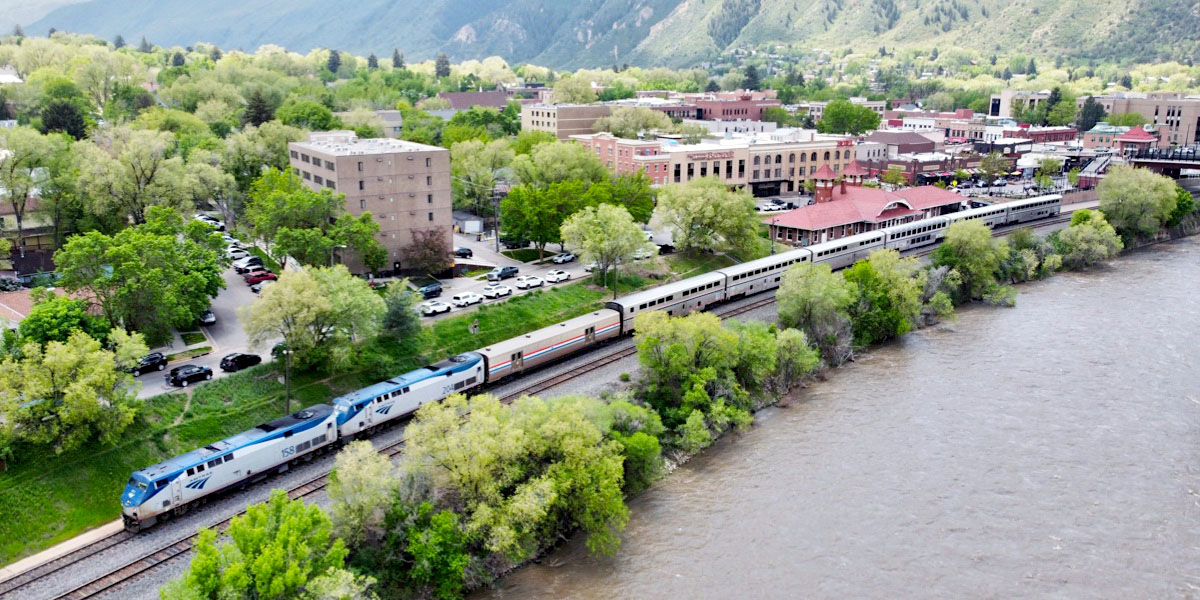
Glenwood Springs, Co / May 2023 / RWH

Originally inhabited by nomadic Ute Indian tribes, this area of bubbling hot springs has long been a destination for the health seeker. In the early 1880’s, James Landis homesteaded the confluence of the Roaring Fork and Grand Rivers that would become Glenwood Springs. Early settlers Isaac Cooper and Walter Devereux saw the potential for Glenwood Springs to become a highly regarded destination and developed these amenities into a world-class resort. The arrival of the railroads in 1887 brought the first trainloads of tourists to enjoy all that Glenwood had to offer. The addition of the Vapor Caves, Hotel Colorado and Fairy Caves provided a total package for travelers. The local economy was not only fueled by tourism but also by coal mining, farming and ranching, commerce and outdoor recreation. A visit to historic Glenwood Springs will take guests back in time to enjoy all of the amenities that were formerly reserved for the well-to-do.
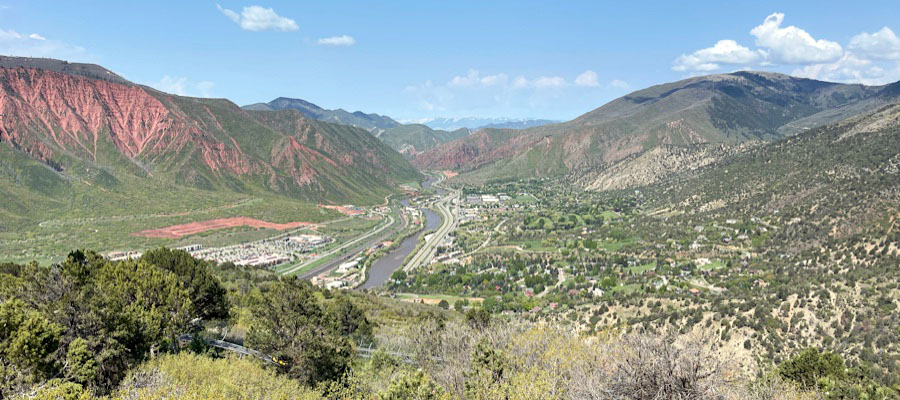
Glenwood Springs, Co / May 2023 / RWH
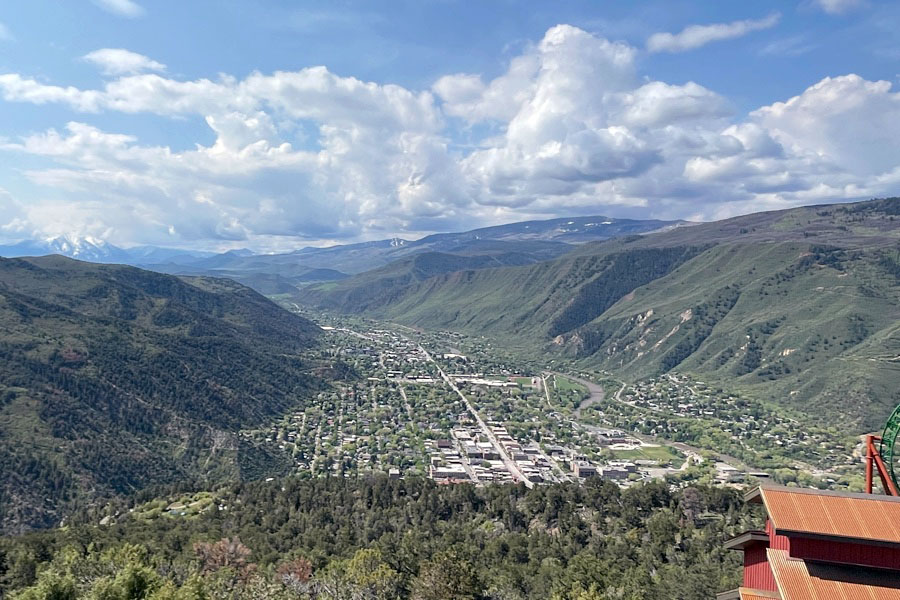
Glenwood Springs, Co / May 2023 / RWH
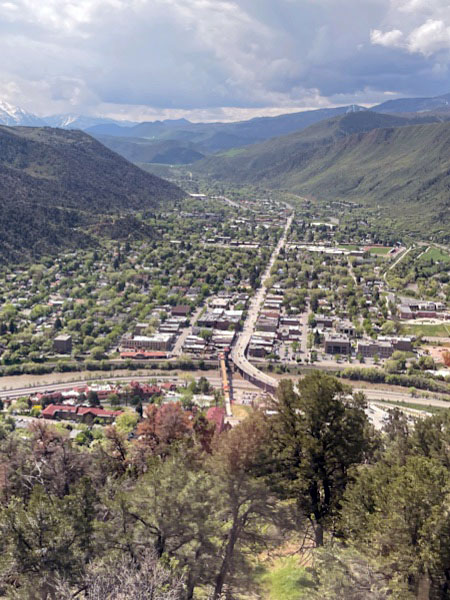
May 2023 / RWH
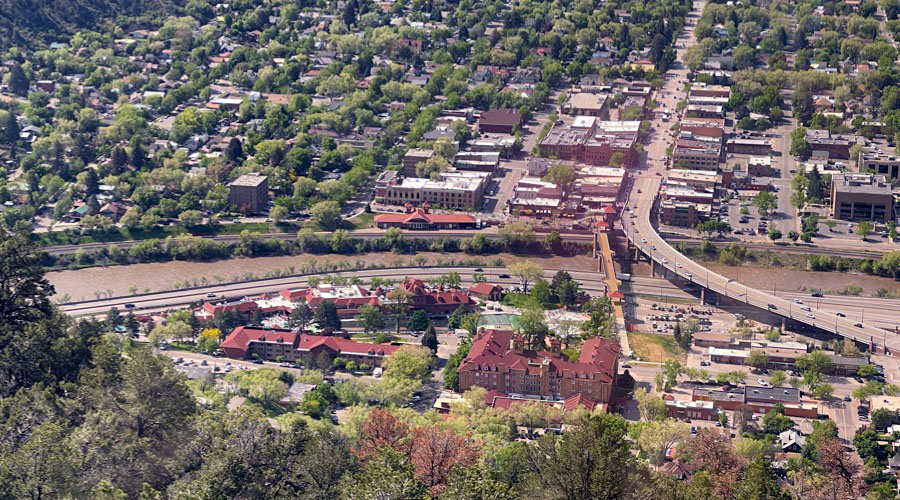
Glenwood Springs, Co / May 2023 / RWH
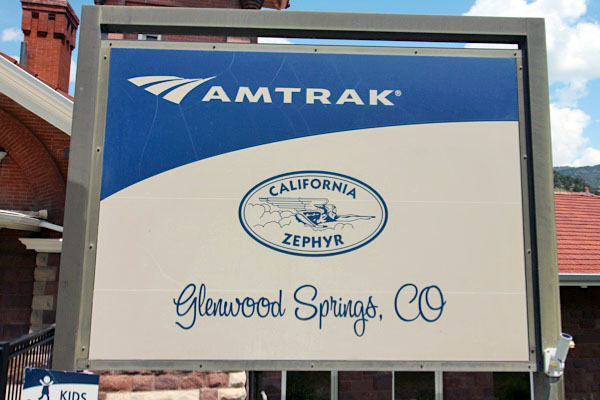
May 2023 / RWH
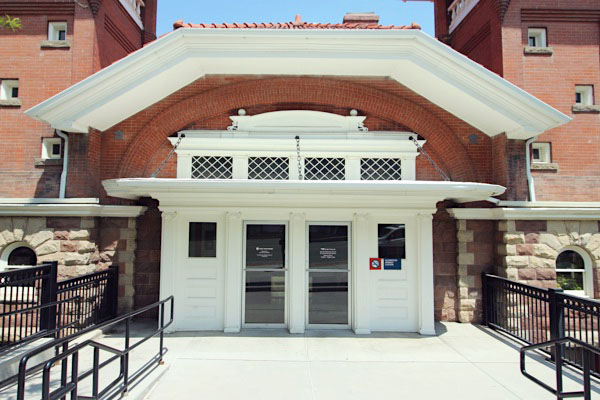
May 2023 / RWH
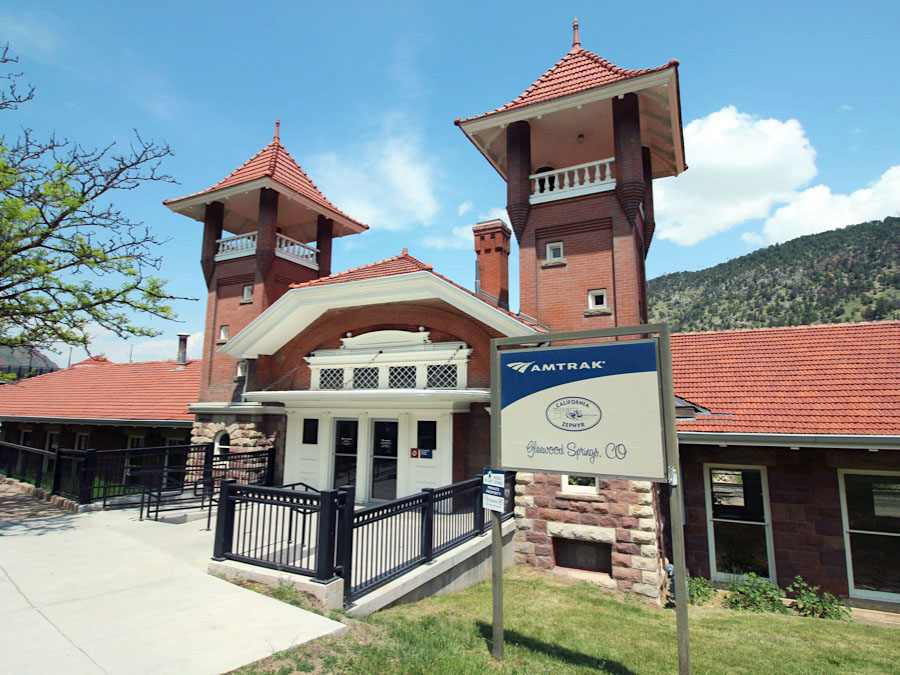
Glenwood Springs, Co / May 2023 / RWH

Click to see the historic Glenwood Springs station plotted on a Google Maps page
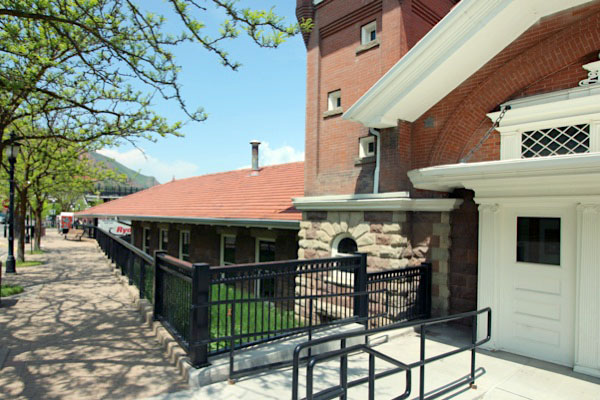
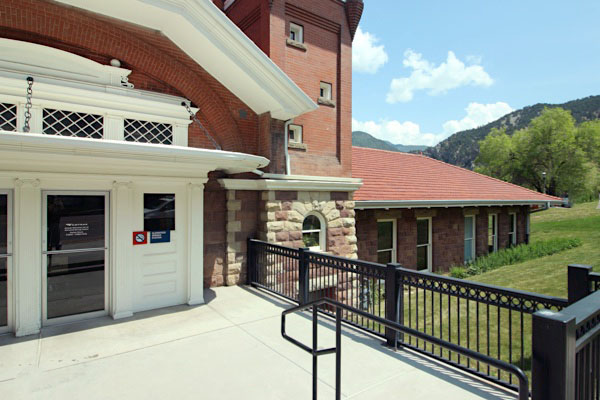
Glenwood Springs, Co / May 2023 / RWH
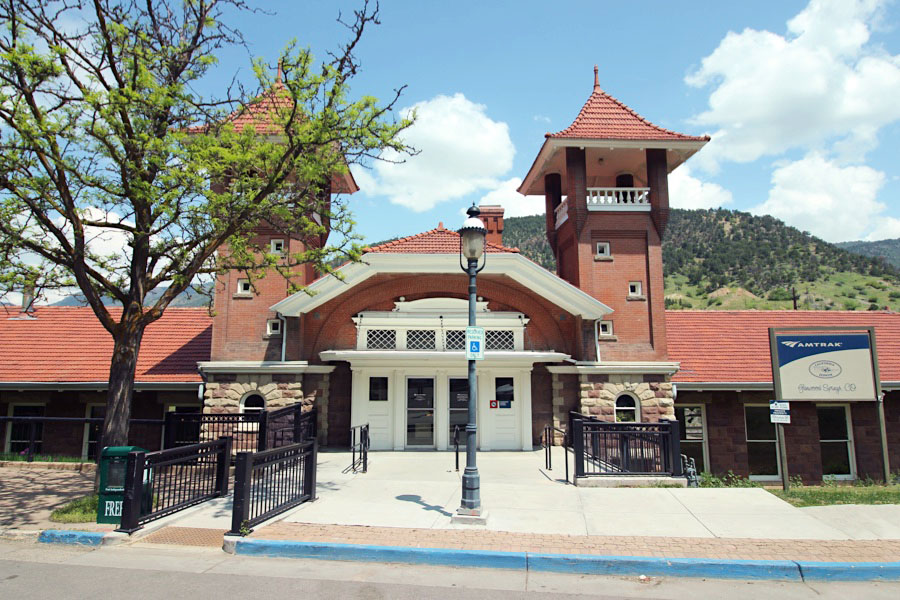
Glenwood Springs, Co / May 2023 / RWH
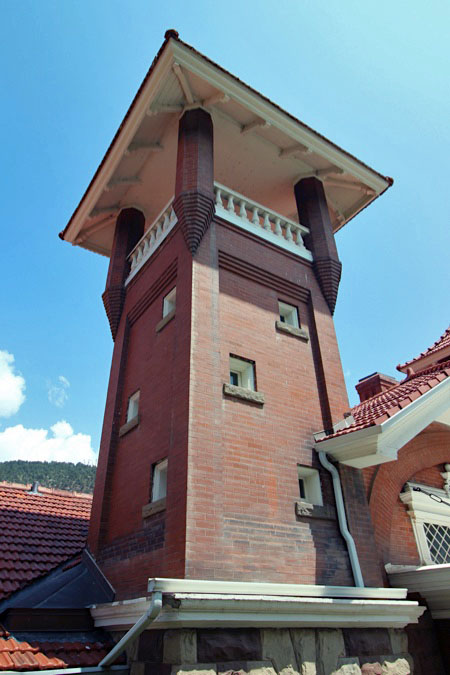
May 2023 / RWH
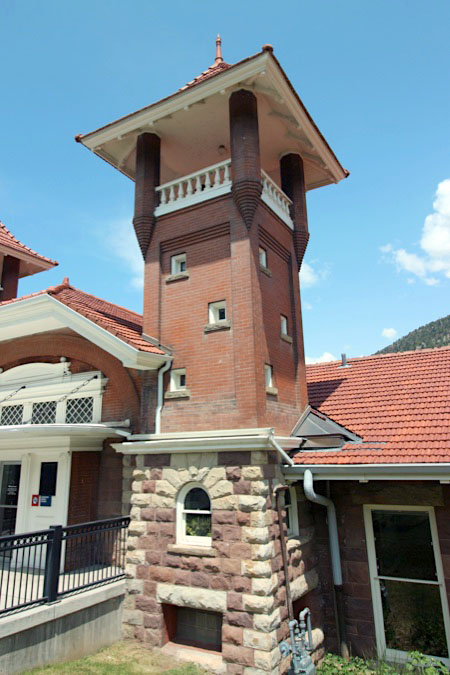
May 2023 / RWH
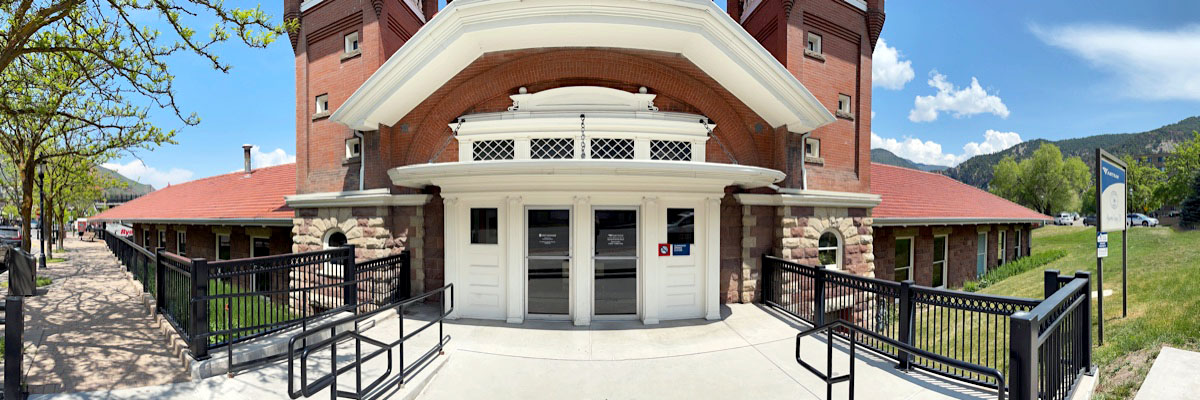
Glenwood Springs, Co / May 2023 / RWH

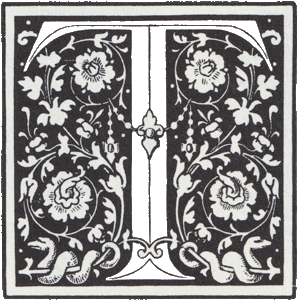 he present Glenwood Springs depot officially opened on June 18, 1904 and was built by the Denver and Rio Grande Western Railroad (D&RGW). It replaced an earlier, smaller structure located approximately three blocks west at the north end of Pitkin Avenue. The D&RGW began service to the young community in late 1887 and advertised its route through Glenwood Canyon as the “Scenic Line of the World.” Stretching for approximately 13 miles and with walls as high as 1,300 feet, the canyon is a famed natural wonder.
he present Glenwood Springs depot officially opened on June 18, 1904 and was built by the Denver and Rio Grande Western Railroad (D&RGW). It replaced an earlier, smaller structure located approximately three blocks west at the north end of Pitkin Avenue. The D&RGW began service to the young community in late 1887 and advertised its route through Glenwood Canyon as the “Scenic Line of the World.” Stretching for approximately 13 miles and with walls as high as 1,300 feet, the canyon is a famed natural wonder.
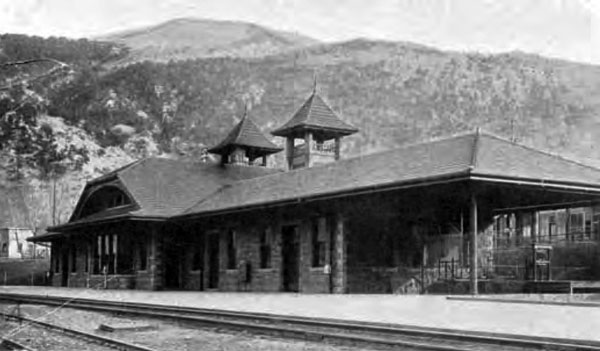 The Romanesque Revival style depot exhibits aesthetic similarities to the Hot Springs Lodge on the north shore of the Colorado River. Constructed of Frying Pan River red sandstone and reddish-brown brick, it has a prominent jerkinhead cross gable flanked by medieval-inspired towers sporting pyramidal roofs. Passengers entering from 7th Street descend an elegant staircase leading to the ticket office.
From this lobby area, great arched openings originally led to two waiting rooms – one for women and children on the east side and one for men to the west. The far ends of the building housed the express office and baggage room. Interior spaces still feature rich wood wainscot on the lowest third of the walls. Through various restorations, most recently in 1990, architects restored the depot’s original tile roofing and retained the long oak benches.
The Romanesque Revival style depot exhibits aesthetic similarities to the Hot Springs Lodge on the north shore of the Colorado River. Constructed of Frying Pan River red sandstone and reddish-brown brick, it has a prominent jerkinhead cross gable flanked by medieval-inspired towers sporting pyramidal roofs. Passengers entering from 7th Street descend an elegant staircase leading to the ticket office.
From this lobby area, great arched openings originally led to two waiting rooms – one for women and children on the east side and one for men to the west. The far ends of the building housed the express office and baggage room. Interior spaces still feature rich wood wainscot on the lowest third of the walls. Through various restorations, most recently in 1990, architects restored the depot’s original tile roofing and retained the long oak benches.
Glenwood Springs was first settled by James Landis in 1879, and was platted and incorporated on August 25, 1885. With the completion of the first class Hotel Colorado and the growing fame of the town’s warm mineral springs, the community established itself as a resort destination. For centuries, the Ute people had used the springs for therapeutic and ceremonial purposes.
The Glenwood Hot Springs Pool remains the largest natural hot springs pool in the world, and has drawn visitors including presidents William Howard Taft and Theodore Roosevelt. John Henry “Doc” Holliday, the infamous gunslinger, is buried in Glenwood Springs. The town is also a gateway to the popular Aspen ski area, 40 miles to the south.
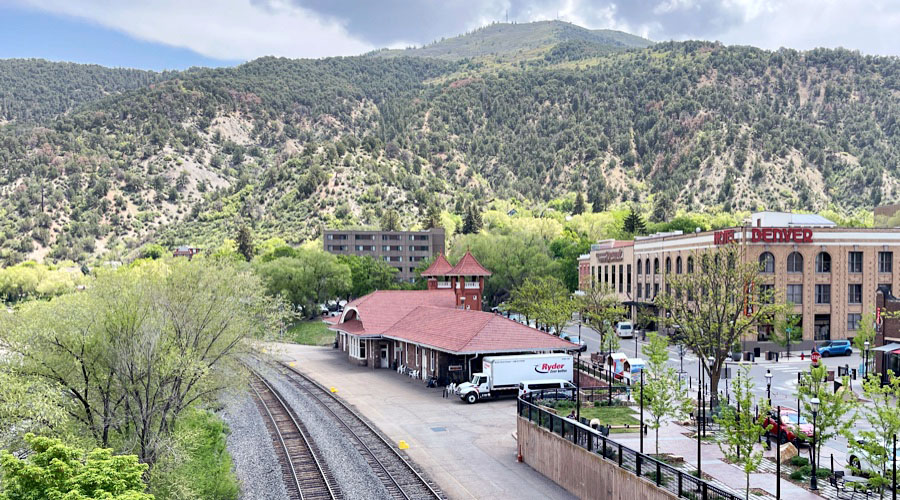
Glenwood Springs, Co / May 2023 / RWH
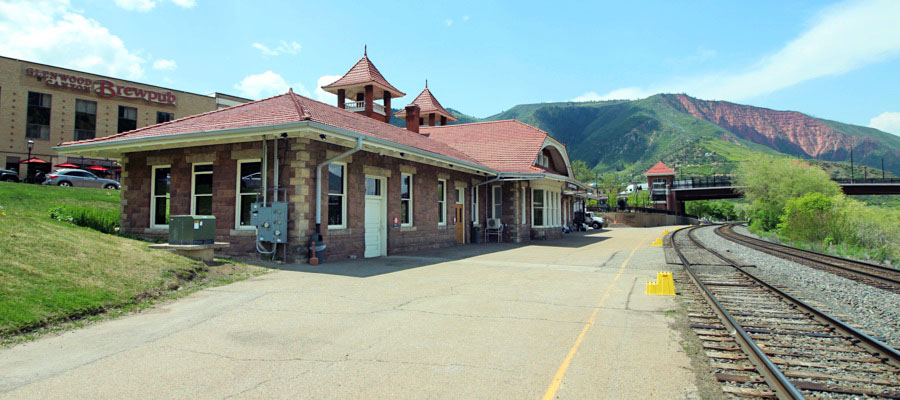
Glenwood Springs, Co / May 2023 / RWH
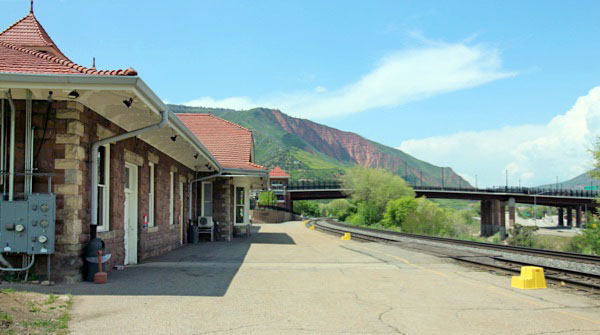
Glenwood Springs, Co / May 2023 / RWH
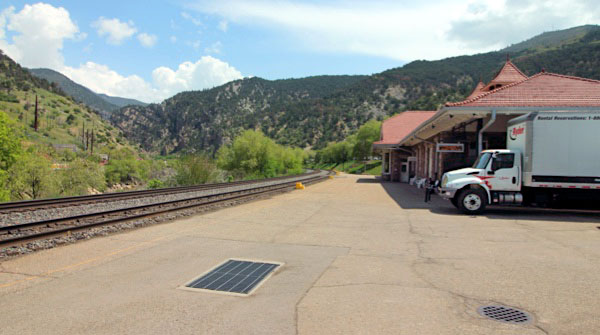
Glenwood Springs, Co / May 2023 / RWH
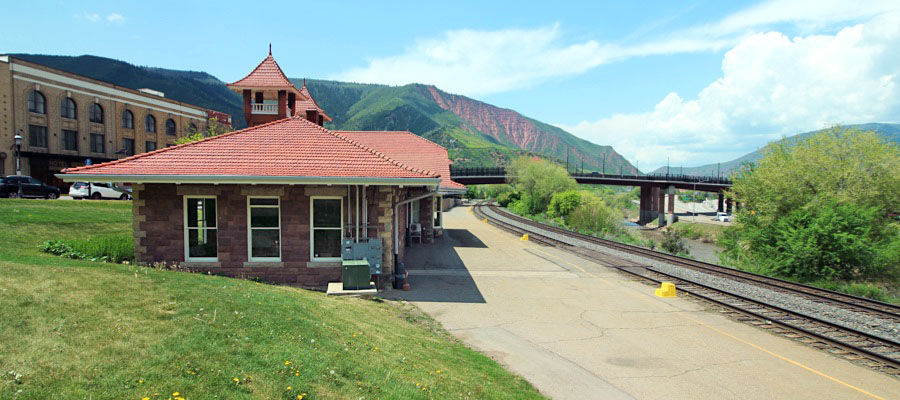
Glenwood Springs, Co / May 2023 / RWH
 Then and Now
Then and Now

from The Story of the California Zephyr
by Karl Zimmermann / collection
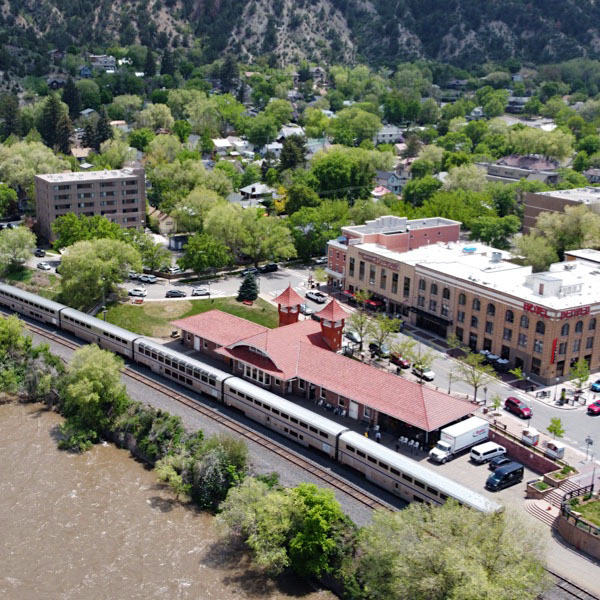
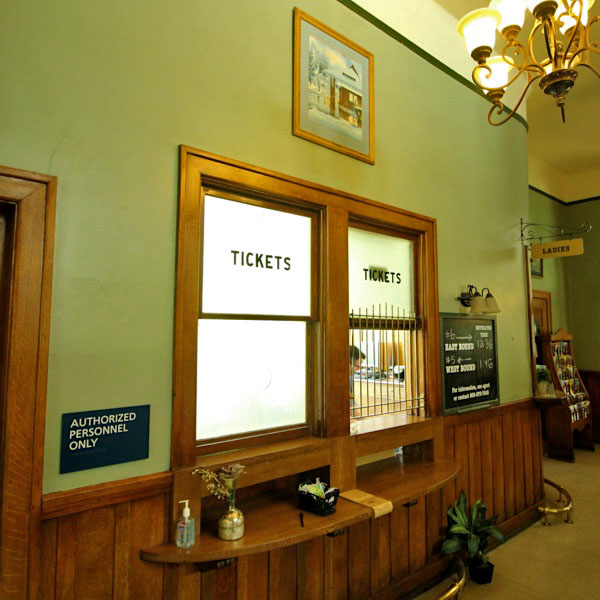
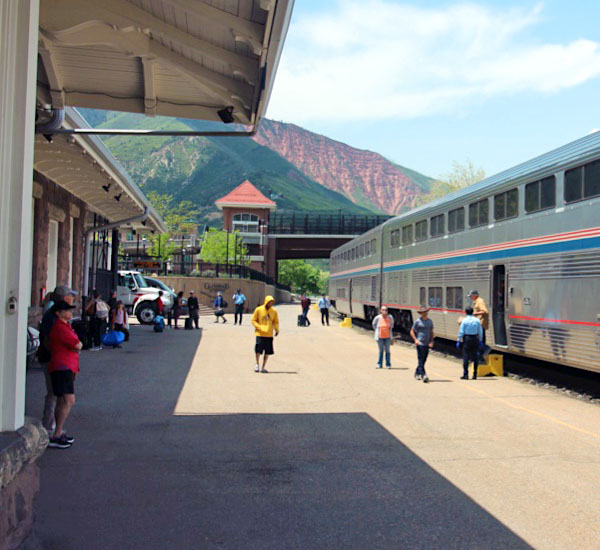
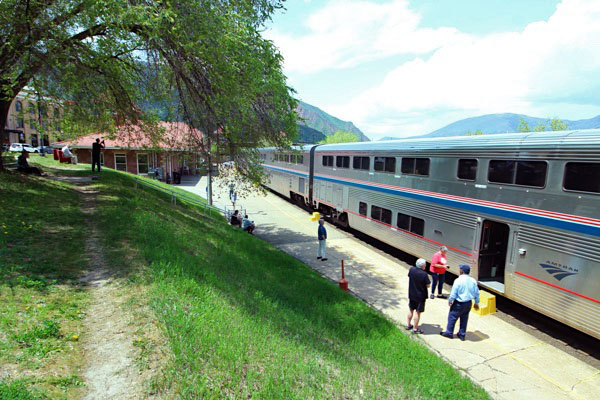
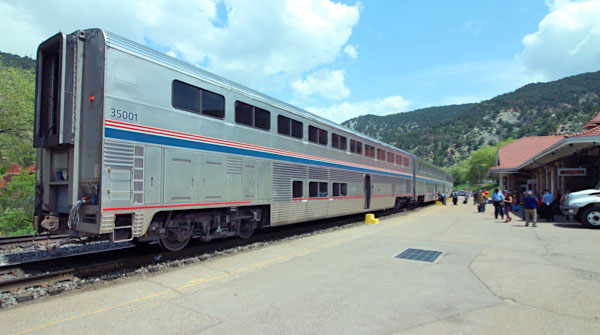
Glenwood Springs, Co / May 2023 / RWH
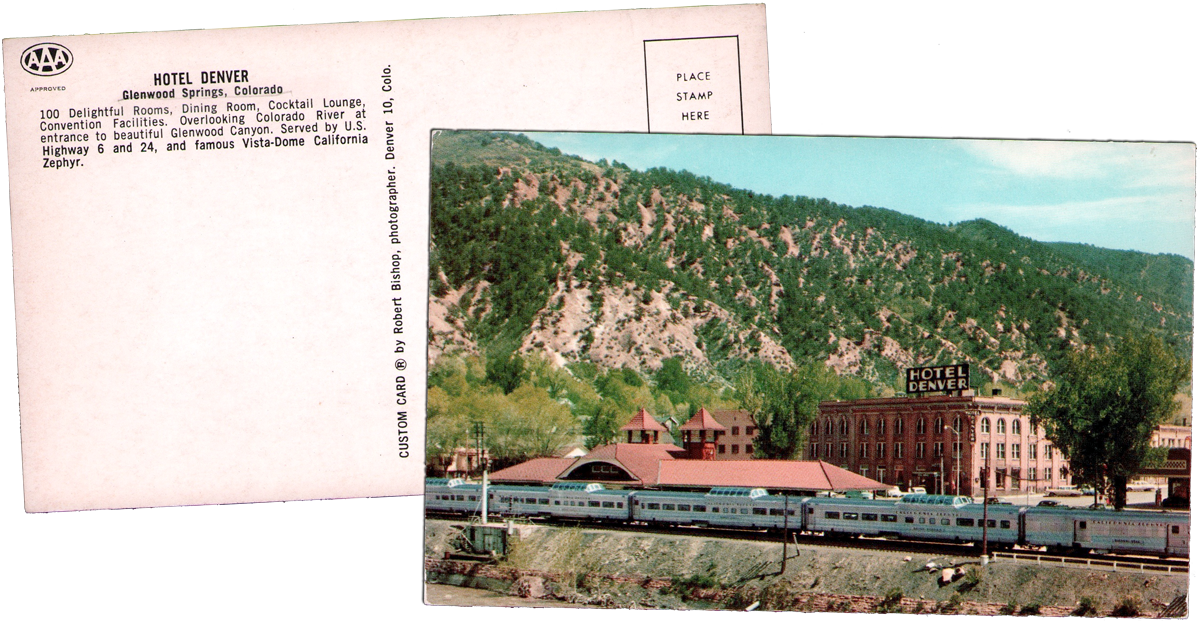
postcard / collection
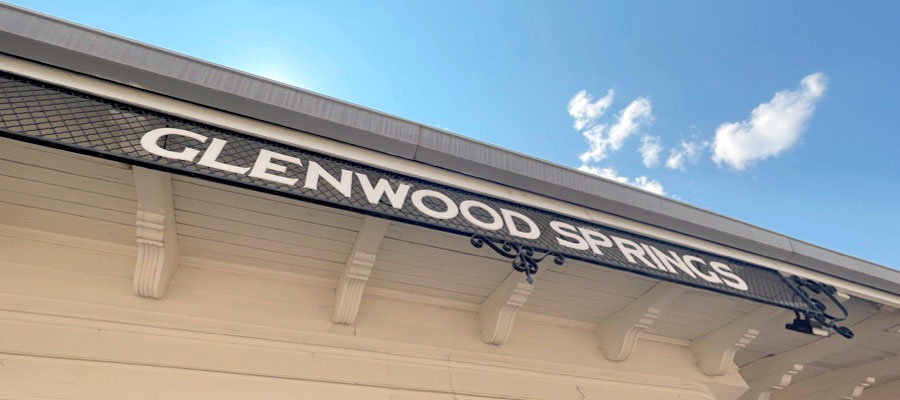
May 2023 / RWH
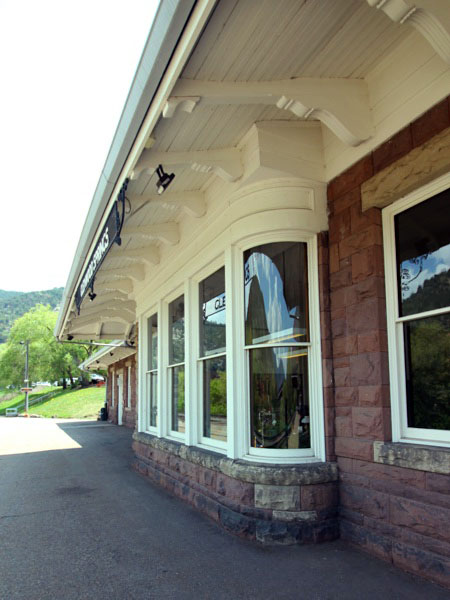
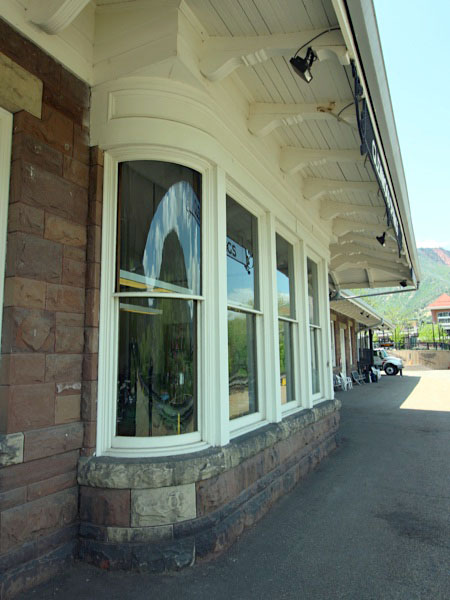
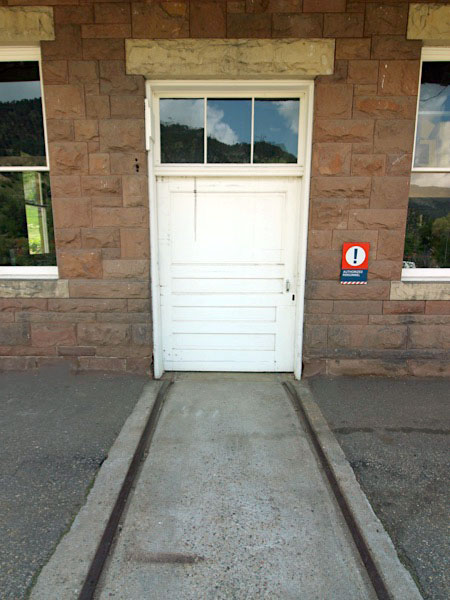
May 2023 / RWH
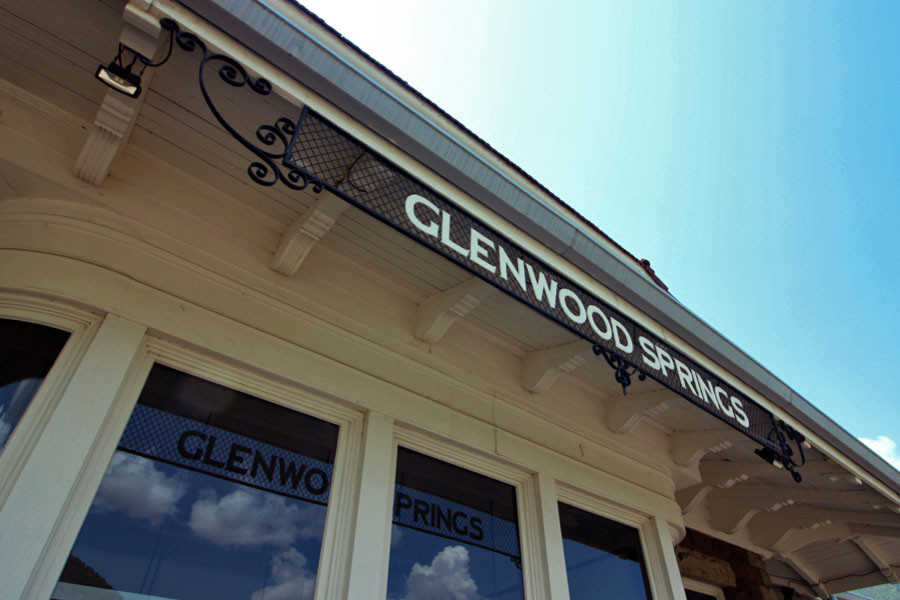
May 2023 / RWH
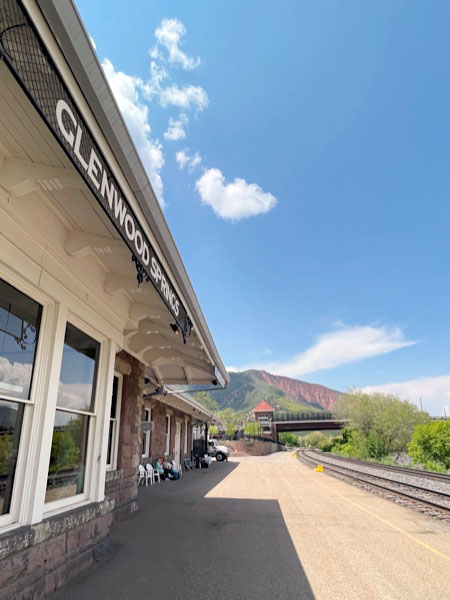
May 2023 / RWH
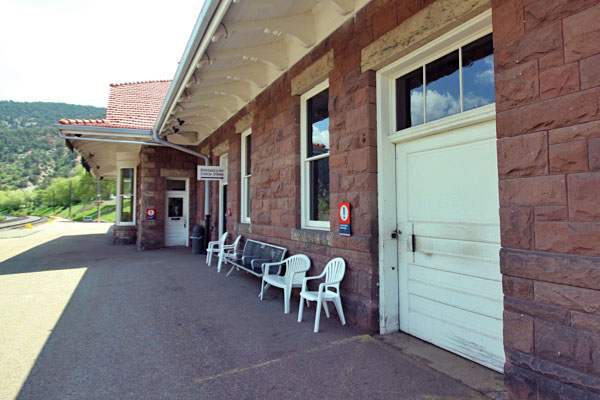
May 2023 / RWH
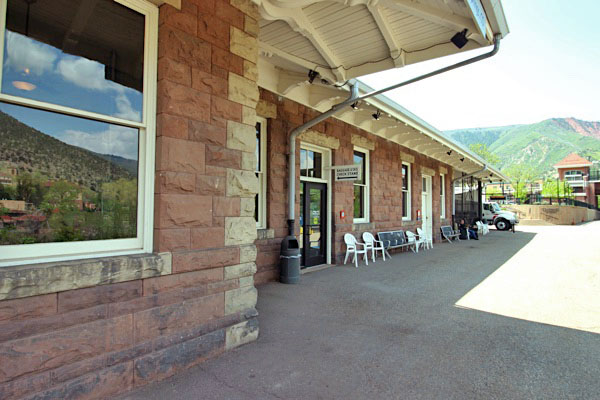
May 2023 / RWH
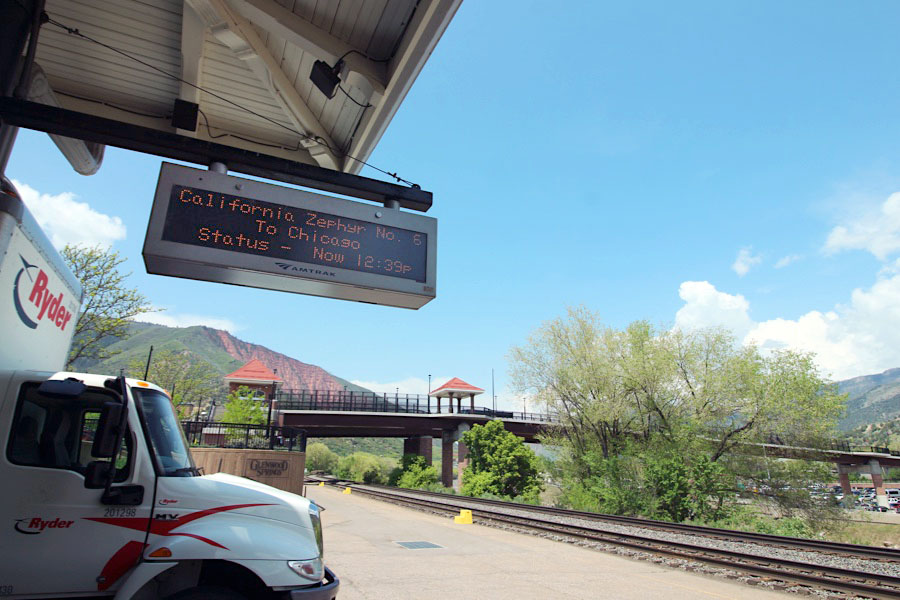
Glenwood Springs, Co / May 2023 / RWH
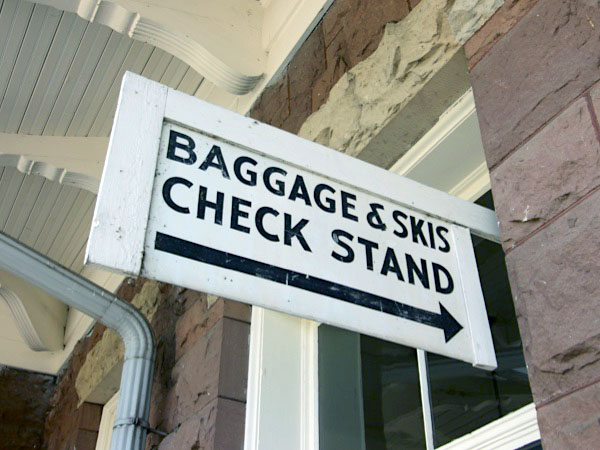
May 2023 / RWH
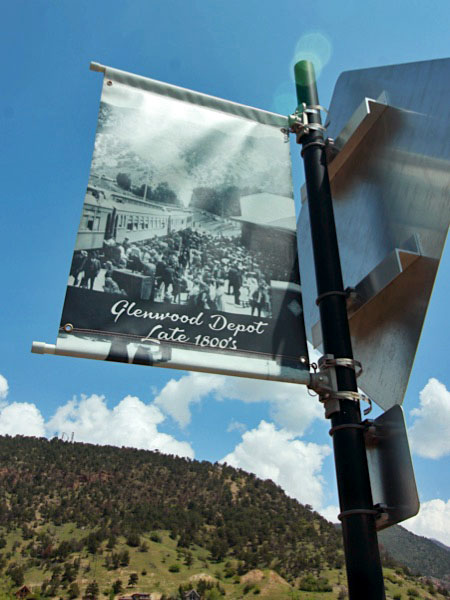
May 2023 / RWH
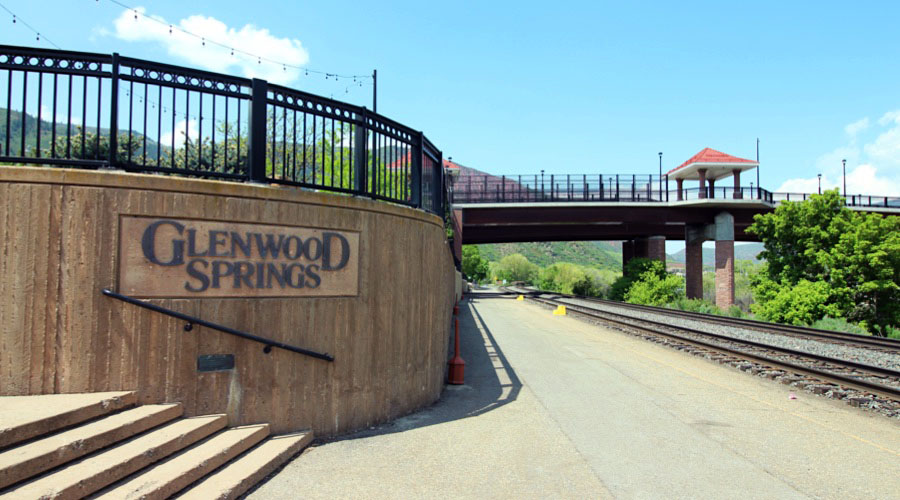
Glenwood Springs, Co / May 2023 / RWH


 he Denver & Rio Grande Railroad’s original wooden depot was constructed on the corner of Seventh Street and Pitkin Avenue in 1887. Although adequate to handle the passenger traffic of the day, this small depot did not provide travelers with a
good first impression of the elegant resort and health spa that was Glenwood Springs. Citizens demanded a new train station be built. However, the poor economic conditions combined with some public resistance to the idea postponed the depot’s replacement until 1903.
he Denver & Rio Grande Railroad’s original wooden depot was constructed on the corner of Seventh Street and Pitkin Avenue in 1887. Although adequate to handle the passenger traffic of the day, this small depot did not provide travelers with a
good first impression of the elegant resort and health spa that was Glenwood Springs. Citizens demanded a new train station be built. However, the poor economic conditions combined with some public resistance to the idea postponed the depot’s replacement until 1903.
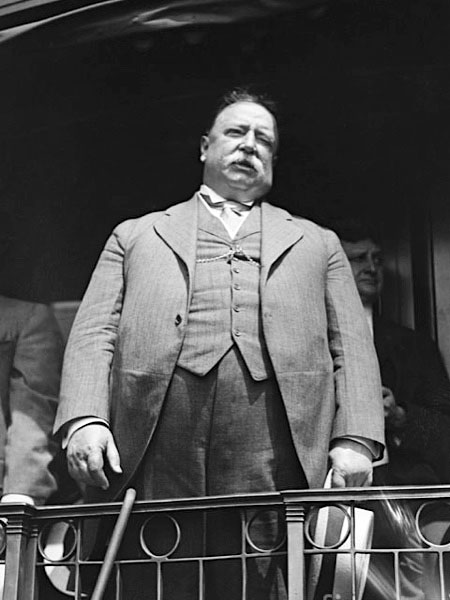 As the gateway to Glenwood Springs, the depot through its architectural design and construction materials complemented the architectures of the Hotel Colorado and of the stone bath house at the Glenwood Hot Springs Pool. The new Denver and Rio Grande train station experienced its first mass arrivals and departures of visitors on Strawberry Day, June 1904. From that moment on, the depot has directed the comings and goings of numerous passenger, military and ski trains. The depot has also welcomed the “Red Express“ of Socialist Eugene V. Debs in 1908; presidential train of William Taft in 1909; train of spiritual leader Abdul’-l-Baha in 1912; and provided a whistle stop platform for President Harry Truman in 1948 and 1952.
As the gateway to Glenwood Springs, the depot through its architectural design and construction materials complemented the architectures of the Hotel Colorado and of the stone bath house at the Glenwood Hot Springs Pool. The new Denver and Rio Grande train station experienced its first mass arrivals and departures of visitors on Strawberry Day, June 1904. From that moment on, the depot has directed the comings and goings of numerous passenger, military and ski trains. The depot has also welcomed the “Red Express“ of Socialist Eugene V. Debs in 1908; presidential train of William Taft in 1909; train of spiritual leader Abdul’-l-Baha in 1912; and provided a whistle stop platform for President Harry Truman in 1948 and 1952.
Today, AMTRAK passengers arrive and depart Glenwood Springs through the depot that architecturally has remained unchanged from its construction of one hundred years ago.
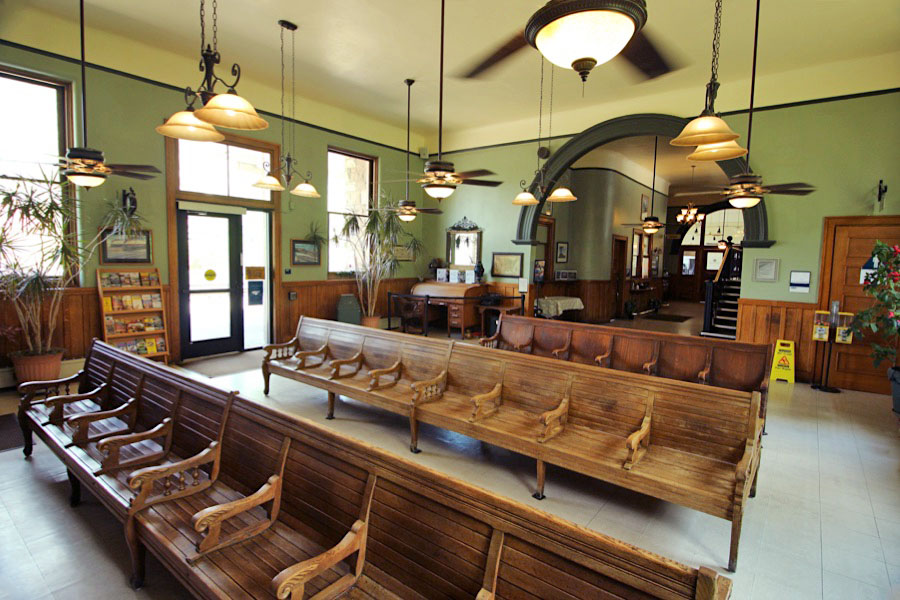
May 2023 / RWH
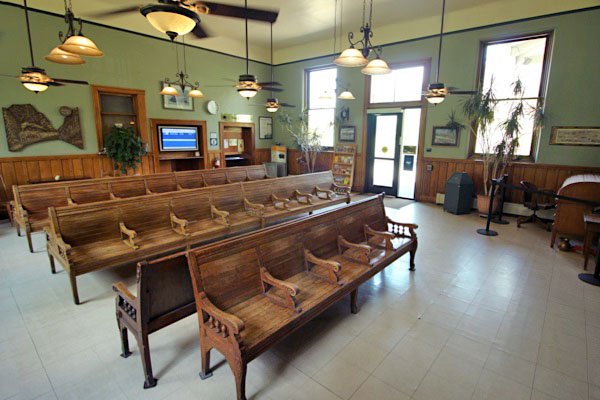
May 2023 / RWH
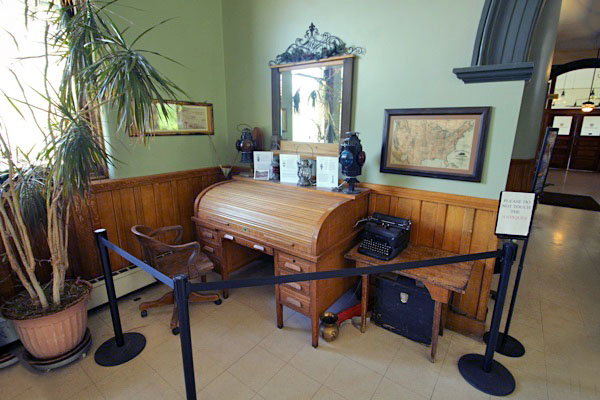
May 2023 / RWH
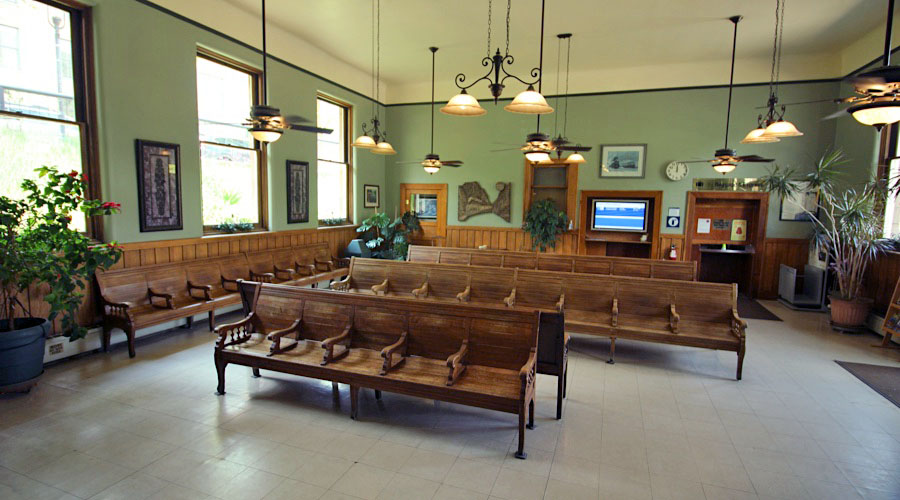
May 2023 / RWH
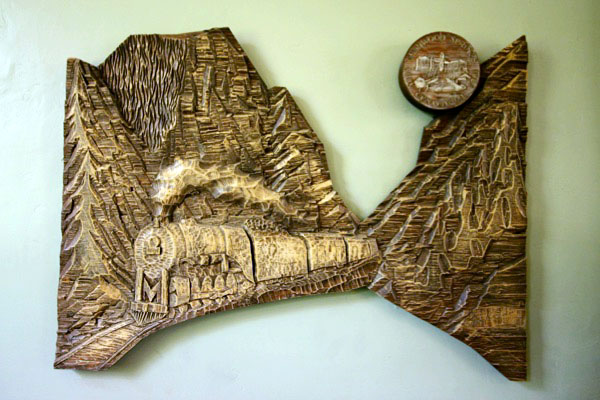
May 2023 / RWH
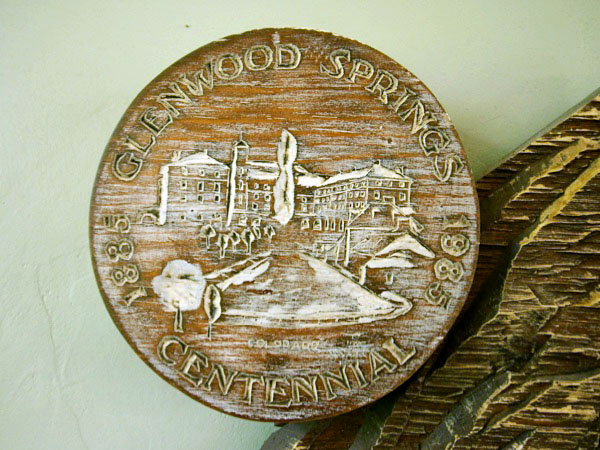
May 2023 / RWH
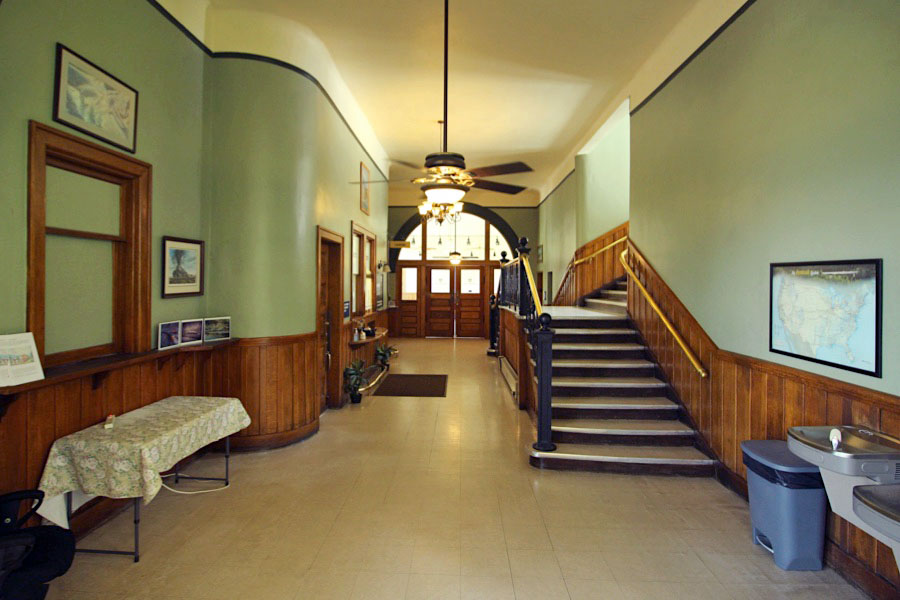
May 2023 / RWH
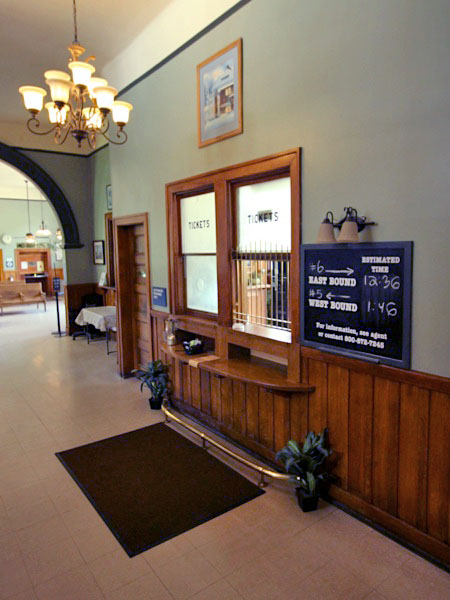
May 2023 / RWH
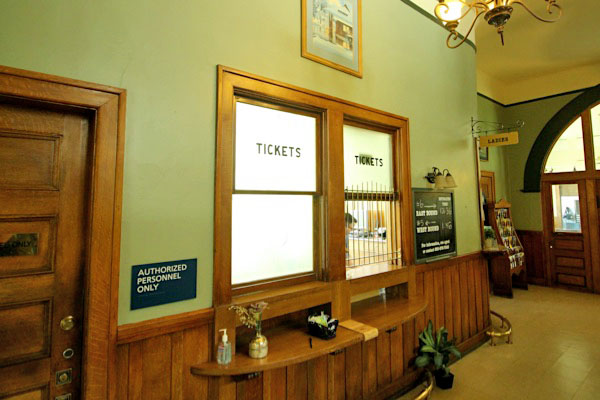
May 2023 / RWH
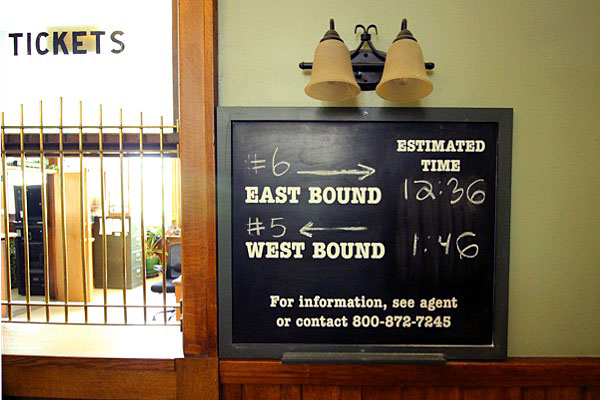
May 2023 / RWH
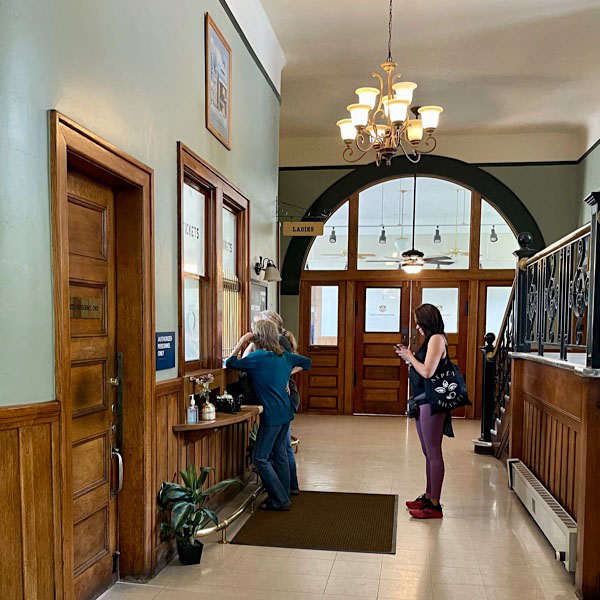
May 2023 / RWH
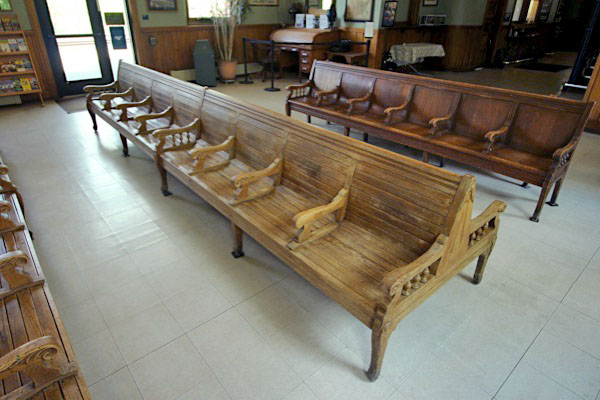
May 2023 / RWH
 Hotel Colorado
Hotel Colorado
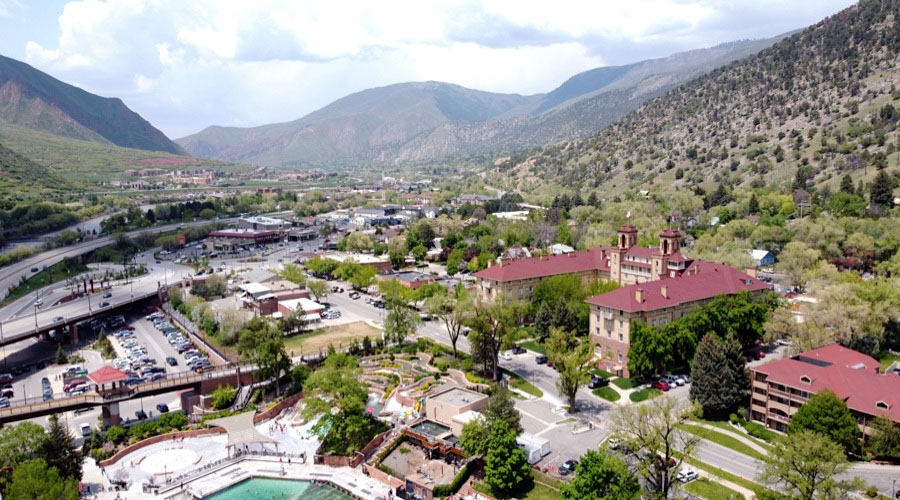
Glenwood Springs, Co / May 2023 / RWH

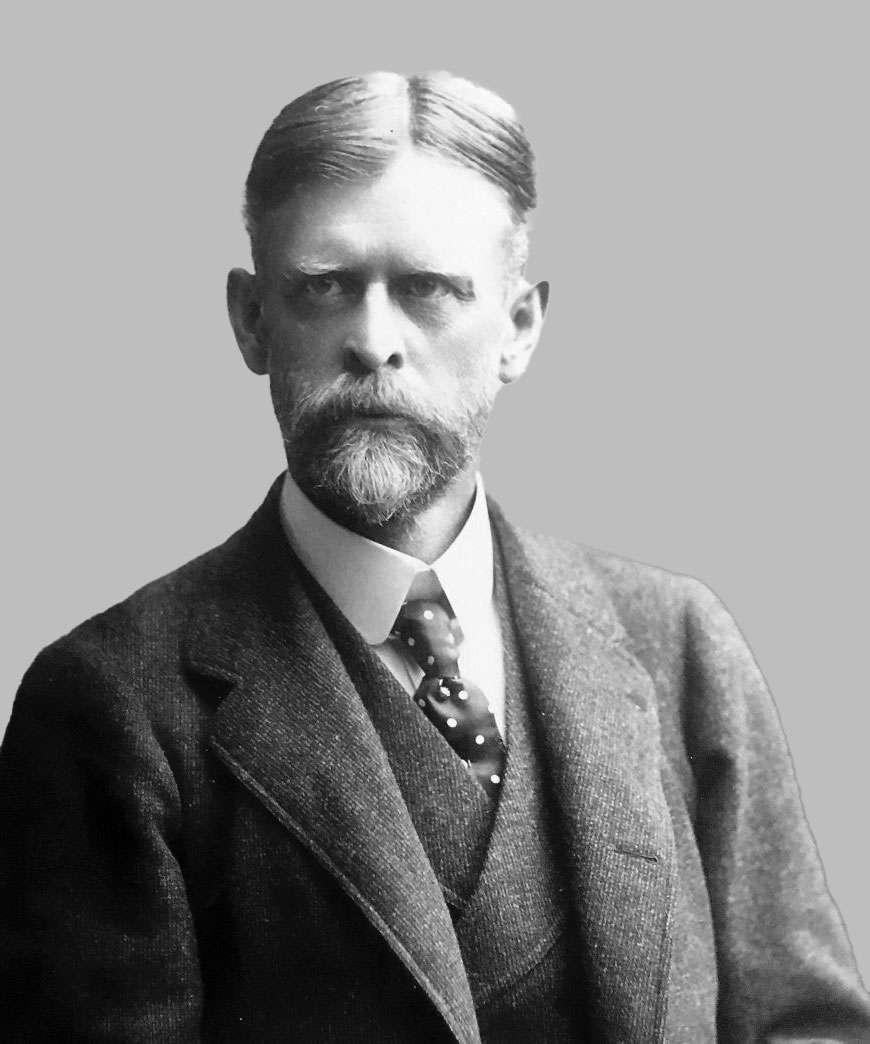
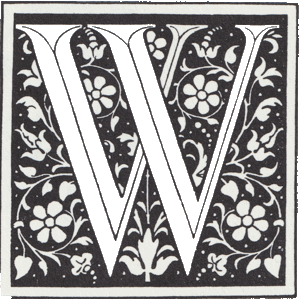 hen this historic hotel was built in 1893 by Walter Devereux - a silver baron and one of the early settlers of Glenwood Springs - the west was booming. The promise of a fortune built on gold and silver mining was tantalizing for thousands, and those with an adventurous spirit were moving west to explore a new way of living, far from the confines of bustling cities.
Glenwood Springs, notable for its healing hot springs, was brimming with potential as a destination for travelers and locals alike - and early settlers capitalized on this potential.
hen this historic hotel was built in 1893 by Walter Devereux - a silver baron and one of the early settlers of Glenwood Springs - the west was booming. The promise of a fortune built on gold and silver mining was tantalizing for thousands, and those with an adventurous spirit were moving west to explore a new way of living, far from the confines of bustling cities.
Glenwood Springs, notable for its healing hot springs, was brimming with potential as a destination for travelers and locals alike - and early settlers capitalized on this potential.
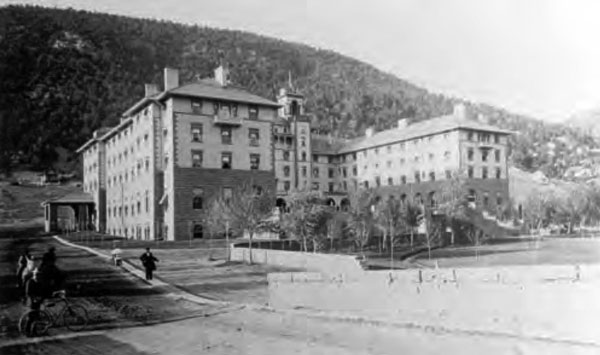 Devereux sought to attract the wealthy and elite to his “Grande Dame,” as Hotel Colorado was fondly called at the time. A 185-foot tall fountain of water marked the center of the courtyard, and a European-style spa was an attractive draw for health-seekers during the early years of Hotel Colorado. No expense was spared in the construction of the hotel, which included amenities and attractions like tennis courts, a Victorian garden, a bird sanctuary, and a stunning indoor waterfall. The hotel has been used as a temporary White House, as a place of healing for the U.S. Navy during the World War II years, and a community focal point from its inception. Ownership changed hands frequently until the early 1990s, when the hotel was gradually restored to its former glory.
Devereux sought to attract the wealthy and elite to his “Grande Dame,” as Hotel Colorado was fondly called at the time. A 185-foot tall fountain of water marked the center of the courtyard, and a European-style spa was an attractive draw for health-seekers during the early years of Hotel Colorado. No expense was spared in the construction of the hotel, which included amenities and attractions like tennis courts, a Victorian garden, a bird sanctuary, and a stunning indoor waterfall. The hotel has been used as a temporary White House, as a place of healing for the U.S. Navy during the World War II years, and a community focal point from its inception. Ownership changed hands frequently until the early 1990s, when the hotel was gradually restored to its former glory.
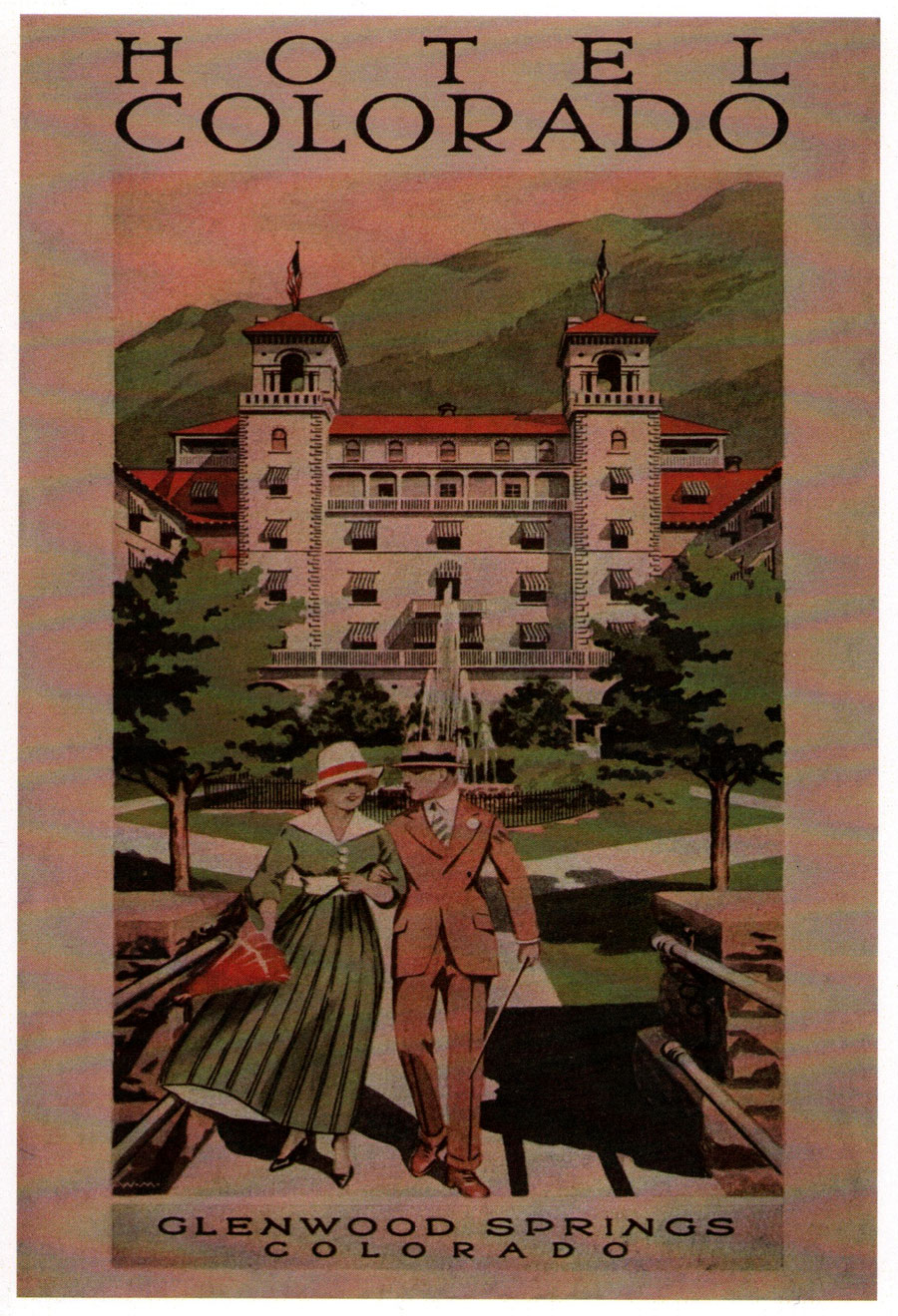
collection
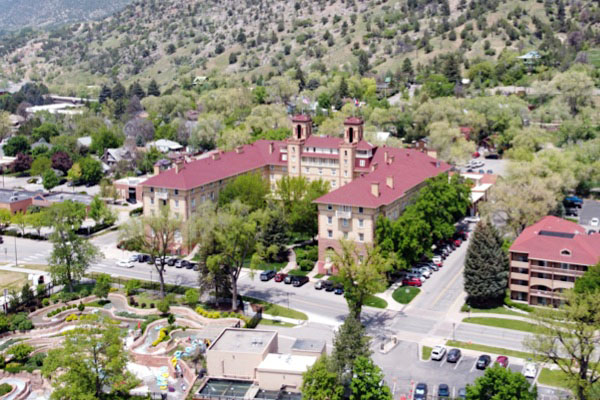
Glenwood Springs, Co / May 2023 / RWH
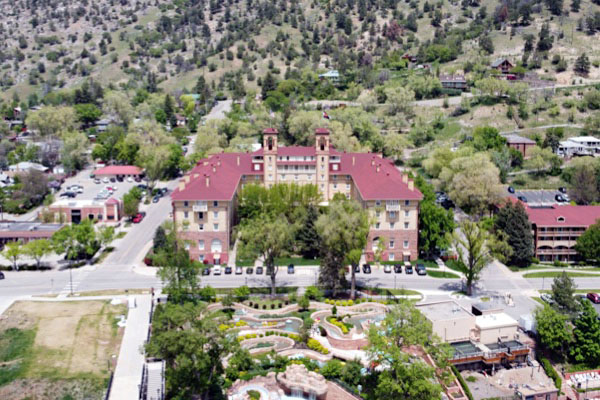
Glenwood Springs, Co / May 2023 / RWH

Click to see the Hotel Colorado plotted on a Google Maps page
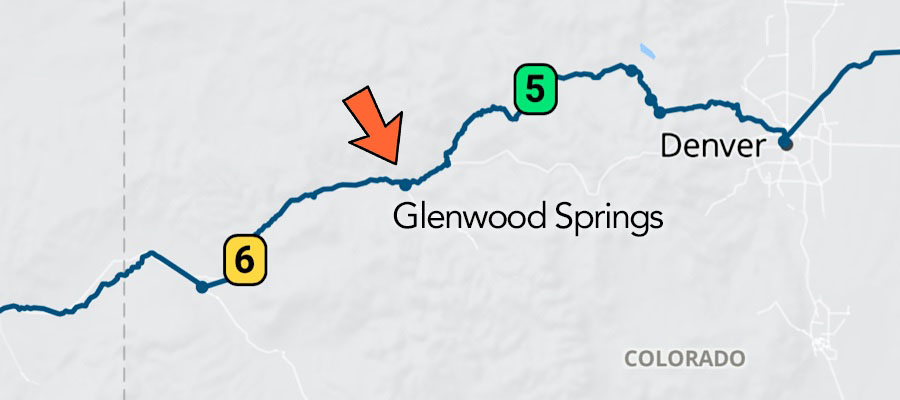
RWH
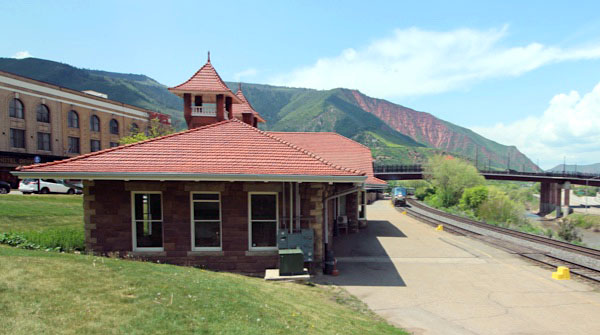
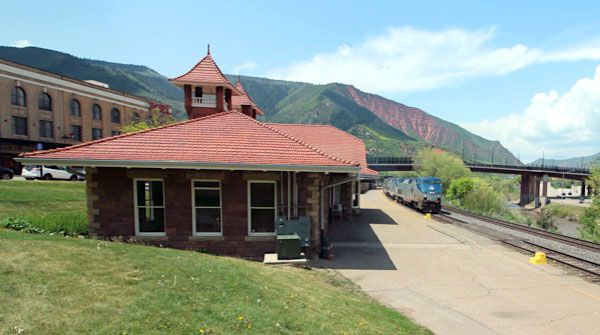
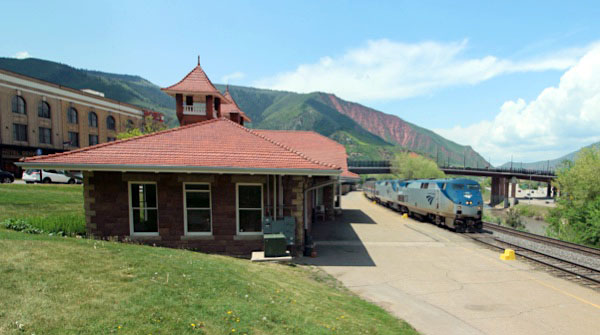
Glenwood Springs, Co / May 2023 / RWH
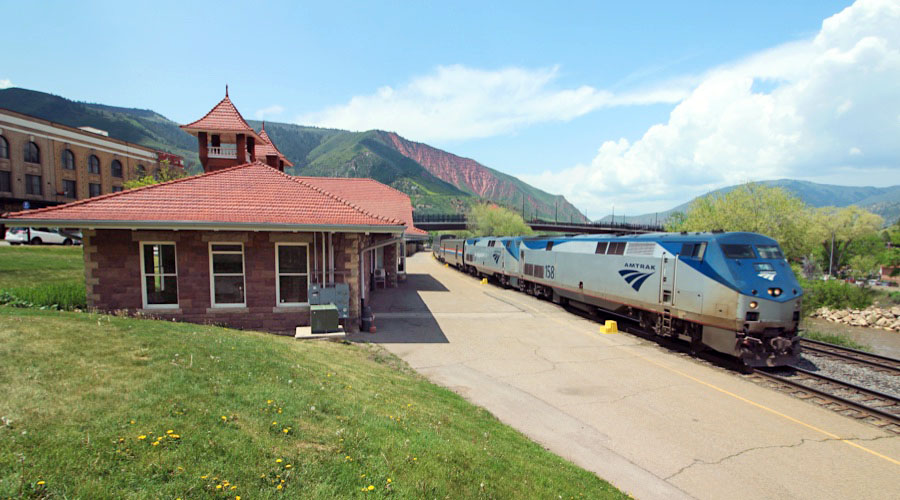
Glenwood Springs, Co / May 2023 / RWH
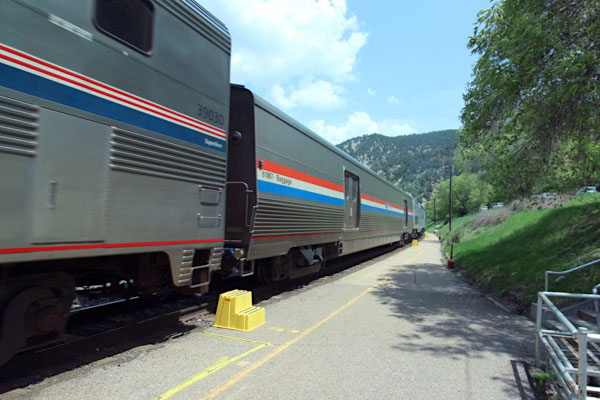
Glenwood Springs, Co / May 2023 / RWH
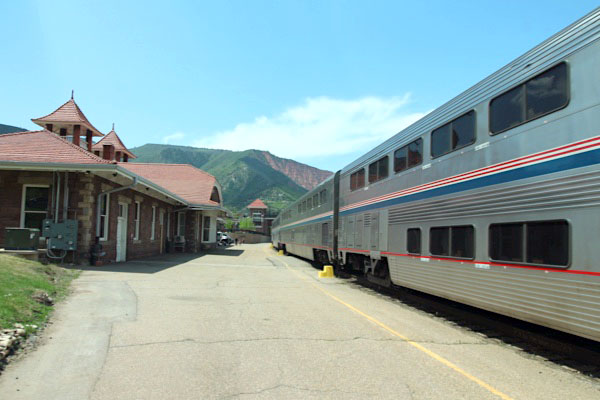
Glenwood Springs, Co / May 2023 / RWH
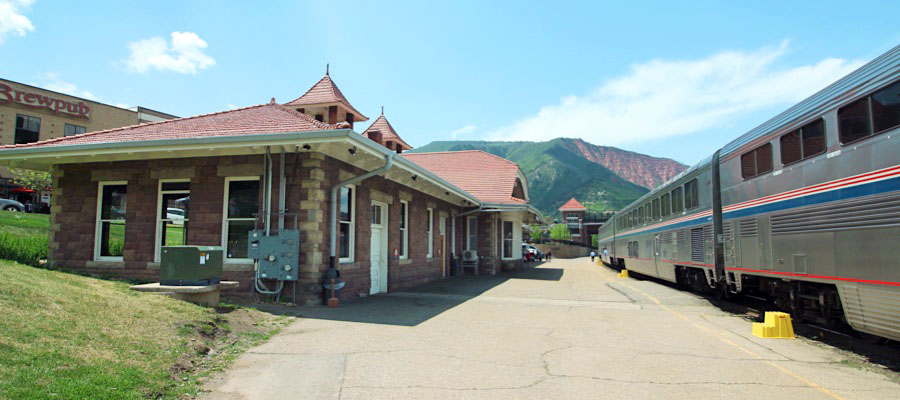
Glenwood Springs, Co / May 2023 / RWH
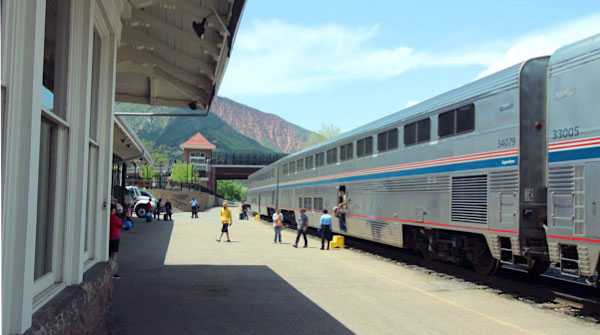
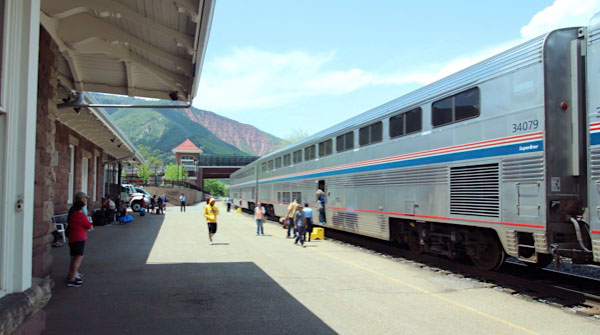
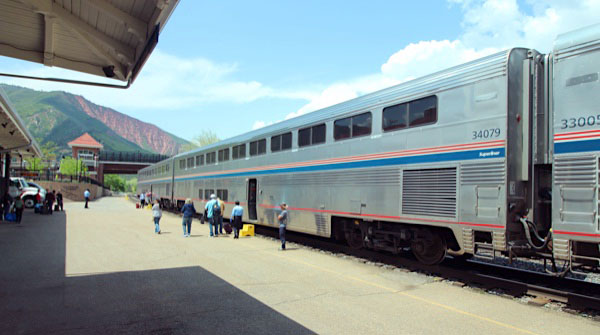
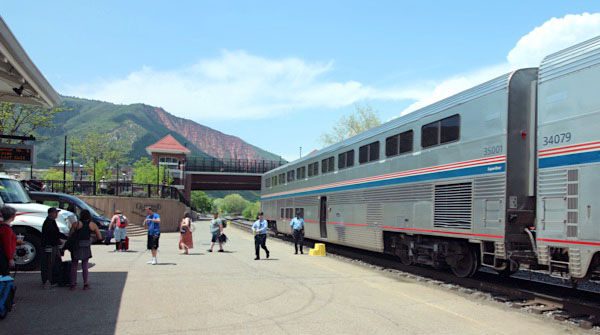
Glenwood Springs, Co / May 2023 / RWH
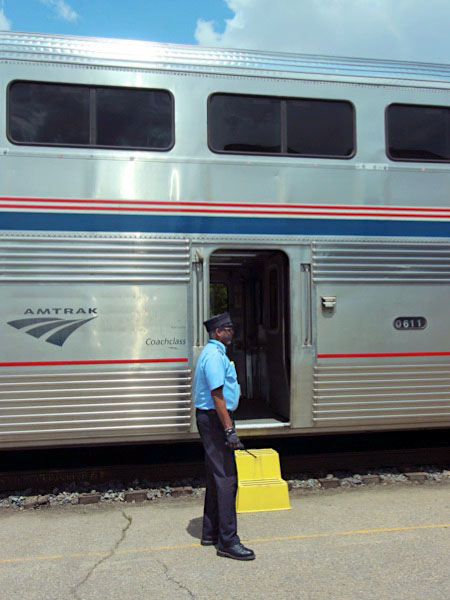
May 2023 / RWH
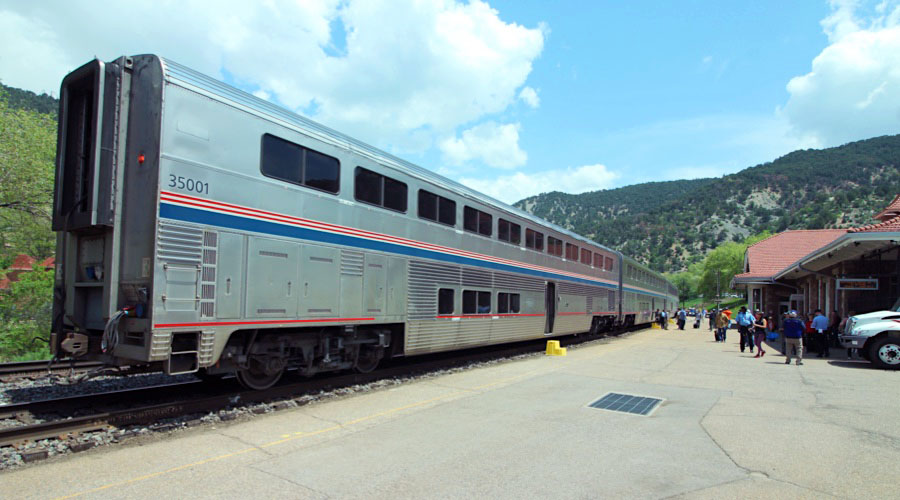
Glenwood Springs, Co / May 2023 / RWH
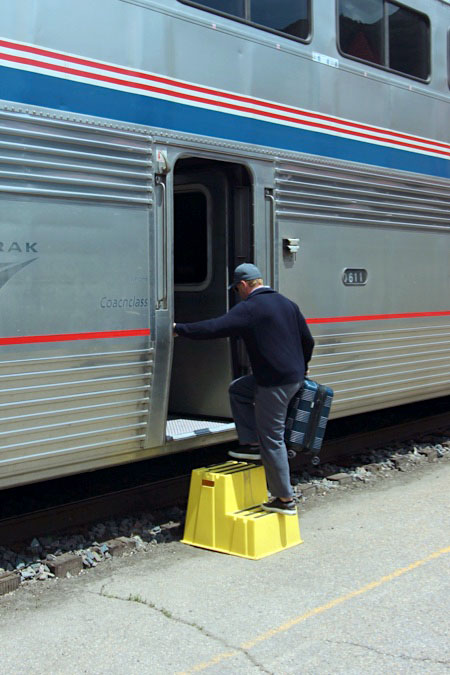
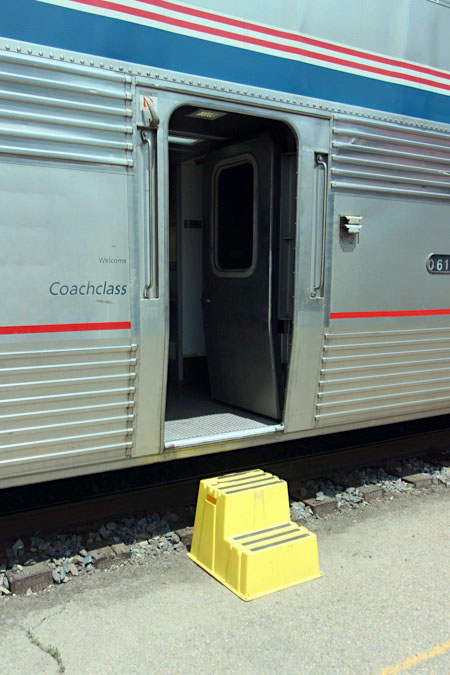
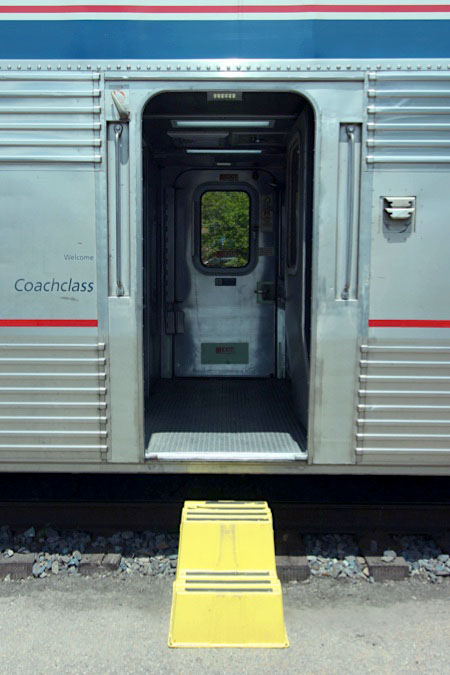
May 2023 / RWH
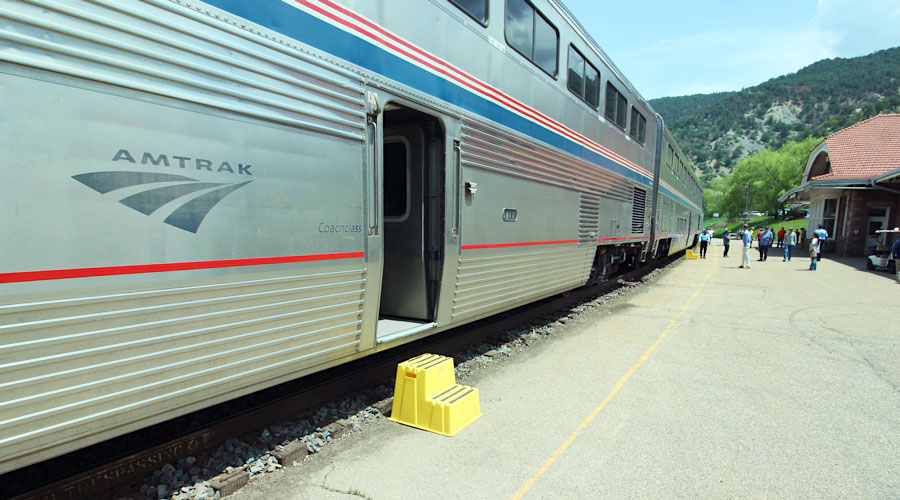
Glenwood Springs, Co / May 2023 / RWH
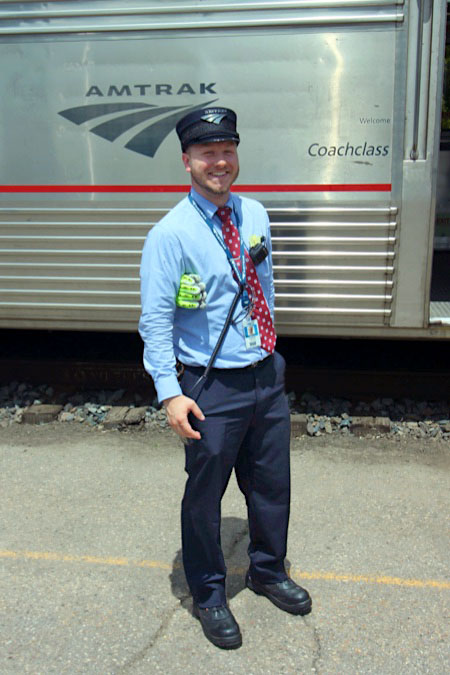
May 2023 / RWH
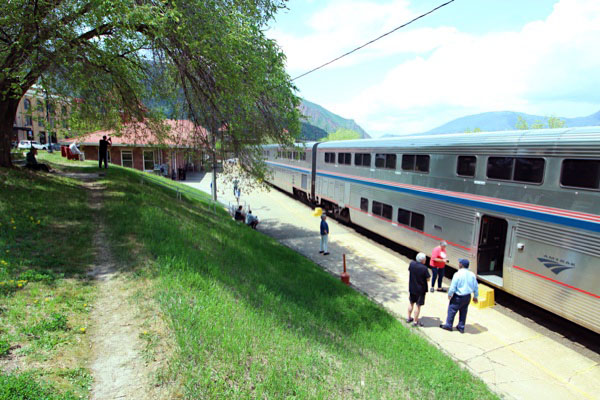
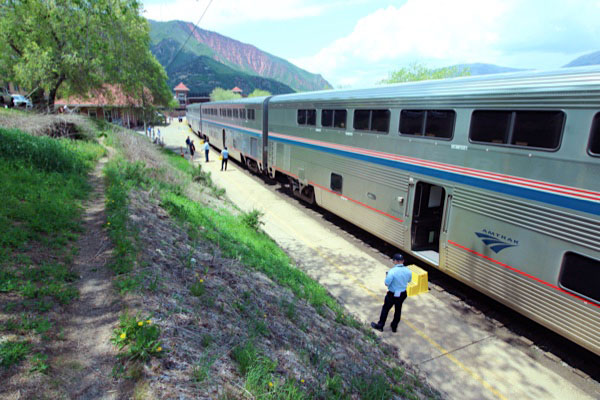
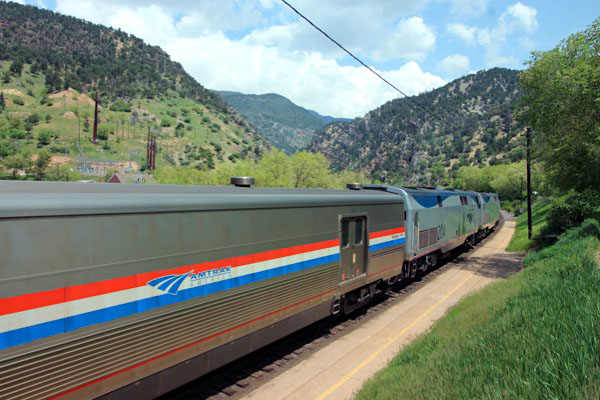
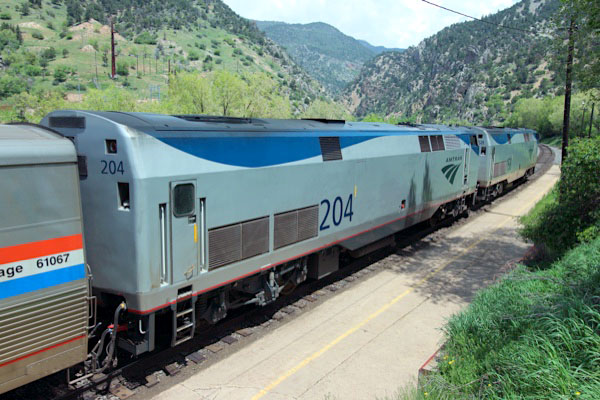
Glenwood Springs, Co / May 2023 / RWH
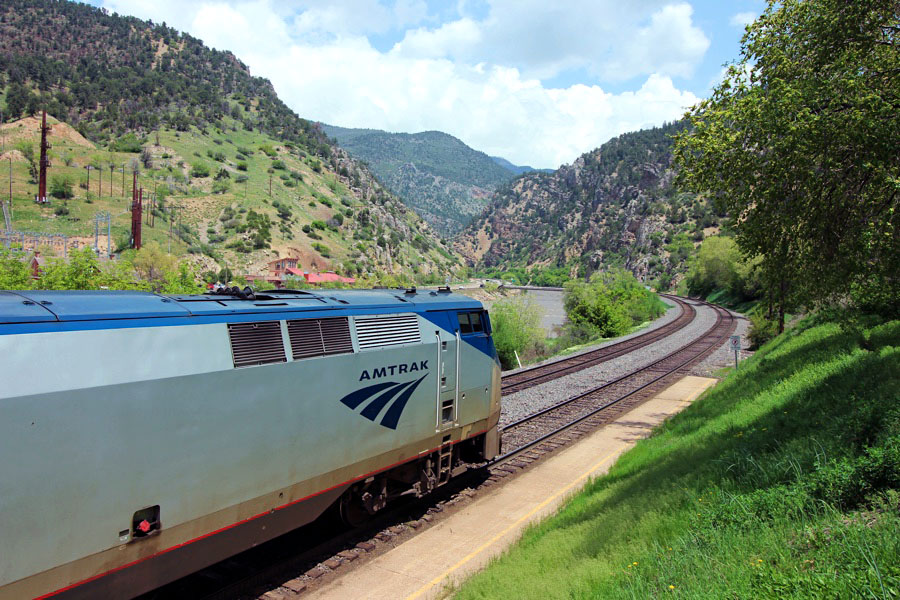
Glenwood Springs, Co / May 2023 / RWH
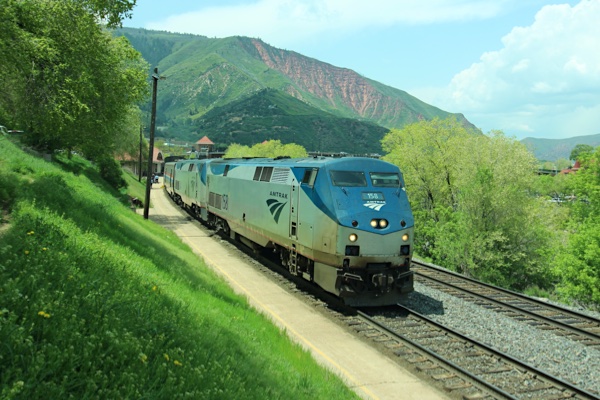
Glenwood Springs, Co / May 2023 / RWH
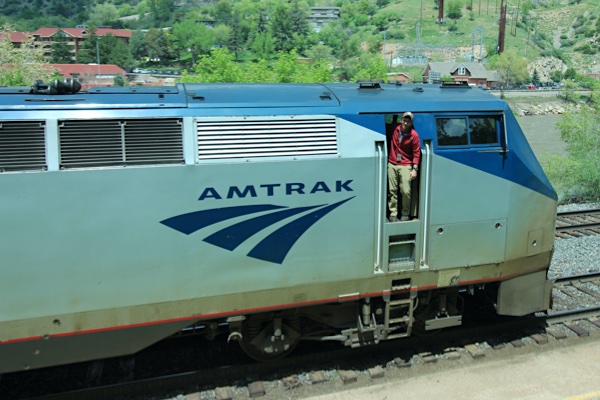
Glenwood Springs, Co / May 2023 / RWH
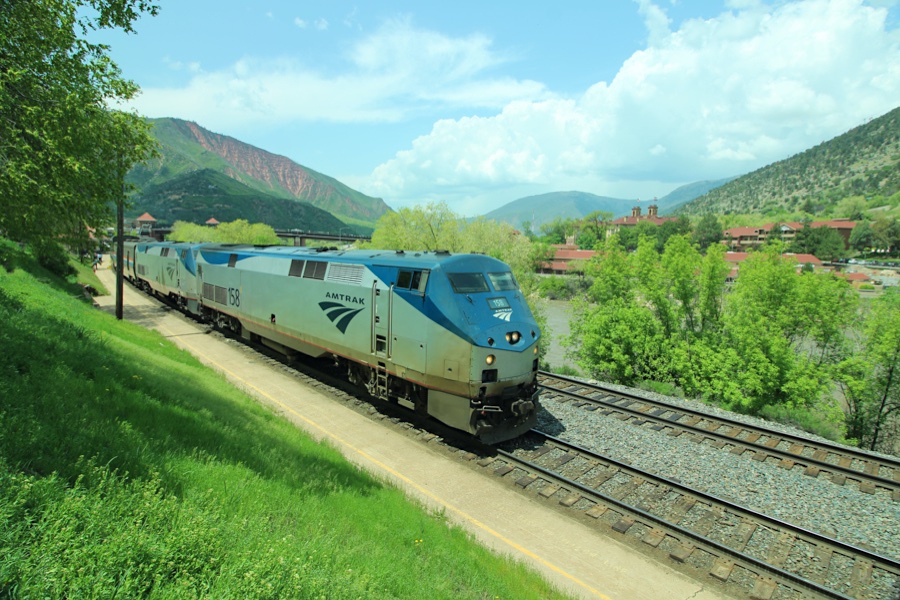
Glenwood Springs, Co / May 2023 / RWH
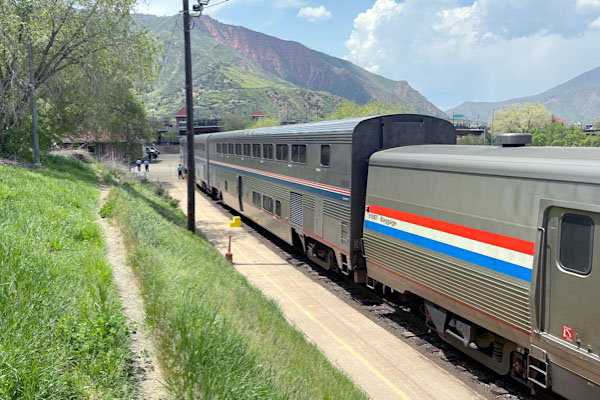
Glenwood Springs, Co / May 2023 / RWH
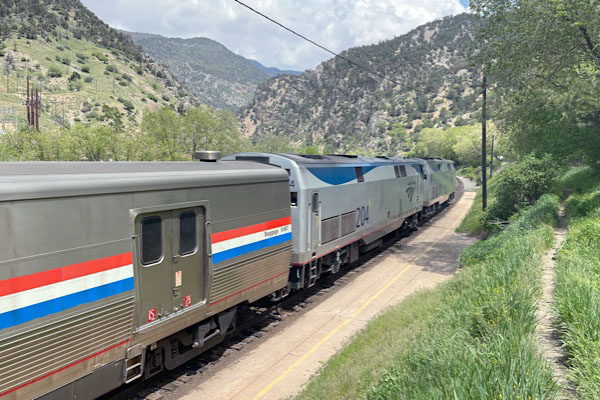
Glenwood Springs, Co / May 2023 / RWH
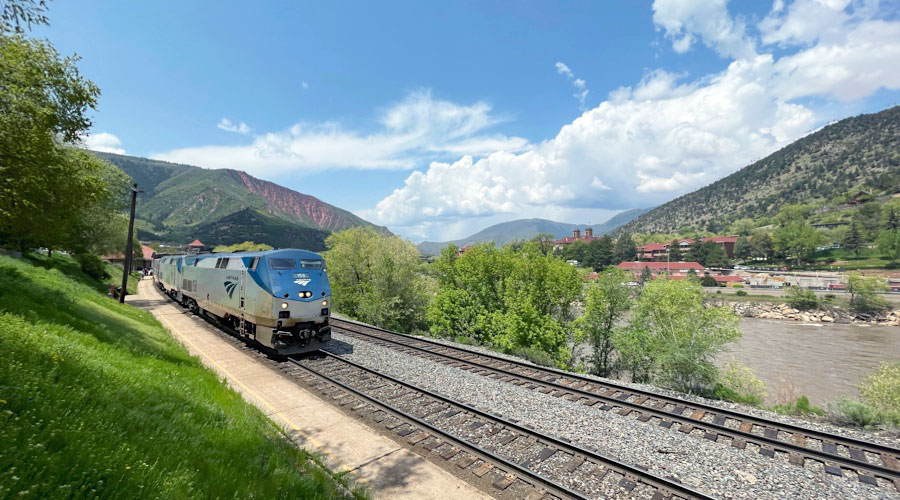
Glenwood Springs, Co / May 2023 / RWH
Amtrak #158
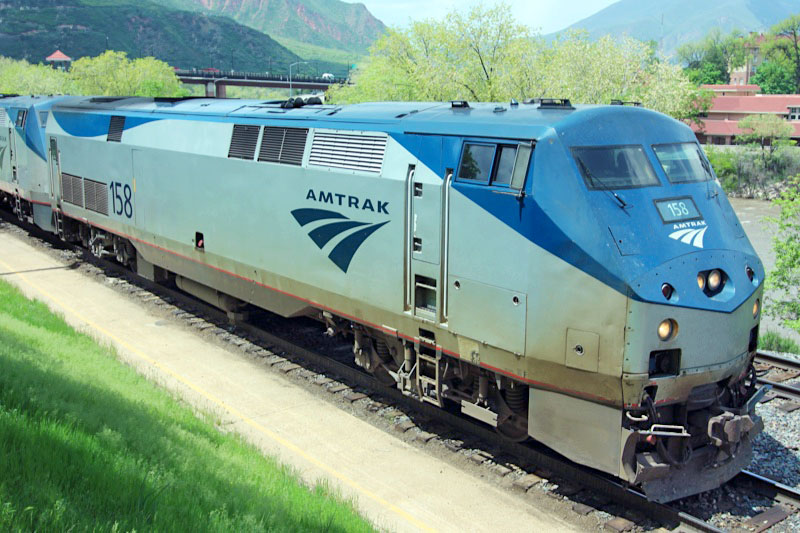
Amtrak #158
Glenwood Springs, Co / May 2023 / RWH


Amtrak #158

Amtrak #204
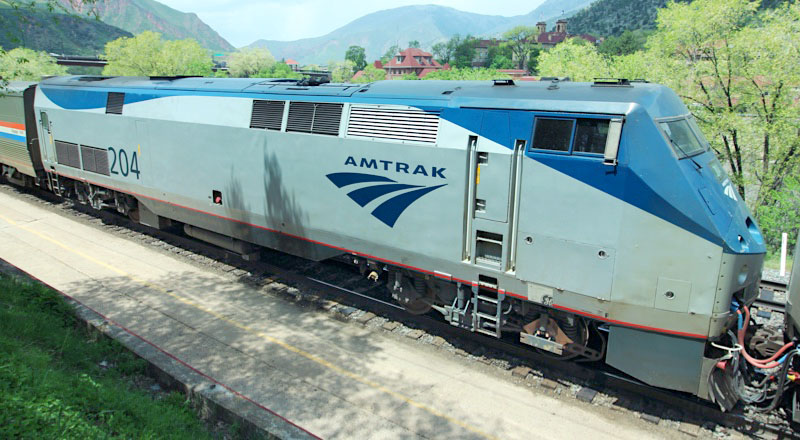
Amtrak #204
Glenwood Springs, Co / May 2023 / RWH


Amtrak #204

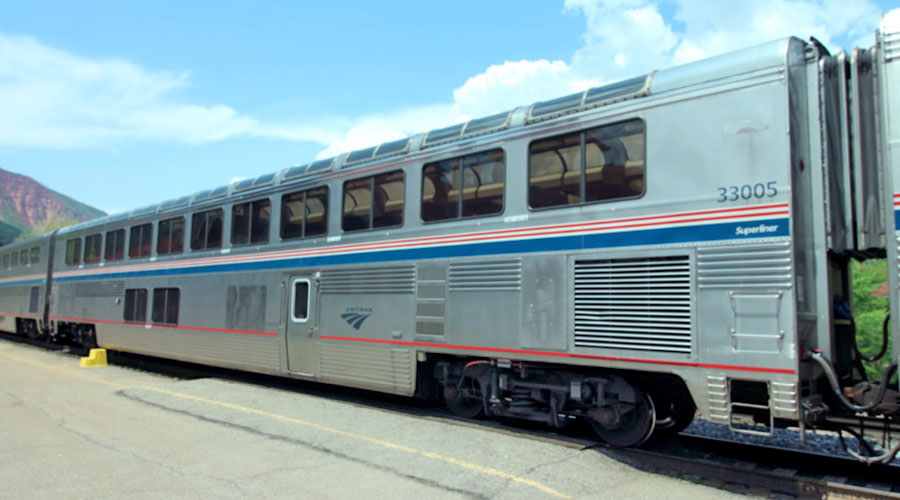
Glenwood Springs, Co / May 2023 / RWH
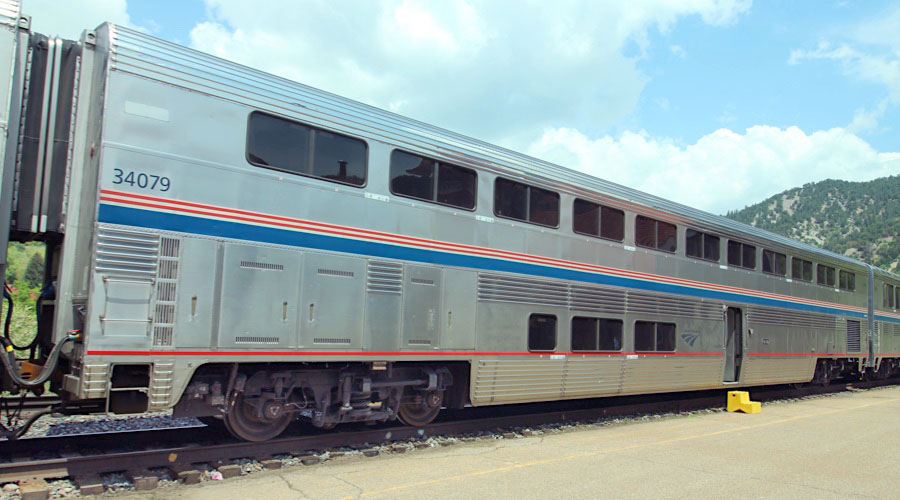
Glenwood Springs, Co / May 2023 / RWH
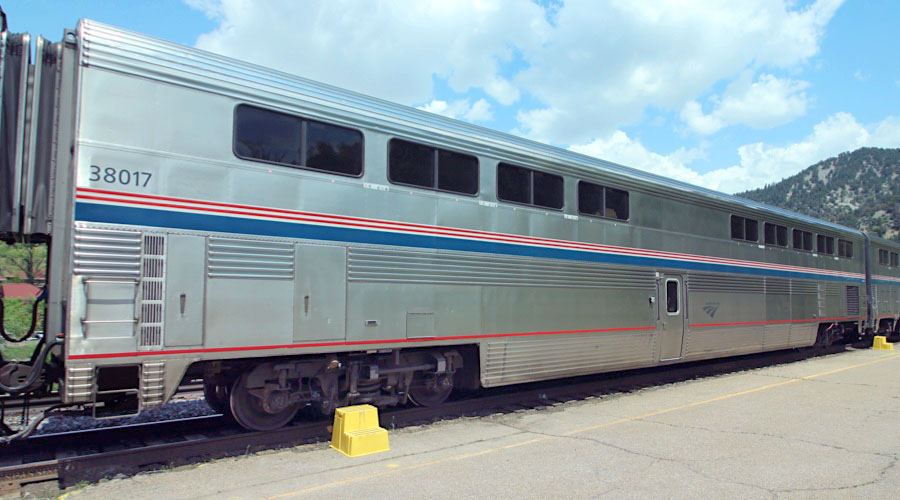
Glenwood Springs, Co / May 2023 / RWH
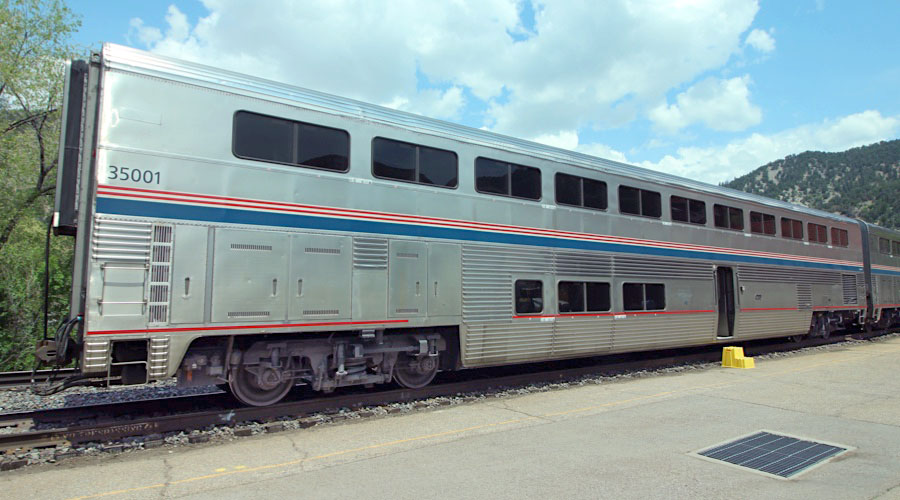
Glenwood Springs, Co / May 2023 / RWH
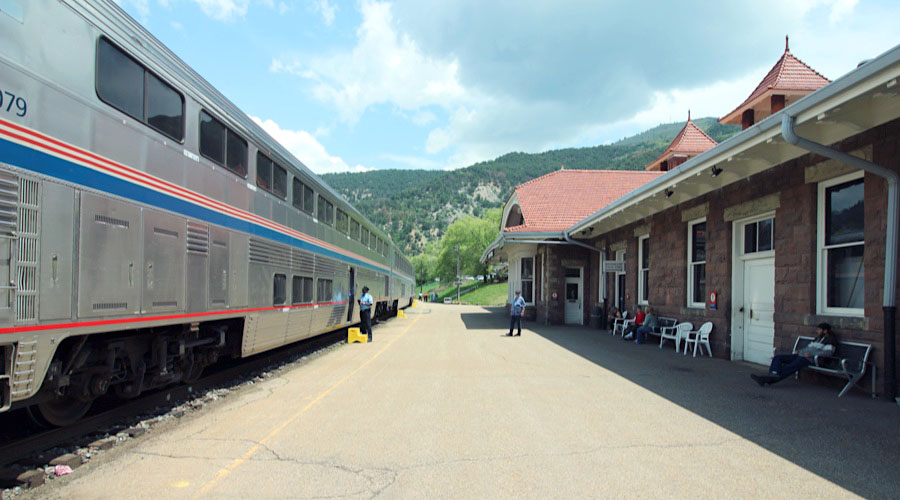
Glenwood Springs, Co / May 2023 / RWH
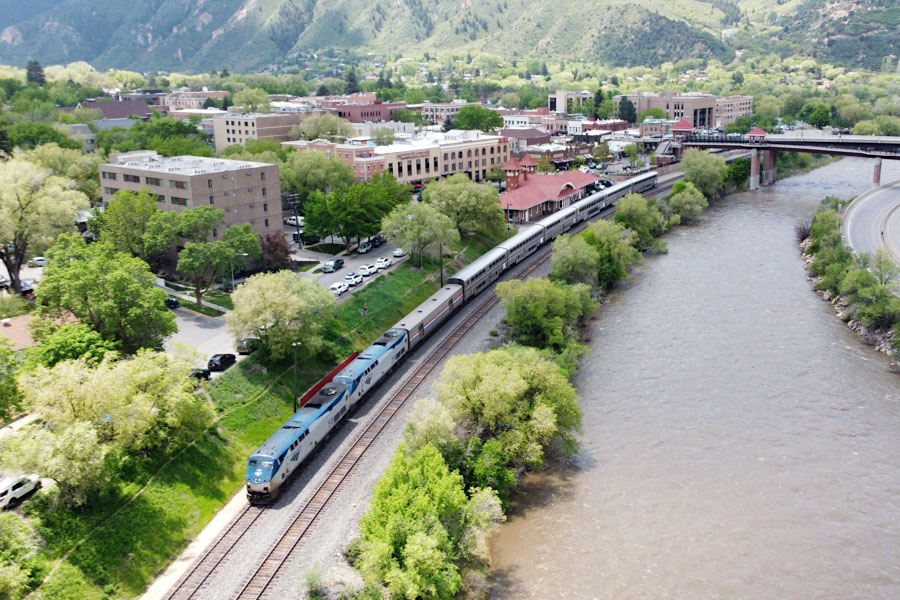
Glenwood Springs, Co / May 2023 / RWH
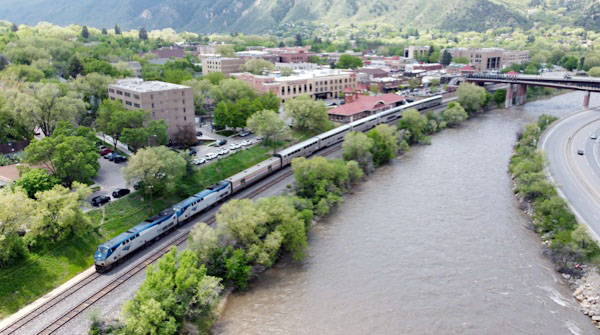
Glenwood Springs, Co / May 2023 / RWH
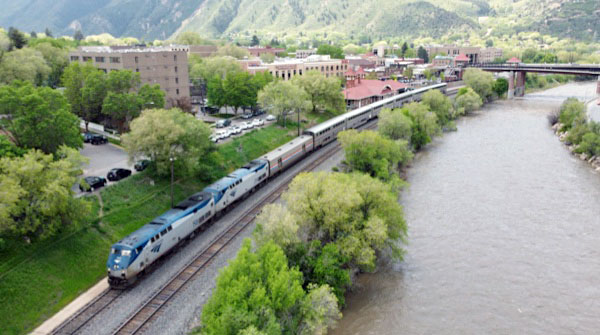
Glenwood Springs, Co / May 2023 / RWH
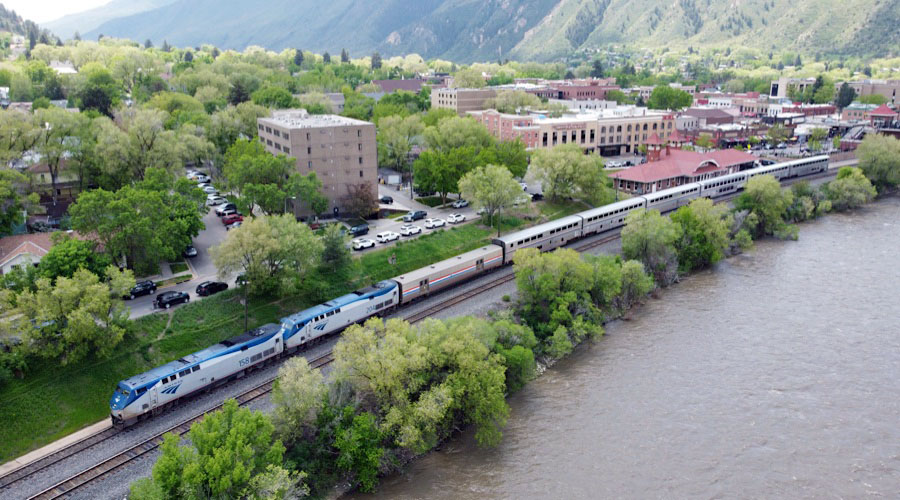
Glenwood Springs, Co / May 2023 / RWH
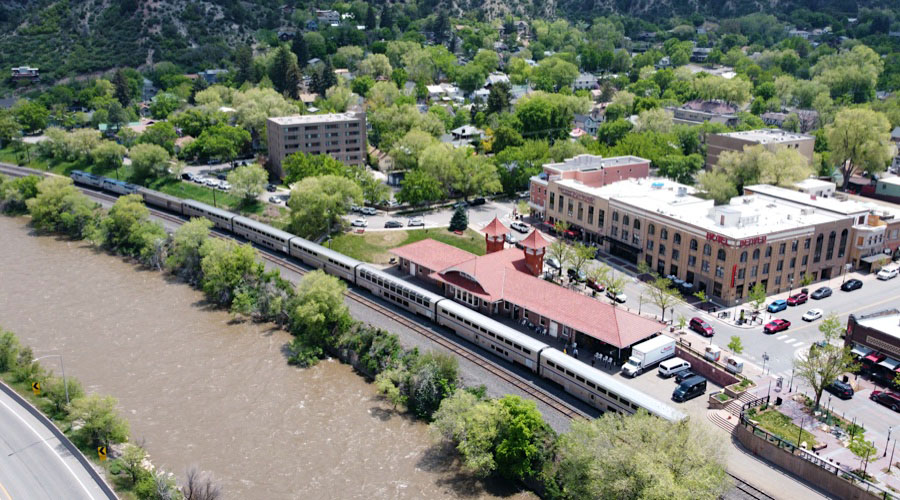
Glenwood Springs, Co / May 2023 / RWH
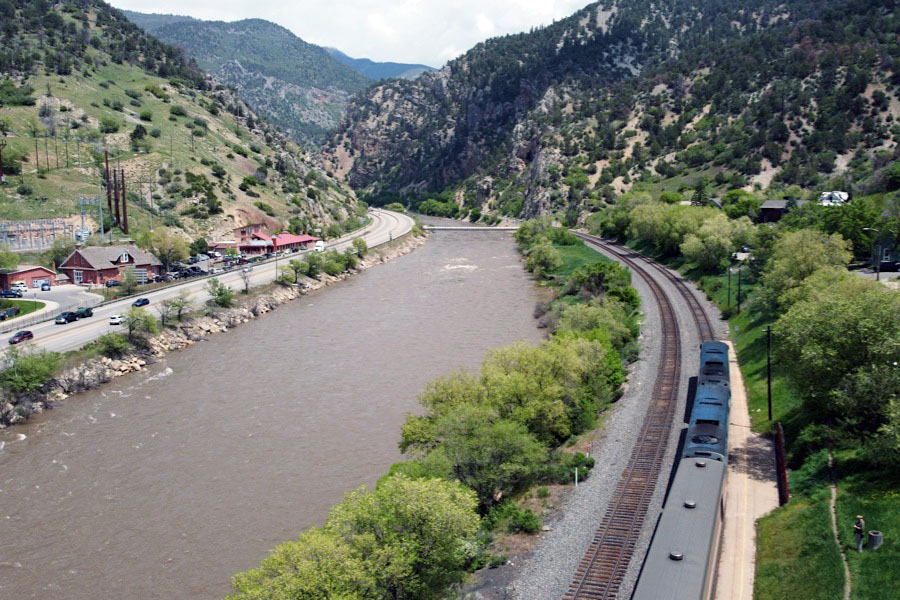
Glenwood Springs, Co / May 2023 / RWH
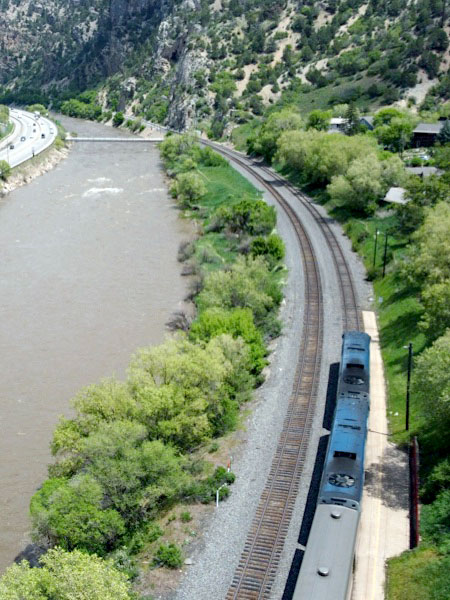
May 2023 / RWH
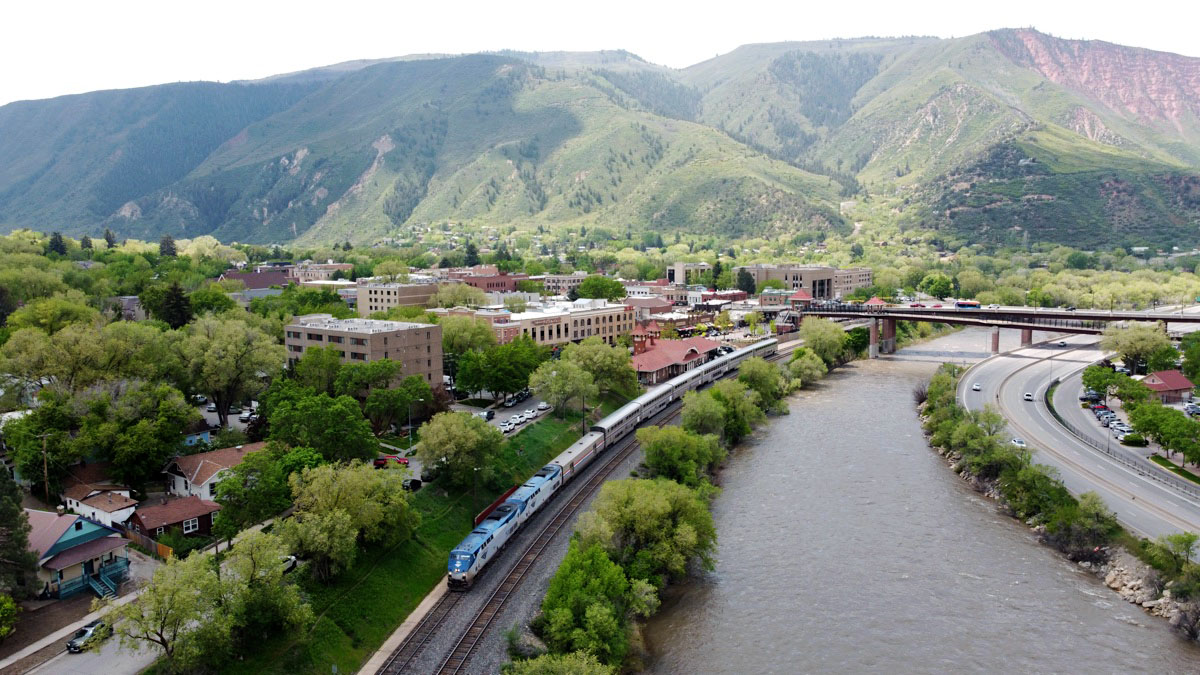
Glenwood Springs, Co / May 2023 / RWH

westbound #5
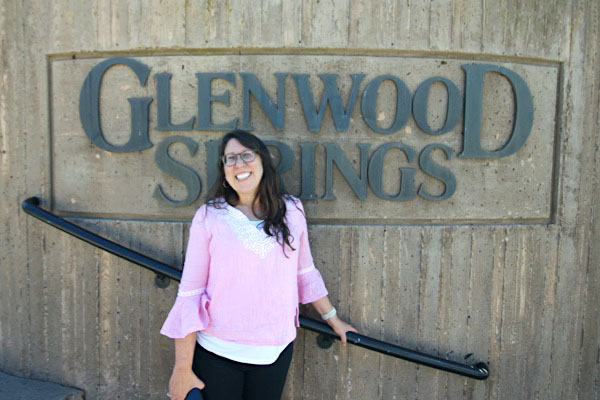
Sep 2023 / RWH
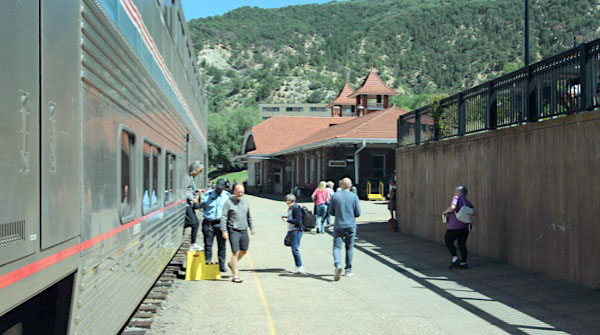
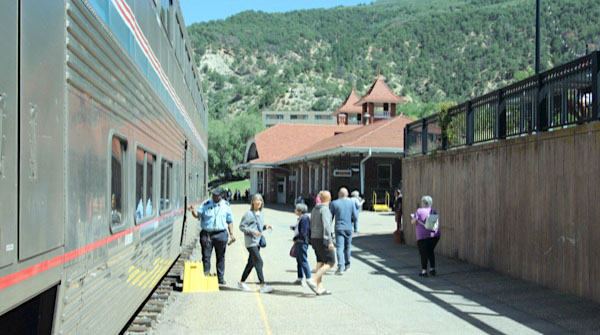
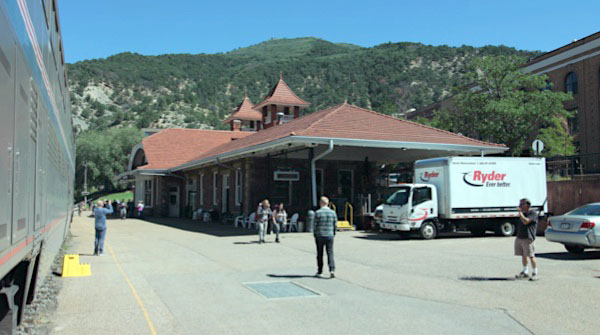
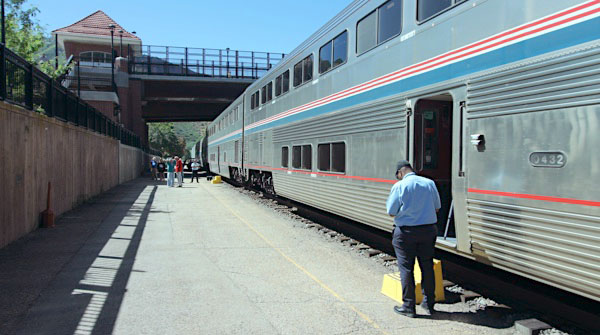
Glenwood Springs, Co / Sep 2023 / RWH
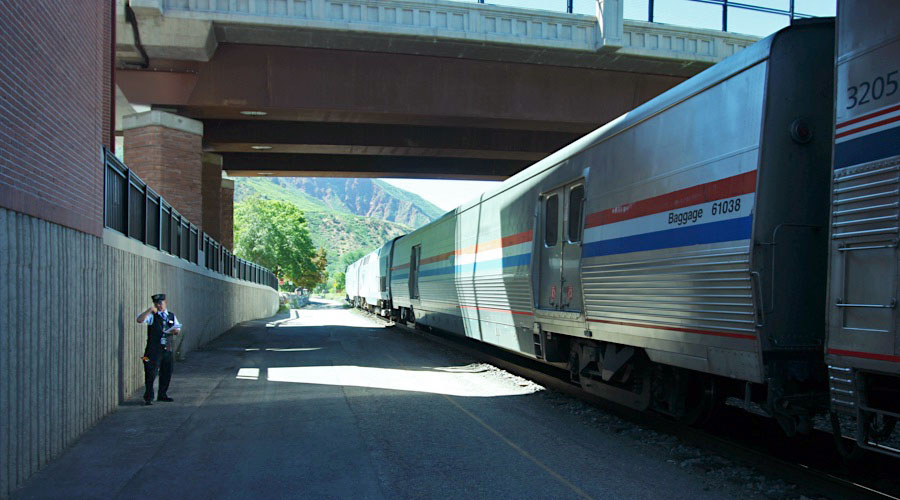
Glenwood Springs, Co / Sep 2023 / RWH
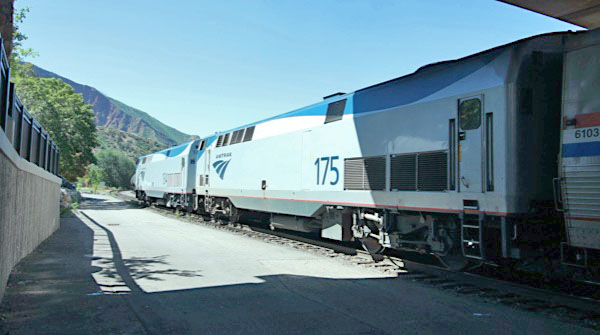
Glenwood Springs, Co / Sep 2023 / RWH
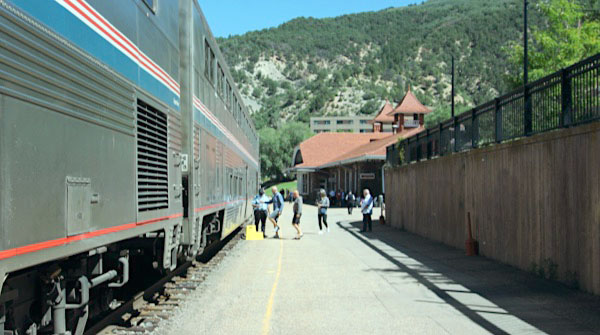
Glenwood Springs, Co / Sep 2023 / RWH

eastbound #6
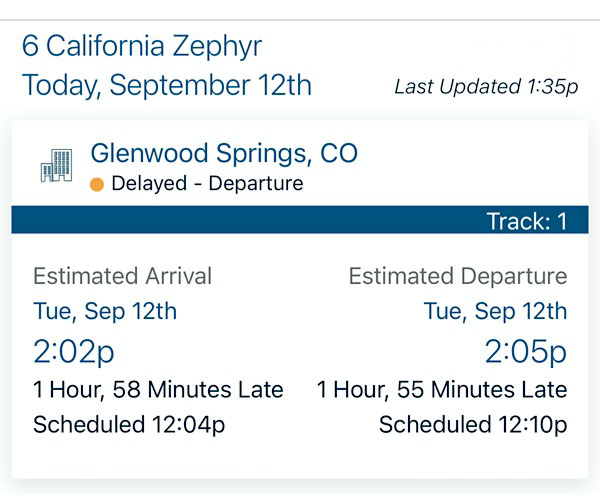
RWH
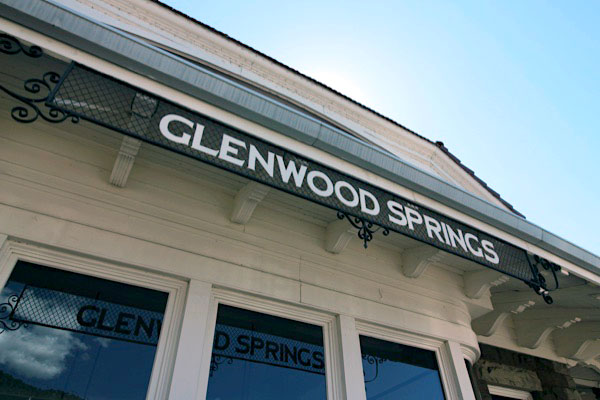
Sep 2023 / RWH
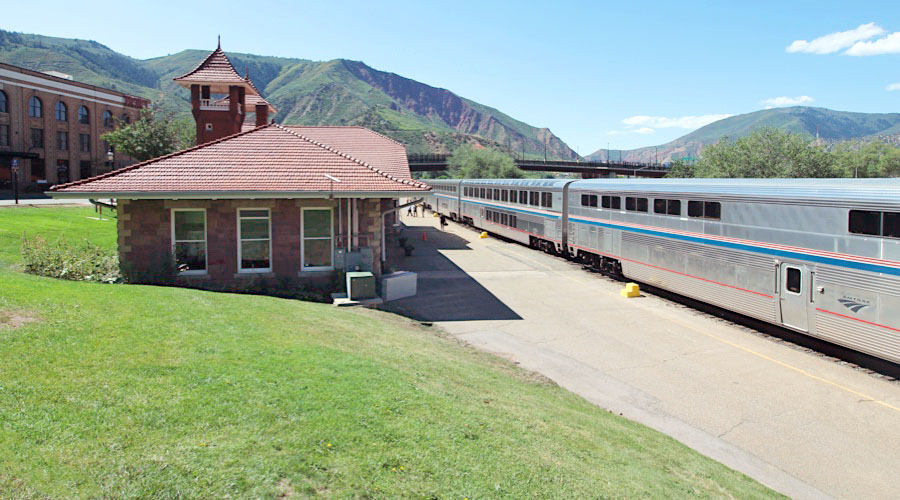
Glenwood Springs, Co / Sep 2023 / RWH
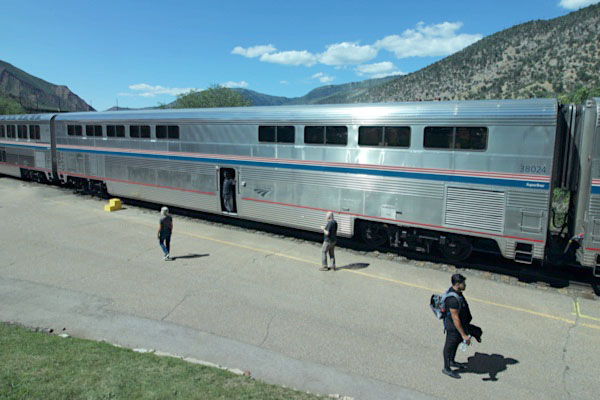
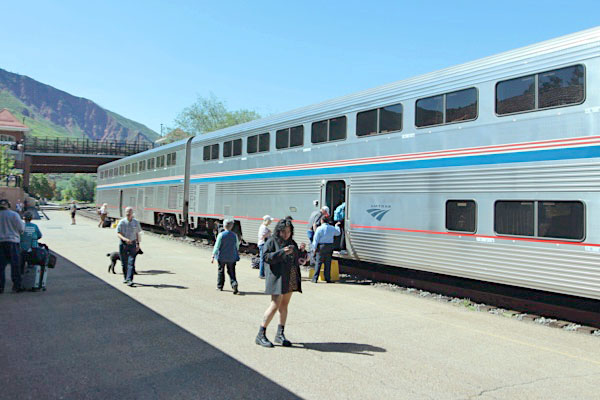
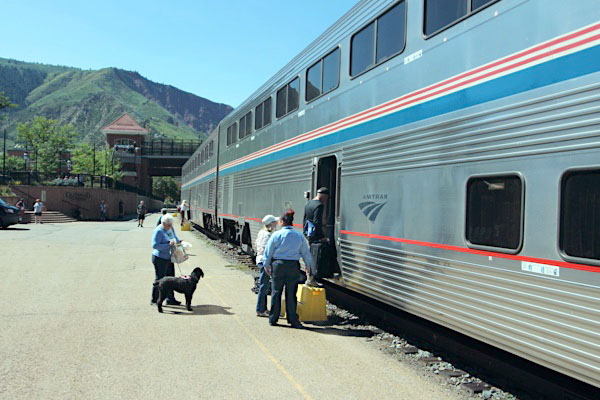
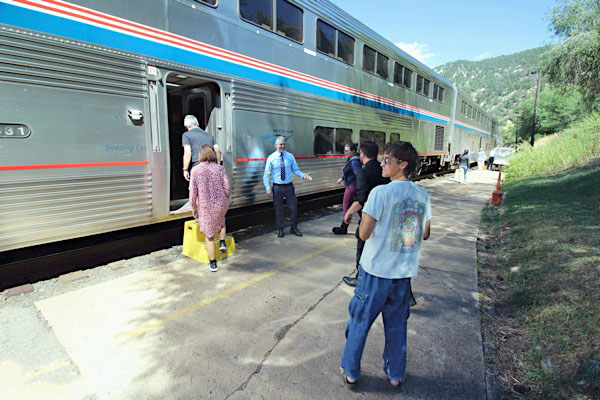
Glenwood Springs, Co / Sep 2023 / RWH
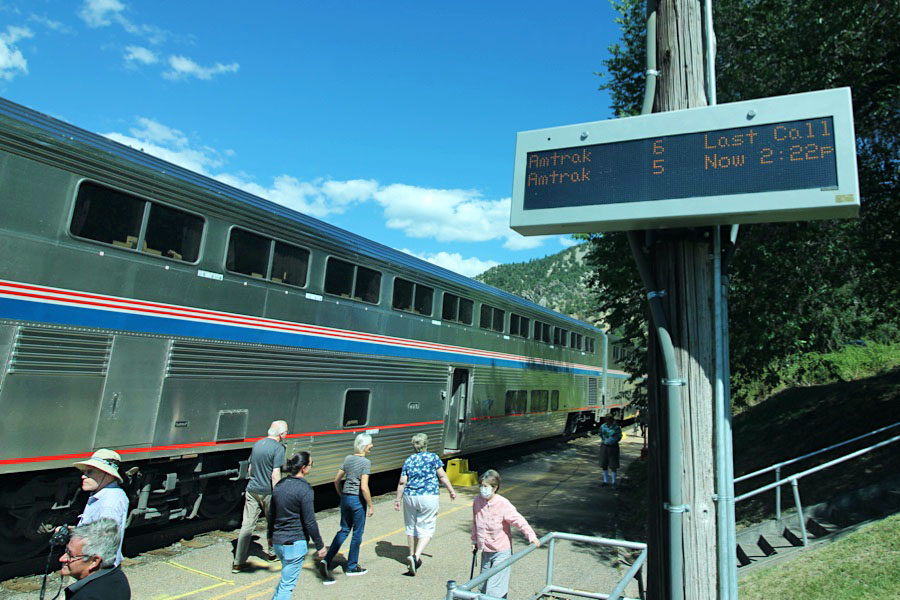
Glenwood Springs, Co / Sep 2023 / RWH
 Palisade, Co
Palisade, Co

1967 brochure / collection
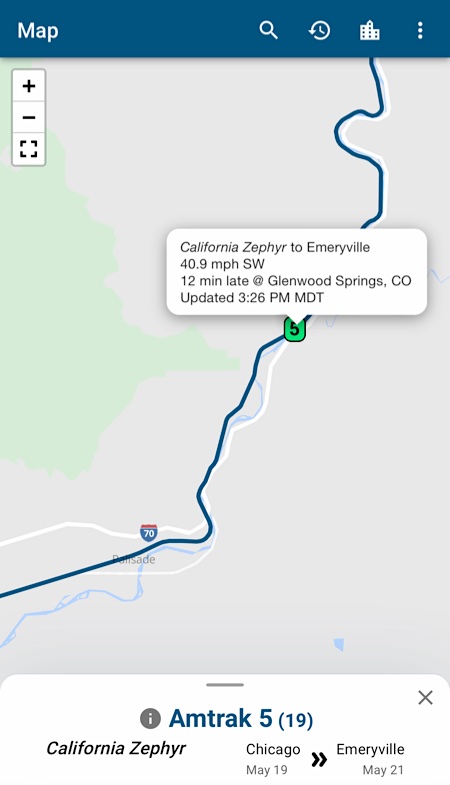
RWH
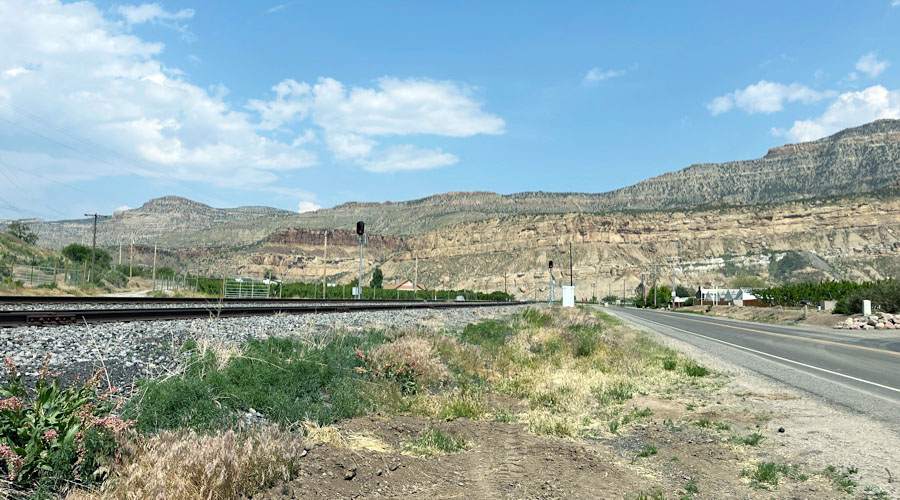
Palisade, Co / May 2023 / RWH

Palisade, Co / May 2023 / RWH

Click to see this location along River Road plotted on a Google Maps page
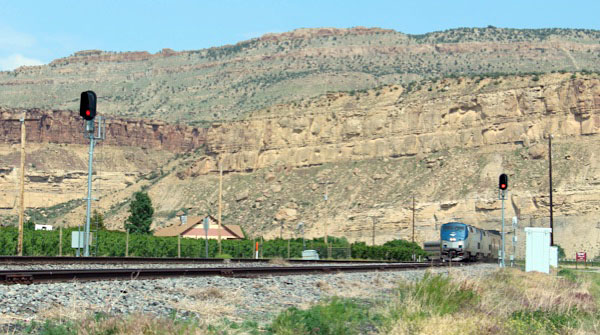
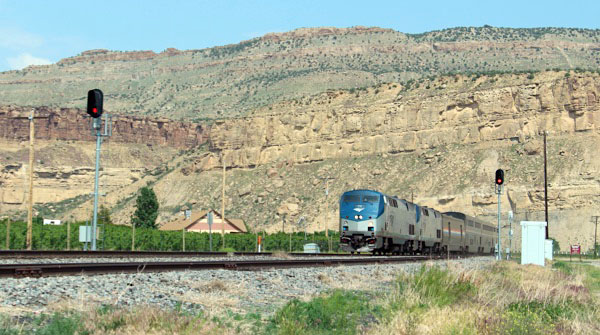
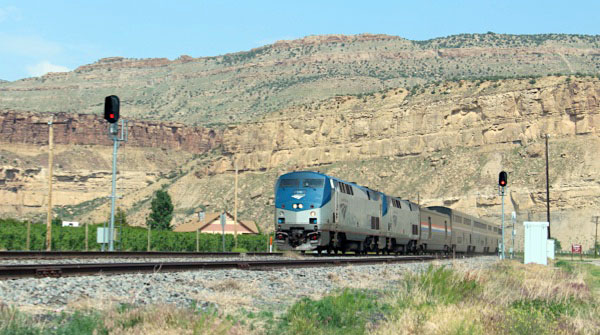
Palisade, Co / May 2023 / RWH
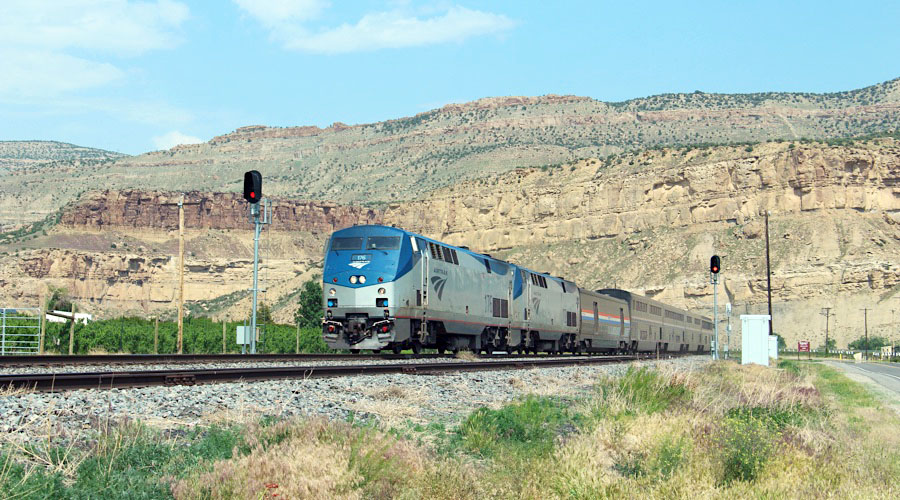
Palisade, Co / May 2023 / RWH
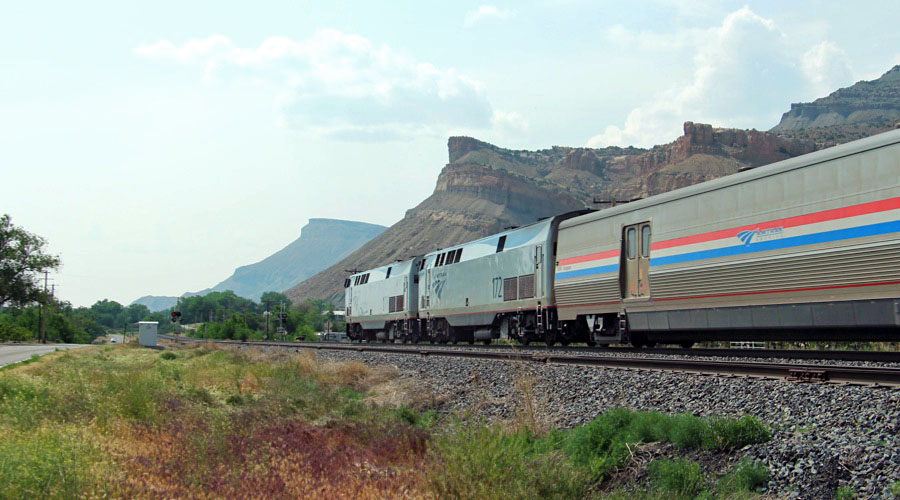
Palisade, Co / May 2023 / RWH
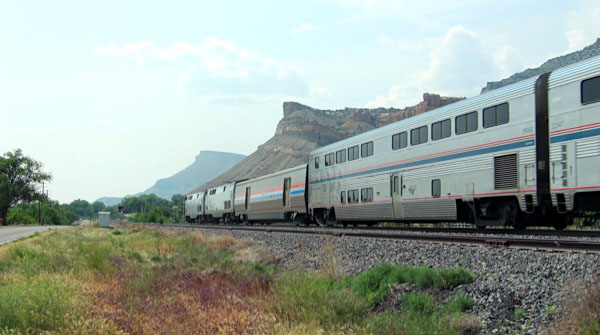
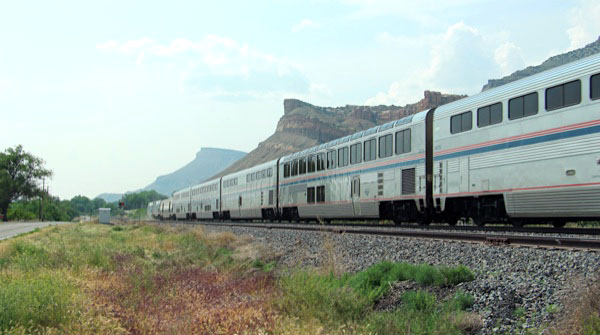
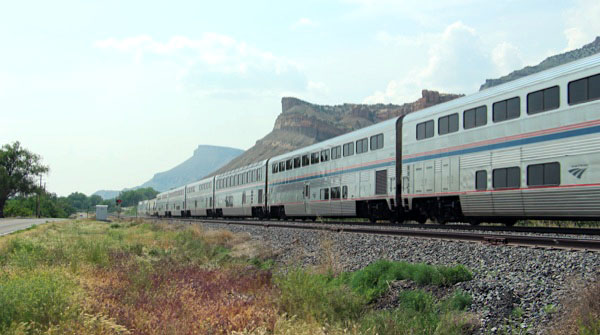
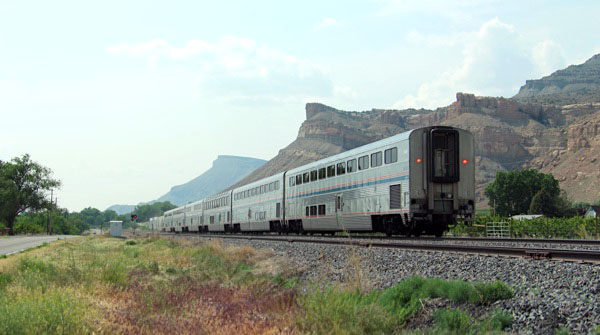
Palisade, Co / May 2023 / RWH
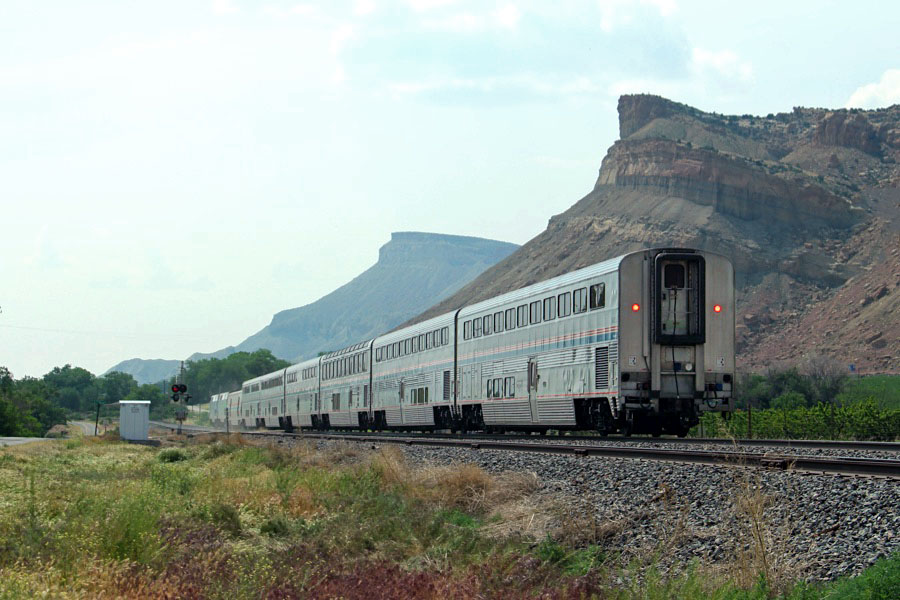
Palisade, Co / May 2023 / RWH
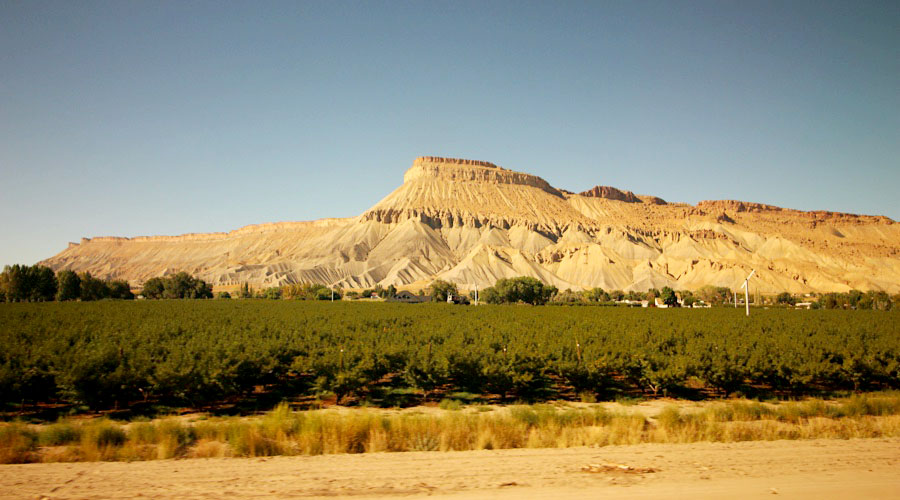
Clifton, Co / Sep 2023 / RWH
 Grand Junction, Co
Grand Junction, Co

1967 brochure / collection
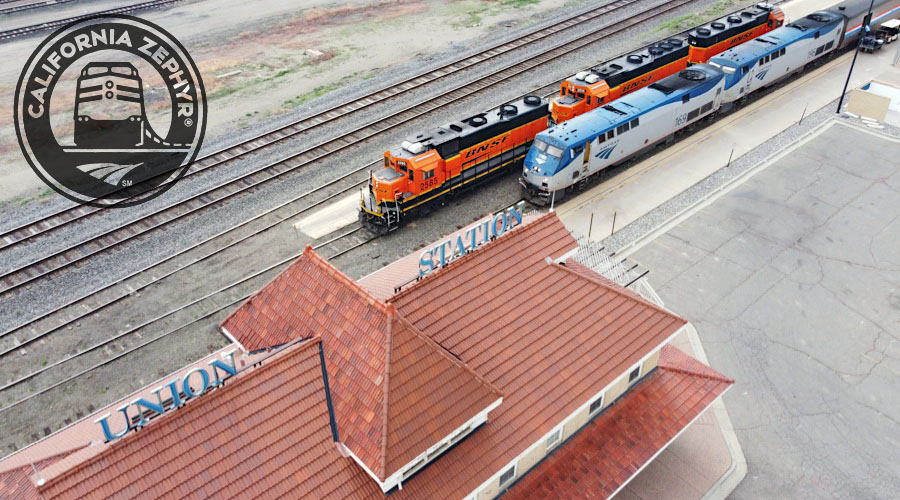
Grand Junction, Co / May 2023 / RWH

 o the northeast, the weathered Little Bookcliffs cut across the skyline. To the southeast soars the Grand Mesa, the world's largest flat-topped mountain. The photogenic canyons and monoliths of the Colorado National Monument form a western wall. In between the three natural barriers sprawls Grand Junction. Cut out of the rugged terrain by the Colorado and Gunnison rivers, the valley was also one of the last locales in the lower 48 states to be settled by pioneer Americans.
o the northeast, the weathered Little Bookcliffs cut across the skyline. To the southeast soars the Grand Mesa, the world's largest flat-topped mountain. The photogenic canyons and monoliths of the Colorado National Monument form a western wall. In between the three natural barriers sprawls Grand Junction. Cut out of the rugged terrain by the Colorado and Gunnison rivers, the valley was also one of the last locales in the lower 48 states to be settled by pioneer Americans.
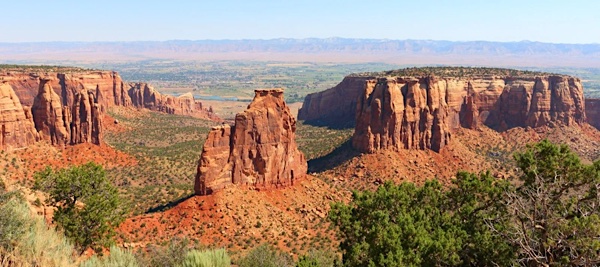 Until 1821, the Grand Junction area was part of the kingdom of Spain. And during the early and mid 1700's, hardy Spanish and Mexican soldiers, explorers and priests poked and prodded through the region. Some were looking for gold, others seeking new trails to Spanish California. Most were not too successful.
Until 1821, the Grand Junction area was part of the kingdom of Spain. And during the early and mid 1700's, hardy Spanish and Mexican soldiers, explorers and priests poked and prodded through the region. Some were looking for gold, others seeking new trails to Spanish California. Most were not too successful.
At first, trail-blazing American mountain men weren't very successful either. Hoping to trap valuable beaver or trade with Ute Indians, most of the Americans were kept out of the territory by jealous Spanish officials. However, when Western Colorado became part of Mexico in 1821, the mountains were suddenly wide open to trappers, traders and wandering buck-skinners of the U.S.
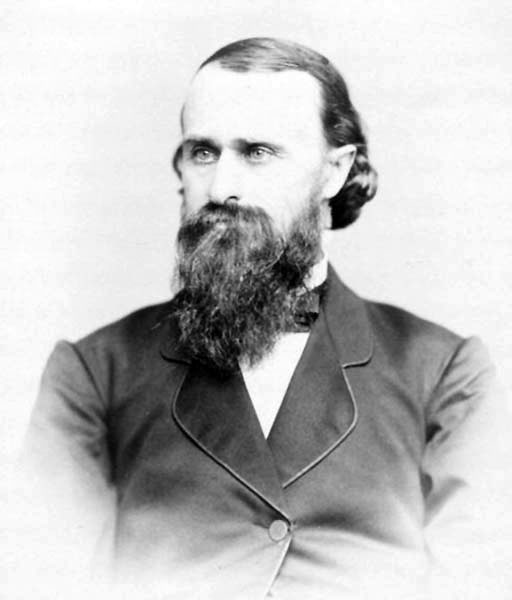 A few of the same mountain men to first see Colorado's Western Slope later helped guide U.S. Army expeditions and Government Surveying parties through the region. Some of the Old West's best known explorers - Kit Carson, John Charles Fremont and Capt. John Gunnison - all passed through the Grand Junction area in the 1840's and 1850's.
A few of the same mountain men to first see Colorado's Western Slope later helped guide U.S. Army expeditions and Government Surveying parties through the region. Some of the Old West's best known explorers - Kit Carson, John Charles Fremont and Capt. John Gunnison - all passed through the Grand Junction area in the 1840's and 1850's.
In spite of anti-Indian politicians, a large part of Western Colorado remained Ute Indian Territory until September 1881. The region was opened to homesteaders, ranchers and town builders the very day the Utes were being forced out by Army troopers. By the time Kansas politician and real estate developer George Crawford decided the unclaimed Grand Junction area would make a good town site, Denver, Colorado already had a population of 50,000. And Grand Junction, Colorado was just being born!
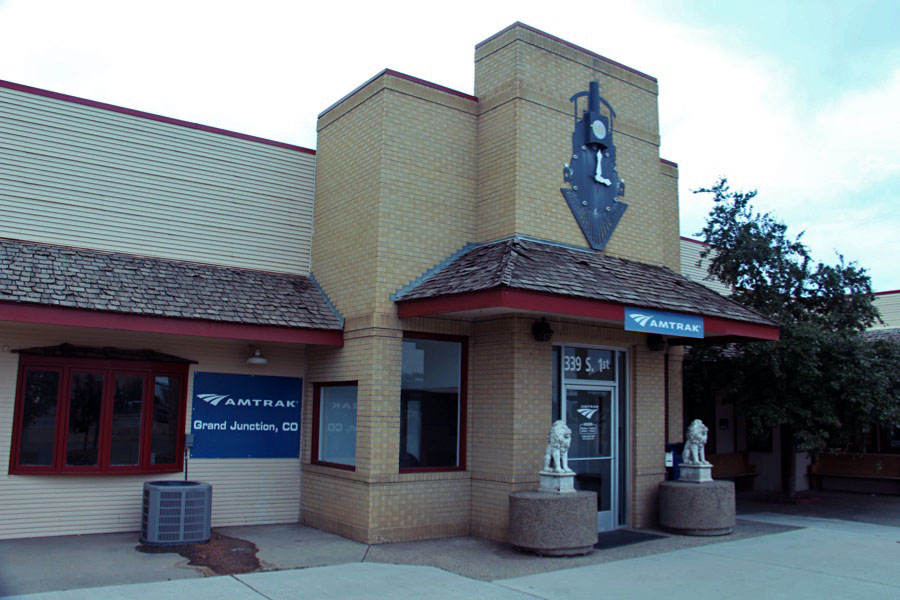
Grand Junction, Co / May 2023 / RWH
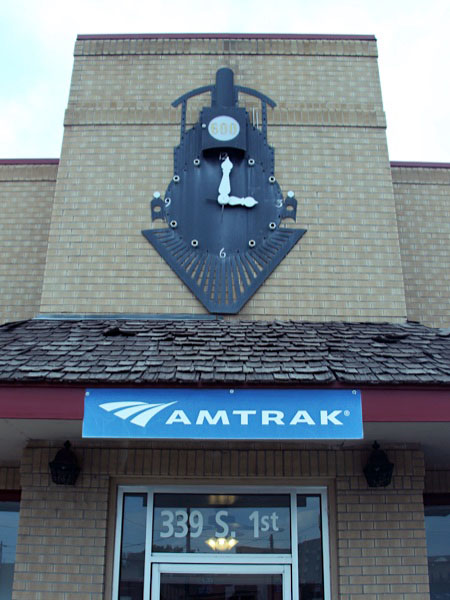
May 2023 / RWH

Click to see the Grand Junction Amtrak depot plotted on a Google Maps page
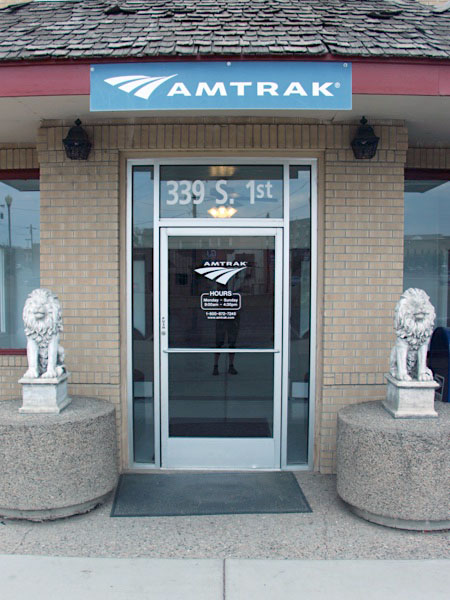
May 2023 / RWH
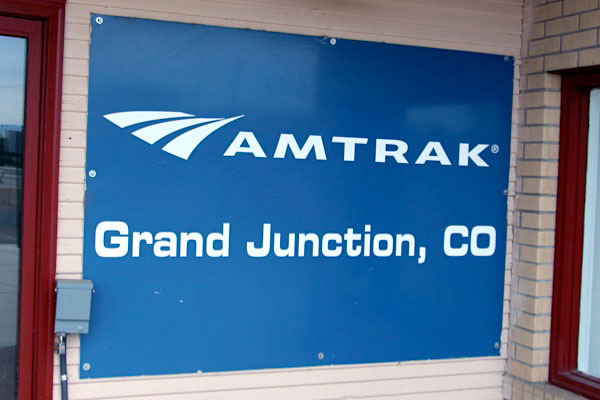
May 2023 / RWH
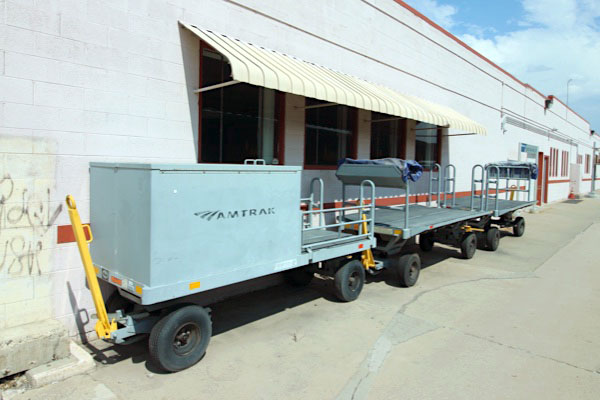
May 2023 / RWH
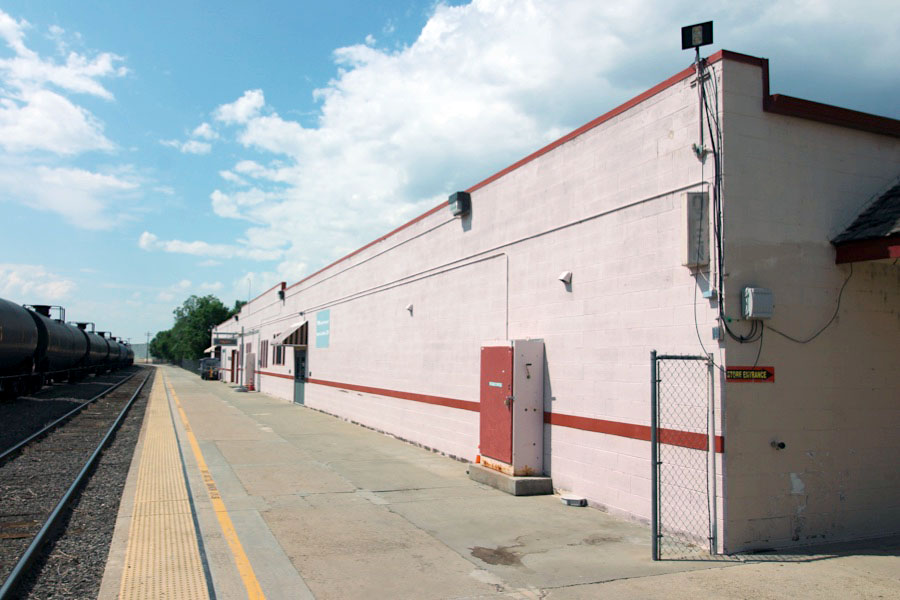
Grand Junction, Co / May 2023 / RWH
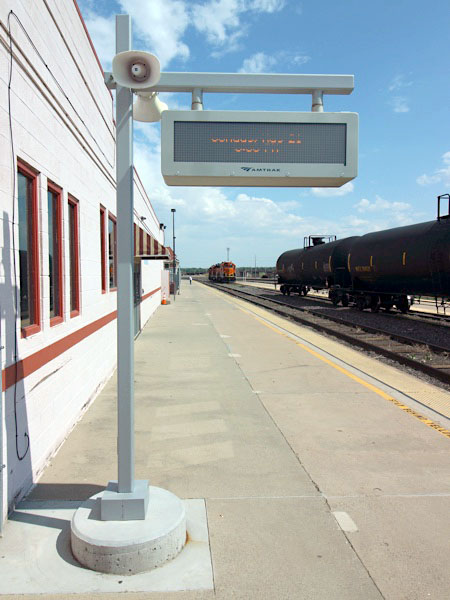
May 2023 / RWH
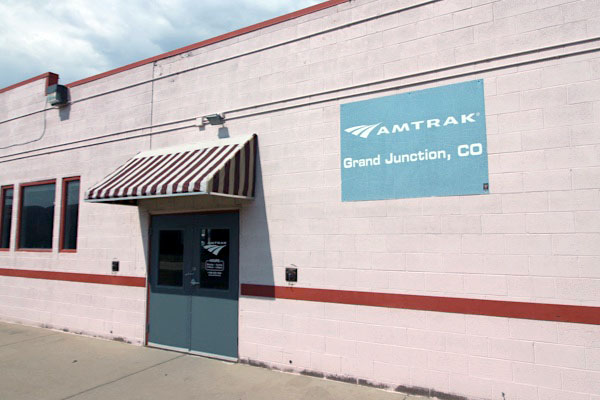
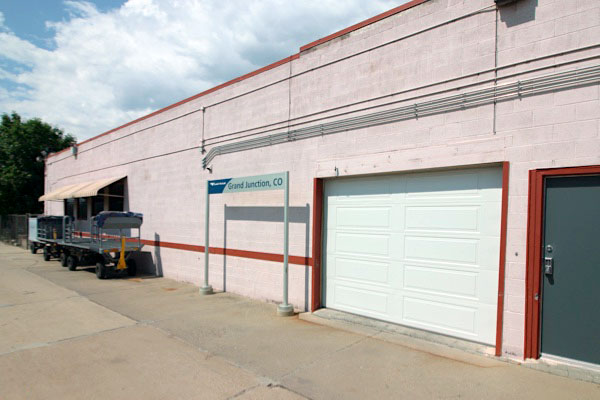
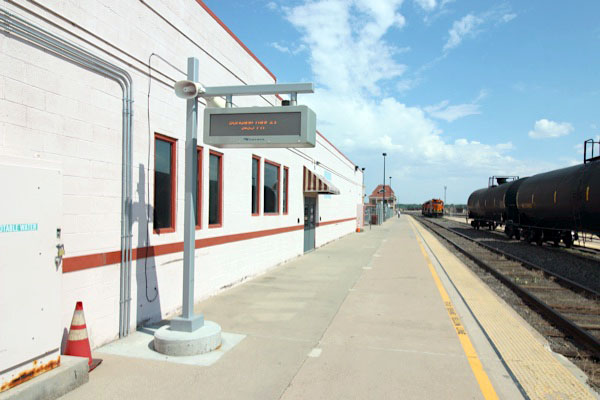
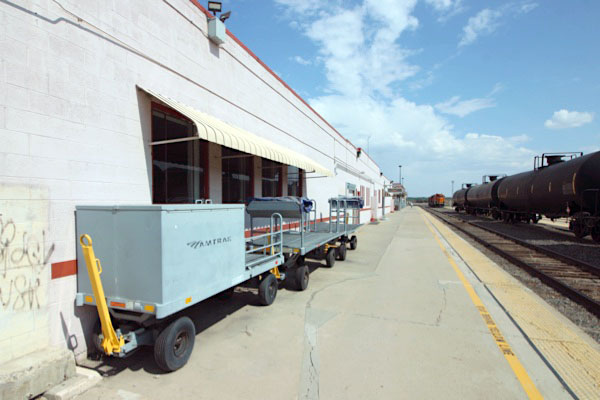
Grand Junction, Co / May 2023 / RWH
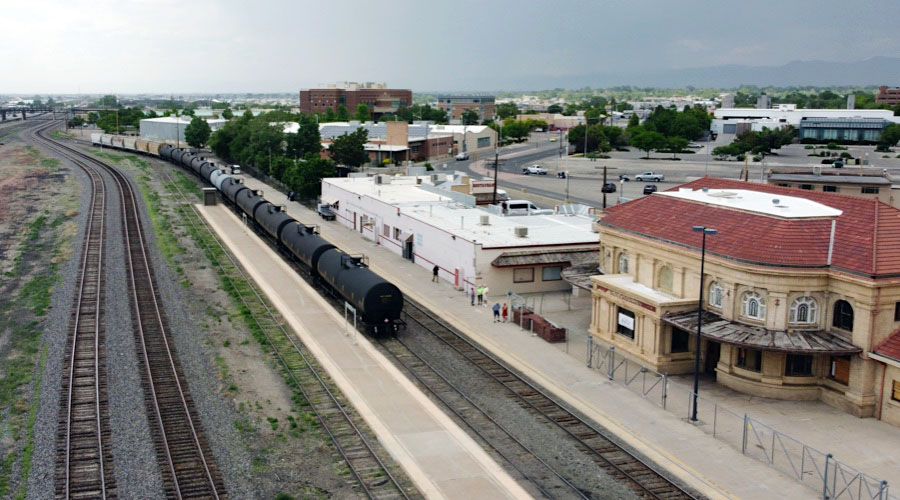
Grand Junction, Co / May 2023 / RWH

 rand Junction is named for its location at the junction of the Gunnison and Colorado Rivers. The Colorado River, originally known as the Grand River, gives the city the other part of its name. Originally inhabited by the Ute Indians, farmers began to settle the area in the 1880s. For it initial 80 years, the town subsisted mainly on farming and cattle, though it was rumored to sit near large oil deposits. With the oil embargoes of the 1960s, the city was made a center of the oil industry and profited throughout the next two decades due to rising oil costs and the business in oil shale.
rand Junction is named for its location at the junction of the Gunnison and Colorado Rivers. The Colorado River, originally known as the Grand River, gives the city the other part of its name. Originally inhabited by the Ute Indians, farmers began to settle the area in the 1880s. For it initial 80 years, the town subsisted mainly on farming and cattle, though it was rumored to sit near large oil deposits. With the oil embargoes of the 1960s, the city was made a center of the oil industry and profited throughout the next two decades due to rising oil costs and the business in oil shale.
The current station, originally built in the 1970s as a restaurant, is constructed of cinder blocks and wood. In the late 2000s, building owner Geoff Leany undertook renovations that included replacing sections of flooring; improving bathrooms; applying stucco to the back wall; mounting new railings; and installing granite countertops at the ticket counter.
In 1992, Amtrak moved out of the adjacent historic station due to its continued deterioration. Designed in the French Renaissance style and constructed of buff brick with terracotta detailing, the older depot opened in 1906 under the ownership of the Denver & Rio Grande Western Railroad.
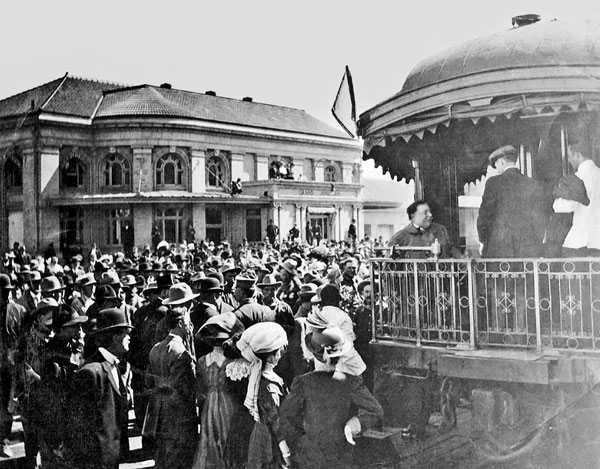 Throughout the 1990s and early 2000s, the historic station changed hands numerous times, but none of the owners were able to raise enough funds for a full rehabilitation. In 2009, a local bank foreclosed on the property. In response, a group of civic advocates and preservationists formed the “Friends of the Grand Junction Depot” to promote restoration and reuse of the building. While the station was under bank ownership, the Friends helped repair holes in the roof, held open houses so that the public could view the interior, and hired a landscape architecture student to prepare a study of the depot to explore how it could be better integrated into the downtown.
Throughout the 1990s and early 2000s, the historic station changed hands numerous times, but none of the owners were able to raise enough funds for a full rehabilitation. In 2009, a local bank foreclosed on the property. In response, a group of civic advocates and preservationists formed the “Friends of the Grand Junction Depot” to promote restoration and reuse of the building. While the station was under bank ownership, the Friends helped repair holes in the roof, held open houses so that the public could view the interior, and hired a landscape architecture student to prepare a study of the depot to explore how it could be better integrated into the downtown.
Most importantly, the Friends assisted the city and the Grand Junction Development Authority in winning two important grants: $10,000 from the Colorado Historic Society for a structural feasibility study and $135,000 from the Colorado Historic Fund for the rehabilitation of the station exterior. When taking into account local matches, the total potential investment amounted to $285,000, but a committed developer was needed in order for rehabilitation work to move forward. In October 2011, the former station was purchased by Grand Junction Railroad, Inc., which plans to eventually renovate the structure although a timeline has not been set.
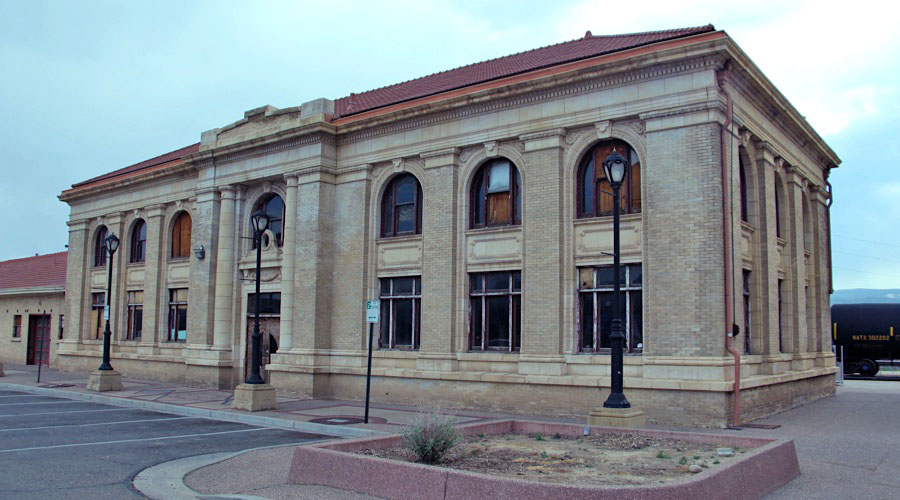
Grand Union Depot
Grand Junction, Co / May 2023 / RWH
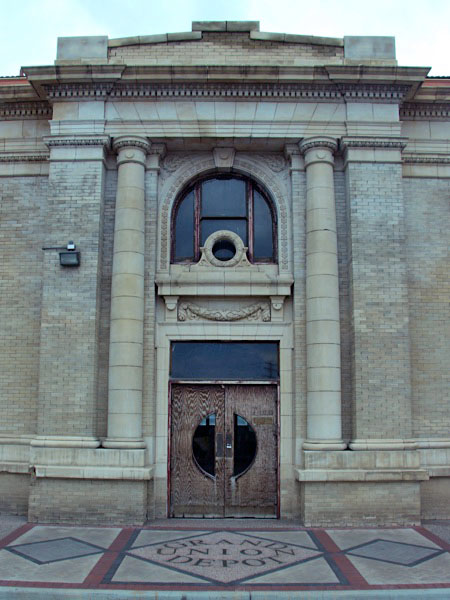
May 2023 / RWH
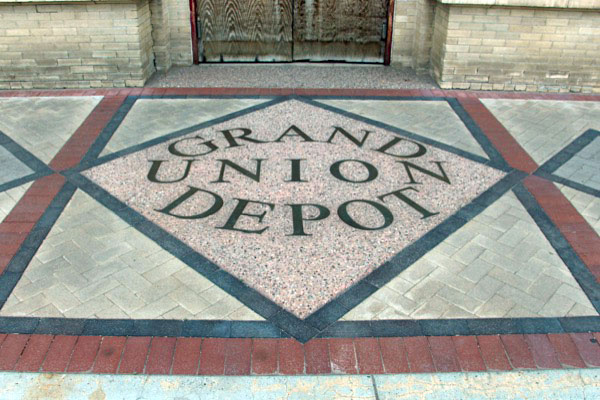
May 2023 / RWH
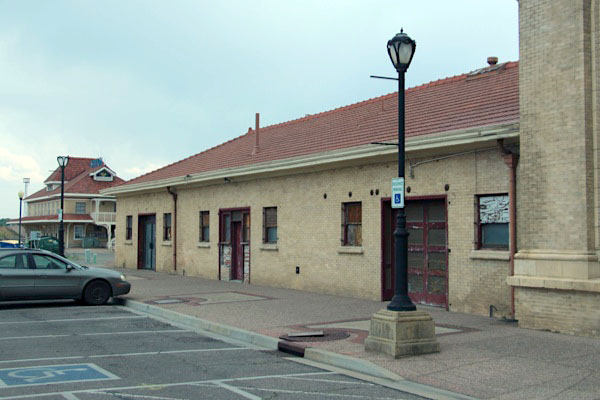
May 2023 / RWH
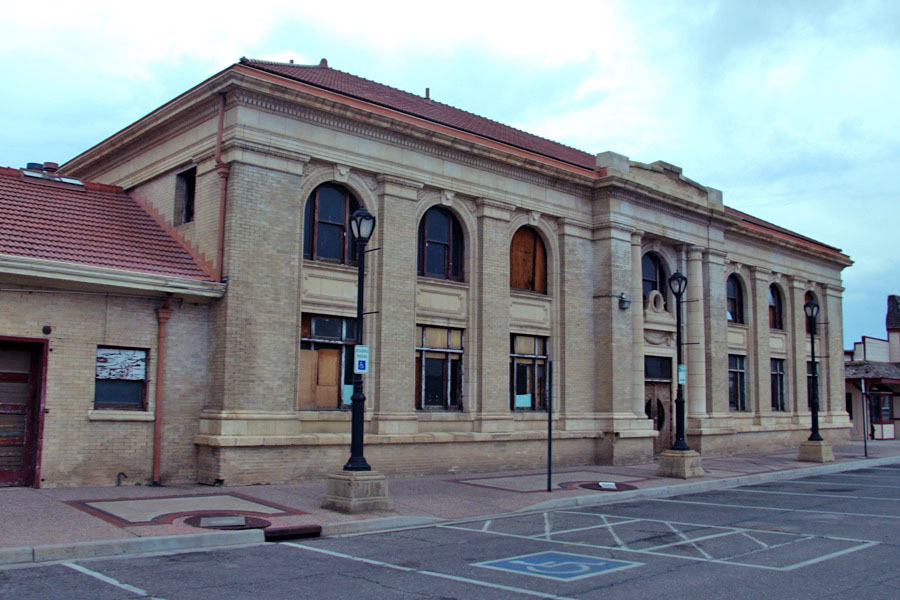
Grand Junction, Co / May 2023 / RWH
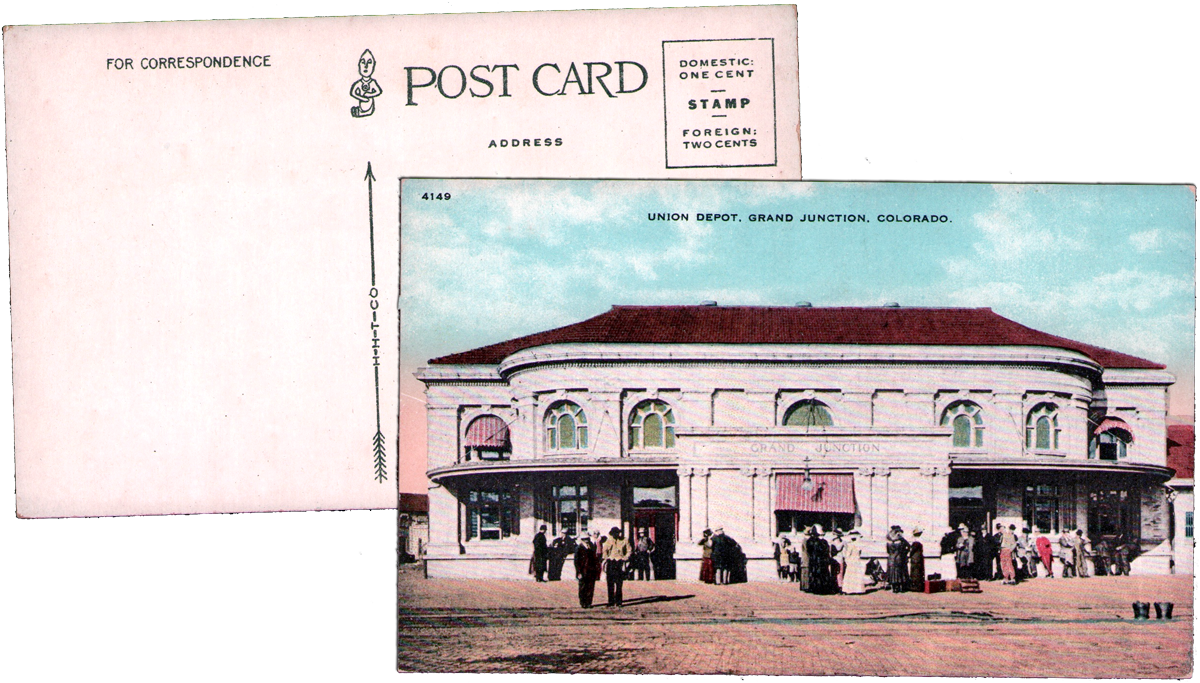
postcard / collection
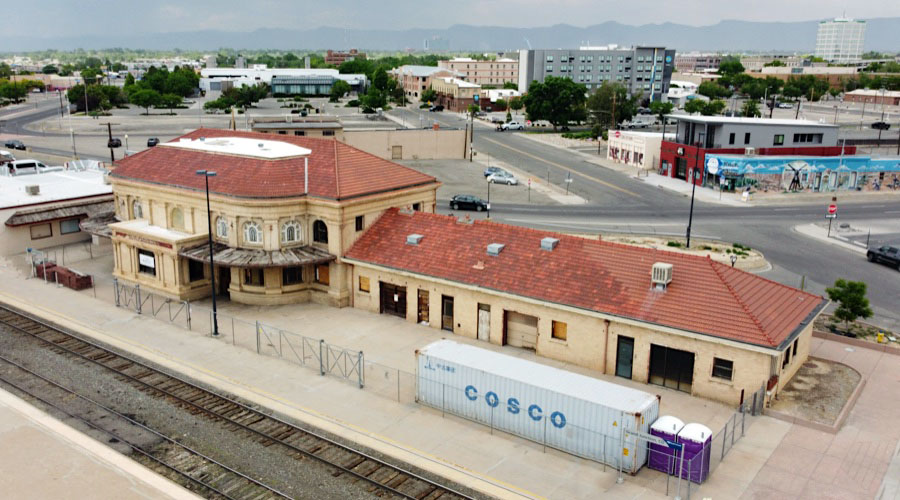
Grand Junction, Co / May 2023 / RWH
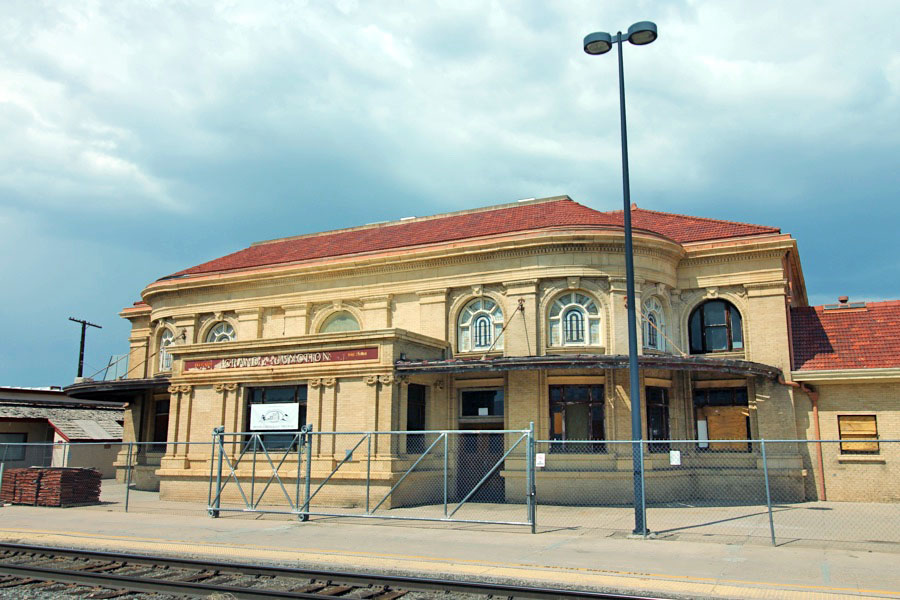
Grand Junction, Co / May 2023 / RWH
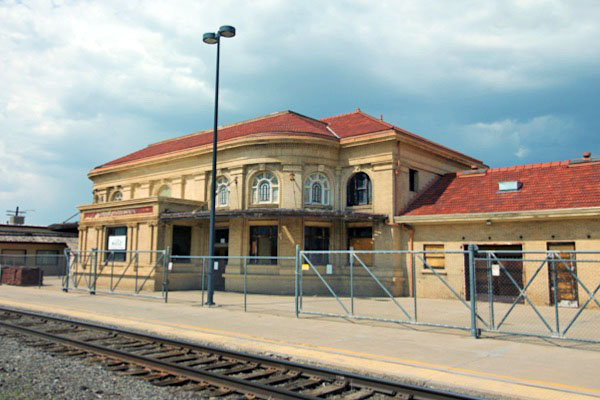
Grand Junction, Co / May 2023 / RWH
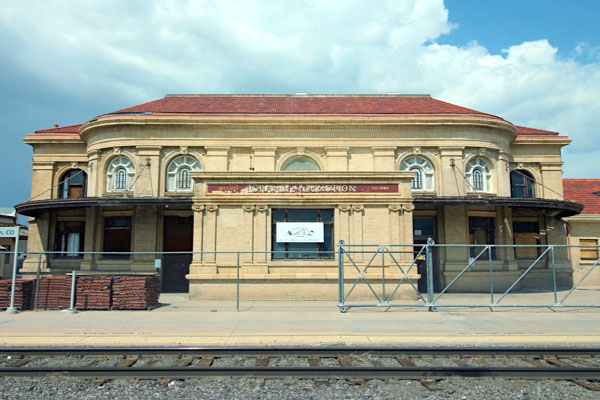
Grand Junction, Co / May 2023 / RWH
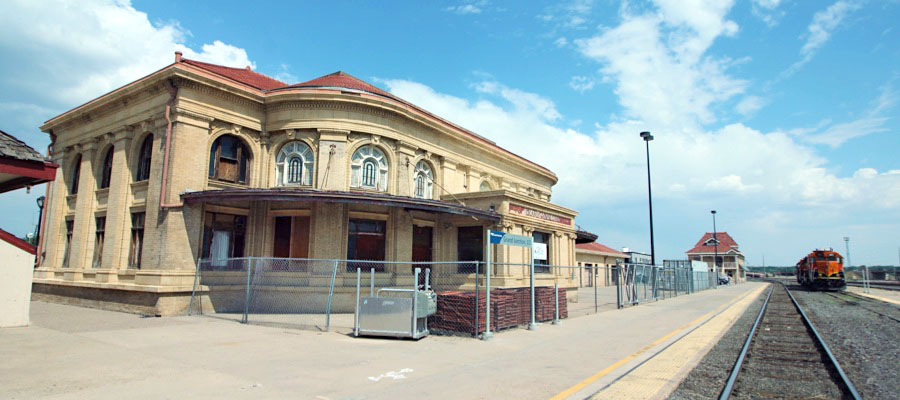
Grand Junction, Co / May 2023 / RWH
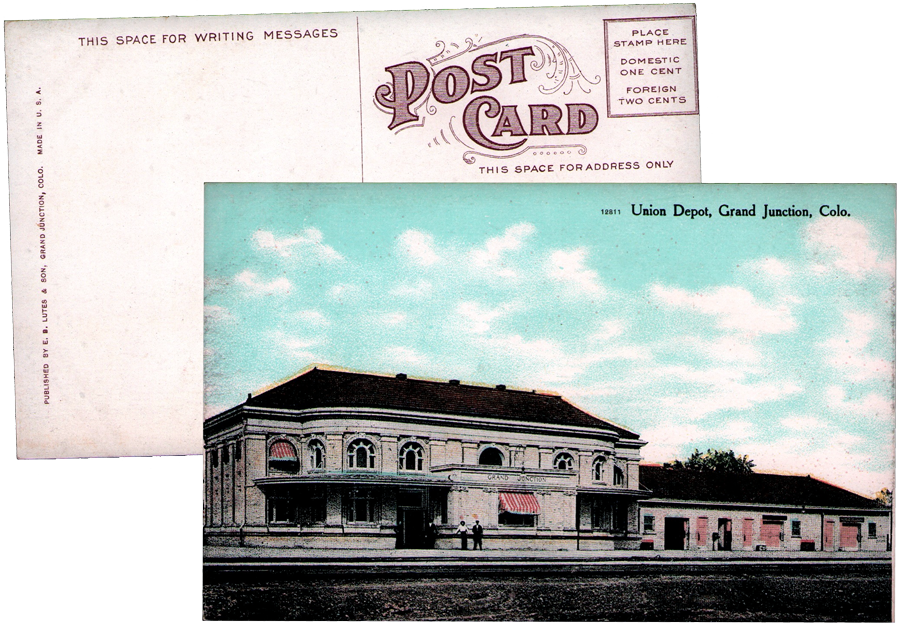
postcard / collection
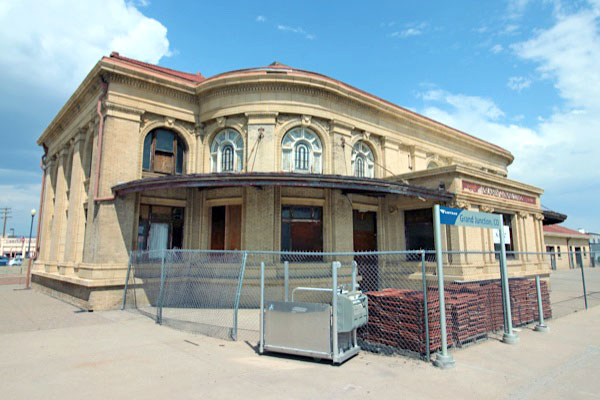
Grand Junction, Co / May 2023 / RWH
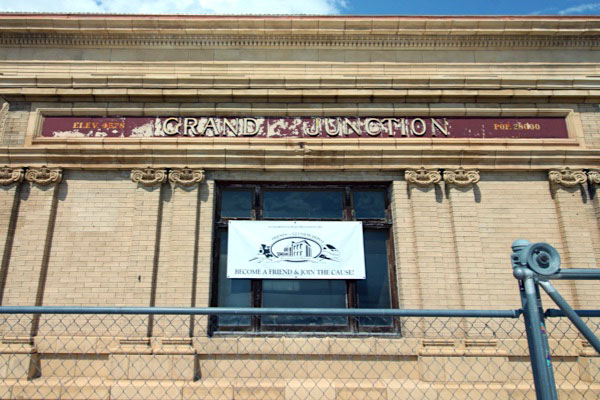
May 2023 / RWH
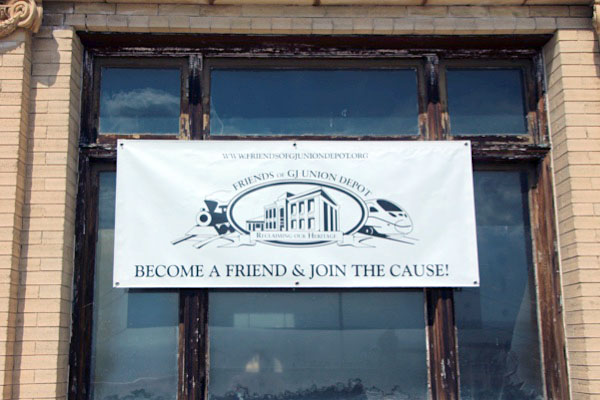
May 2023 / RWH
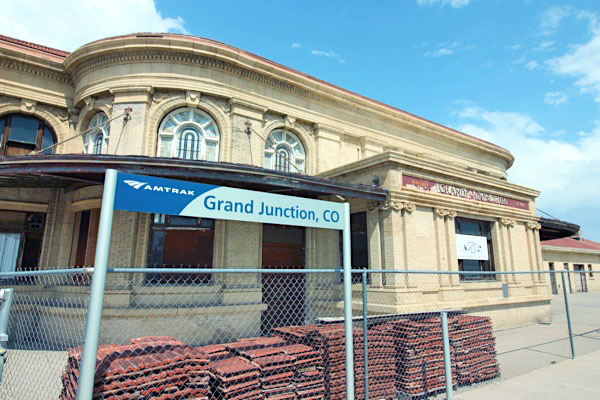
Grand Junction, Co / May 2023 / RWH
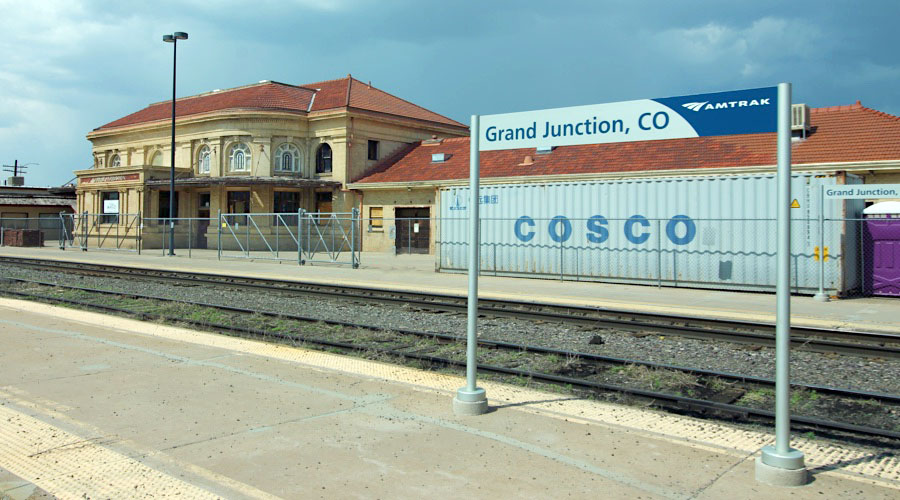
Grand Junction, Co / May 2023 / RWH
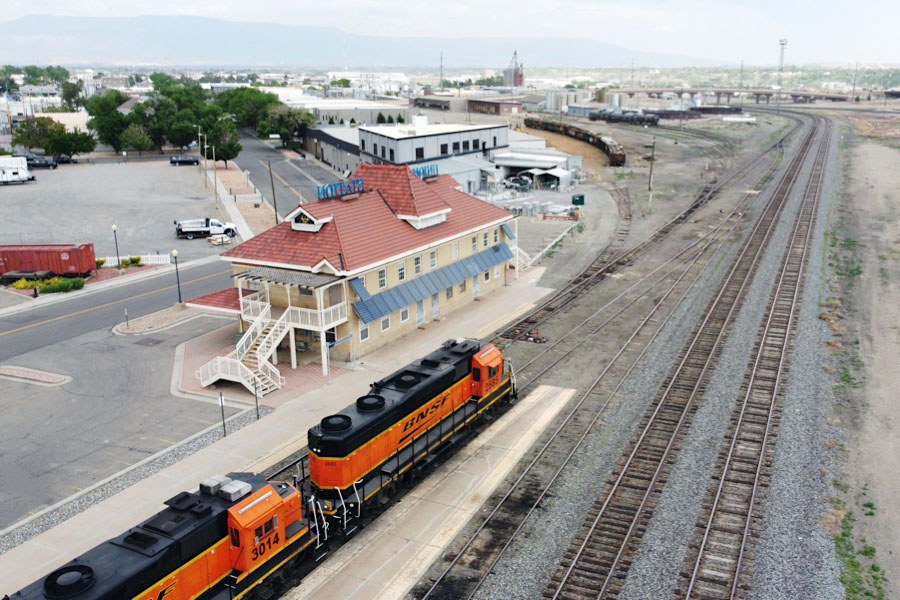
Grand Junction, Co / May 2023 / RWH

Click to see the former DRG&W yard office plotted on a Google Maps page
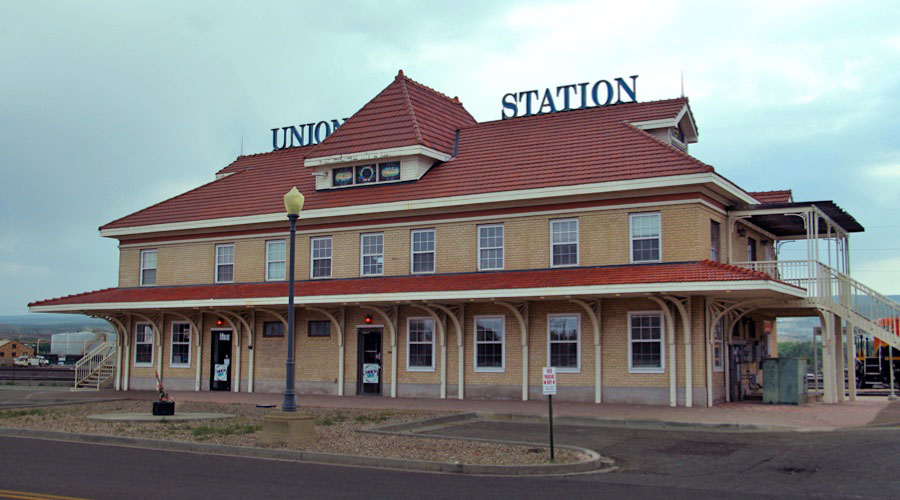
West Yard Office
Grand Junction, Co / May 2023 / RWH
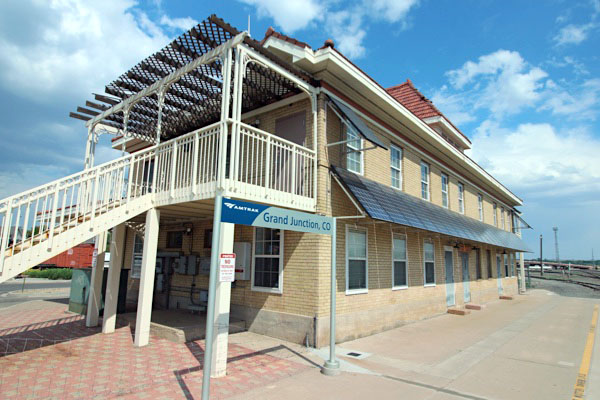
Grand Junction, Co / May 2023 / RWH
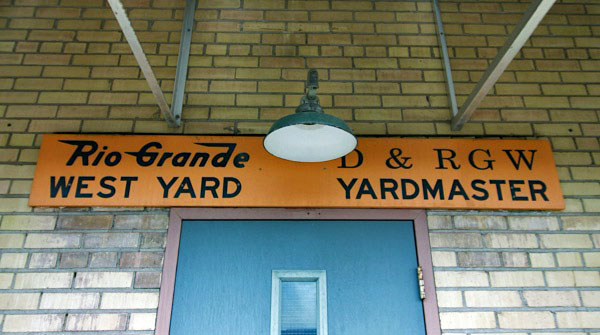
May 2023 / RWH
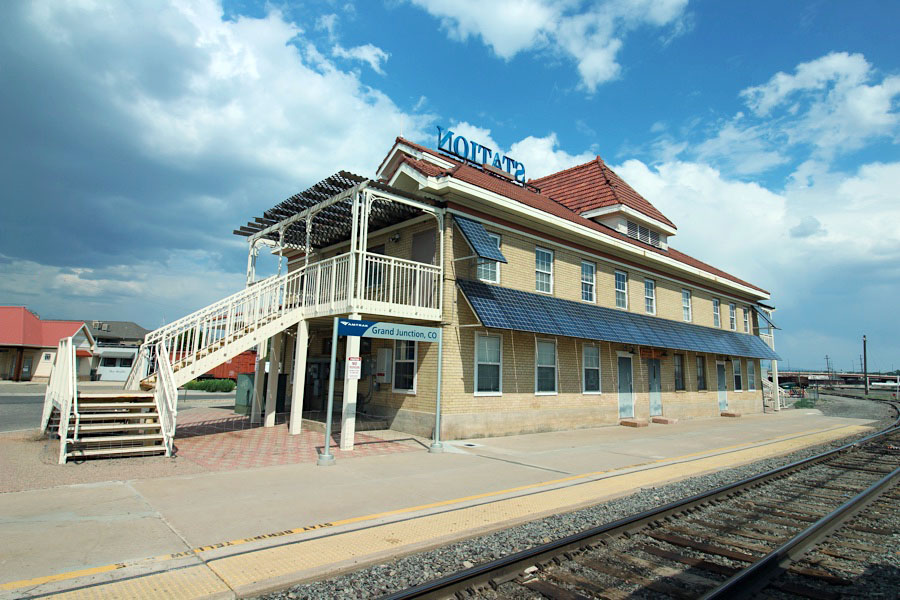
Grand Junction, Co / May 2023 / RWH
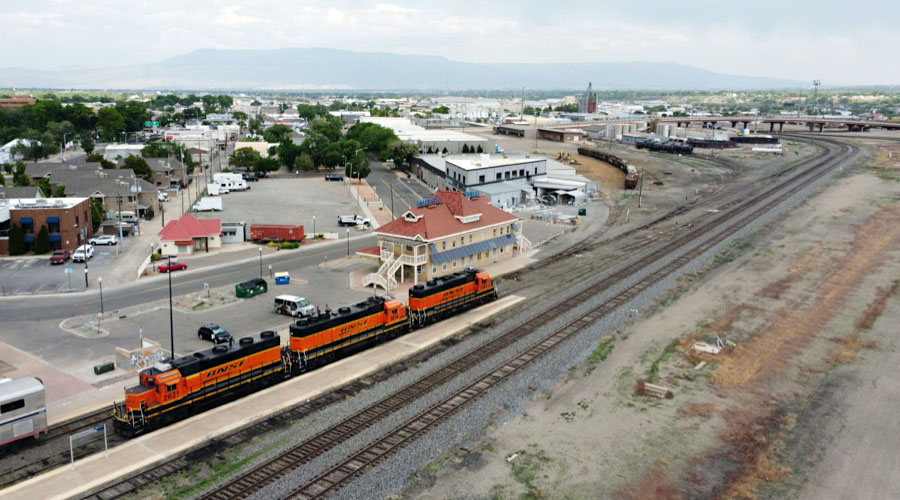
Grand Junction, Co / May 2023 / RWH
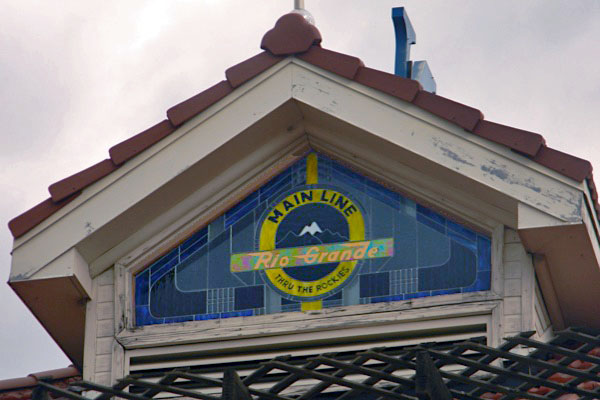
May 2023 / ETH
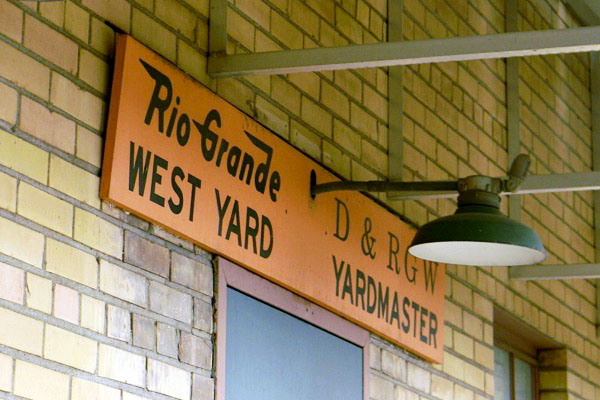
May 2023 / ETH
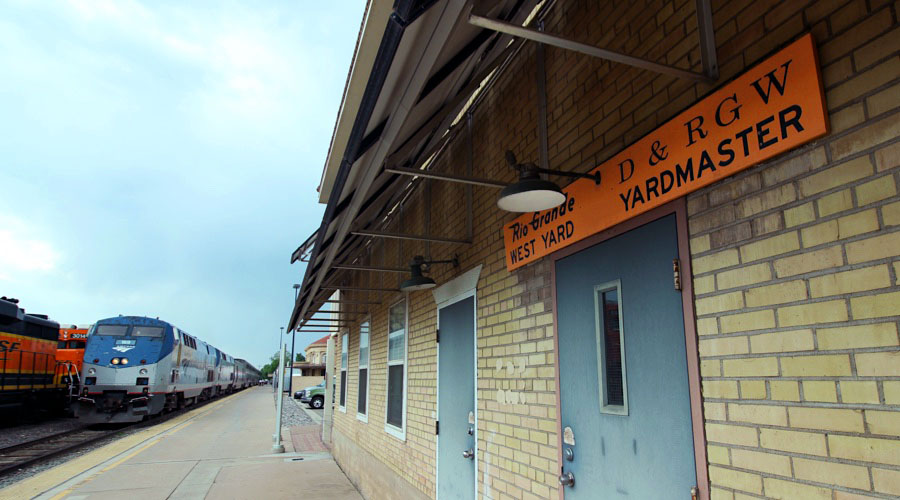
Grand Junction, Co / May 2023 / RWH

westbound #5
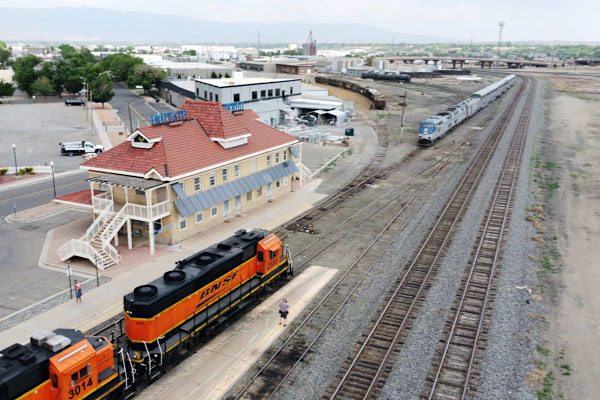
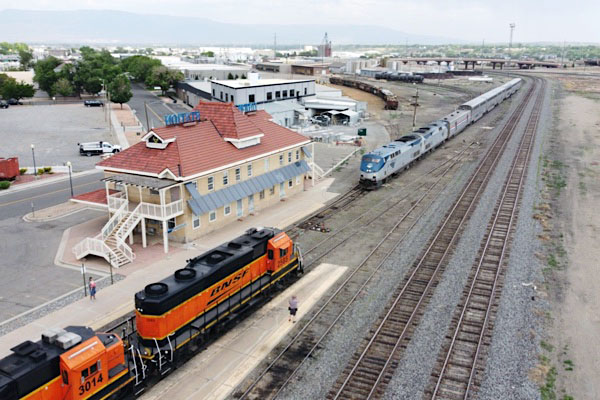
Grand Junction, Co / May 2023 / RWH
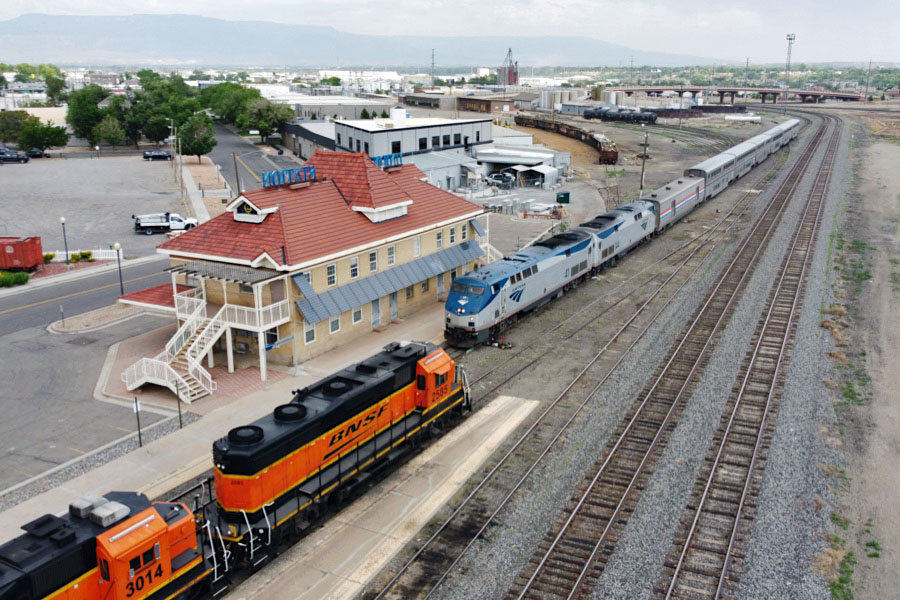
Grand Junction, Co / May 2023 / RWH
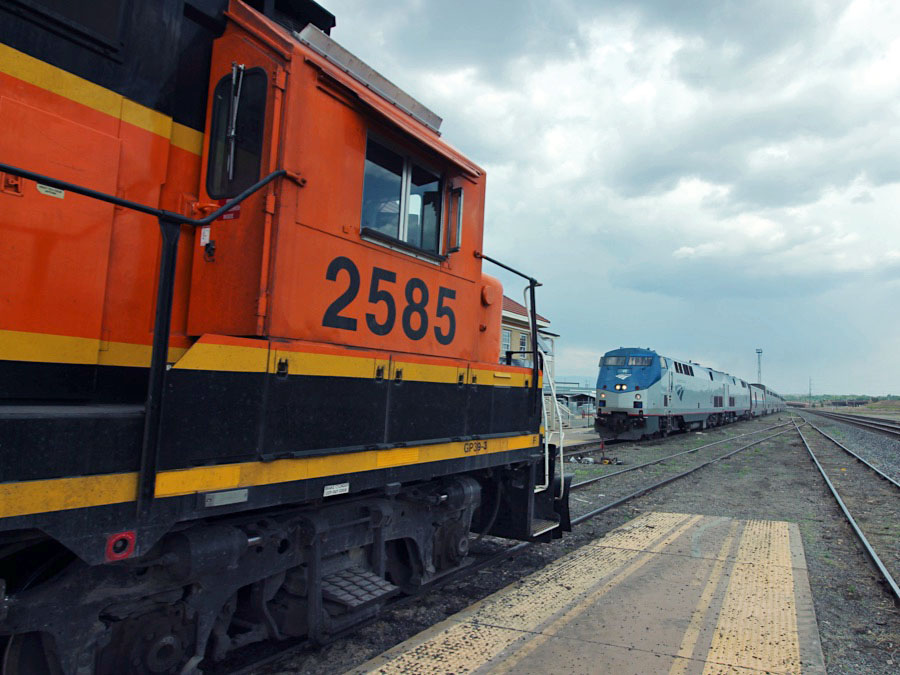
Grand Junction, Co / May 2023 / RWH
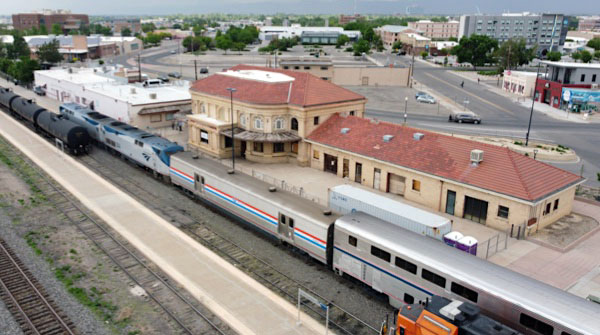
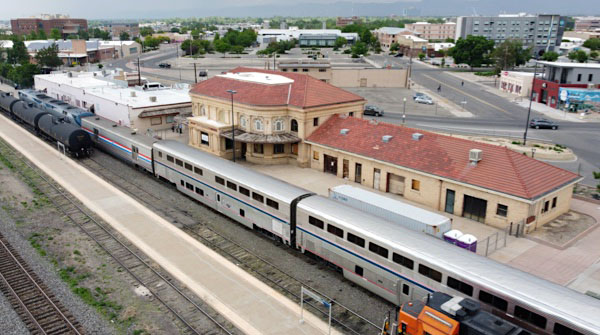
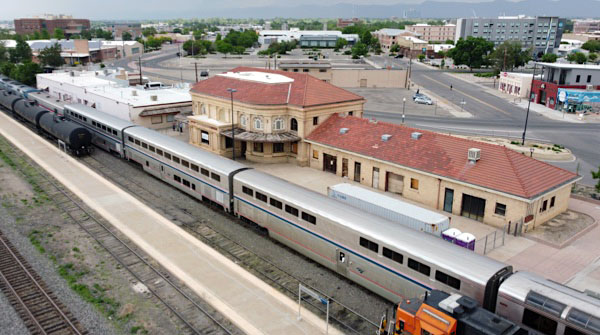
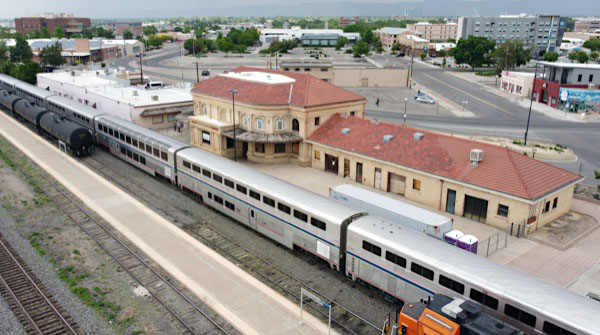
Grand Junction, Co / May 2023 / RWH
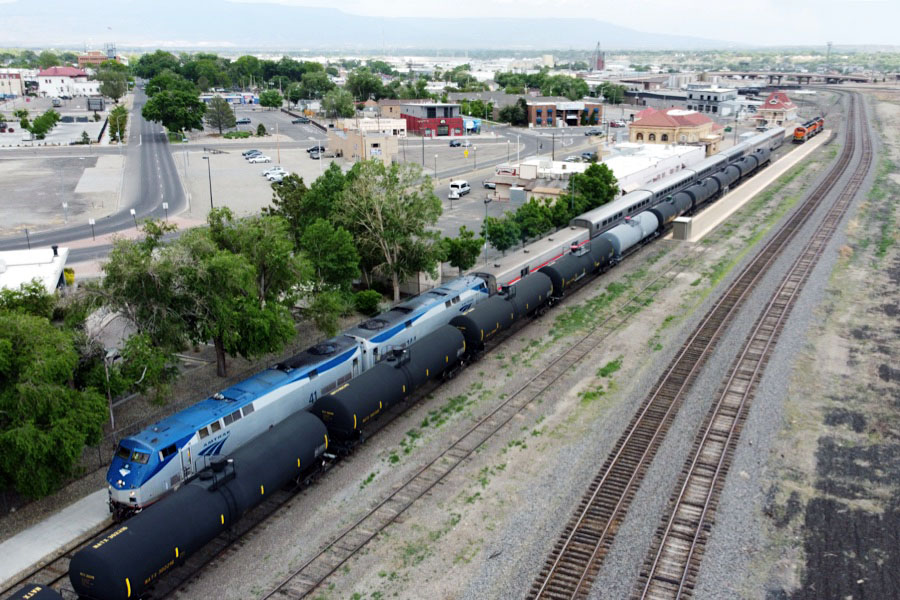
Grand Junction, Co / May 2023 / RWH
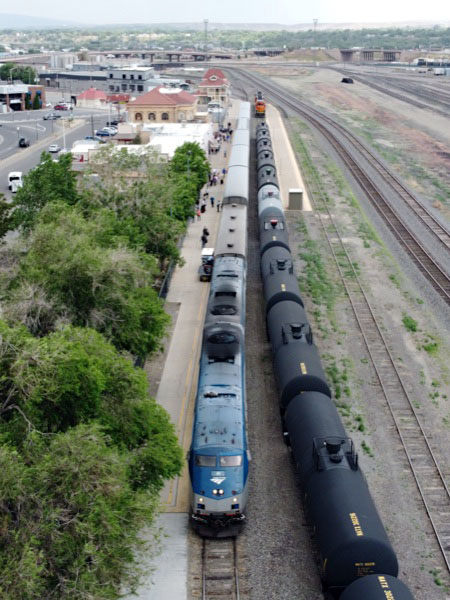
May 2023 / RWH
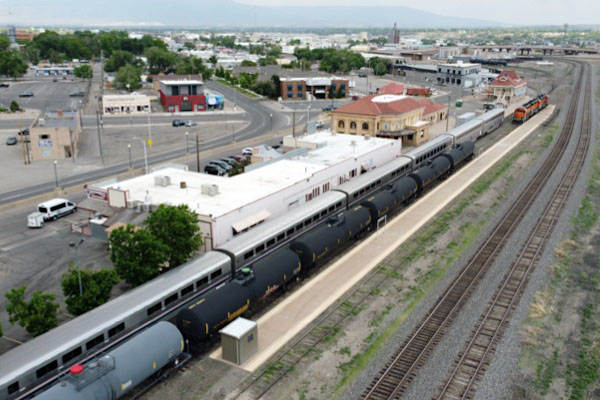
Grand Junction, Co / May 2023 / RWH
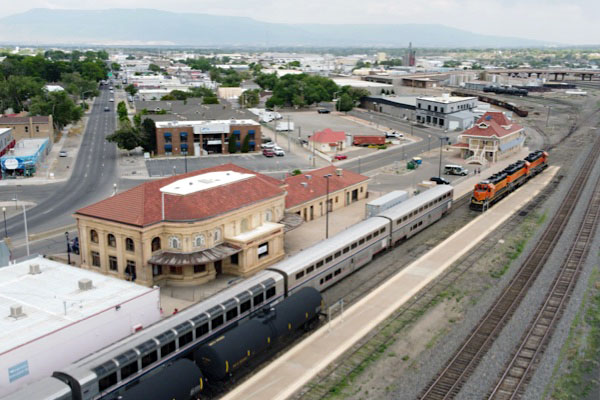
Grand Junction, Co / May 2023 / RWH
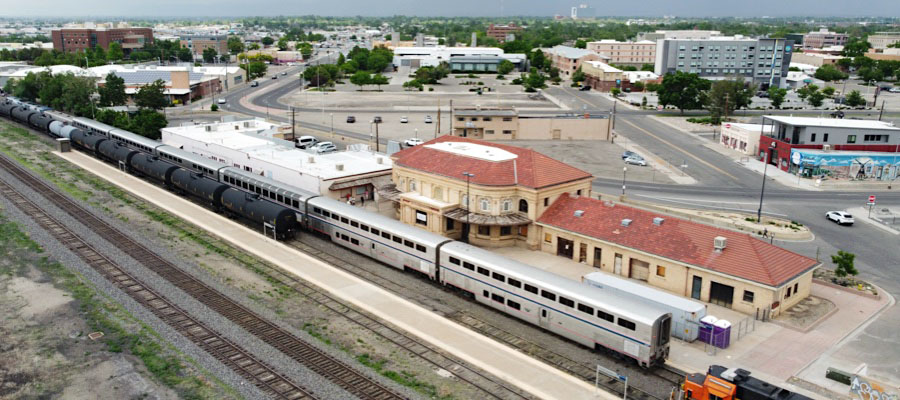
Grand Junction, Co / May 2023 / RWH
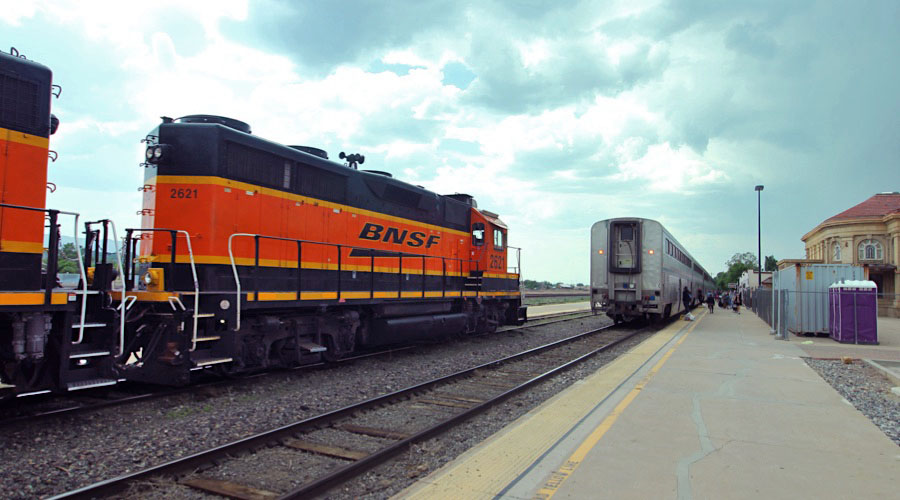
Grand Junction, Co / May 2023 / RWH
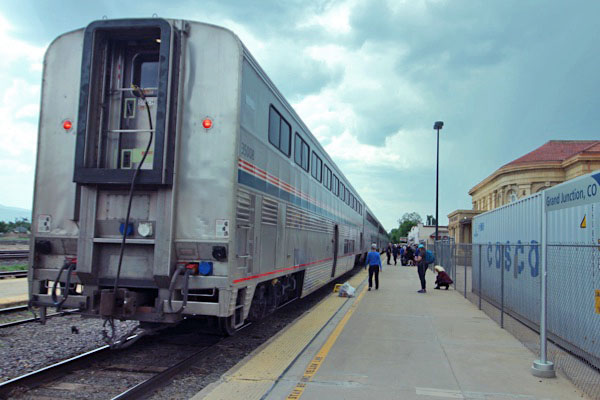
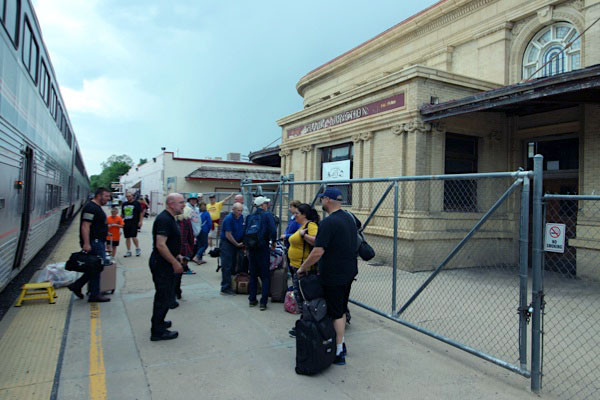
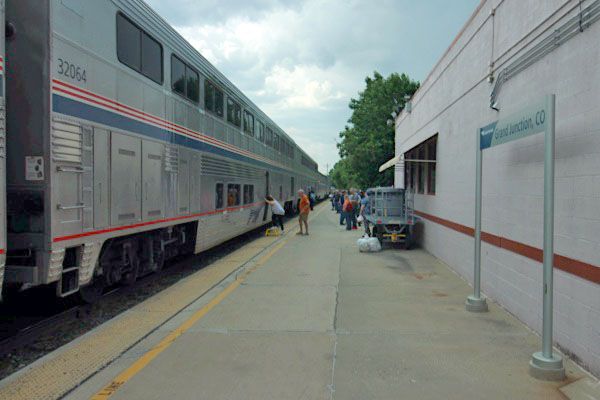
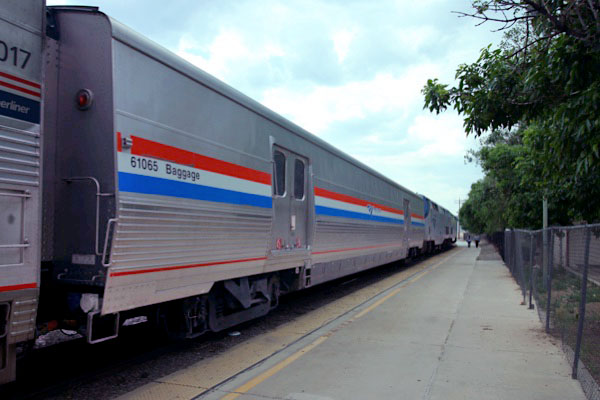
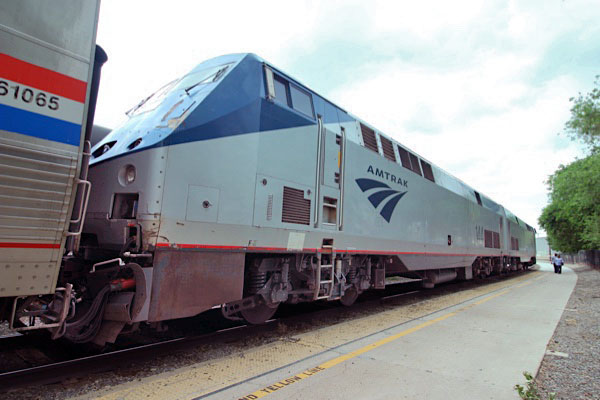
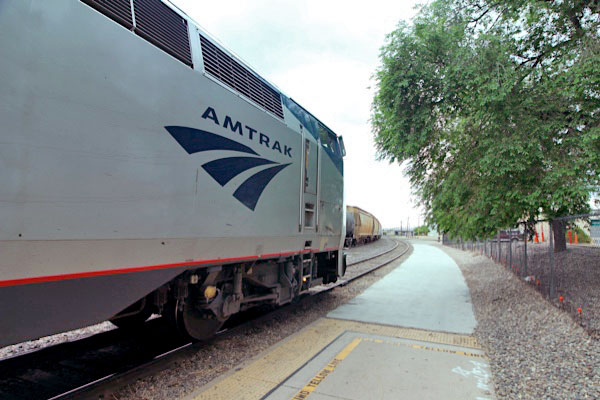
Grand Junction, Co / May 2023 / RWH
Amtrak #41
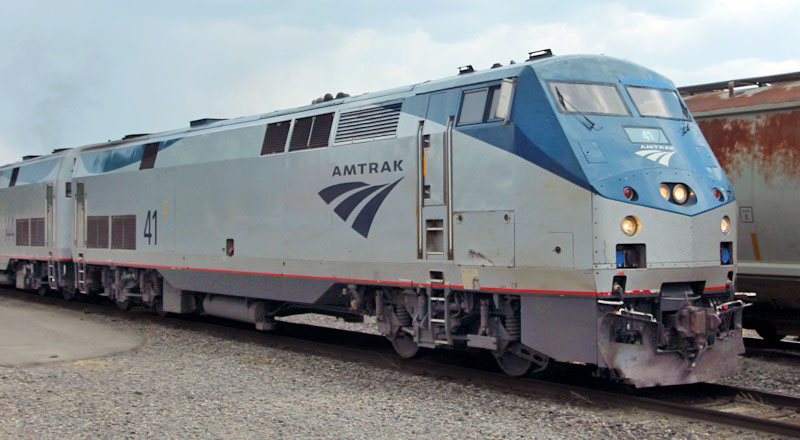
Amtrak #41
Grand Junction, Co / May 2023 / RWH


Amtrak #41

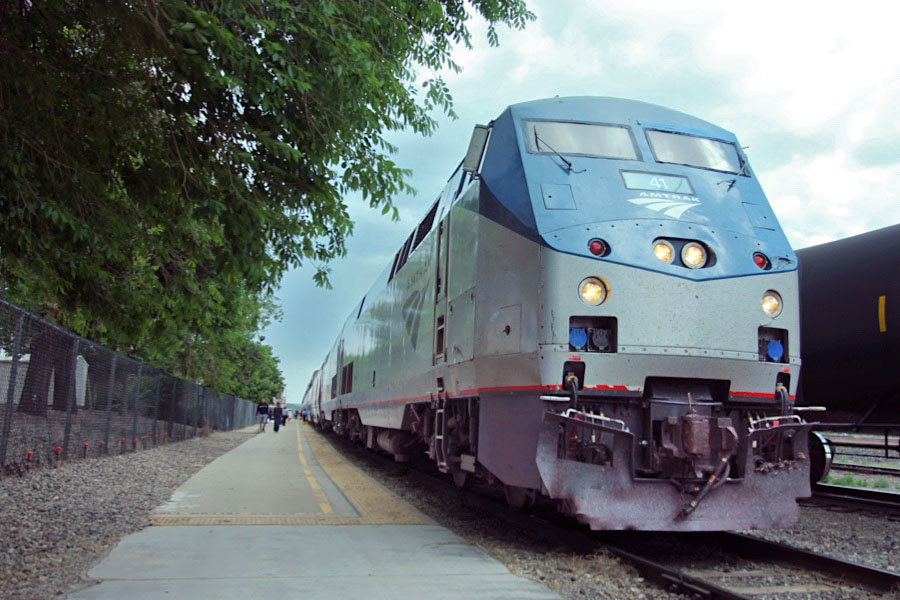
Grand Junction, Co / May 2023 / RWH
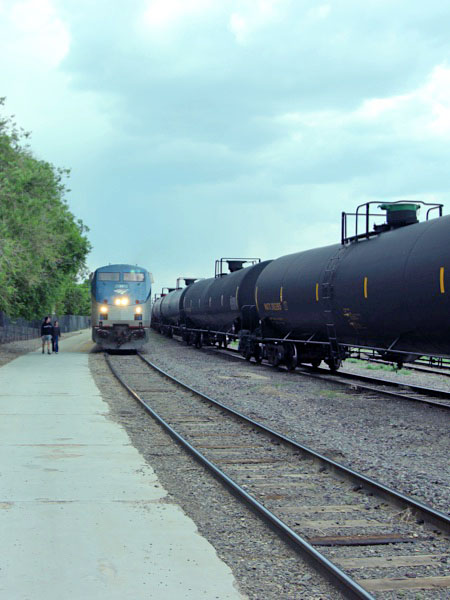
May 2023 / RWH\
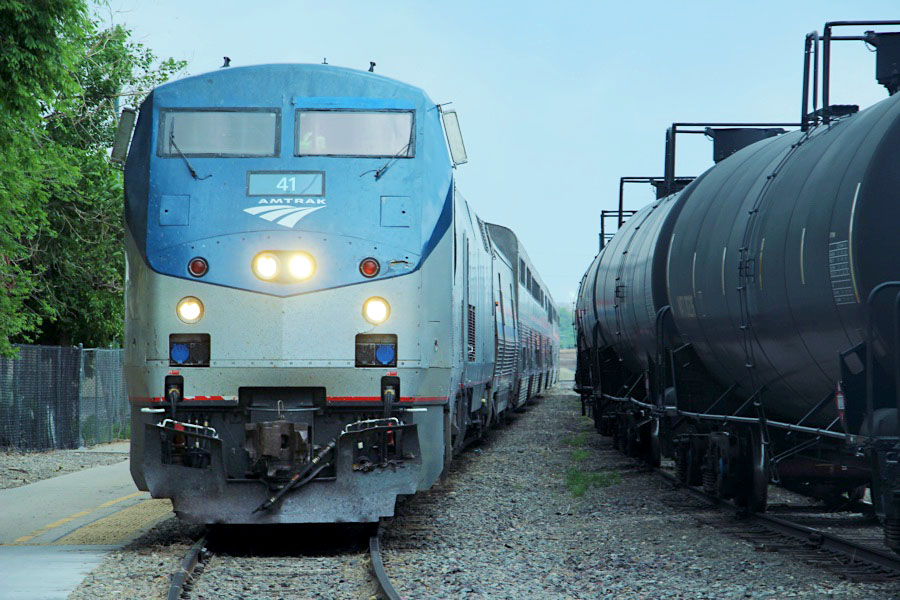
Grand Junction, Co / May 2023 / RWH
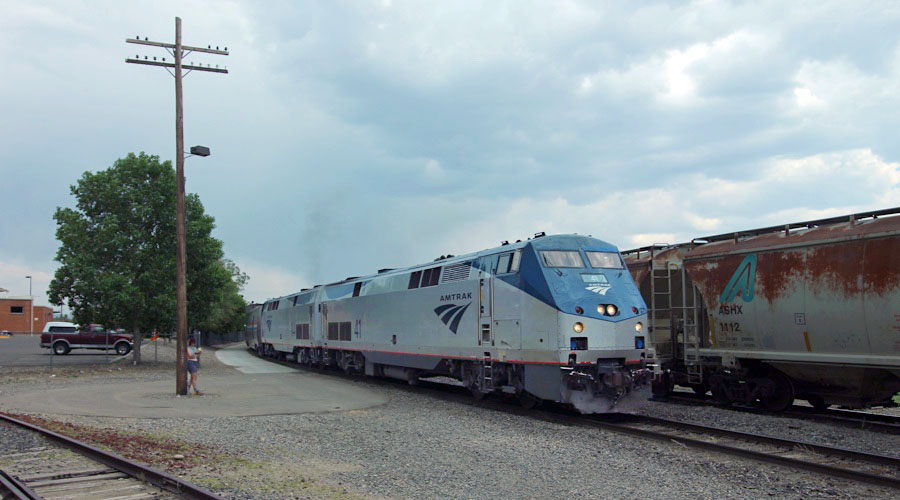
Grand Junction, Co / May 2023 / RWH
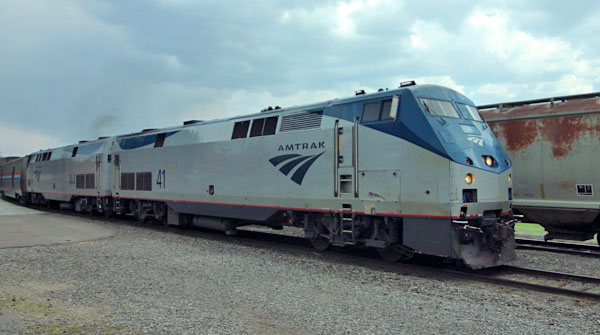
Grand Junction, Co / May 2023 / RWH
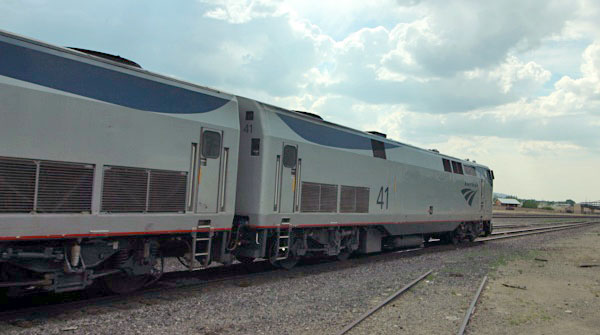
Grand Junction, Co / May 2023 / RWH
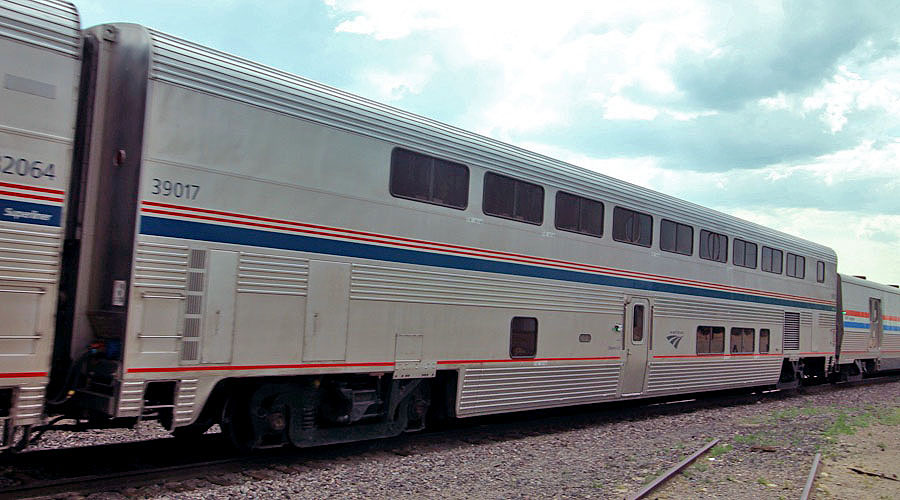
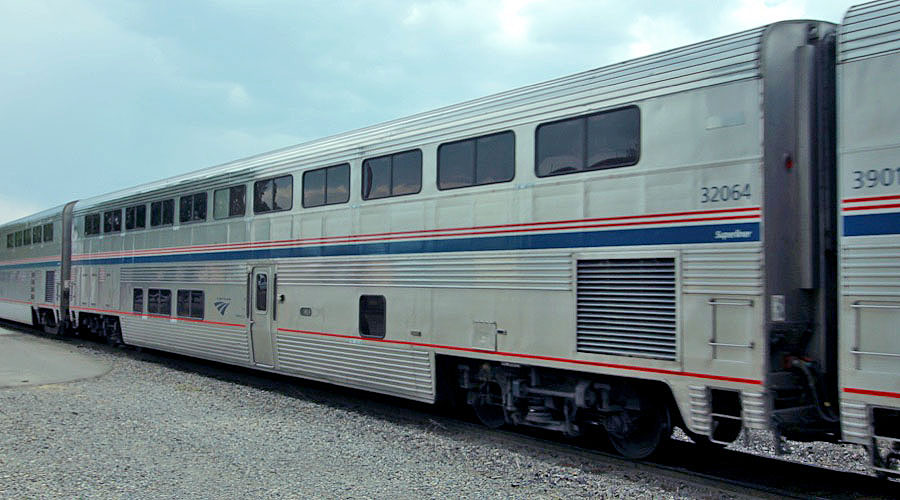
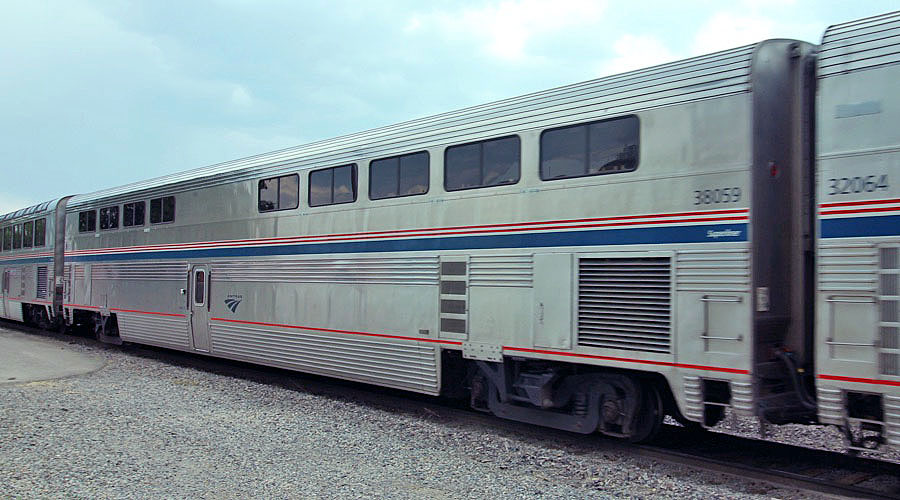
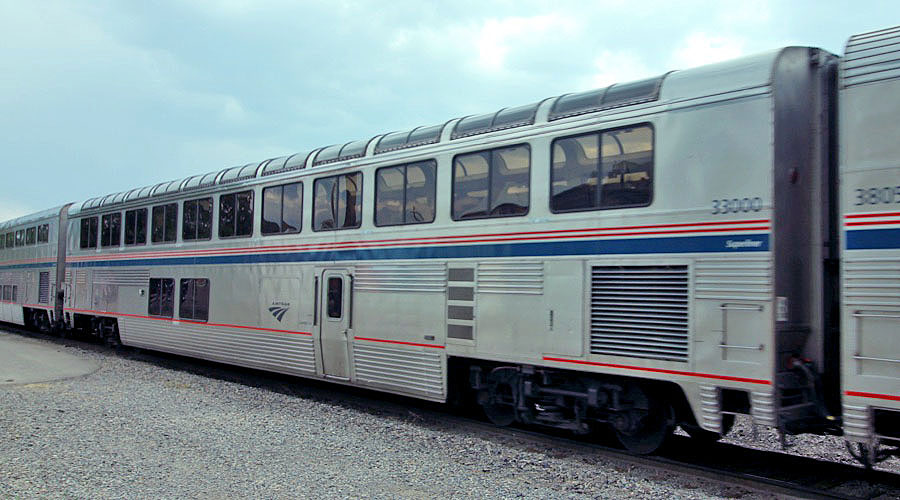
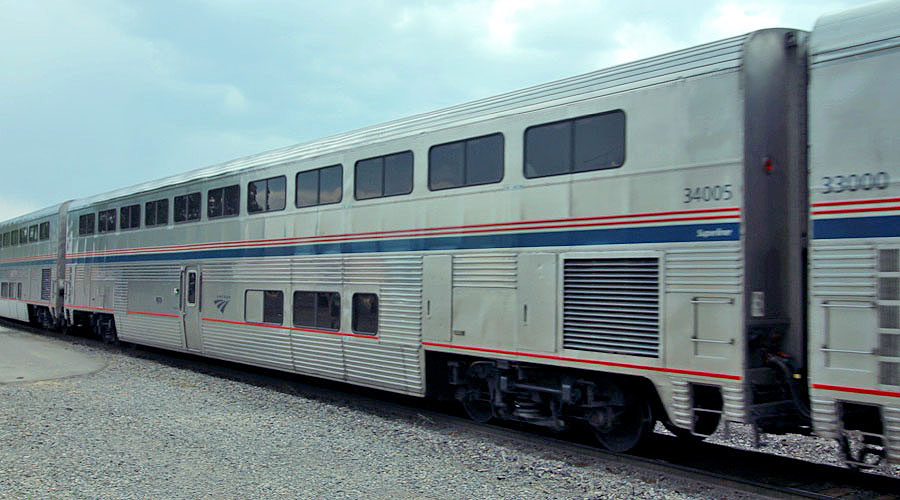
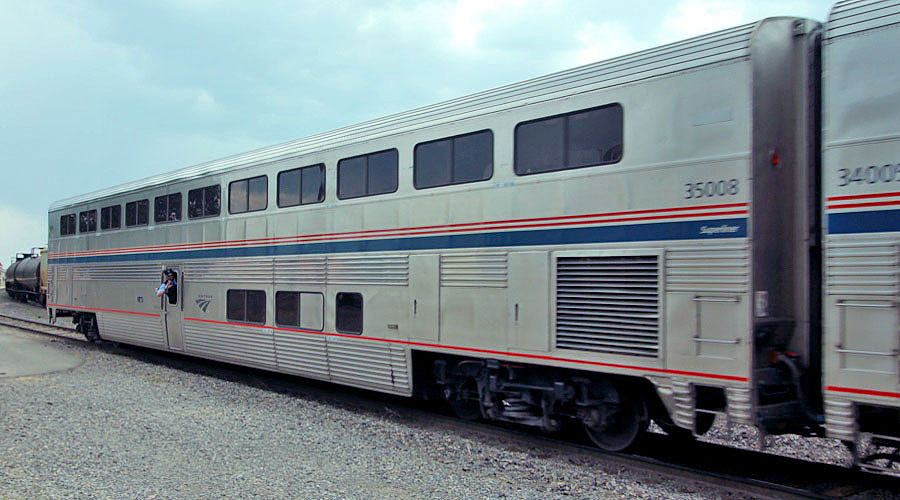
Grand Junction, Co / May 2023 / RWH
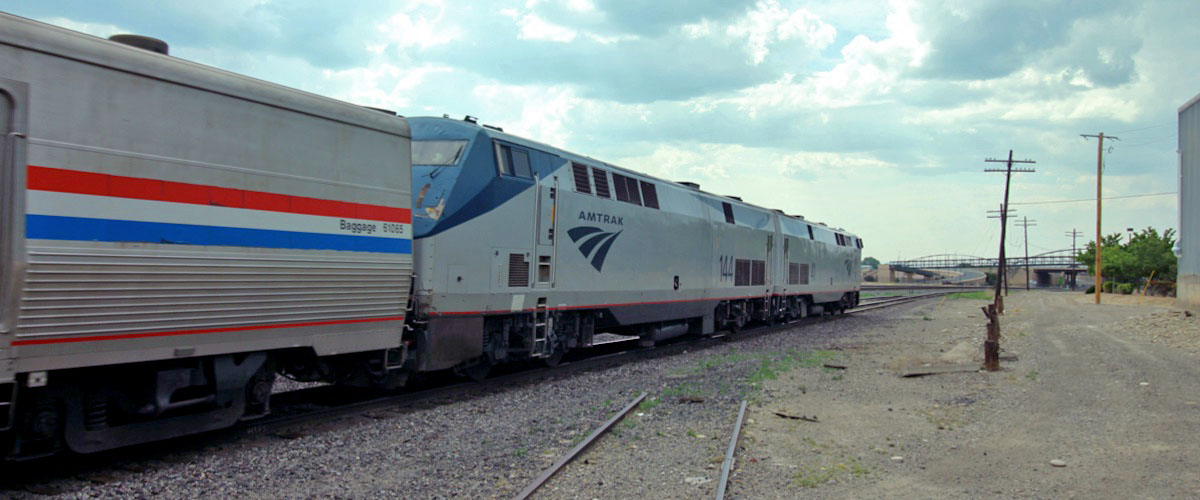
Grand Junction, Co / May 2023 / RWH
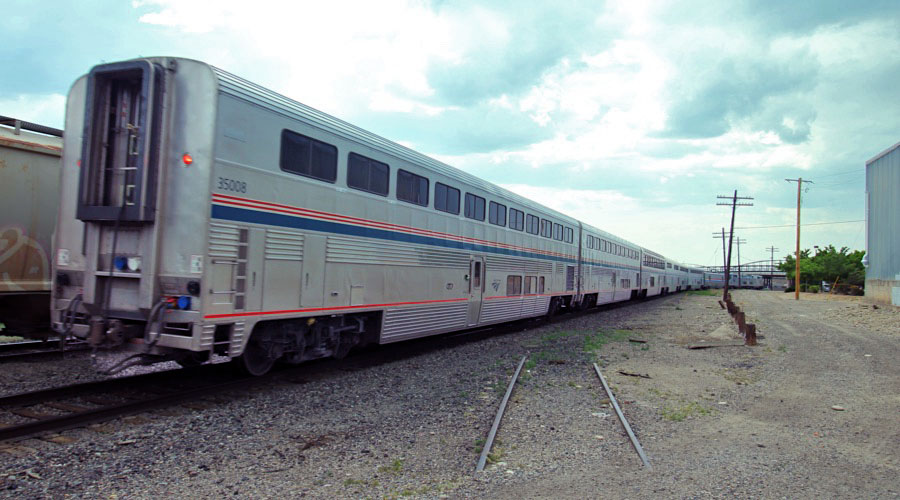
Grand Junction, Co / May 2023 / RWH

eastbound #6
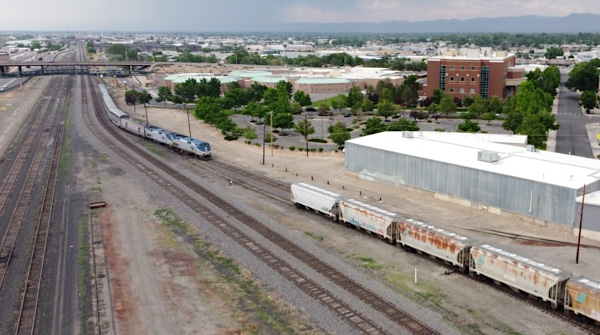
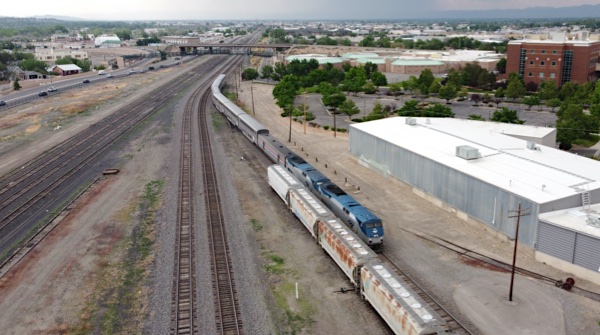
Grand Junction, Co / May 2023 / RWH
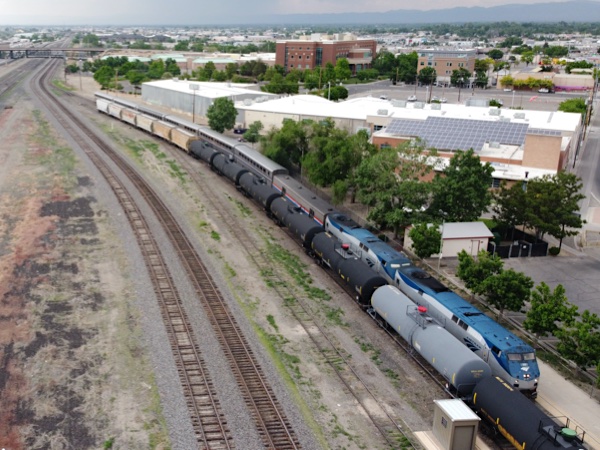
Grand Junction, Co / May 2023 / RWH
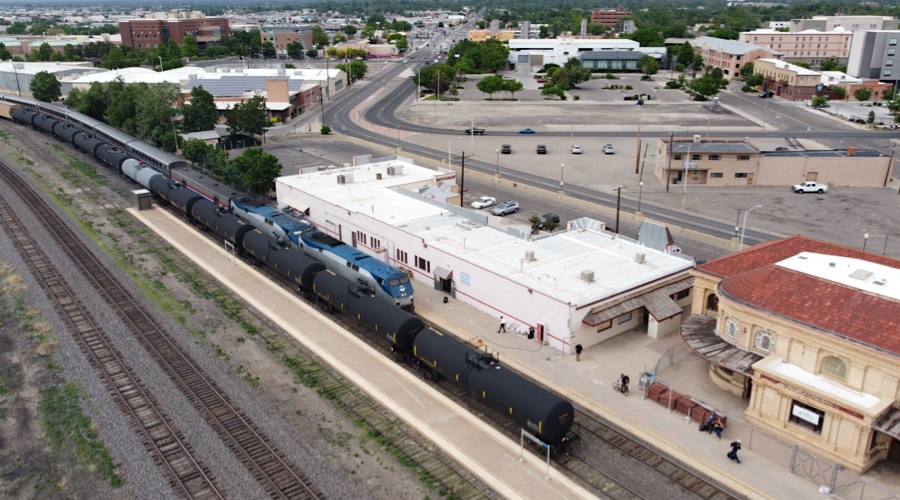
Grand Junction, Co / May 2023 / RWH
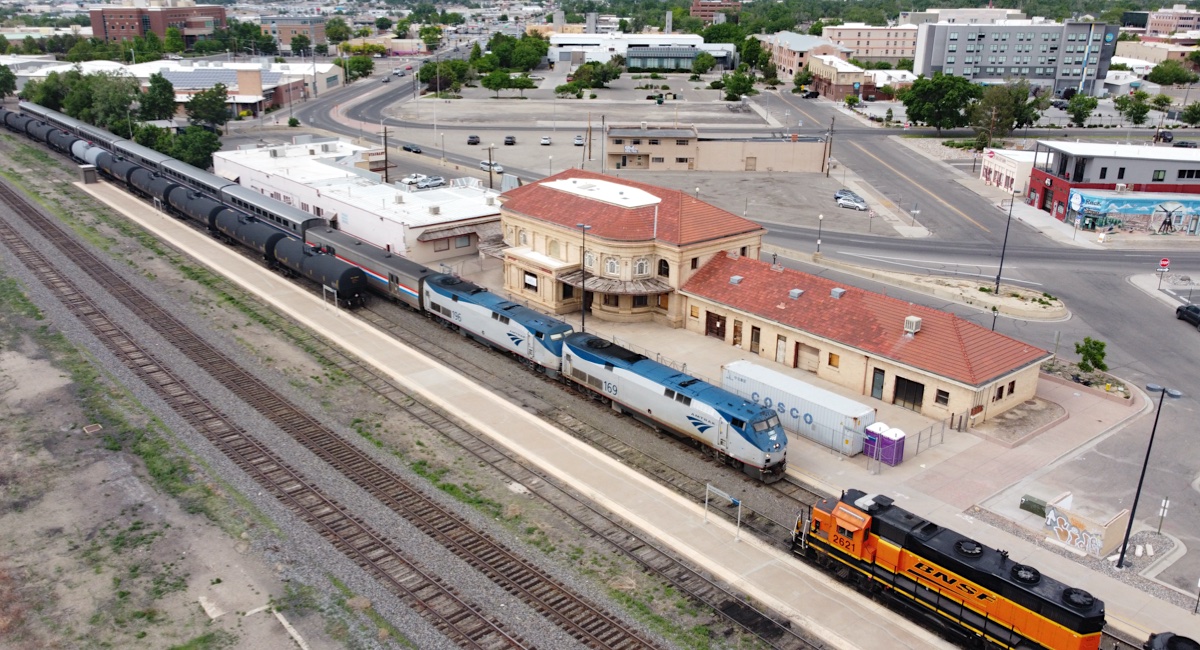
Grand Junction, Co / May 2023 / RWH
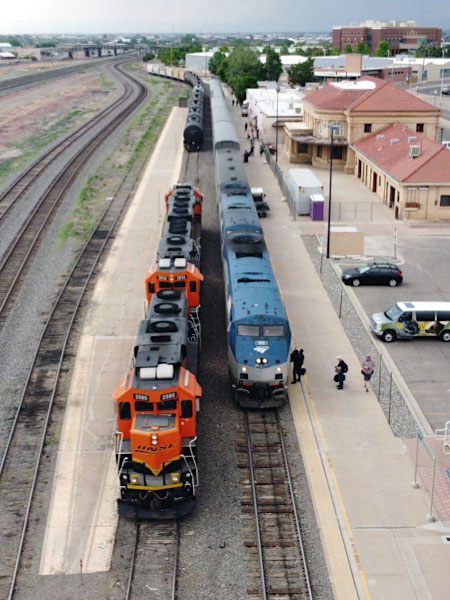
May 2023 / RWH
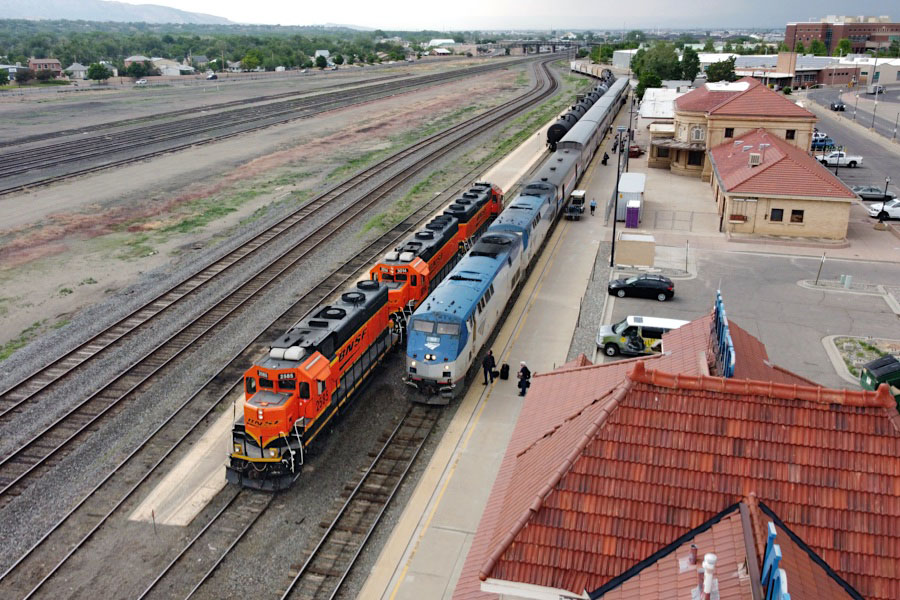
Grand Junction, Co / May 2023 / RWH
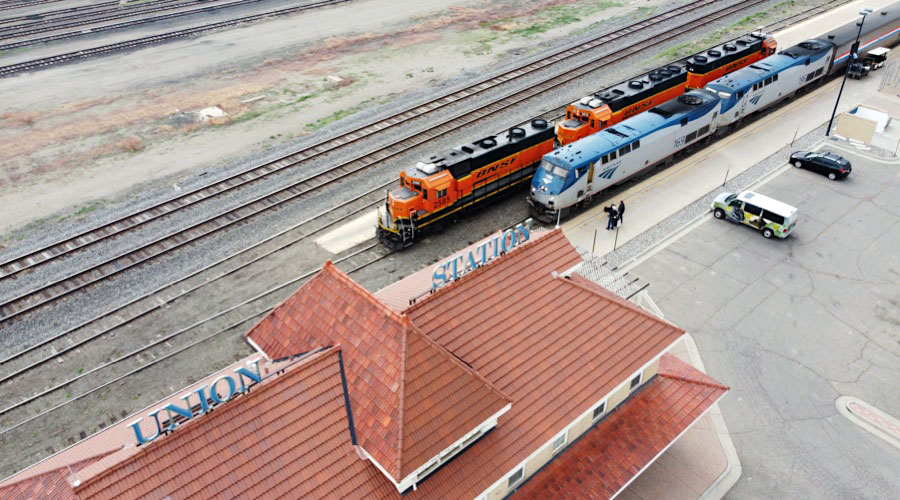
Grand Junction, Co / May 2023 / RWH
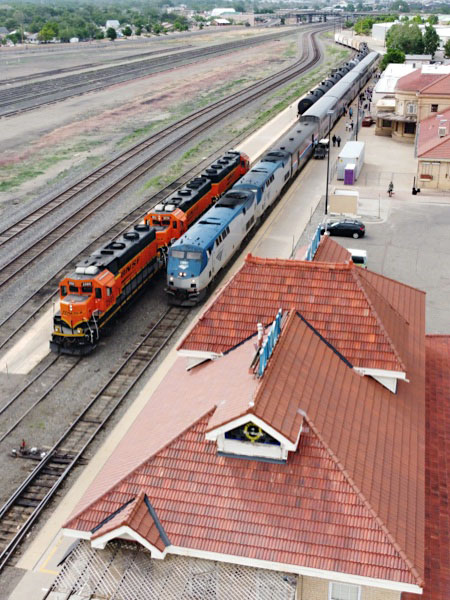
May 2023 / RWH
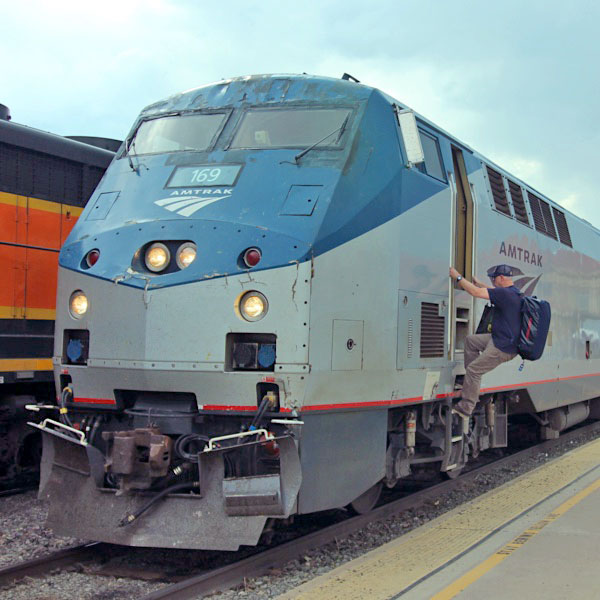
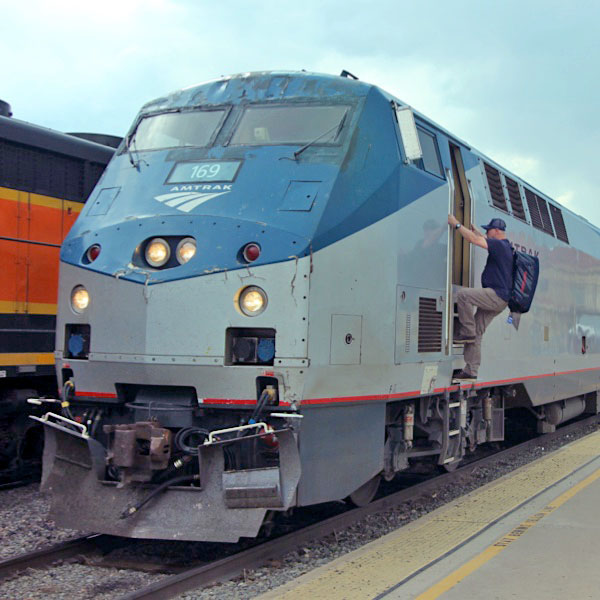
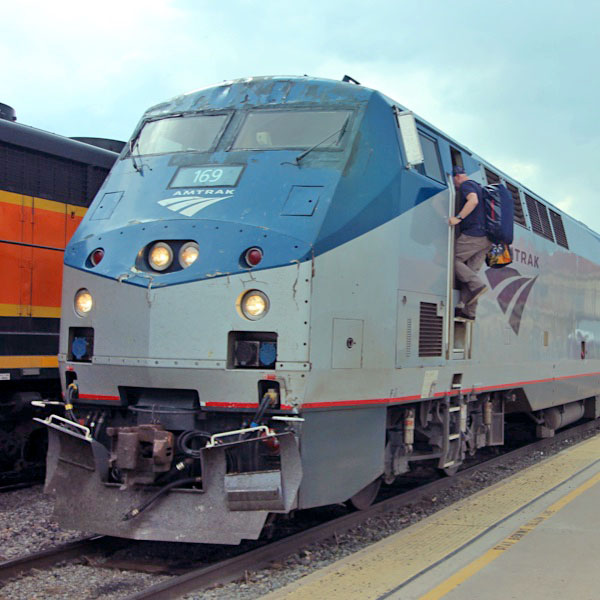
Grand Junction, Co / May 2023 / RWH
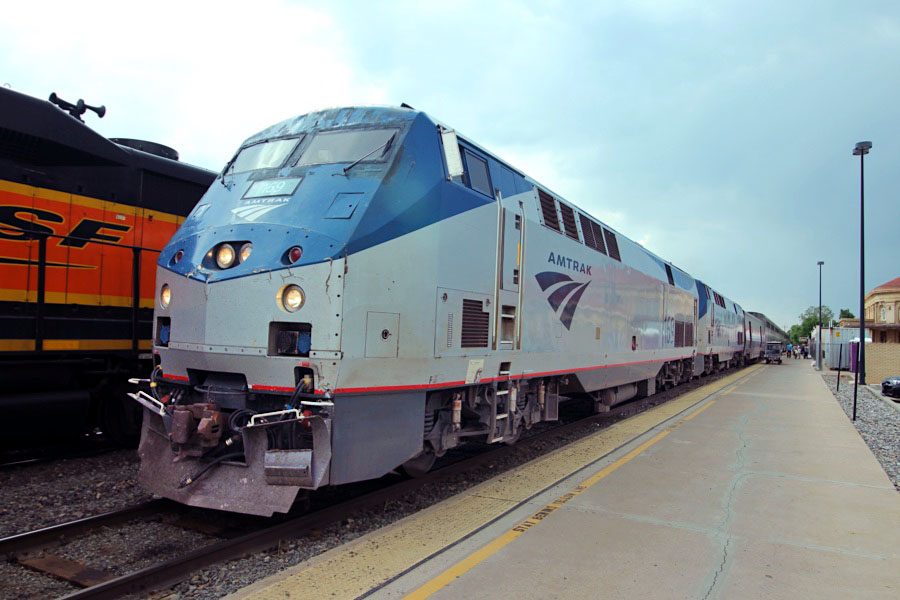
Grand Junction, Co / May 2023 / RWH
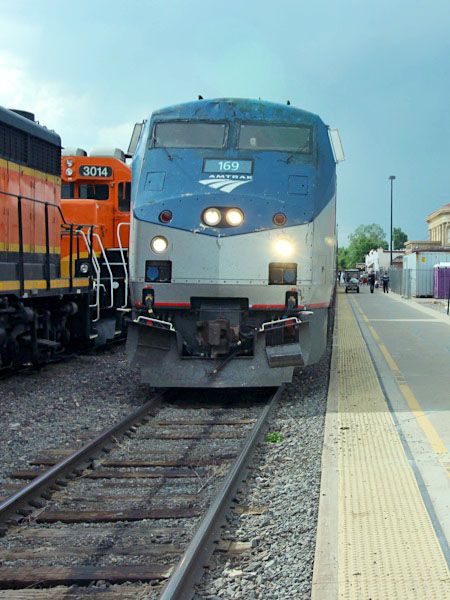
May 2023 / RWH
Amtrak #169
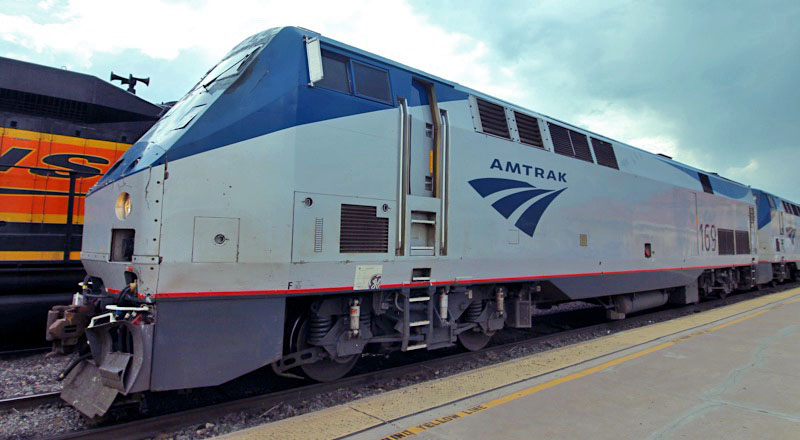
Amtrak #169
Grand Junction, Co / May 2023 / RWH


Amtrak #169

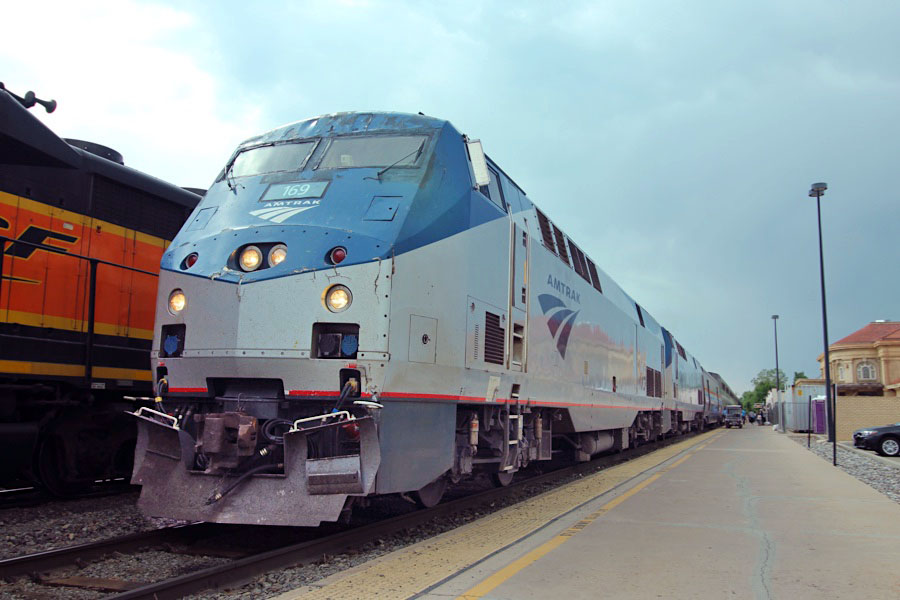
Grand Junction, Co / May 2023 / RWH
Amtrak #196
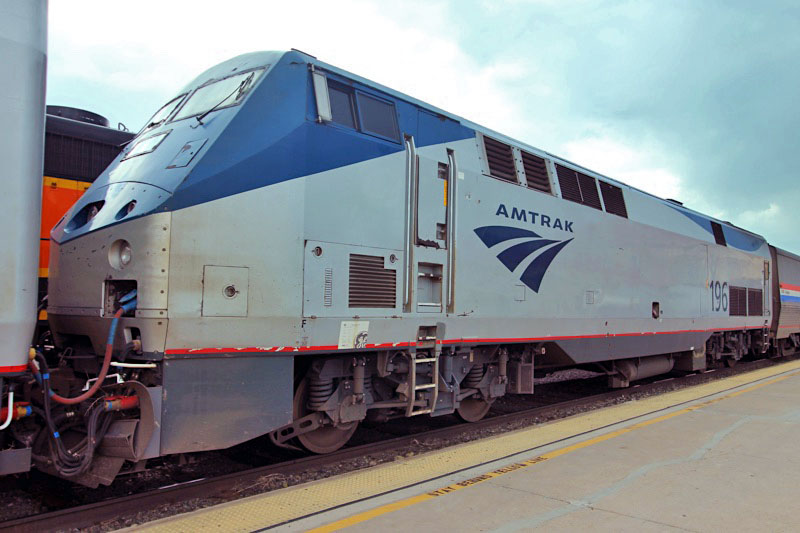
Amtrak #196
Grand Junction, Co / May 2023 / RWH


Amtrak #196

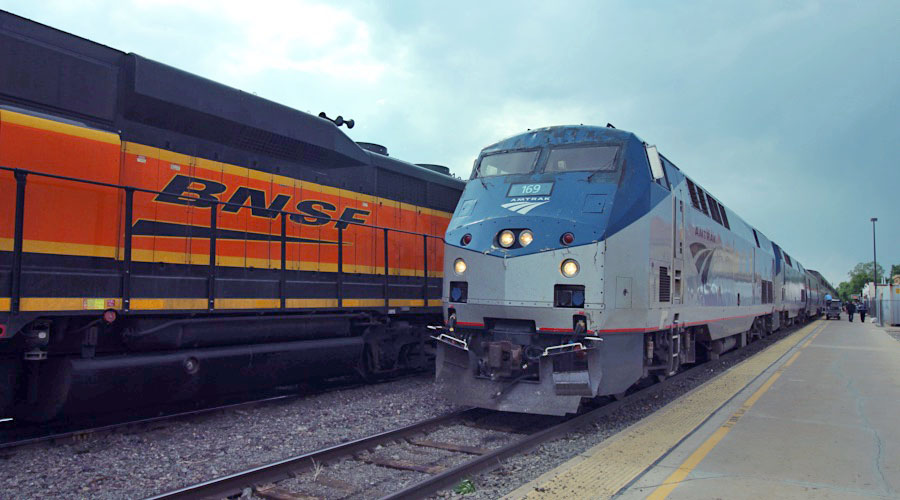
Grand Junction, Co / May 2023 / RWH
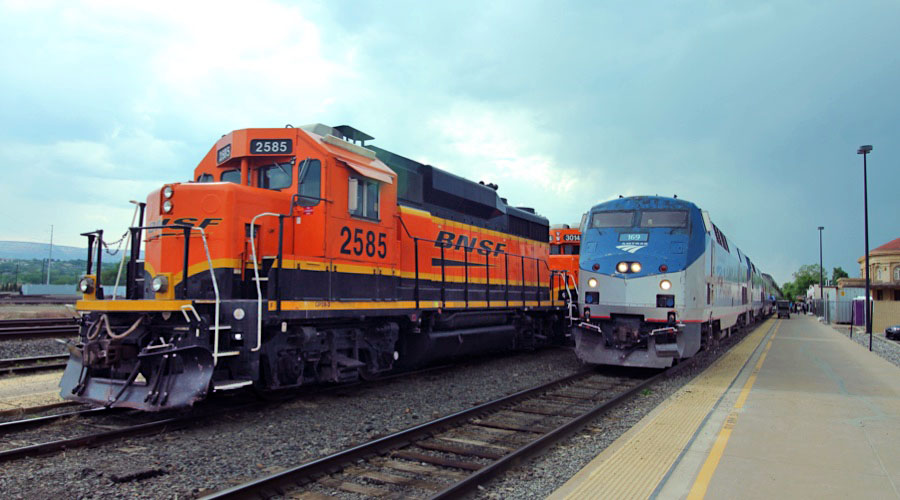
Grand Junction, Co / May 2023 / RWH
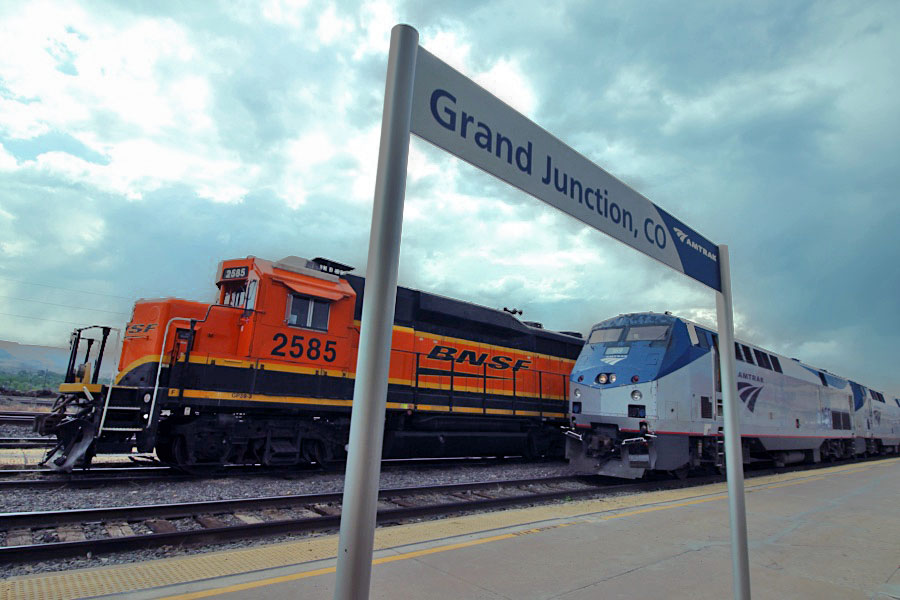
Grand Junction, Co / May 2023 / RWH
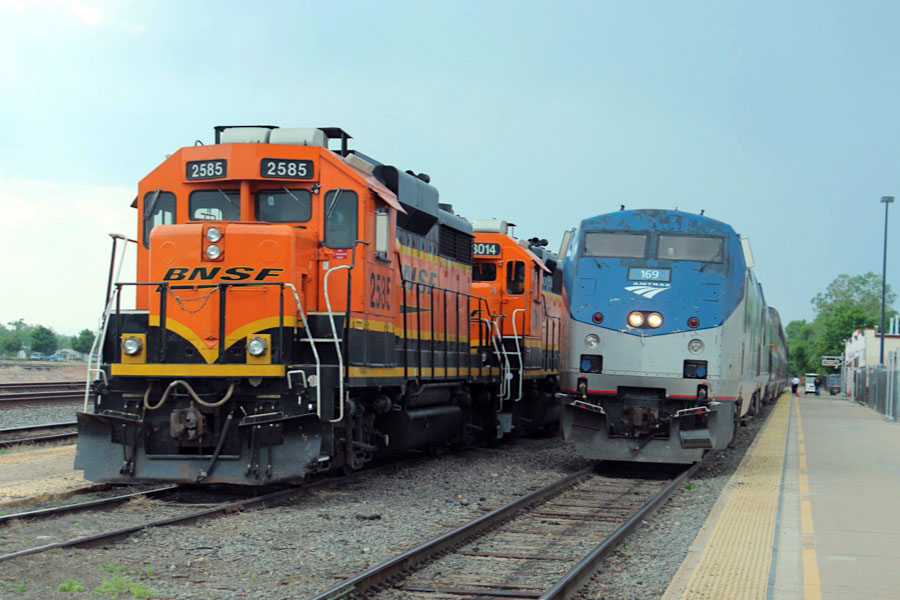
Grand Junction, Co / May 2023 / RWH
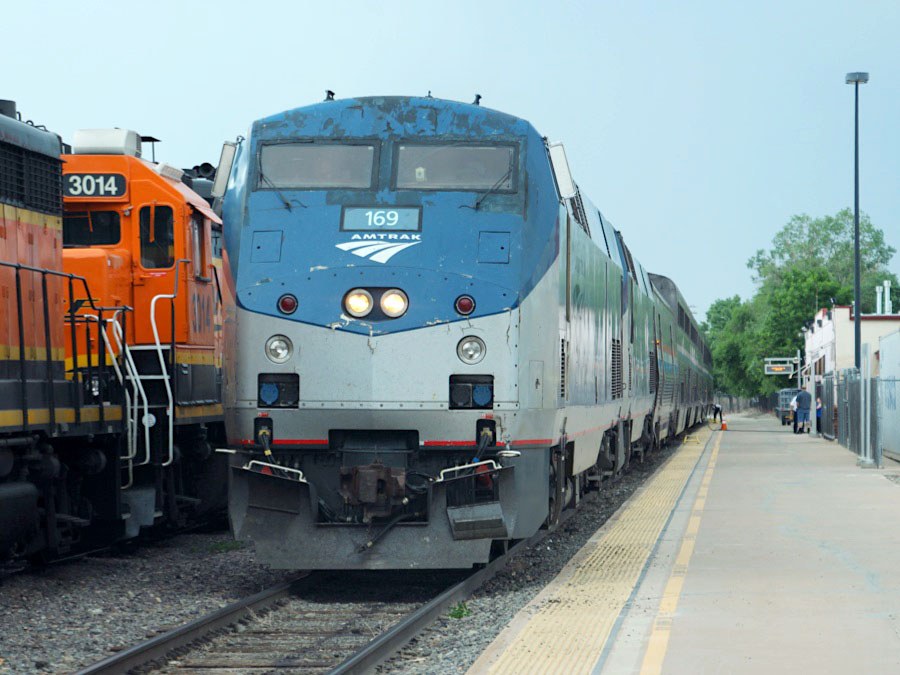
Grand Junction, Co / May 2023 / RWH
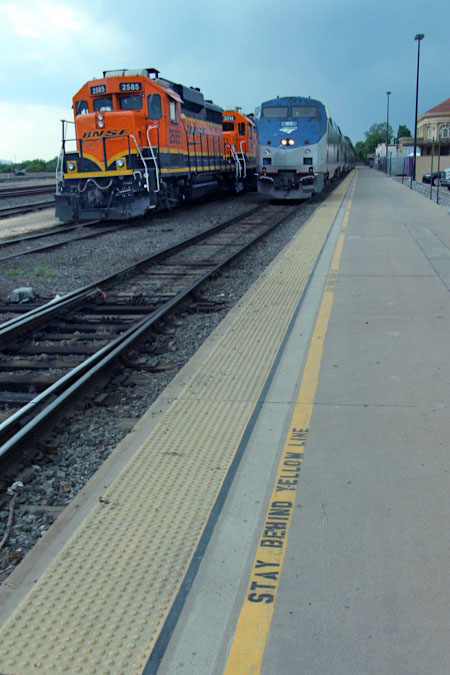
May 2023 / RWH
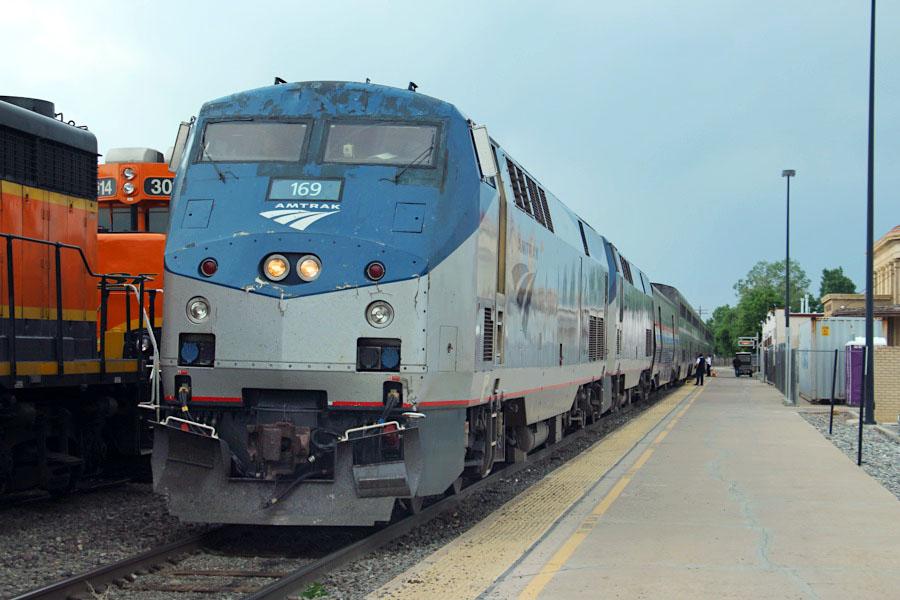
Grand Junction, Co / May 2023 / RWH
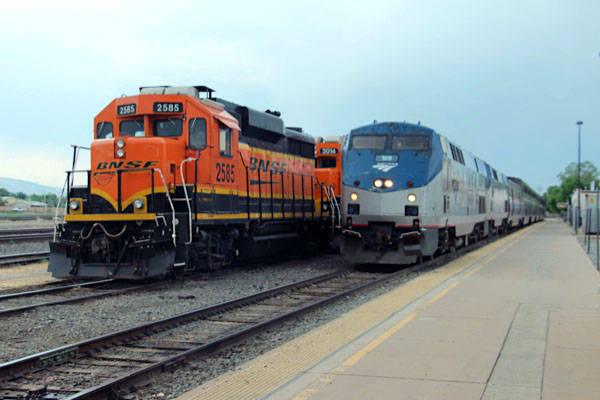
Grand Junction, Co / May 2023 / RWH
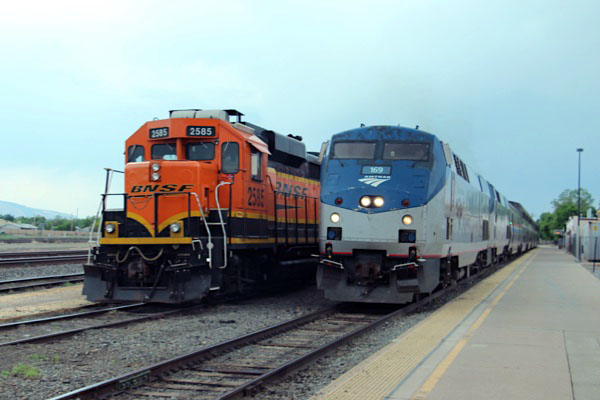
Grand Junction, Co / May 2023 / RWH
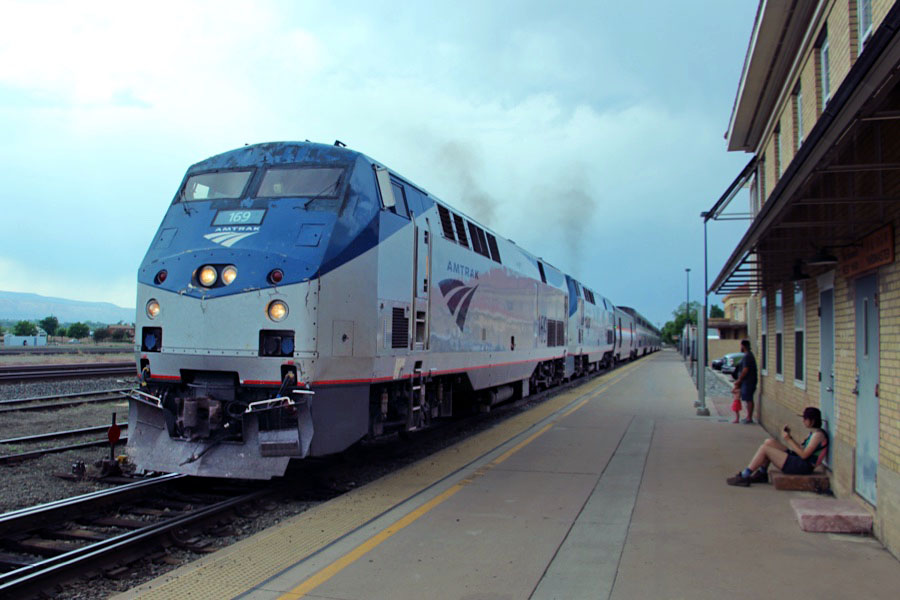
Grand Junction, Co / May 2023 / RWH
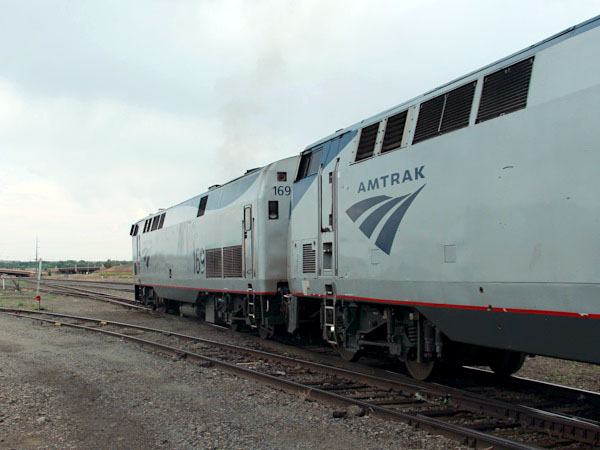
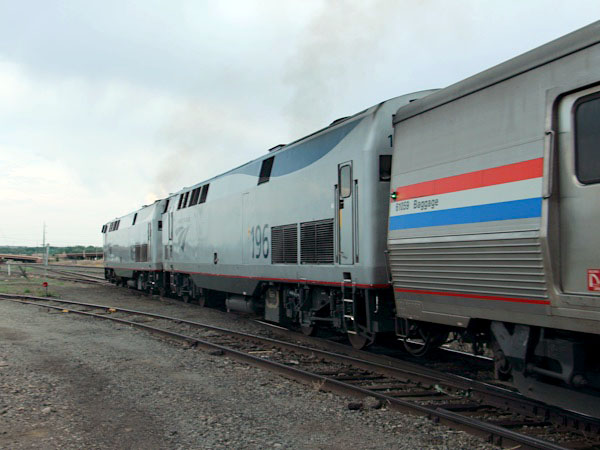
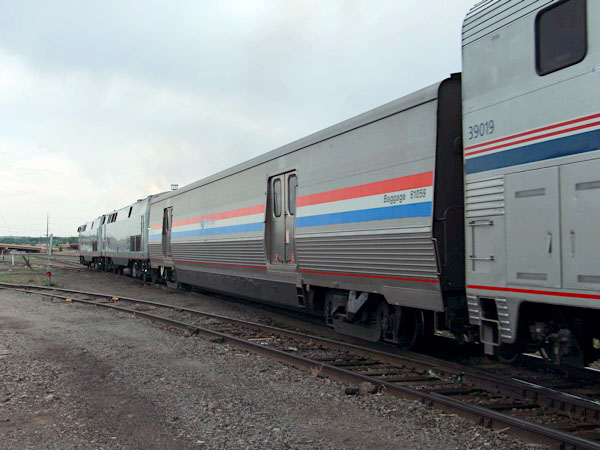
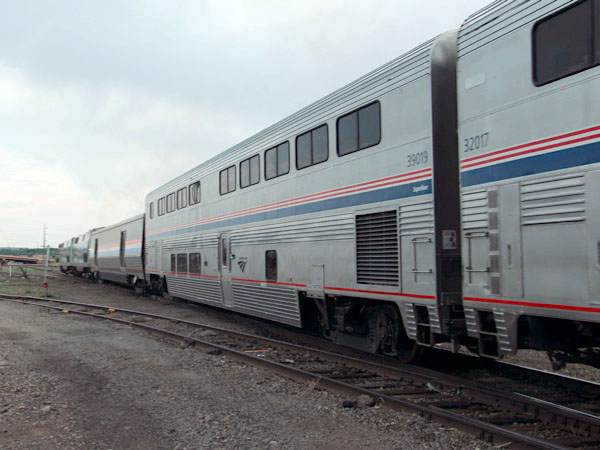
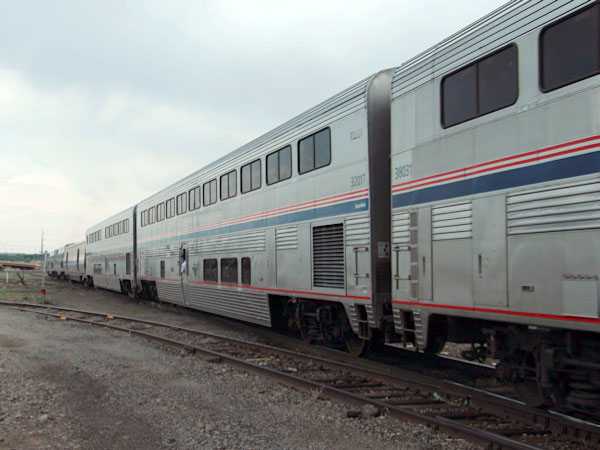
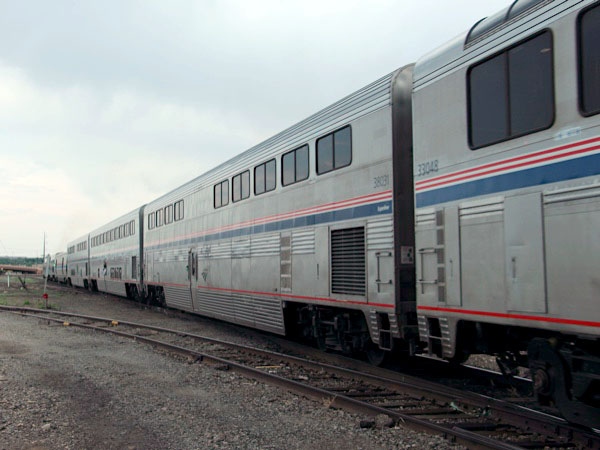
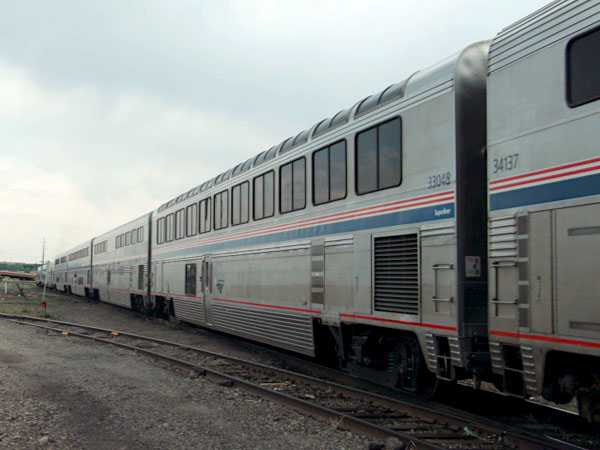
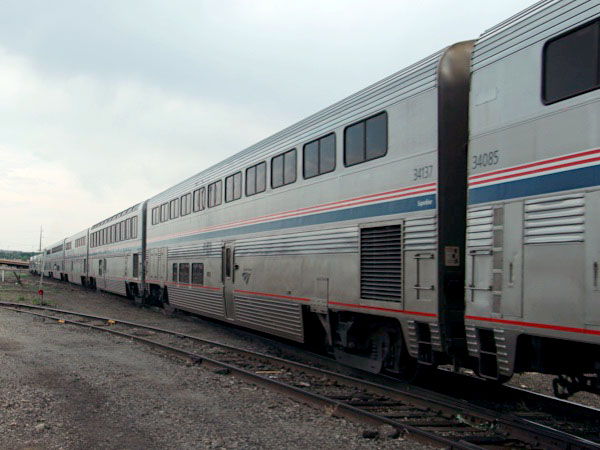
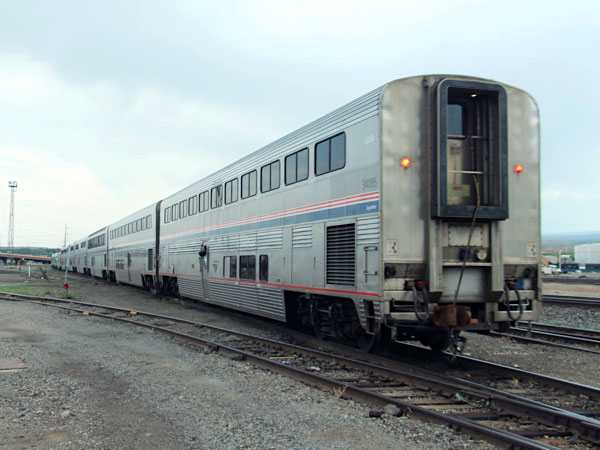
Grand Junction, Co / May 2023 / RWH
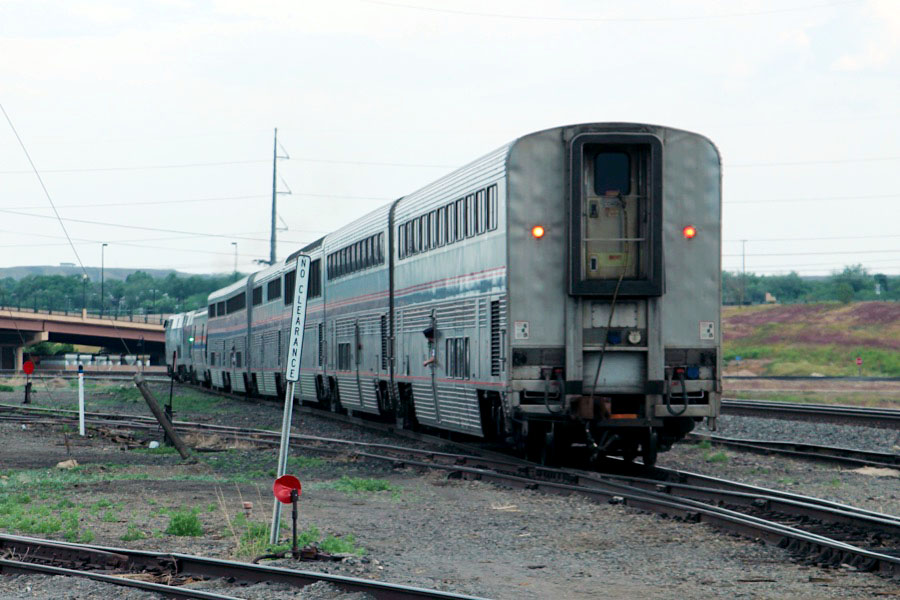
Grand Junction, Co / May 2023 / RWH

westbound #5
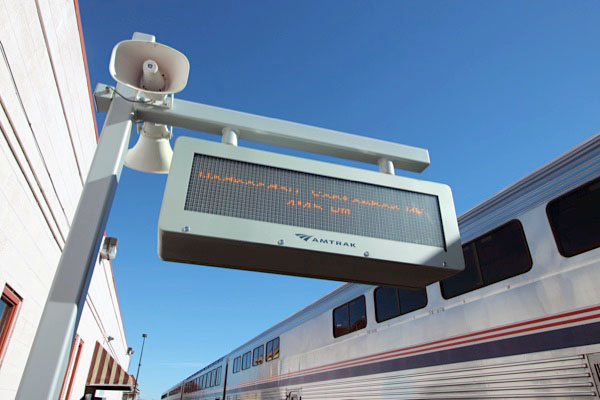
Grand Junction, Co / Sep 2023 / RWH
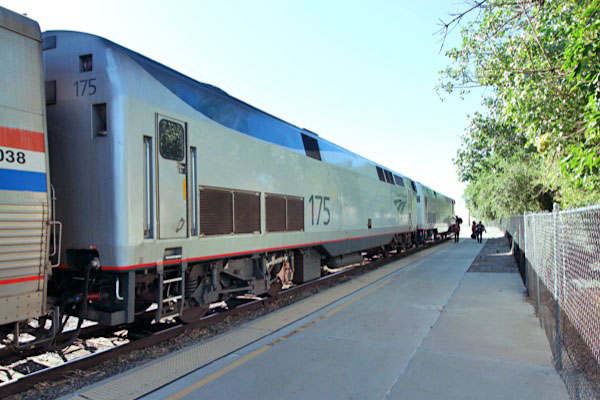
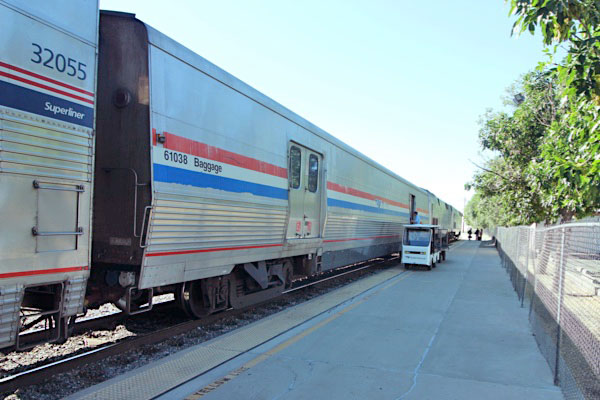
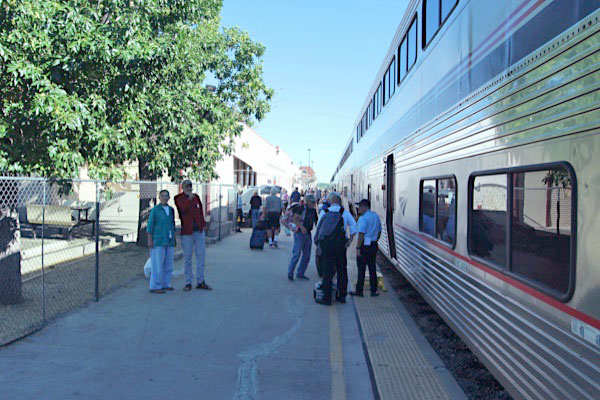
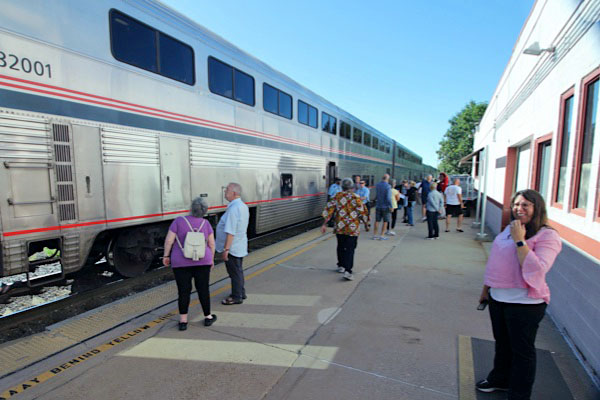
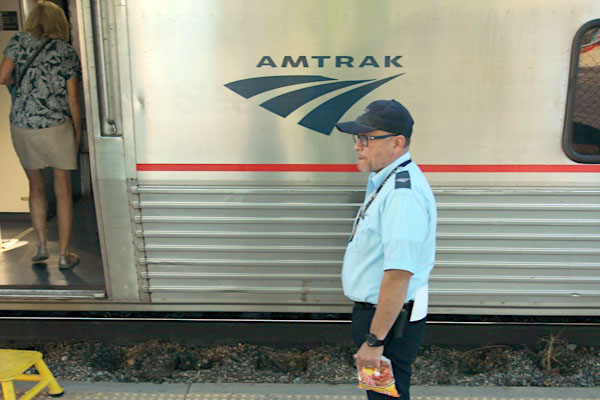
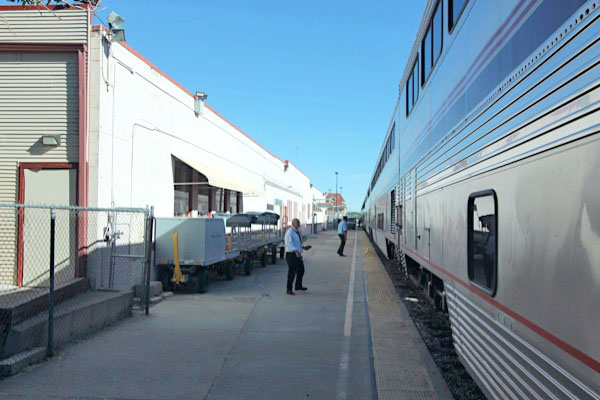
Grand Junction, Co / Sep 2023 / RWH
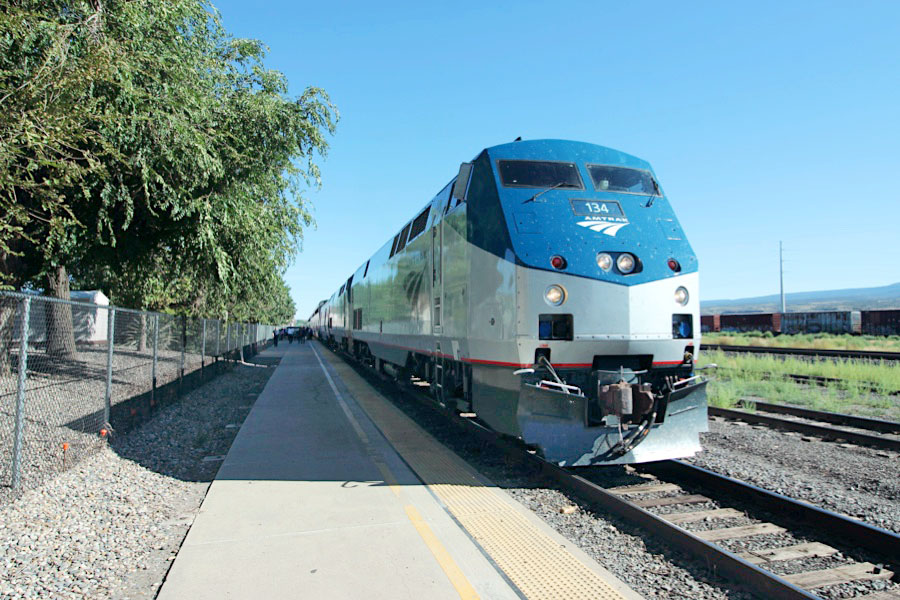
Grand Junction, Co / Sep 2023 / RWH
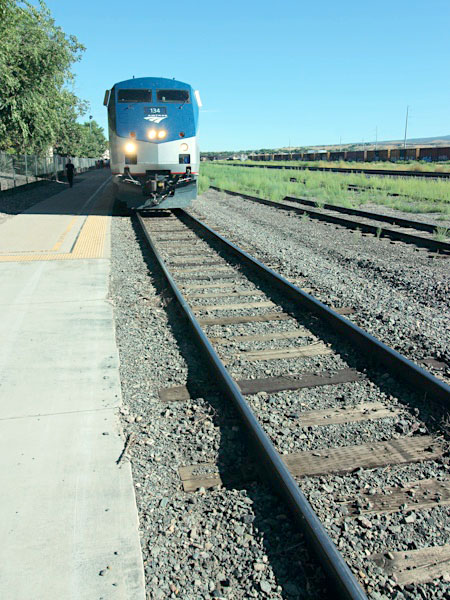
Sep 2023 / RWH
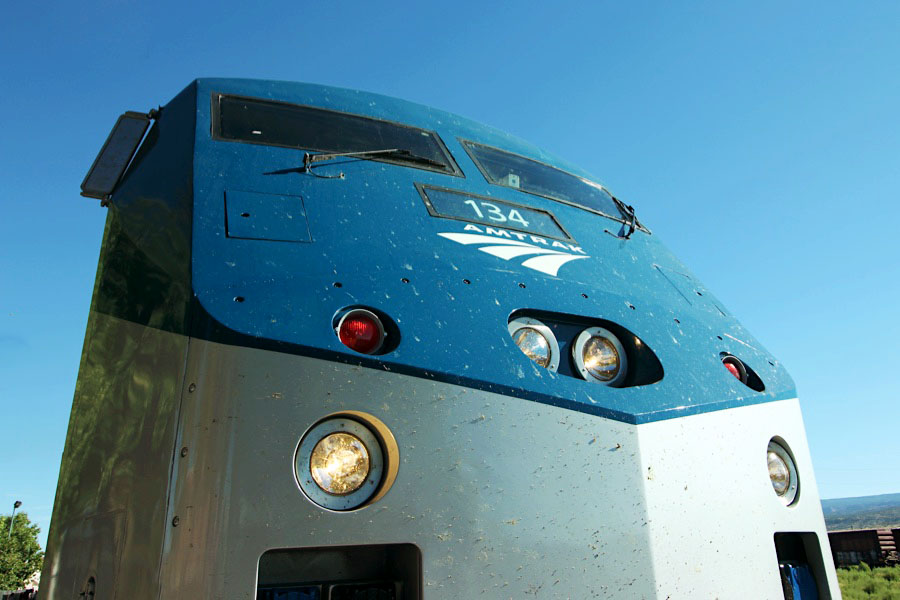
Sep 2023 / RWH
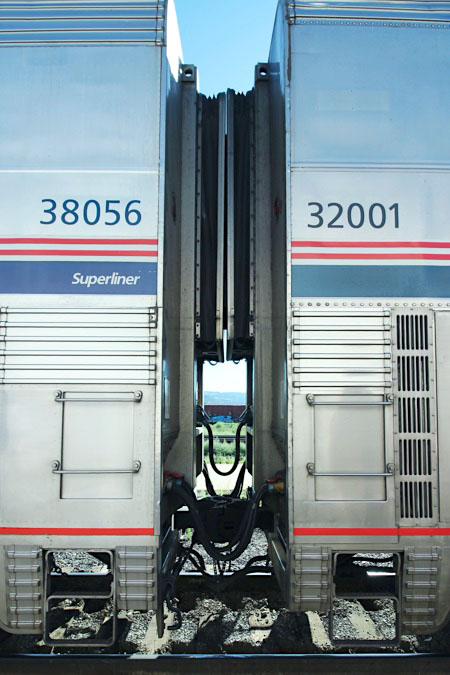
Sep 2023 / RWH
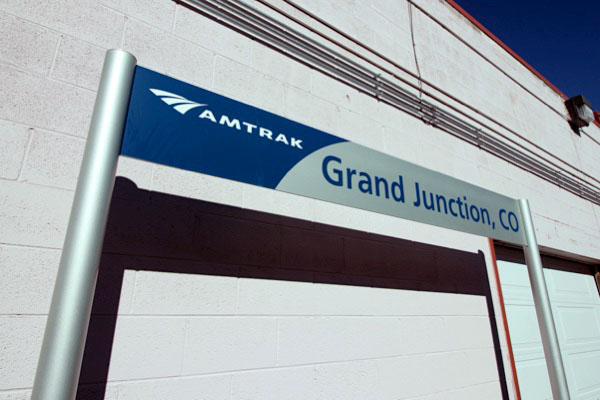
Sep 2023 / RWH
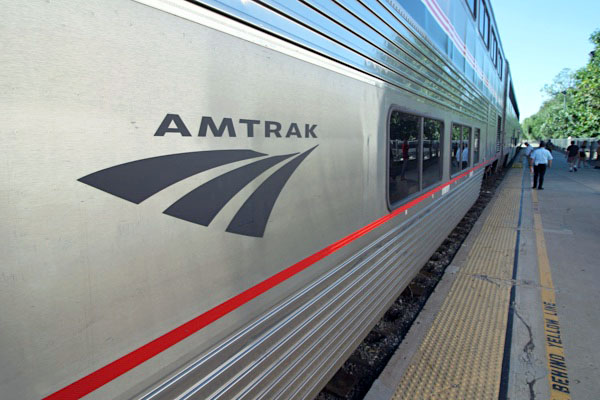
Sep 2023 / RWH
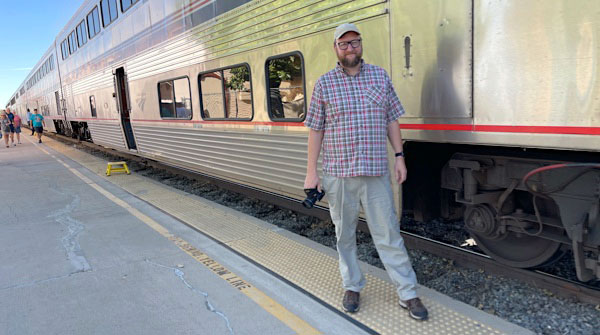
Grand Junction, Co / Sep 2023 / RWH
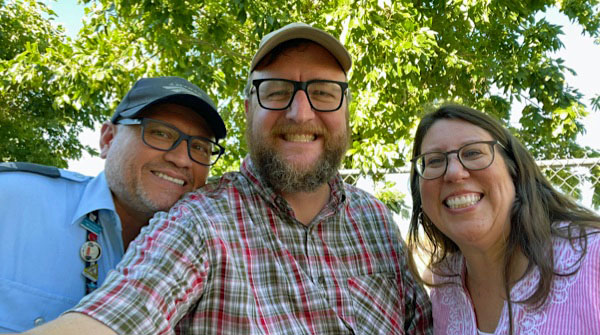
Grand Junction, Co / Sep 2023 / RWH

eastbound #6
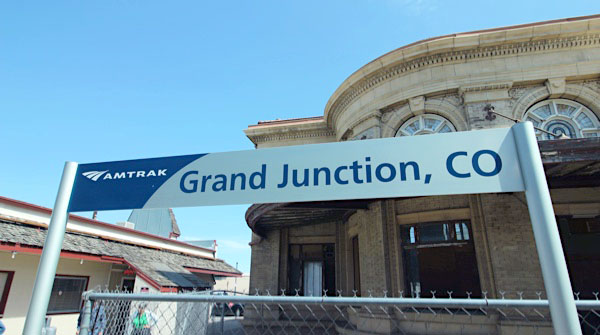
Sep 2023 / RWH
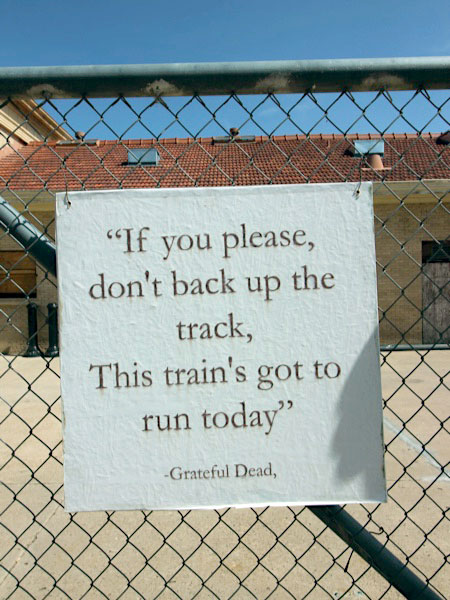
Sep 2023 / RWH
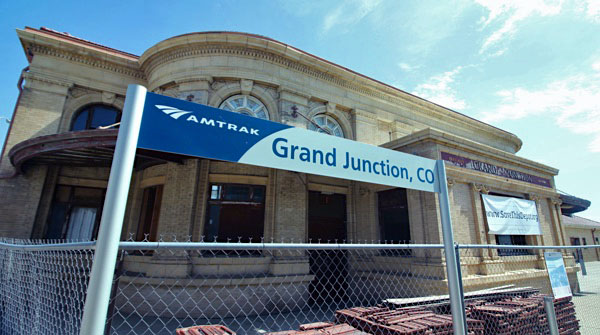
Sep 2023 / RWH
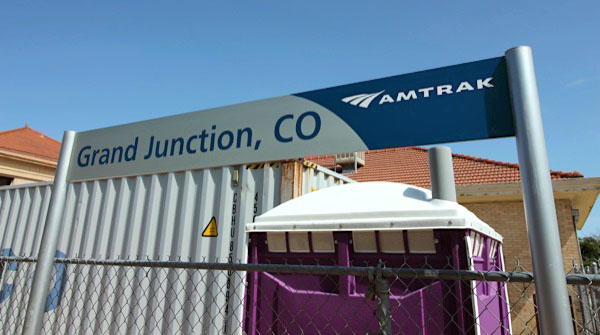
Sep 2023 / RWH
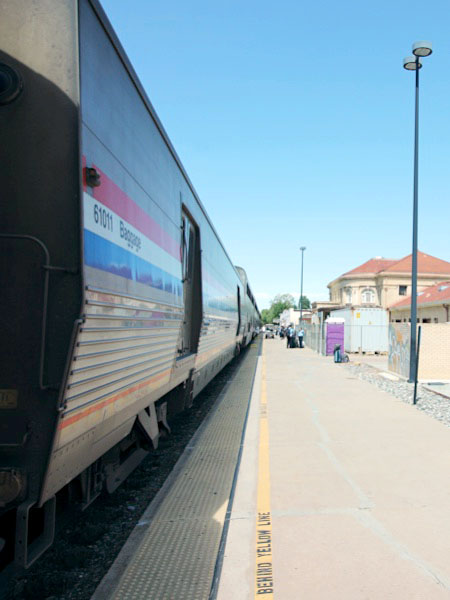
Sep 2023 / RWH
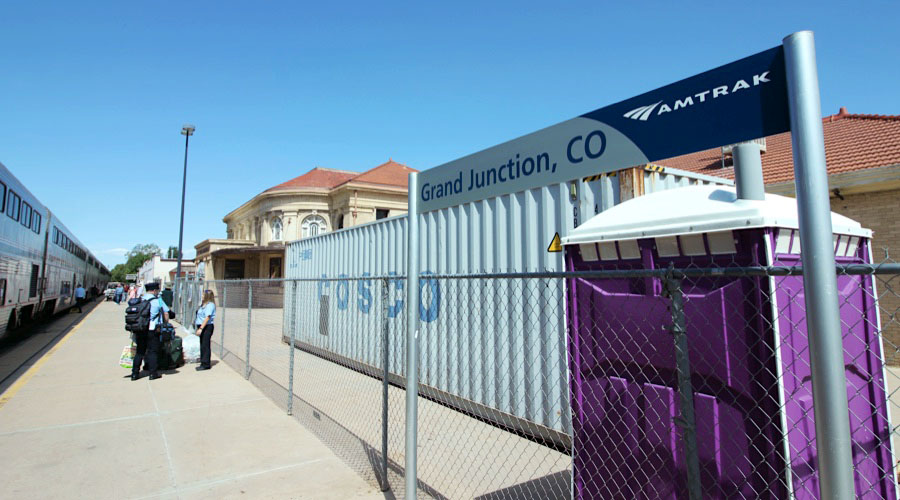
Grand Junction, Co / Sep 2023 / RWH
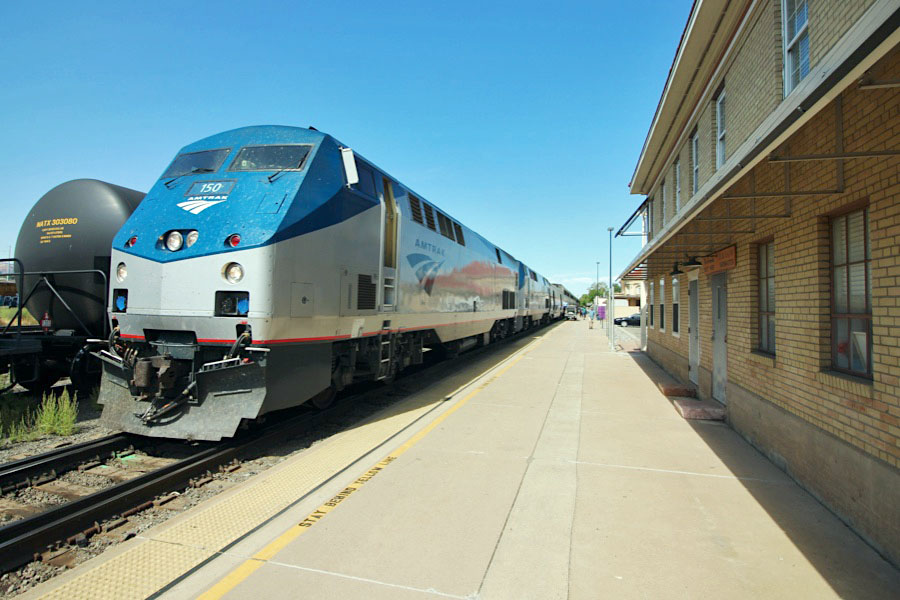
Grand Junction, Co / Sep 2023 / RWH
Amtrak #150
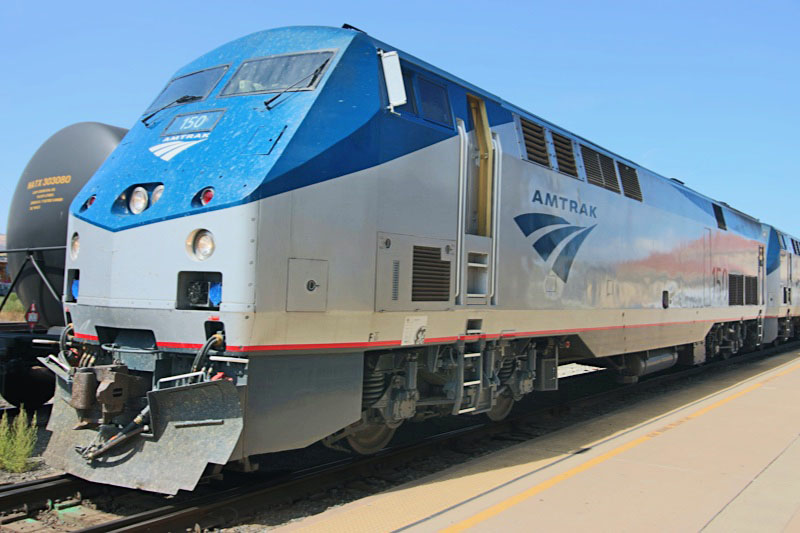
Amtrak #150
Grand Junction, Co / Sep 2023 / RWH


Amtrak #150

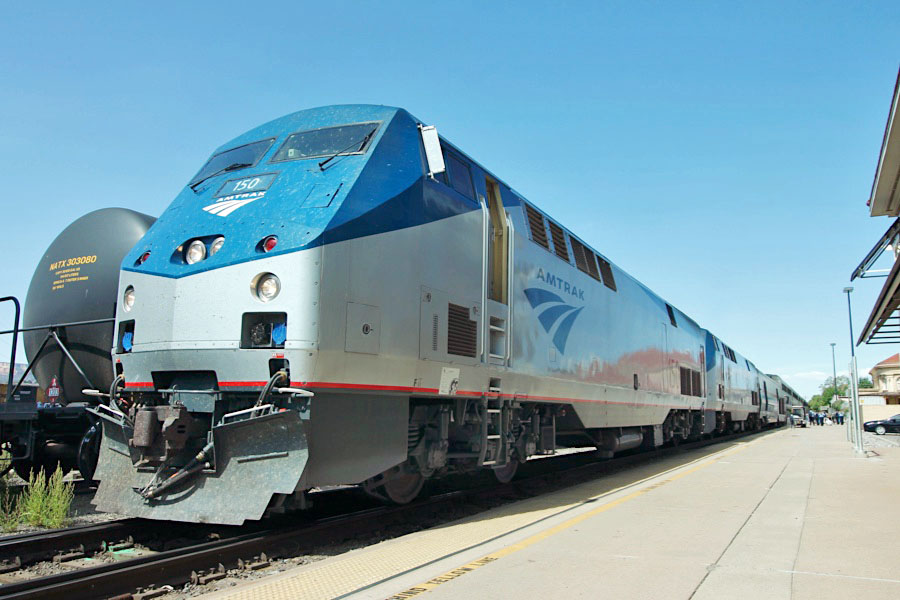
Grand Junction, Co / Sep 2023 / RWH
Amtrak #7
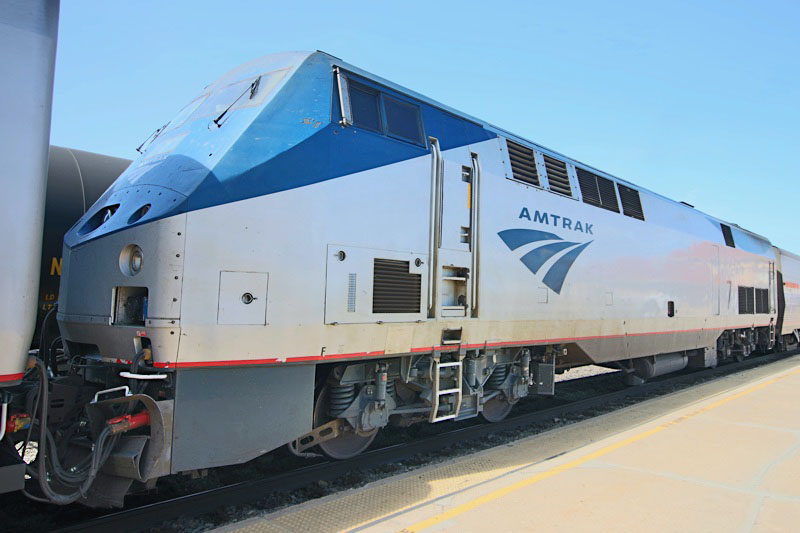
Amtrak #7
Grand Junction, Co / Sep 2023 / RWH


Amtrak #7

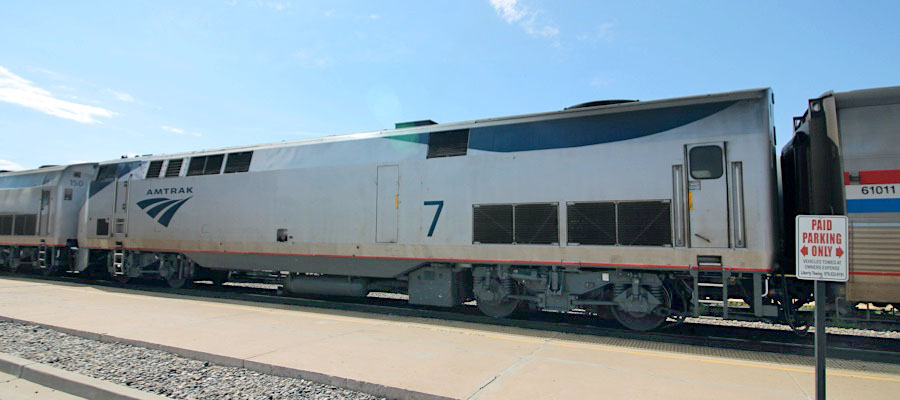
Grand Junction, Co / Sep 2023 / RWH
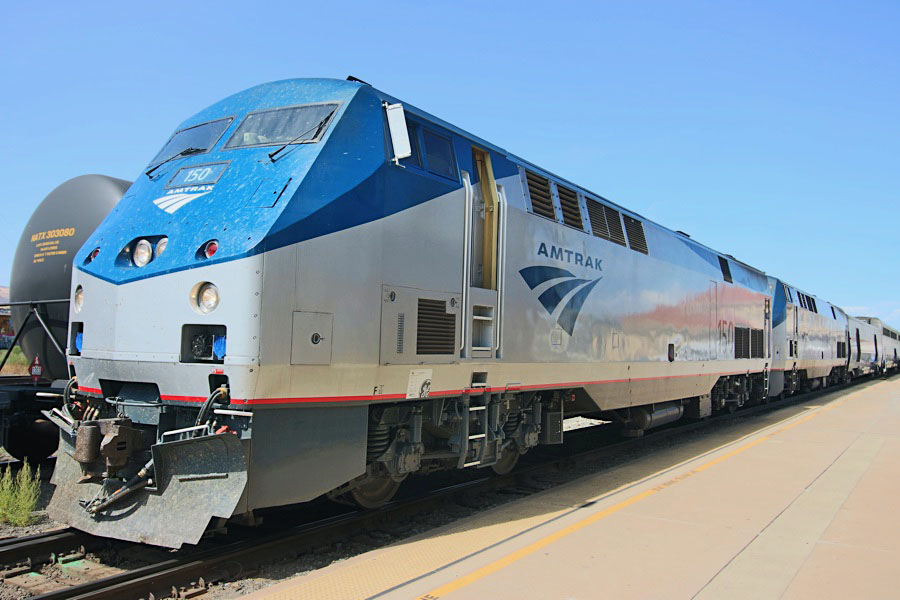
Grand Junction, Co / Sep 2023 / RWH

See next our California Zephyr Western Routes scrapbook
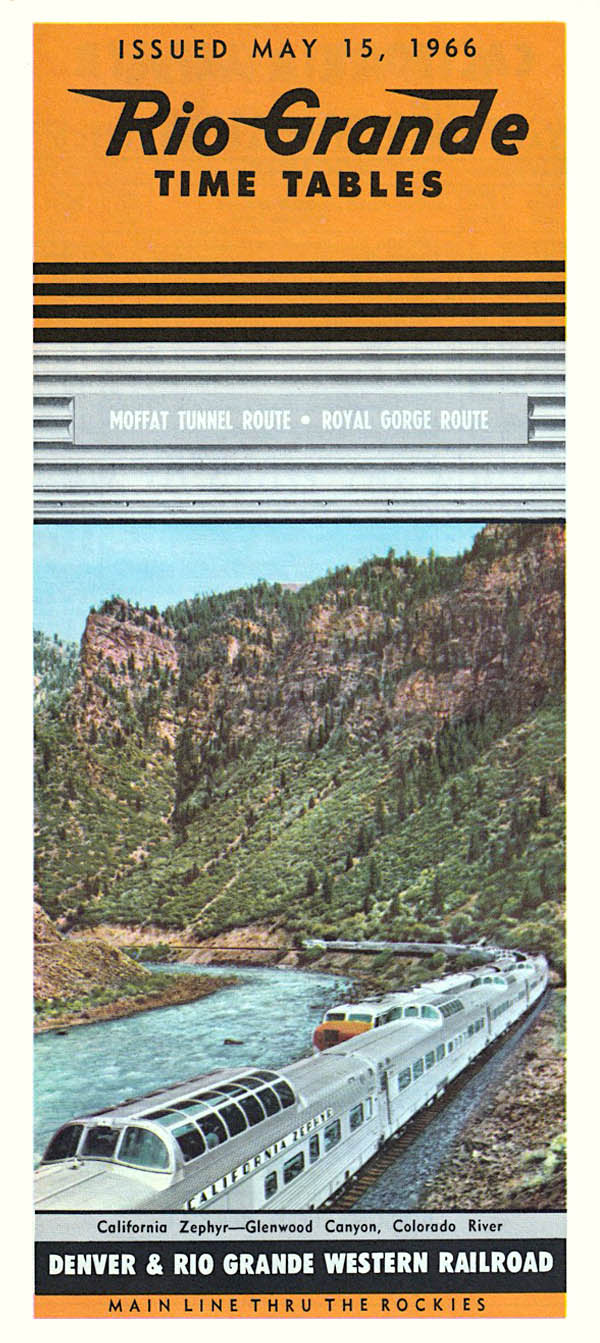
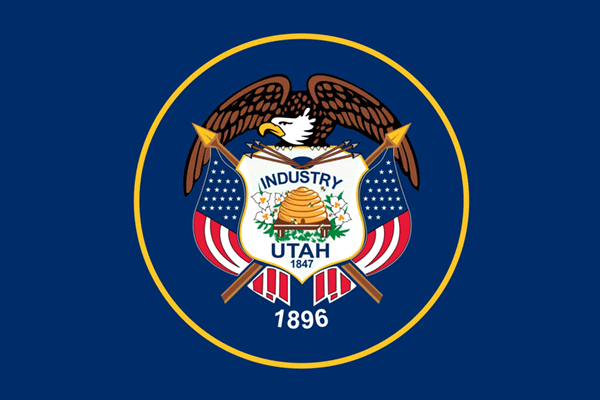
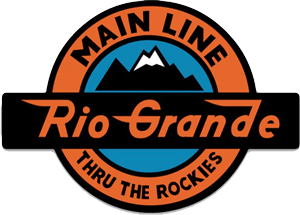
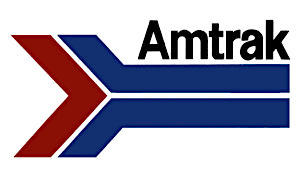

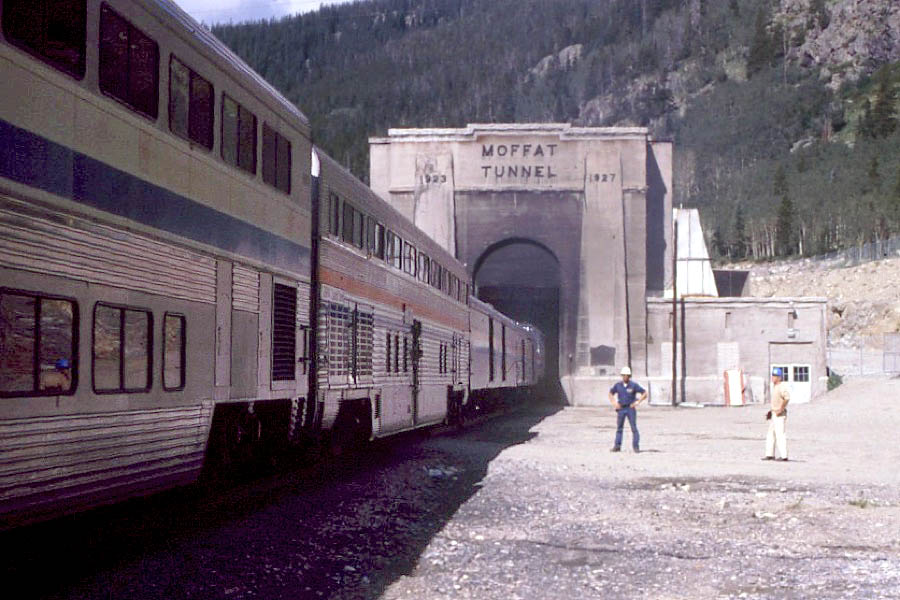

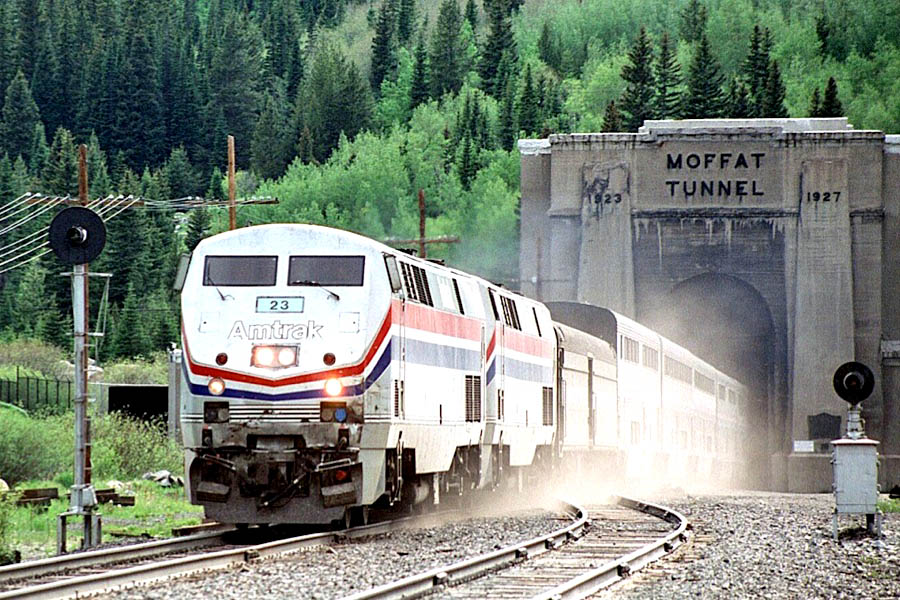
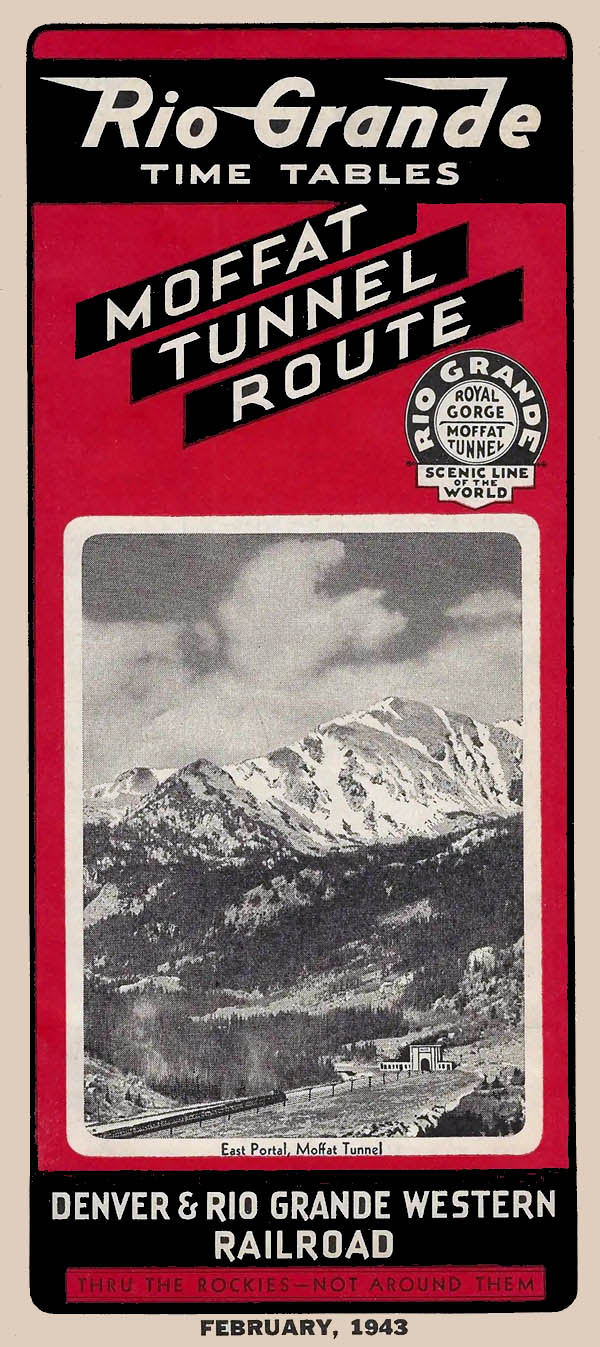

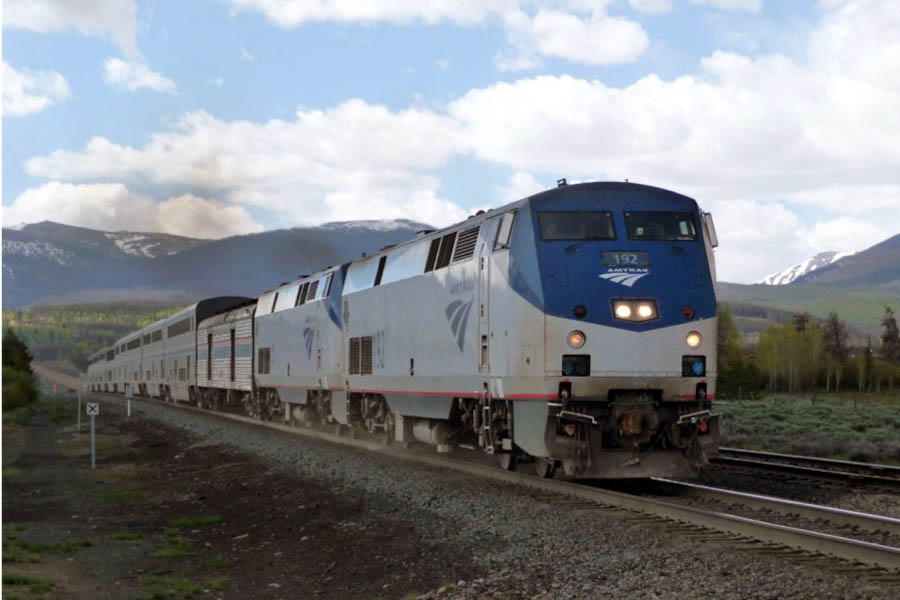
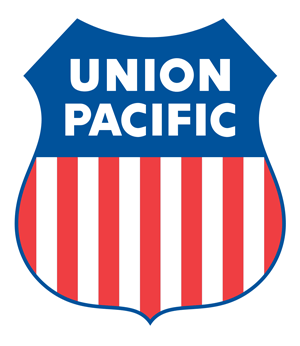
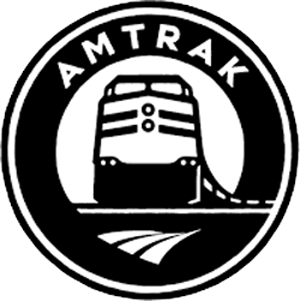
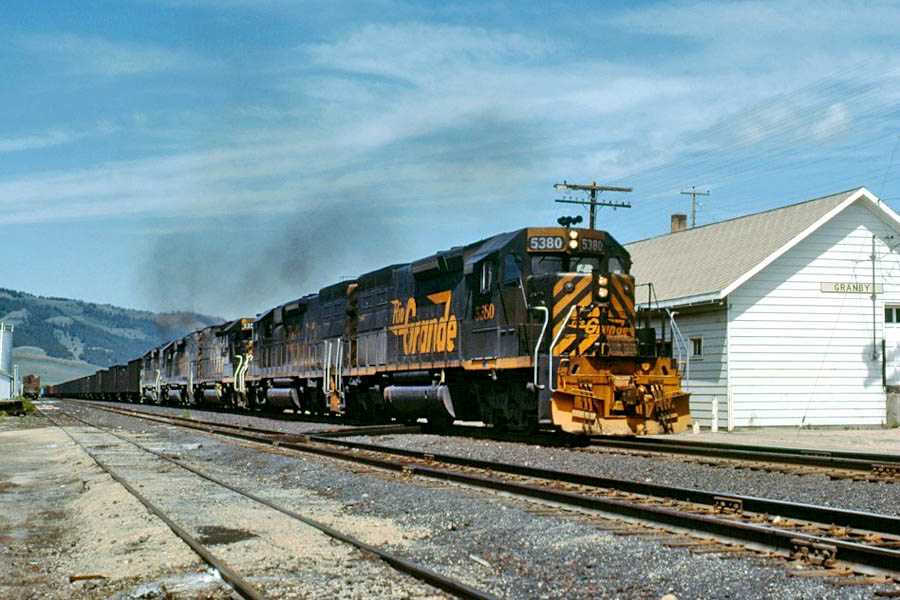
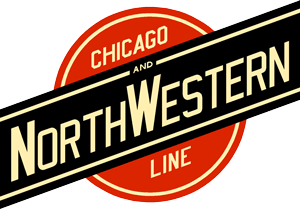

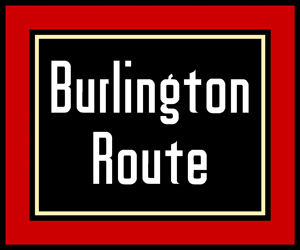
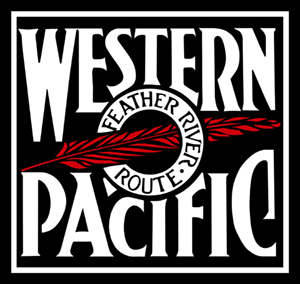
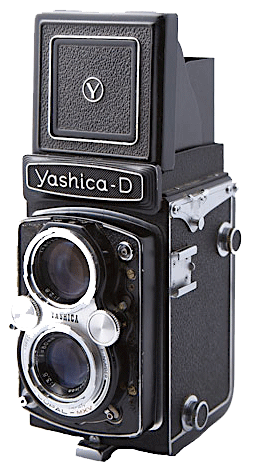 In the winter of 1968, my parents took a trip aboard the westbound California Zephyr. They departed in a Pullman sleeper from Chicago on the 9th of February, going as far west as Sacramento ... less than 100 miles from the end of the route in Oakland. En route, especially in the Rockies, dad obviously pulled out his Twin Reflex 120 film camera, as the photos below show some terrific scenes snapped from several of the Vista Dome coaches in the upstairs seating area. A variety of motive power consists can be seen on the point along the way, including an impressive 6-unit lashup in one photo. One image seems to show a sister Cali Zephyr in the other direction, having just passed their train in a meet.
In the winter of 1968, my parents took a trip aboard the westbound California Zephyr. They departed in a Pullman sleeper from Chicago on the 9th of February, going as far west as Sacramento ... less than 100 miles from the end of the route in Oakland. En route, especially in the Rockies, dad obviously pulled out his Twin Reflex 120 film camera, as the photos below show some terrific scenes snapped from several of the Vista Dome coaches in the upstairs seating area. A variety of motive power consists can be seen on the point along the way, including an impressive 6-unit lashup in one photo. One image seems to show a sister Cali Zephyr in the other direction, having just passed their train in a meet.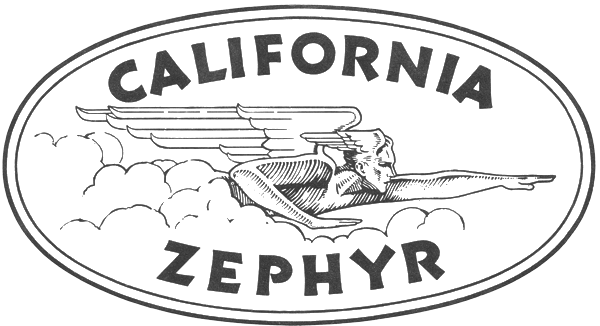
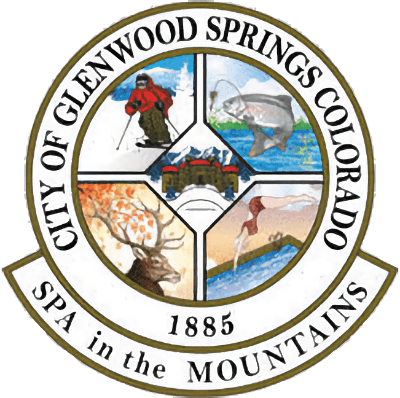 Originally inhabited by nomadic Ute Indian tribes, this area of bubbling hot springs has long been a destination for the health seeker. In the early 1880’s, James Landis homesteaded the confluence of the Roaring Fork and Grand Rivers that would become Glenwood Springs.
Early settlers Isaac Cooper and Walter Devereux saw the potential for Glenwood Springs to become a highly regarded destination and developed these amenities into a world-class resort. The arrival of the railroads in 1887 brought the first trainloads of tourists to enjoy all that Glenwood had to offer. The addition of the Vapor Caves, Hotel Colorado and Fairy Caves provided a total package for travelers. The local economy was not only fueled by tourism but also by coal mining, farming and ranching, commerce and outdoor recreation. A visit to historic Glenwood Springs will take guests back in time to enjoy all of the amenities that were formerly reserved for the well-to-do.
Originally inhabited by nomadic Ute Indian tribes, this area of bubbling hot springs has long been a destination for the health seeker. In the early 1880’s, James Landis homesteaded the confluence of the Roaring Fork and Grand Rivers that would become Glenwood Springs.
Early settlers Isaac Cooper and Walter Devereux saw the potential for Glenwood Springs to become a highly regarded destination and developed these amenities into a world-class resort. The arrival of the railroads in 1887 brought the first trainloads of tourists to enjoy all that Glenwood had to offer. The addition of the Vapor Caves, Hotel Colorado and Fairy Caves provided a total package for travelers. The local economy was not only fueled by tourism but also by coal mining, farming and ranching, commerce and outdoor recreation. A visit to historic Glenwood Springs will take guests back in time to enjoy all of the amenities that were formerly reserved for the well-to-do.
 Glenwood Springs was first settled by James Landis in 1879, and was platted and incorporated on August 25, 1885. With the completion of the first class Hotel Colorado and the growing fame of the town’s warm mineral springs, the community established itself as a resort destination. For centuries, the Ute people had used the springs for therapeutic and ceremonial purposes.
Glenwood Springs was first settled by James Landis in 1879, and was platted and incorporated on August 25, 1885. With the completion of the first class Hotel Colorado and the growing fame of the town’s warm mineral springs, the community established itself as a resort destination. For centuries, the Ute people had used the springs for therapeutic and ceremonial purposes.
